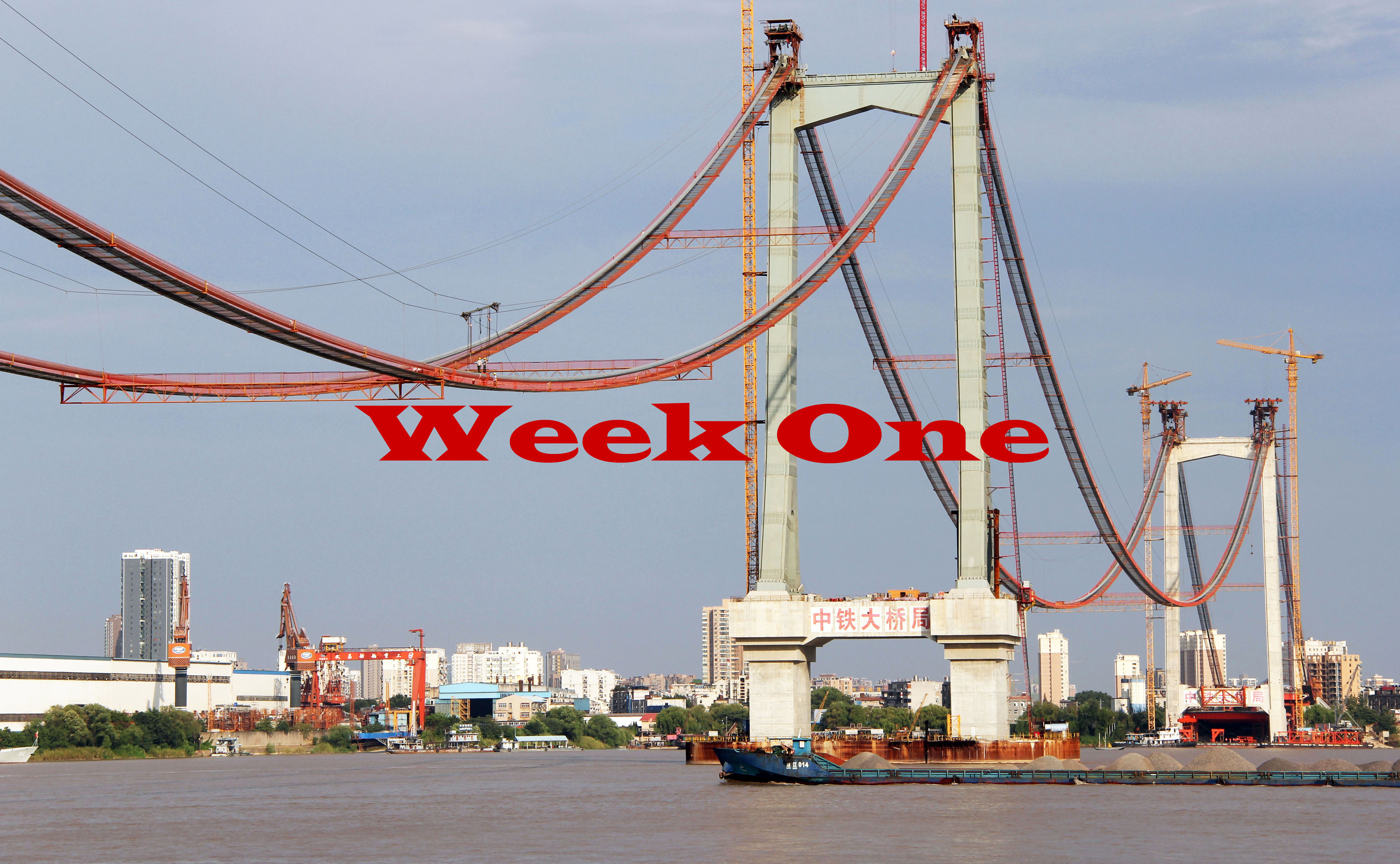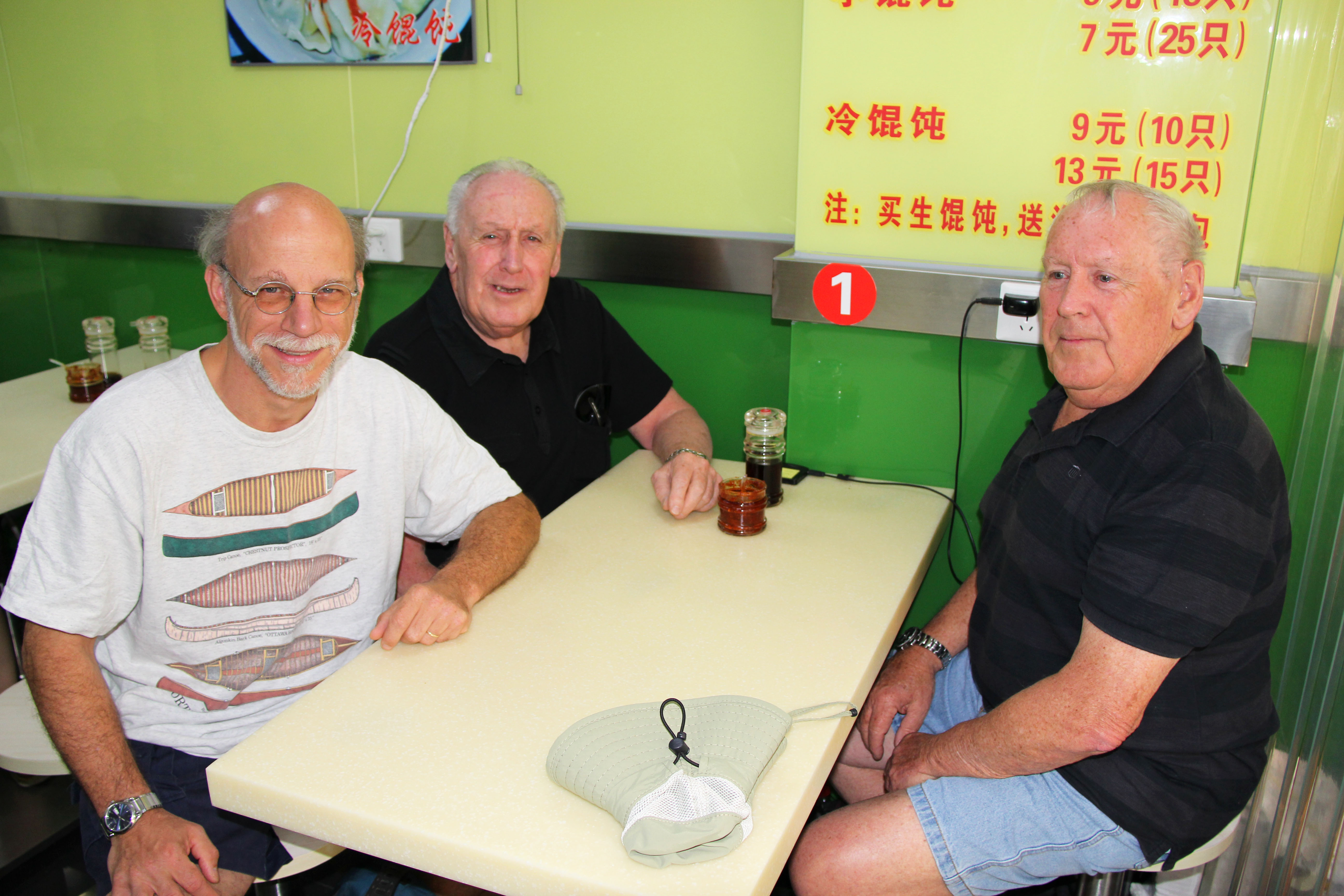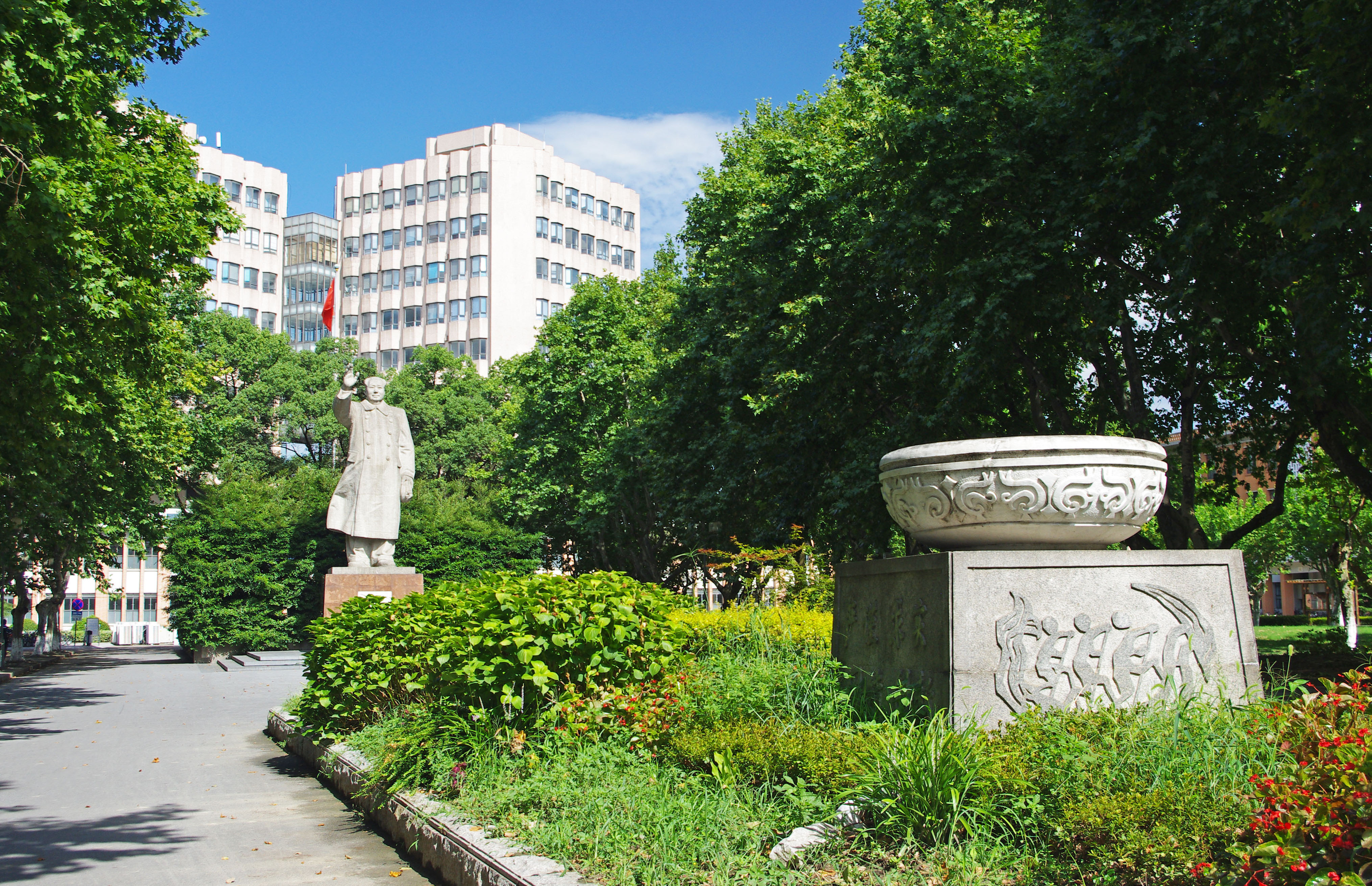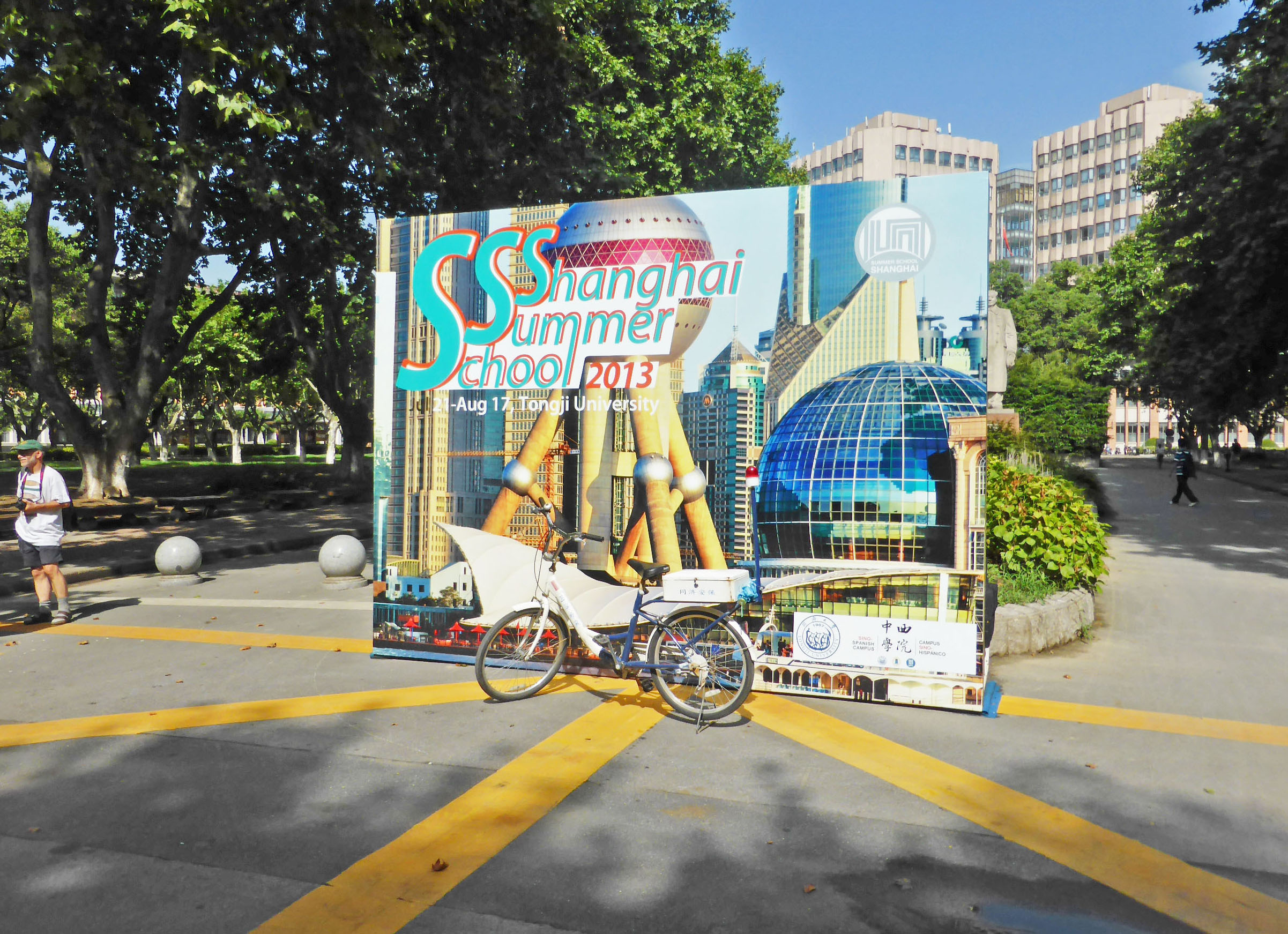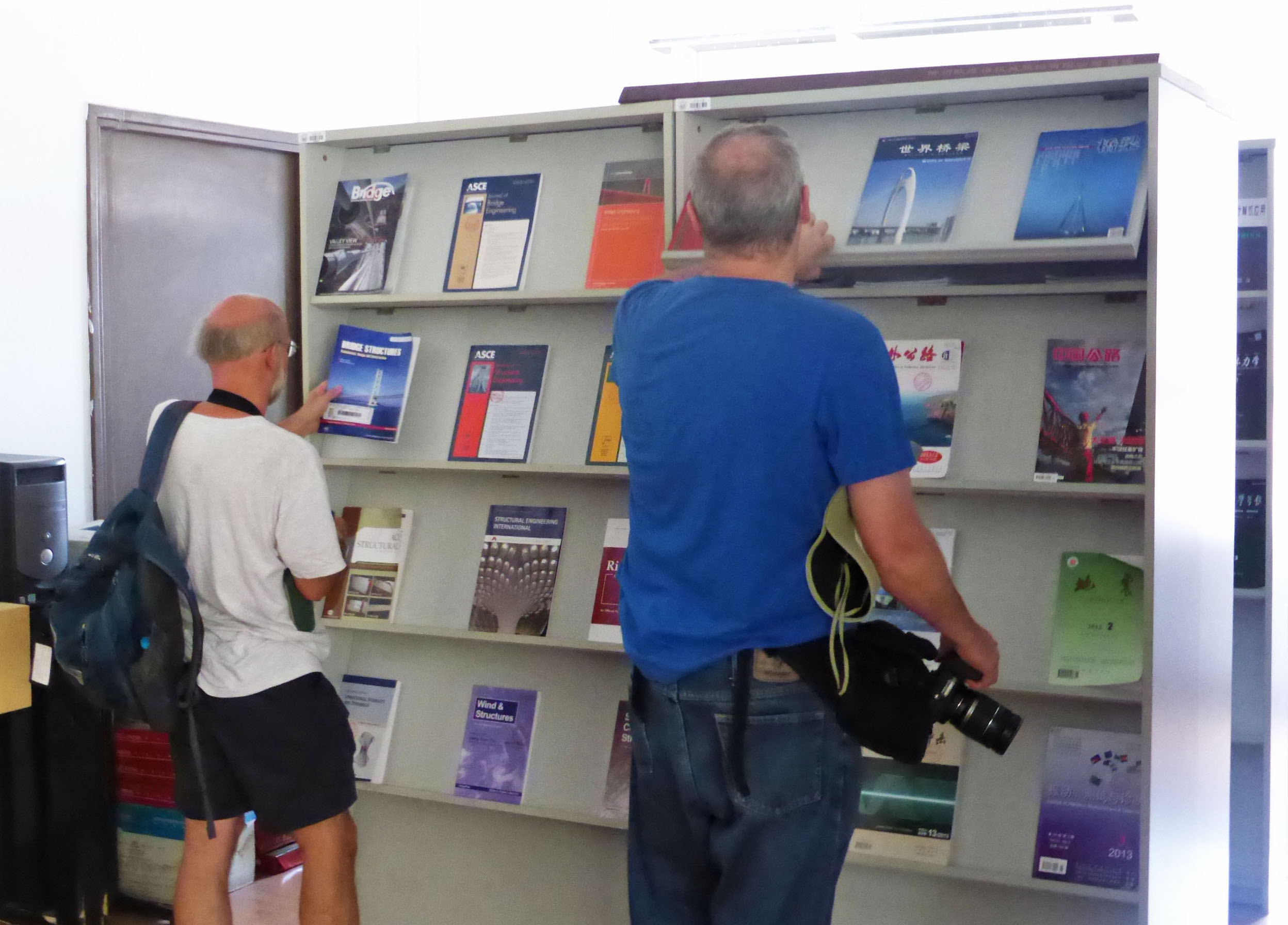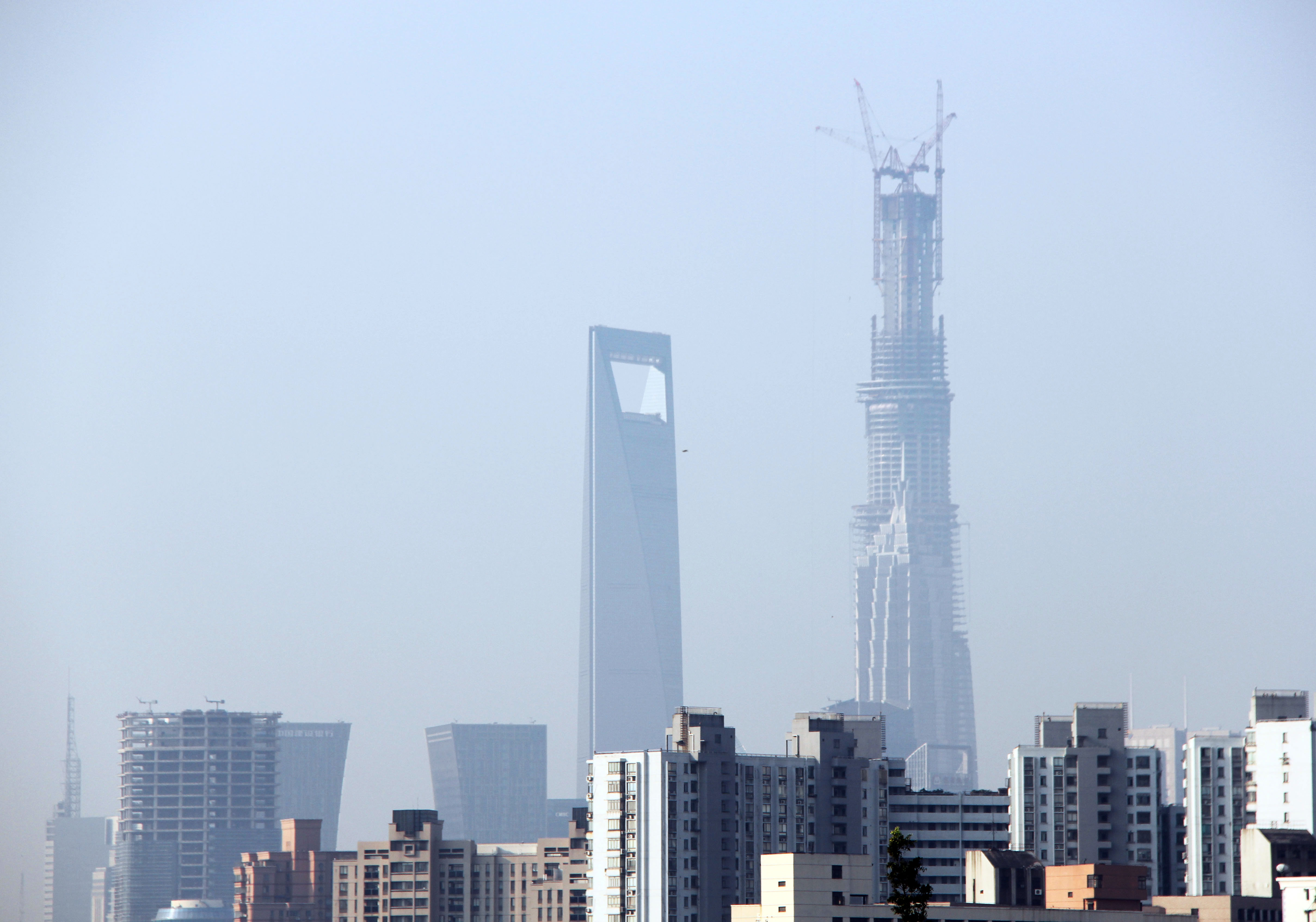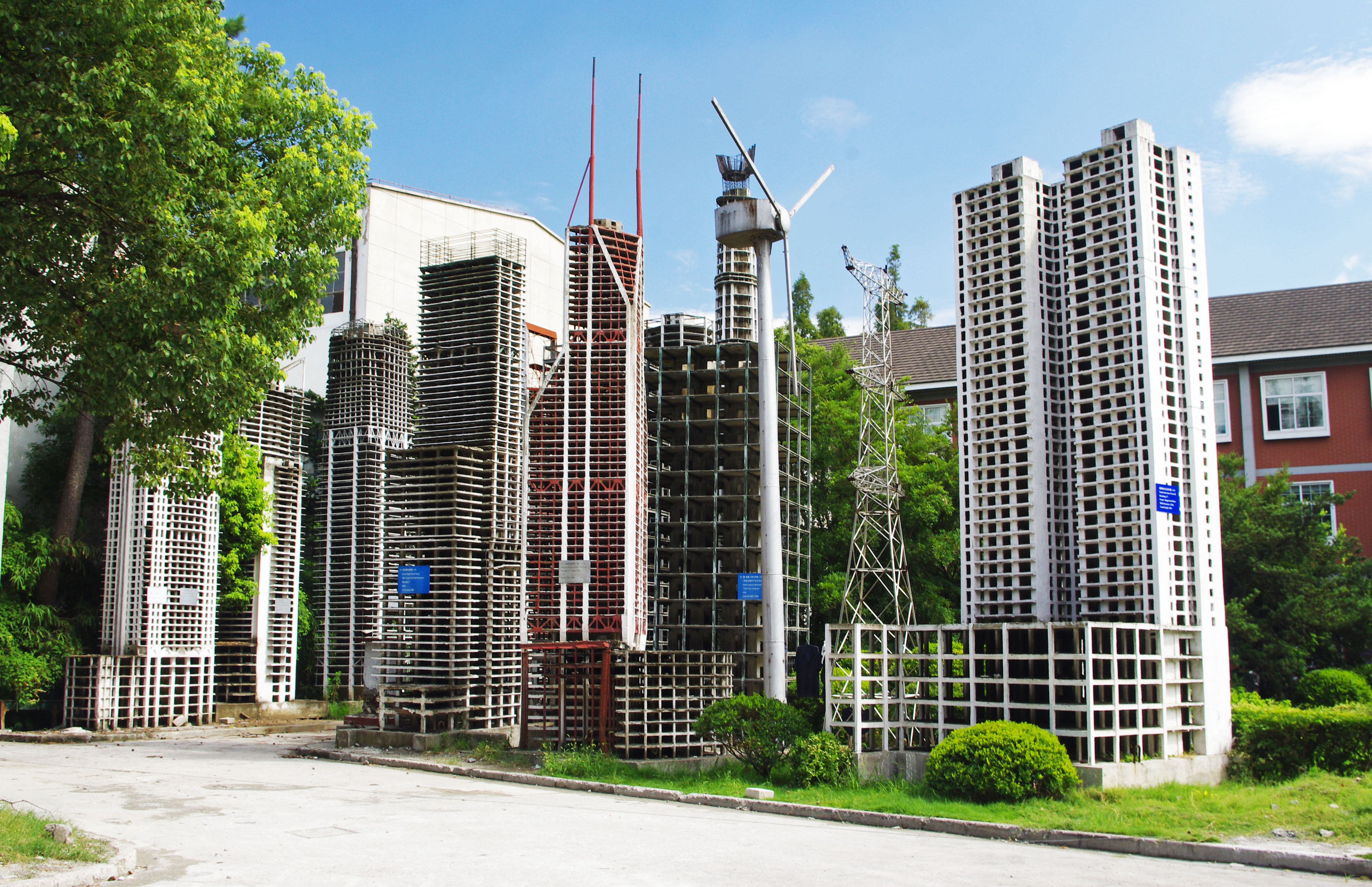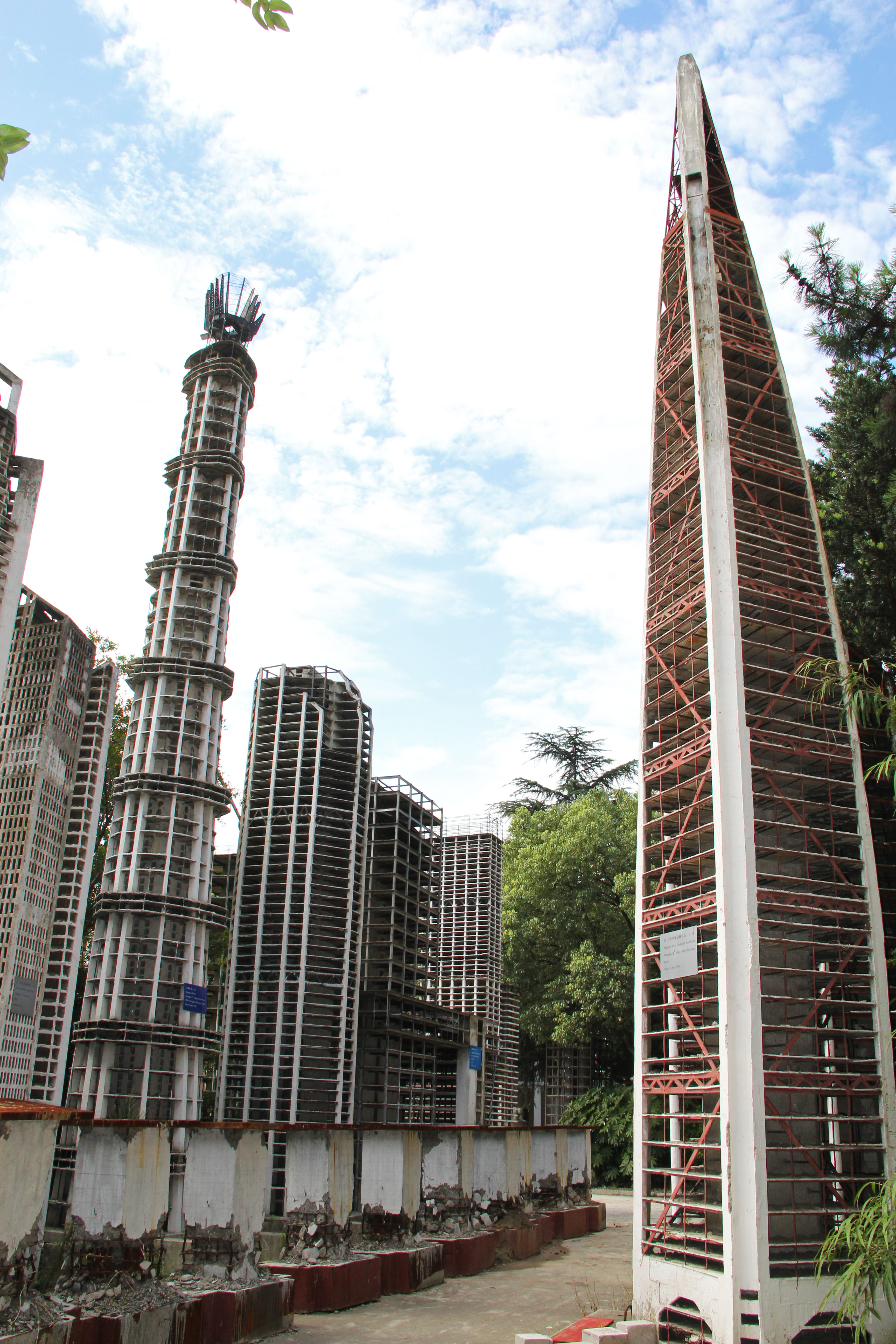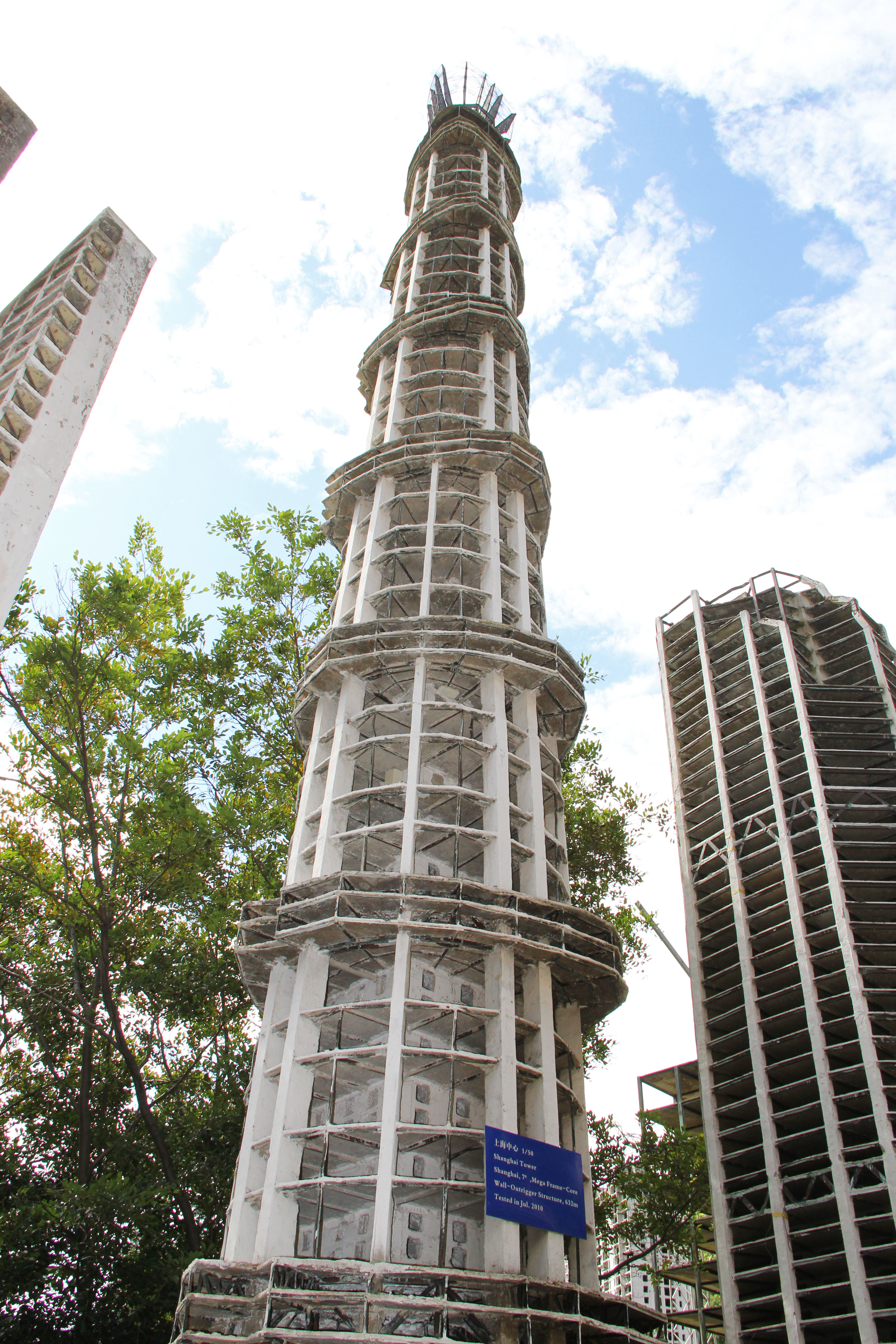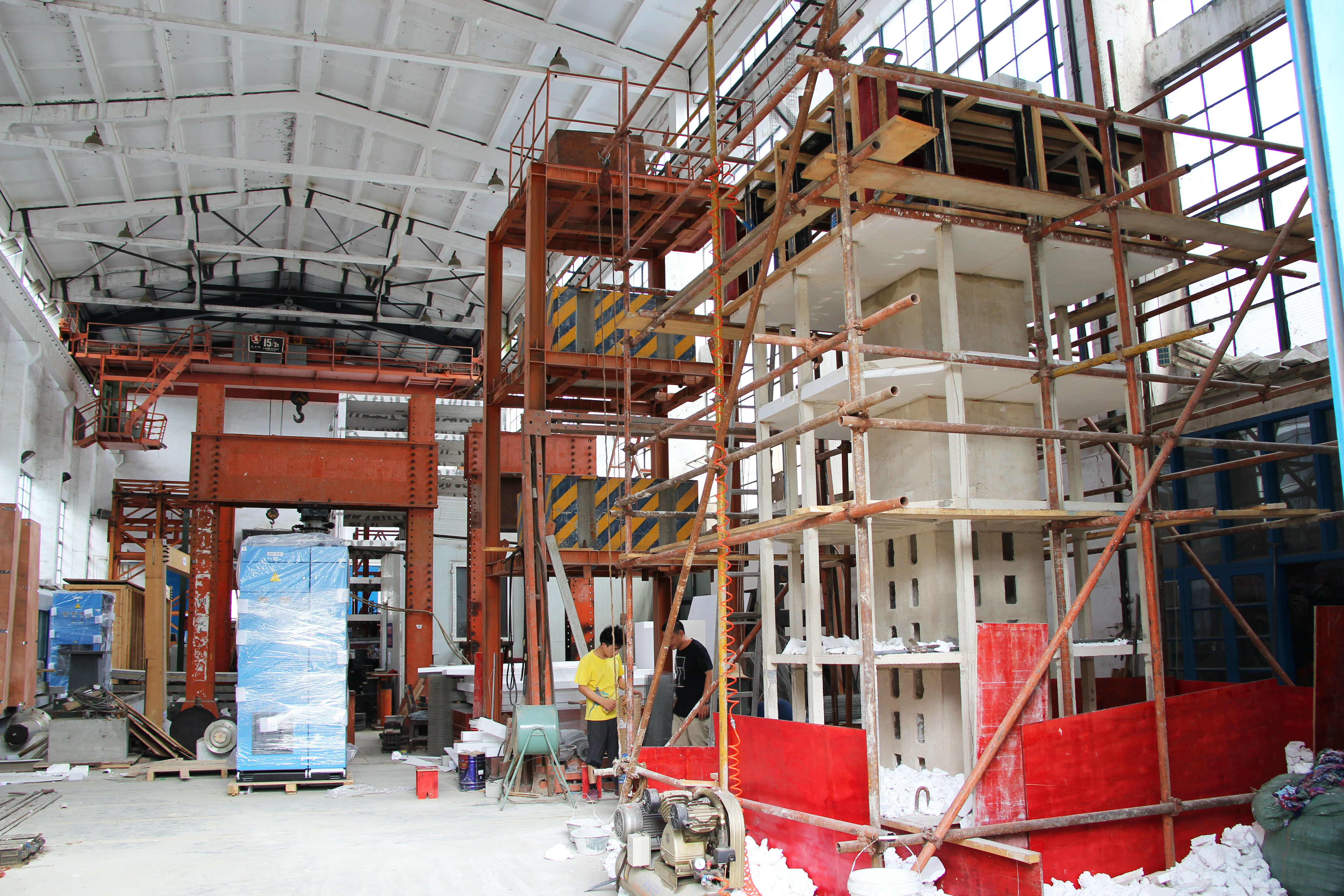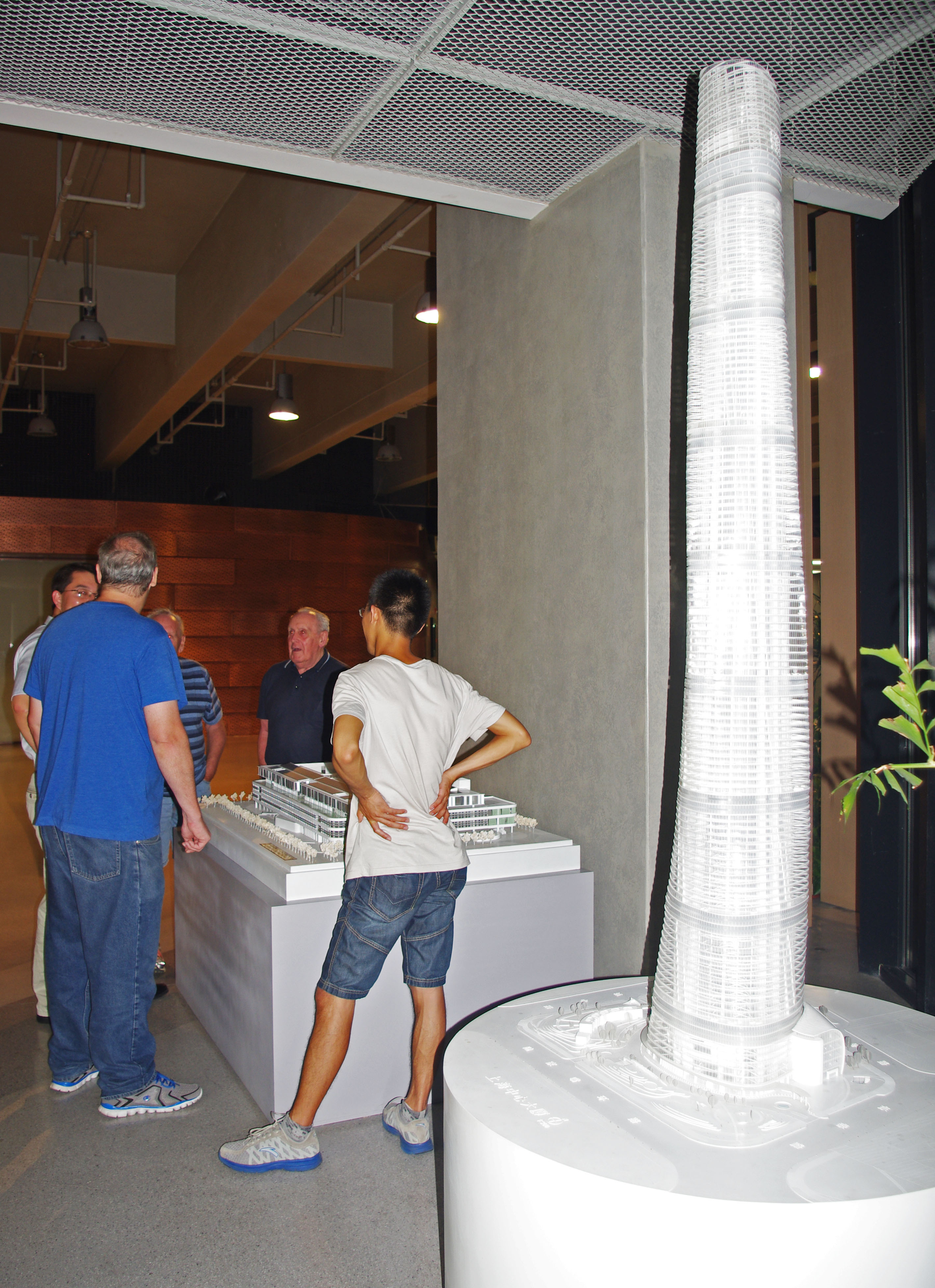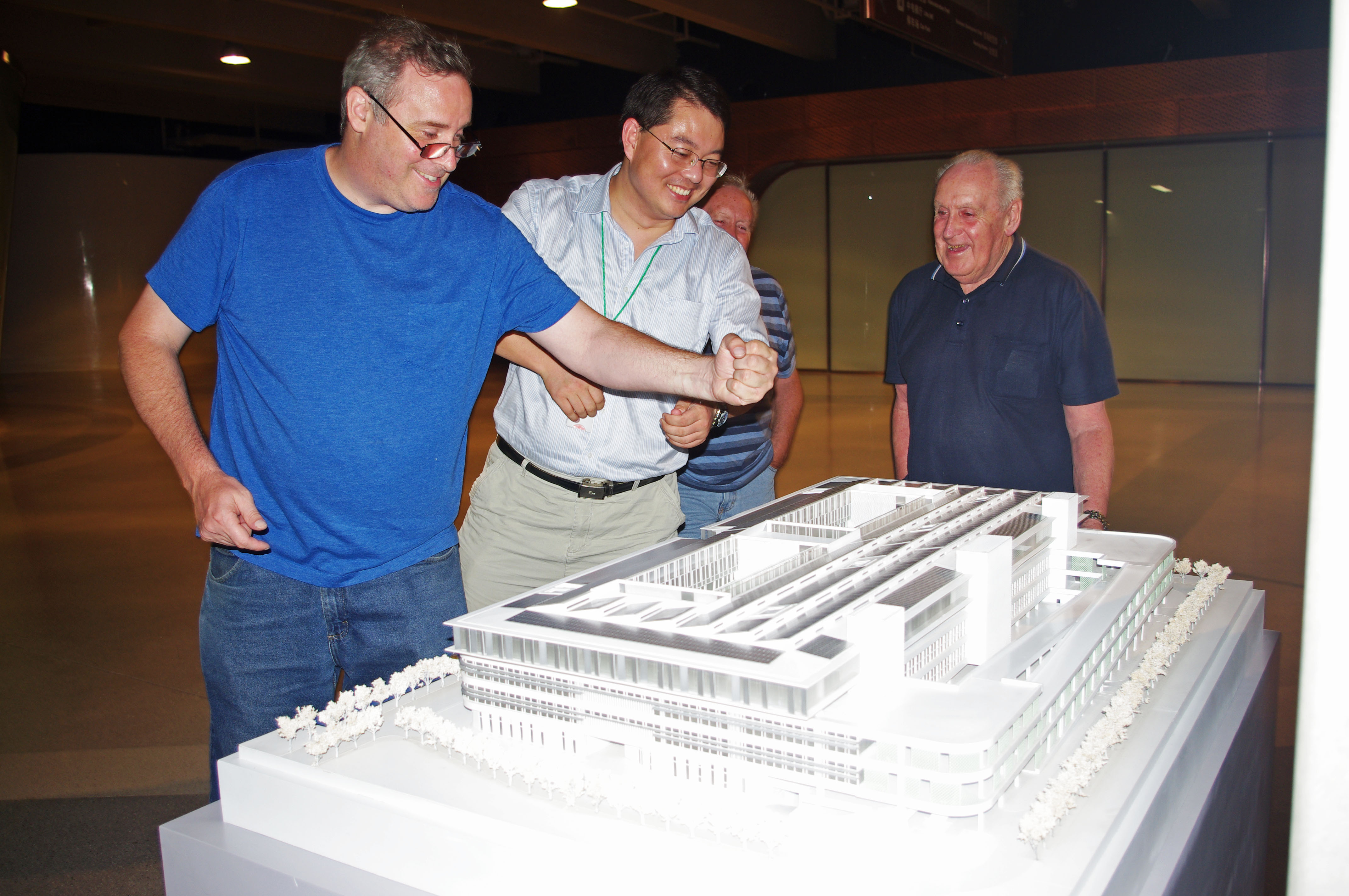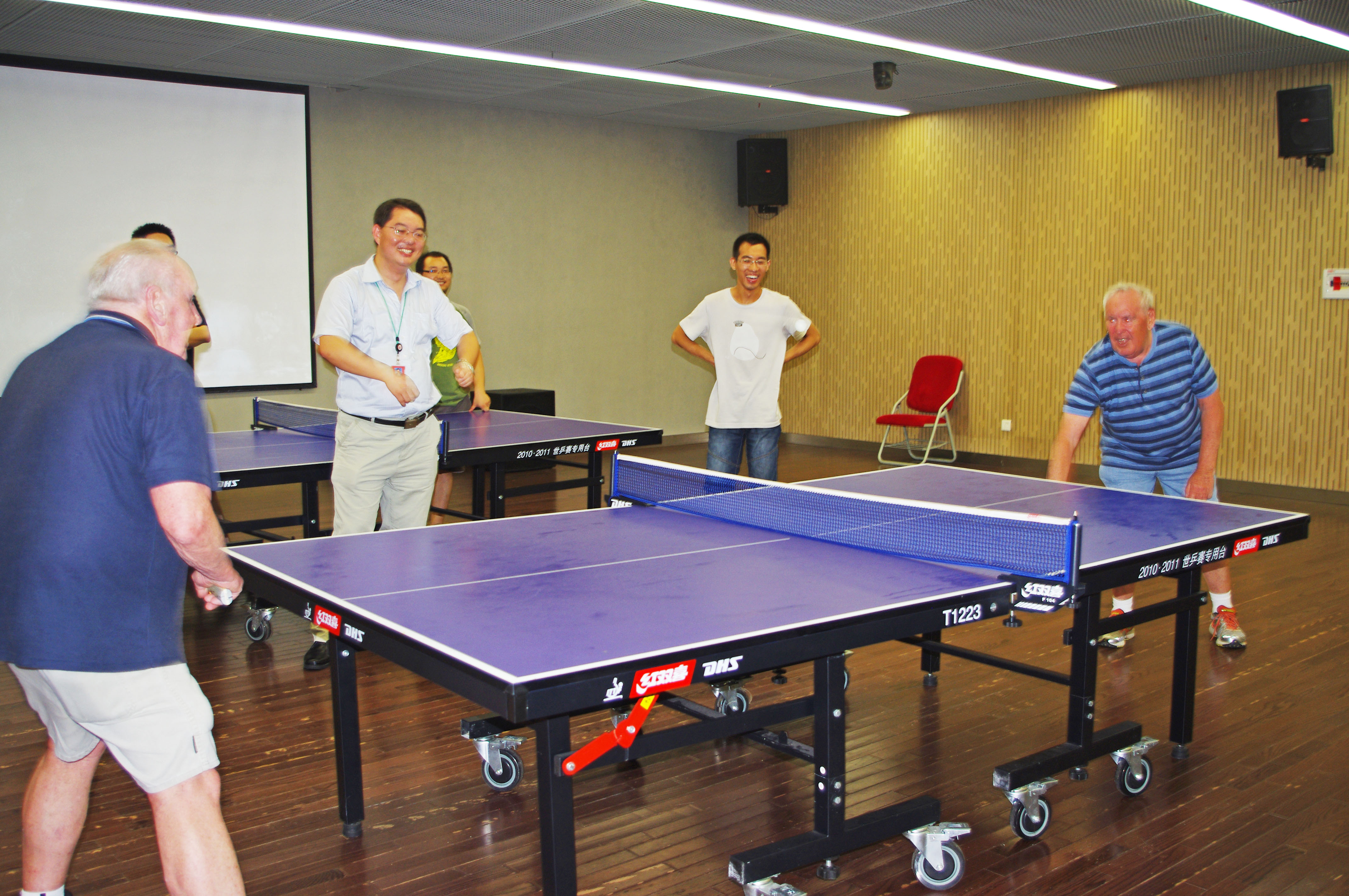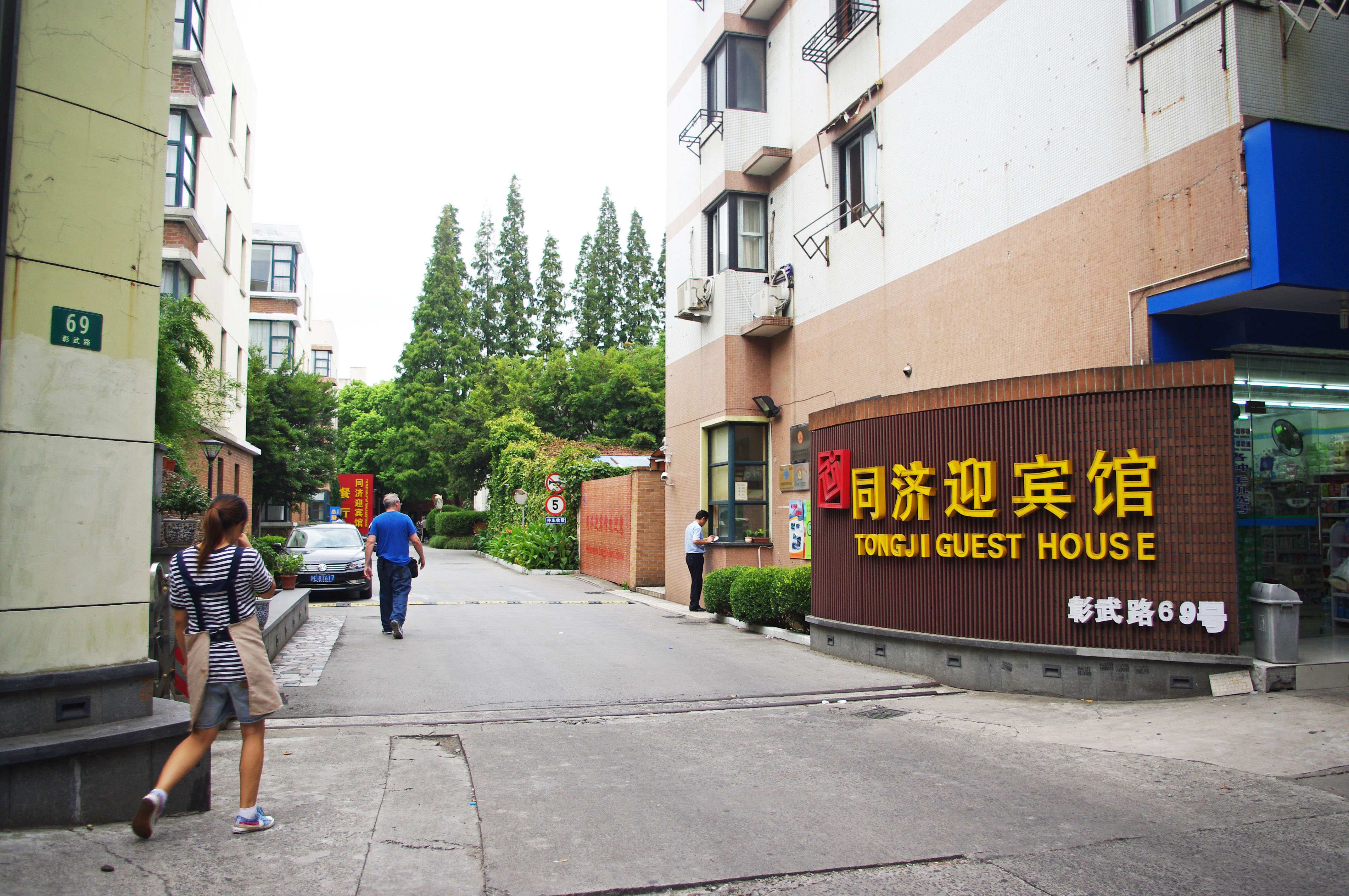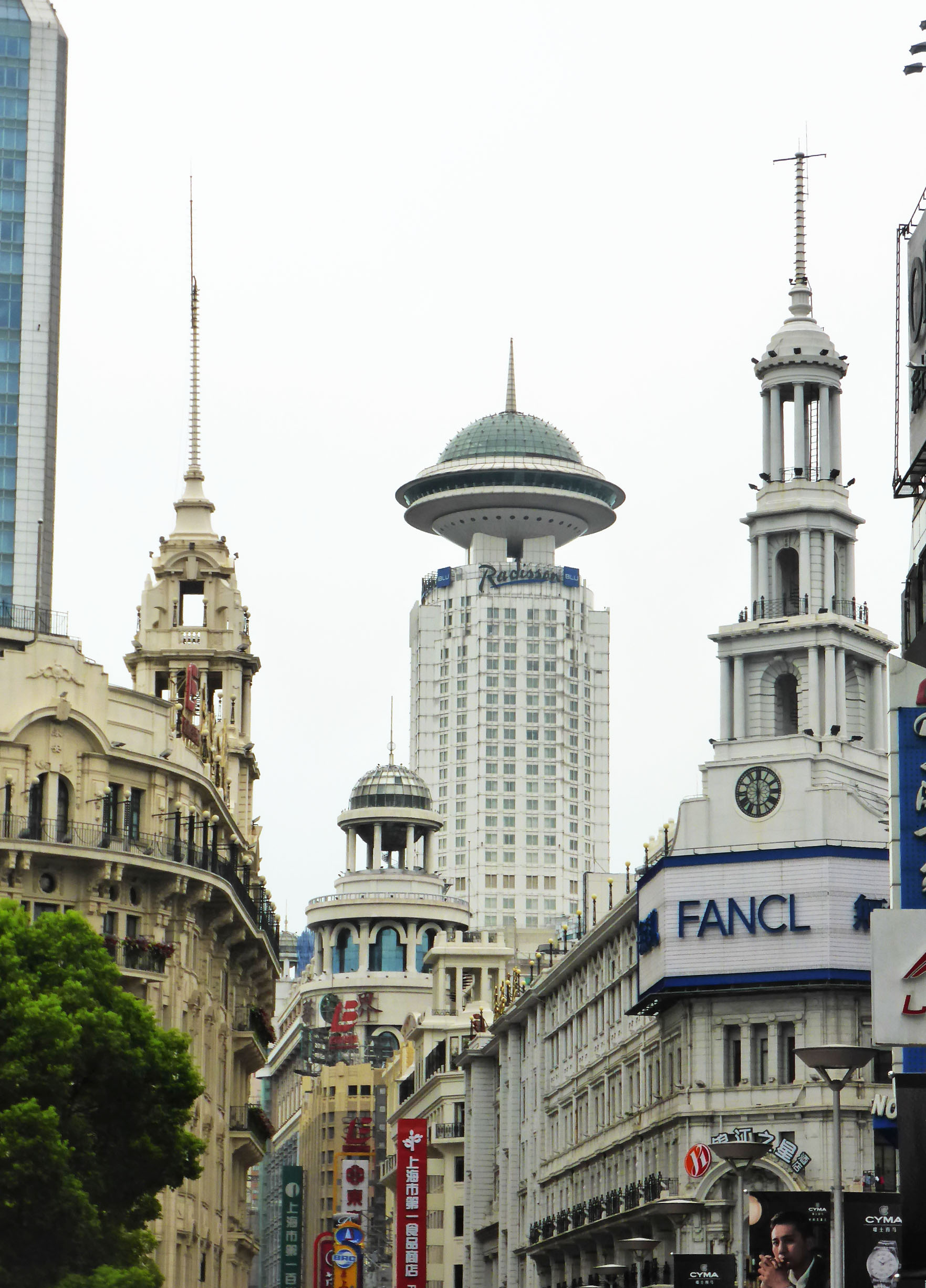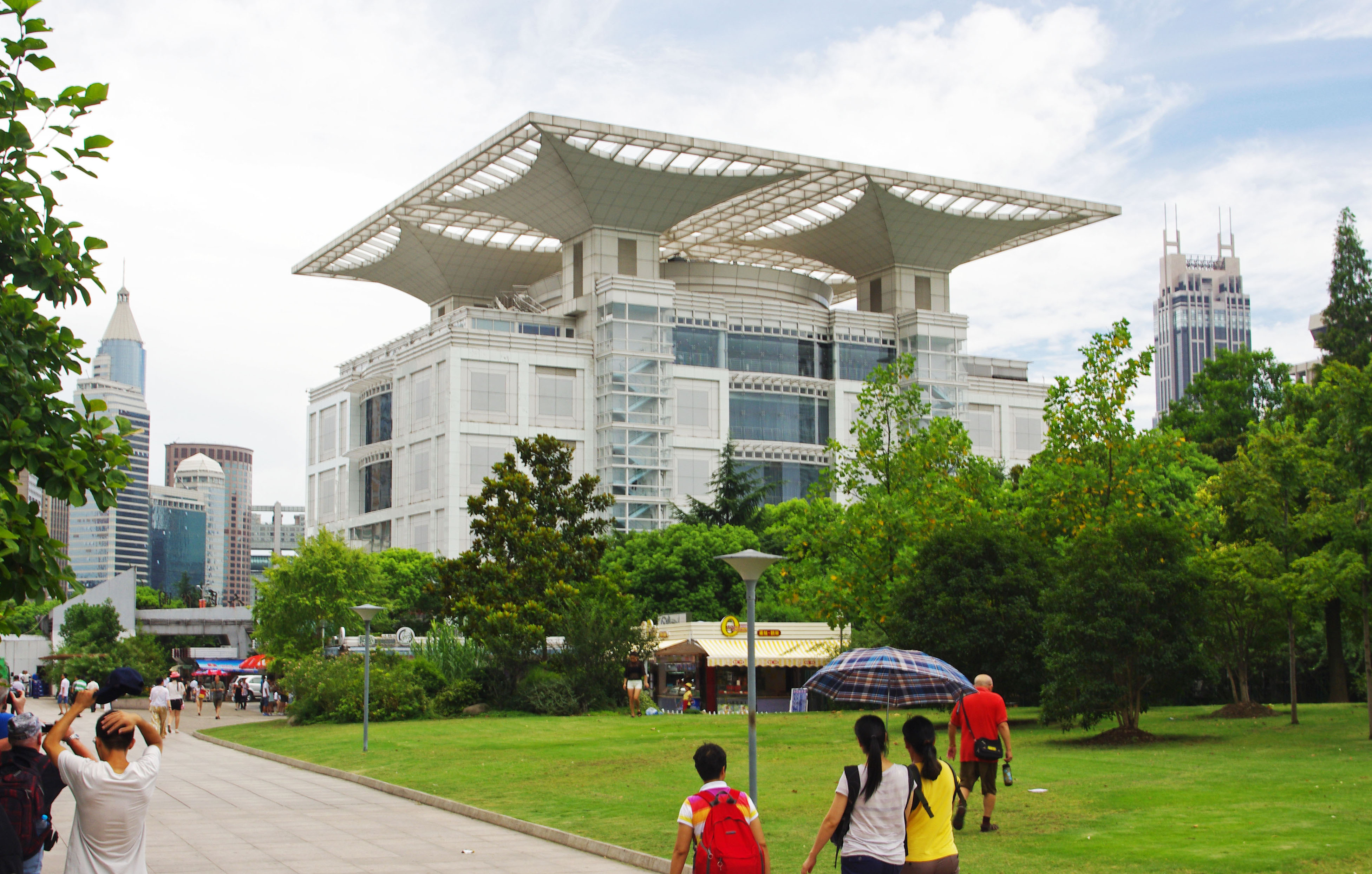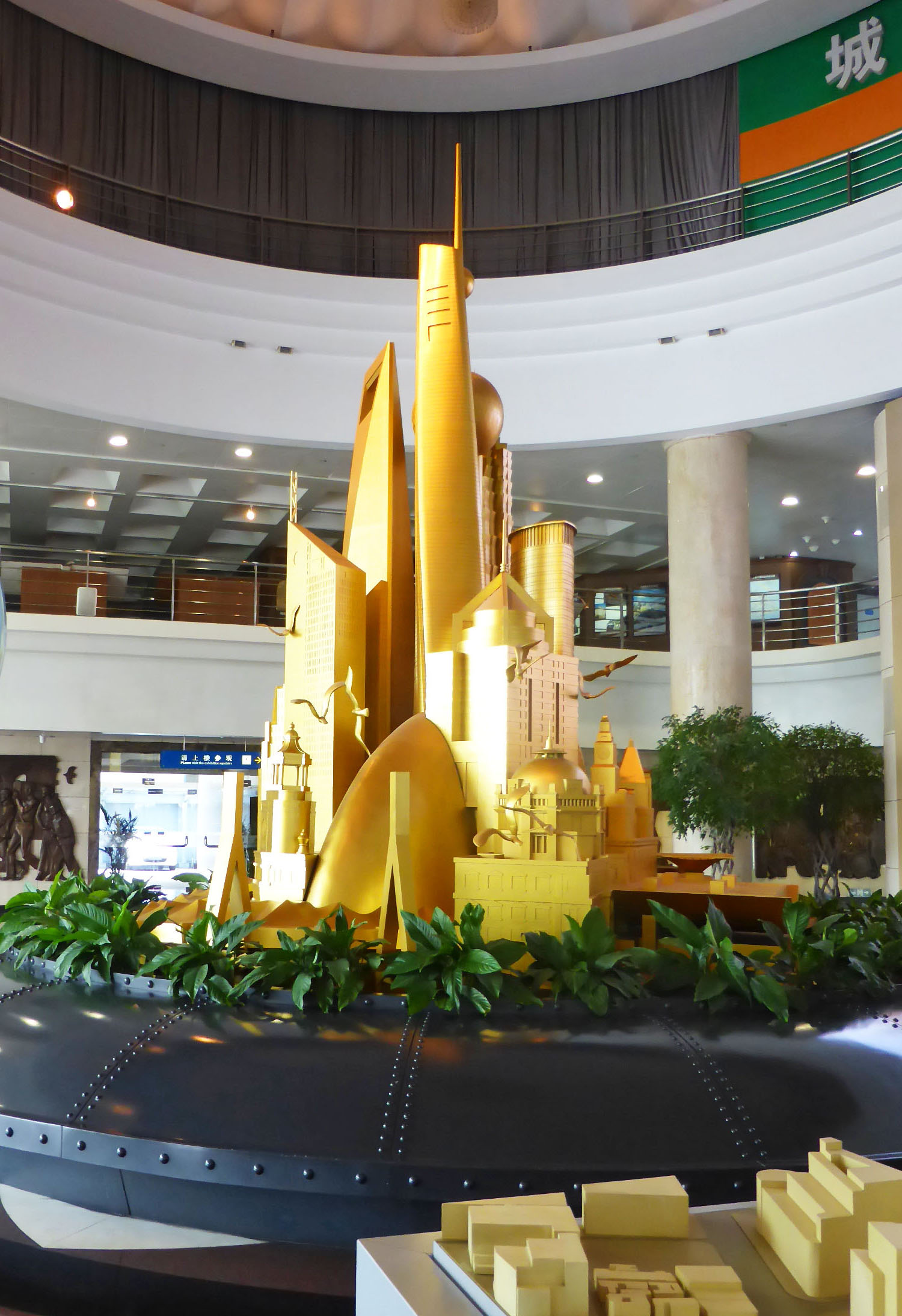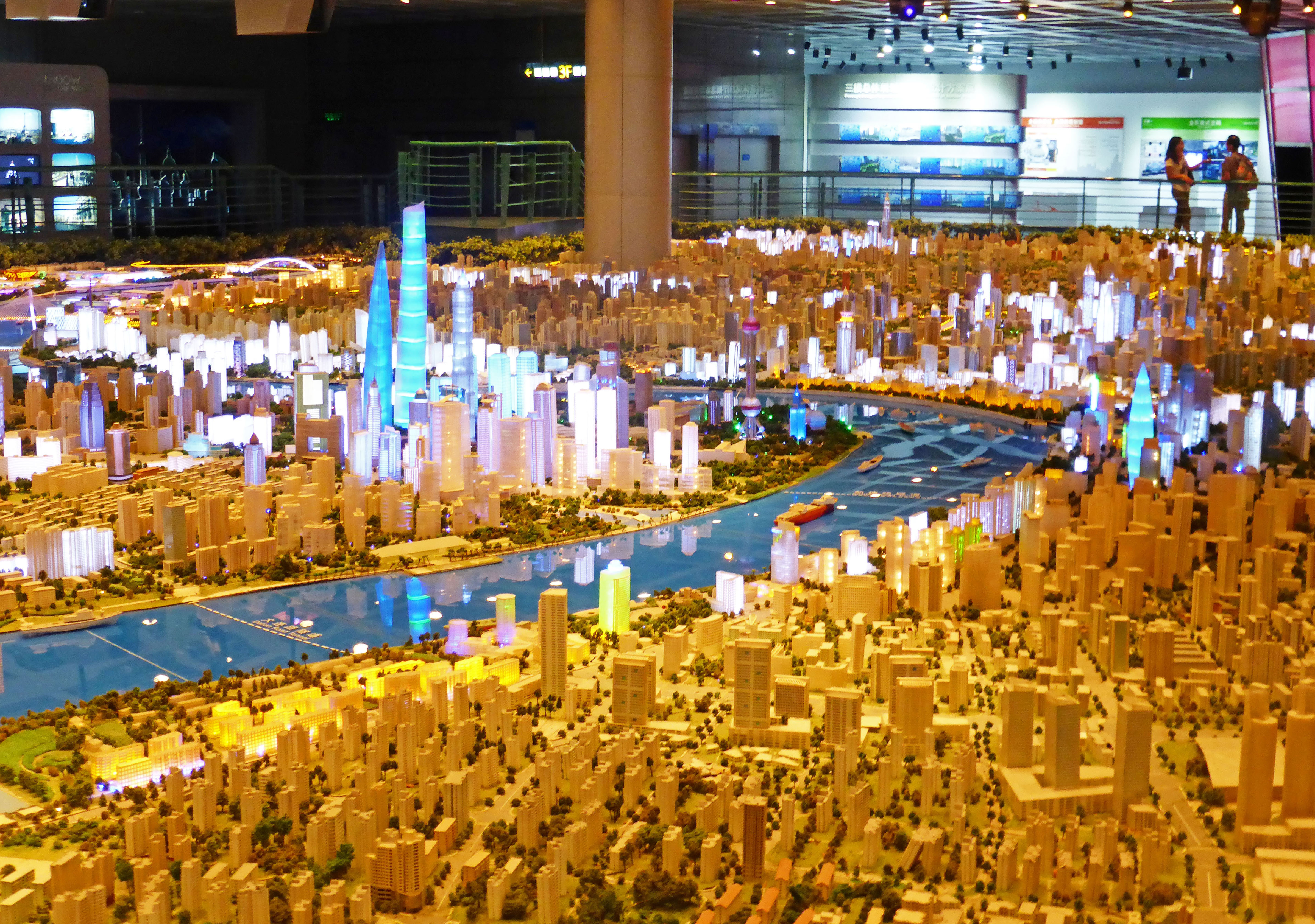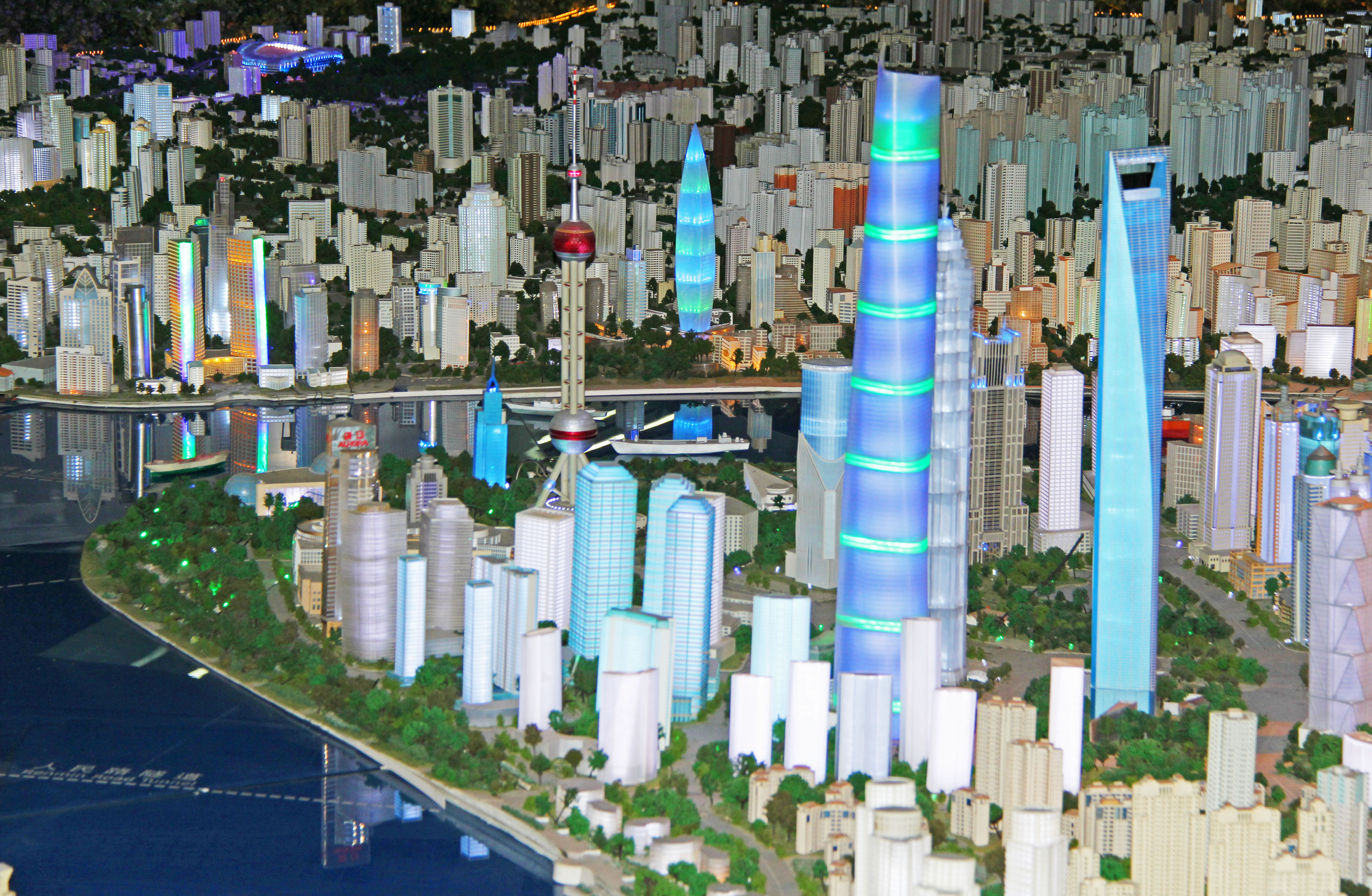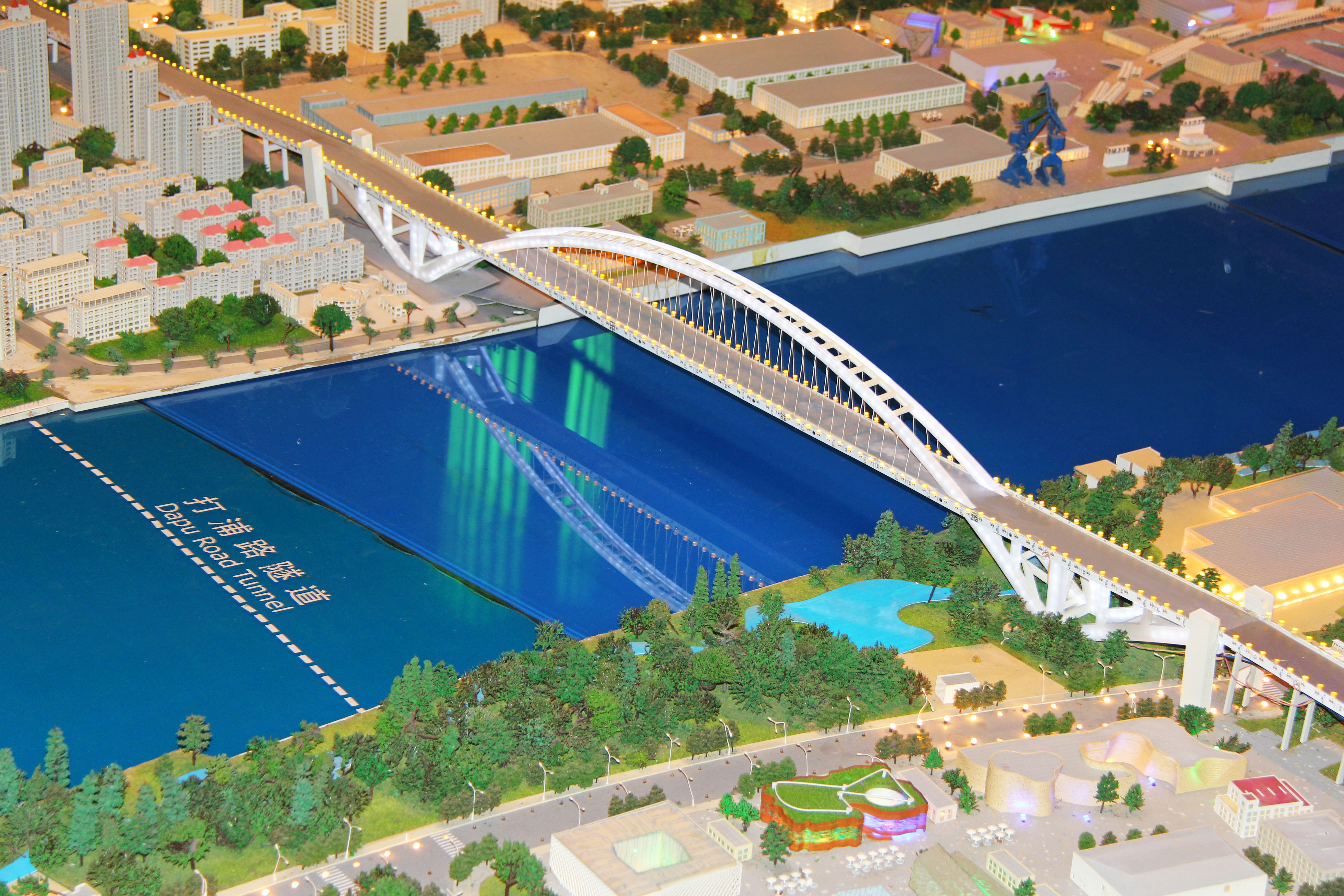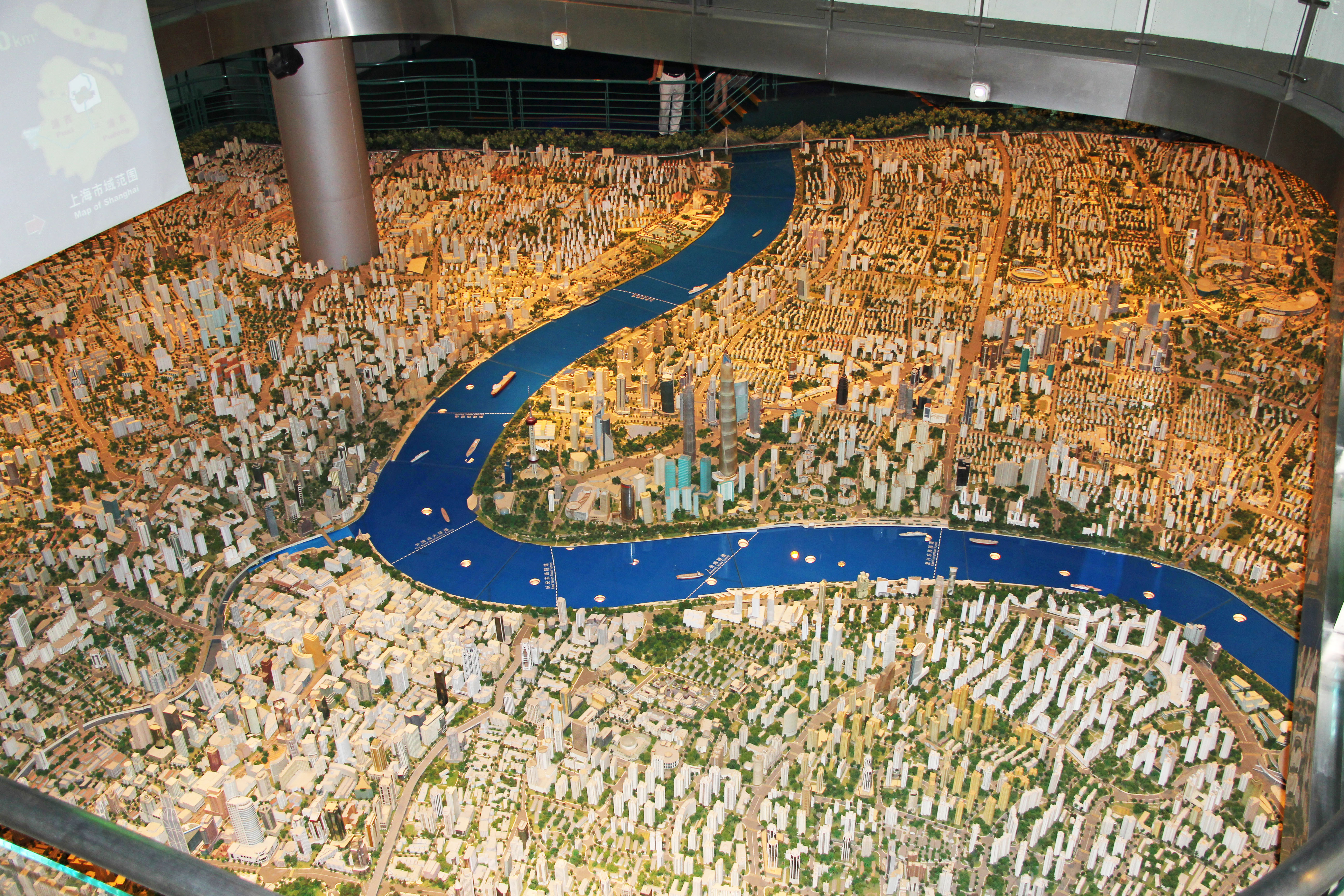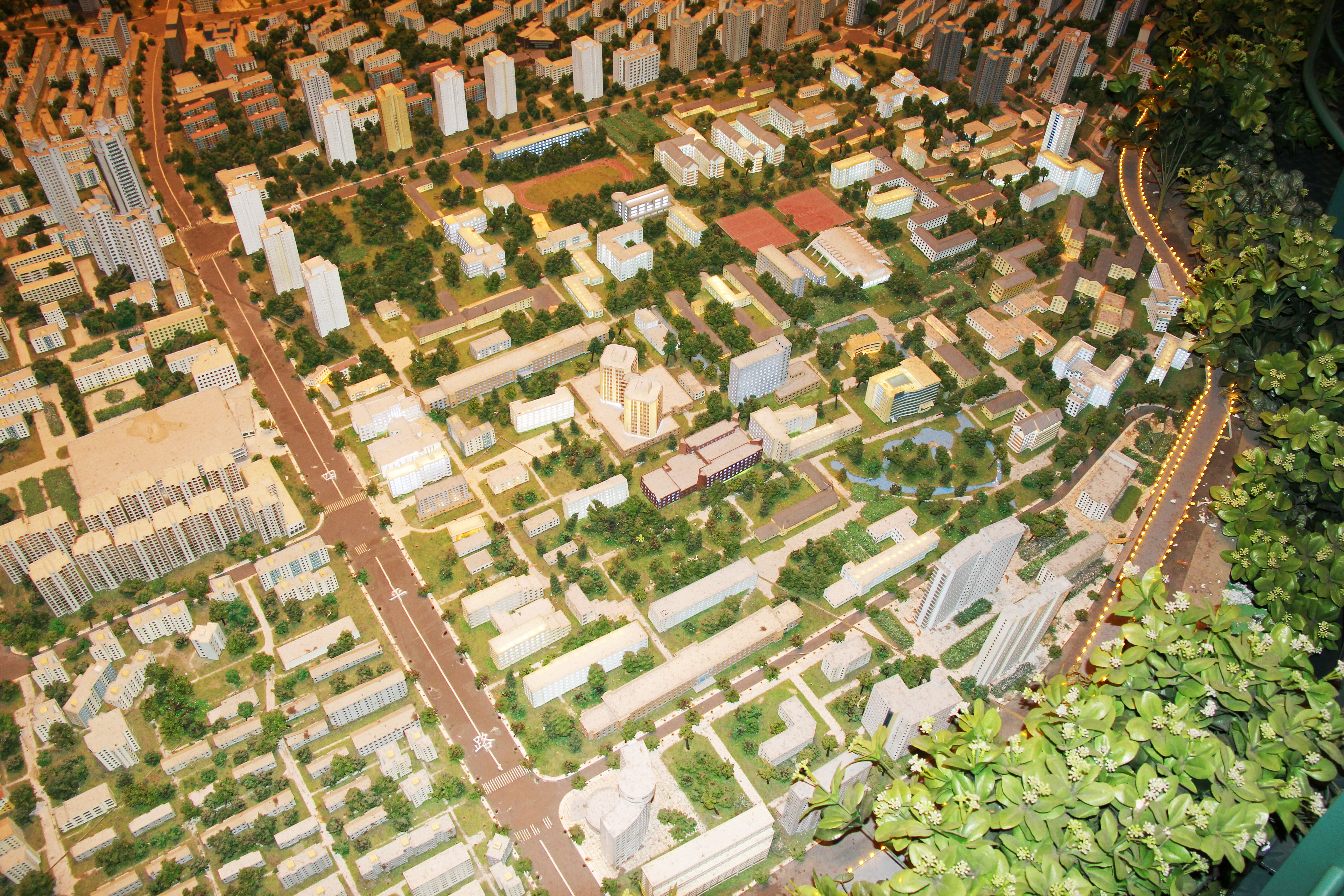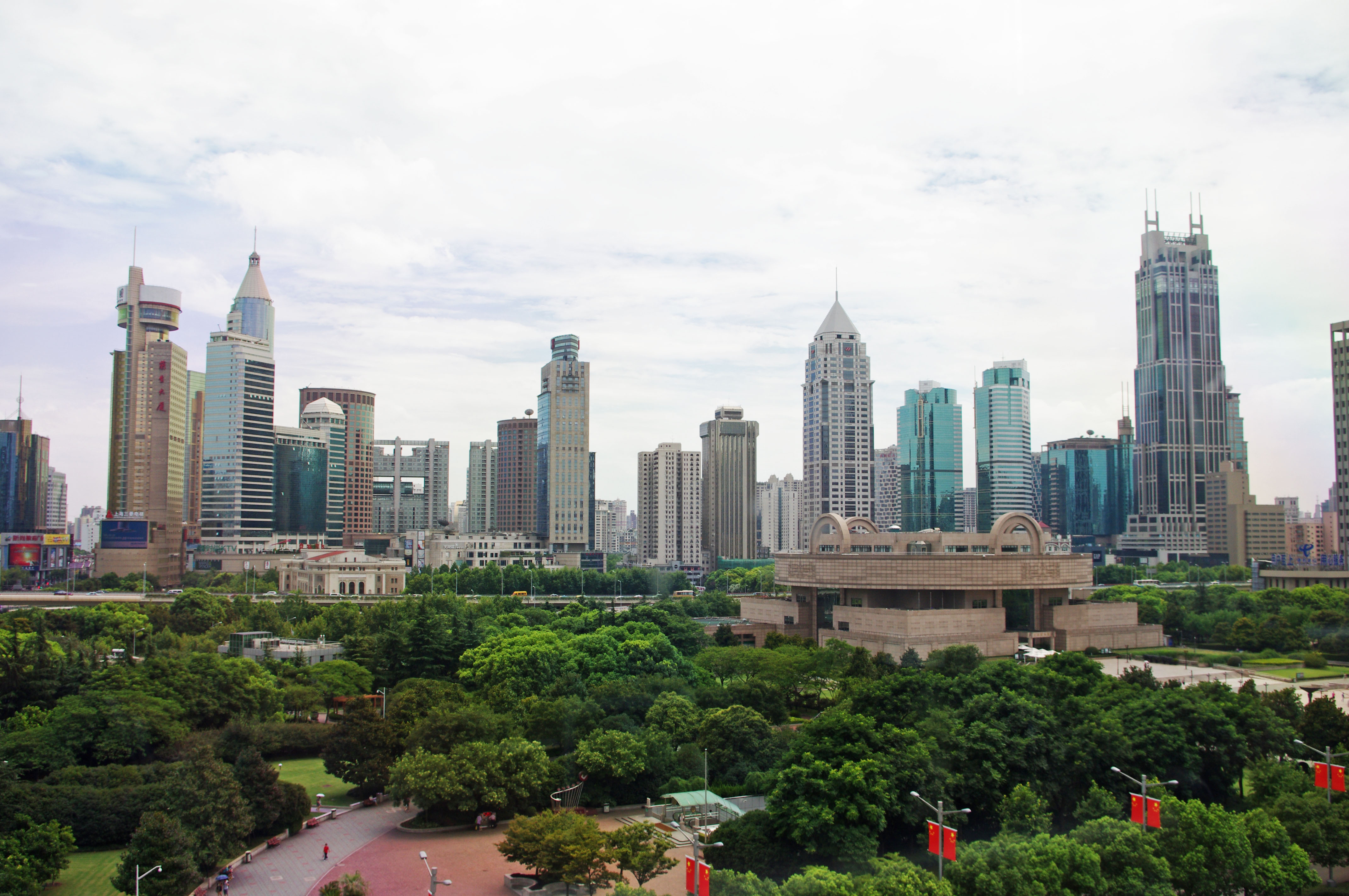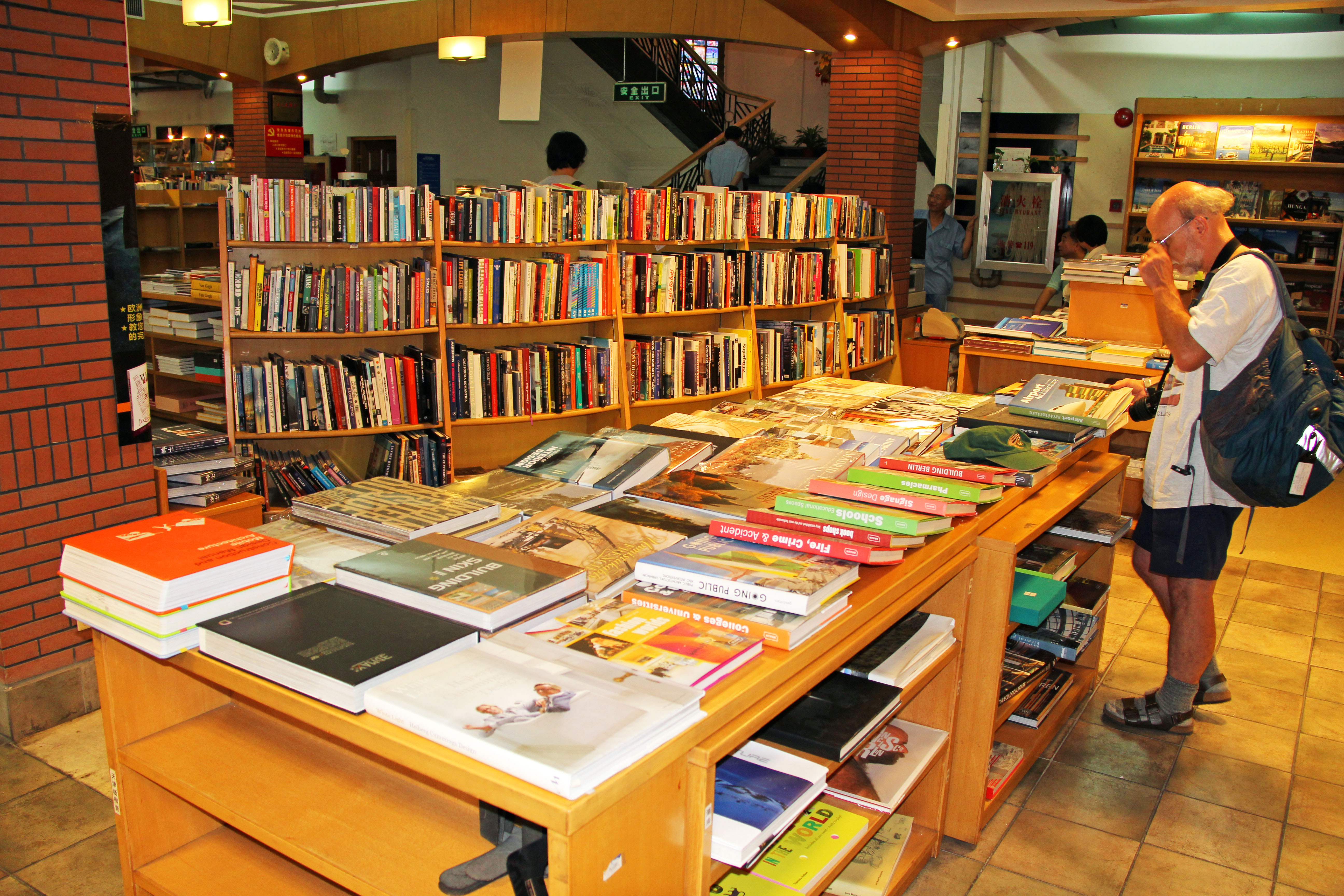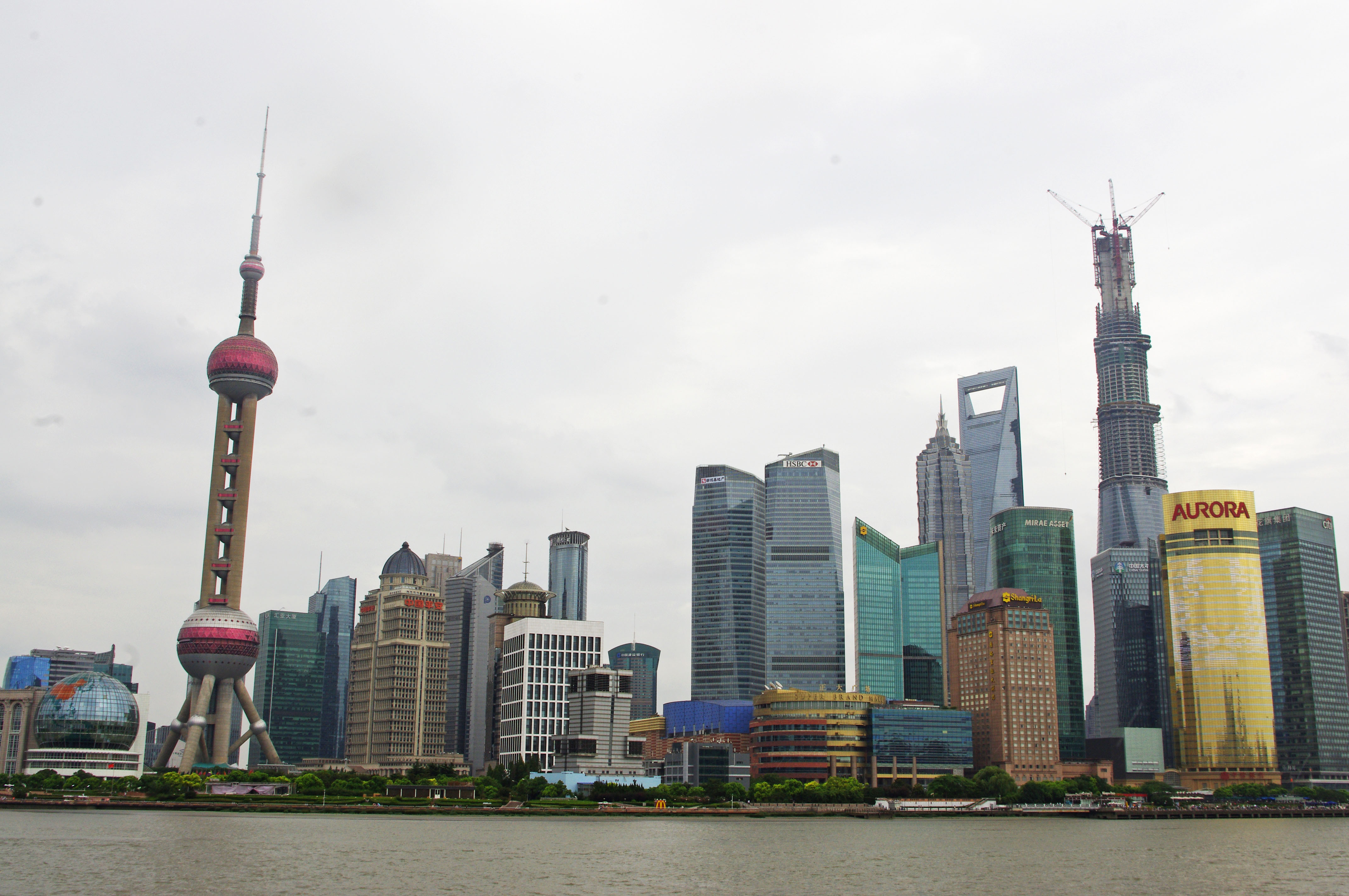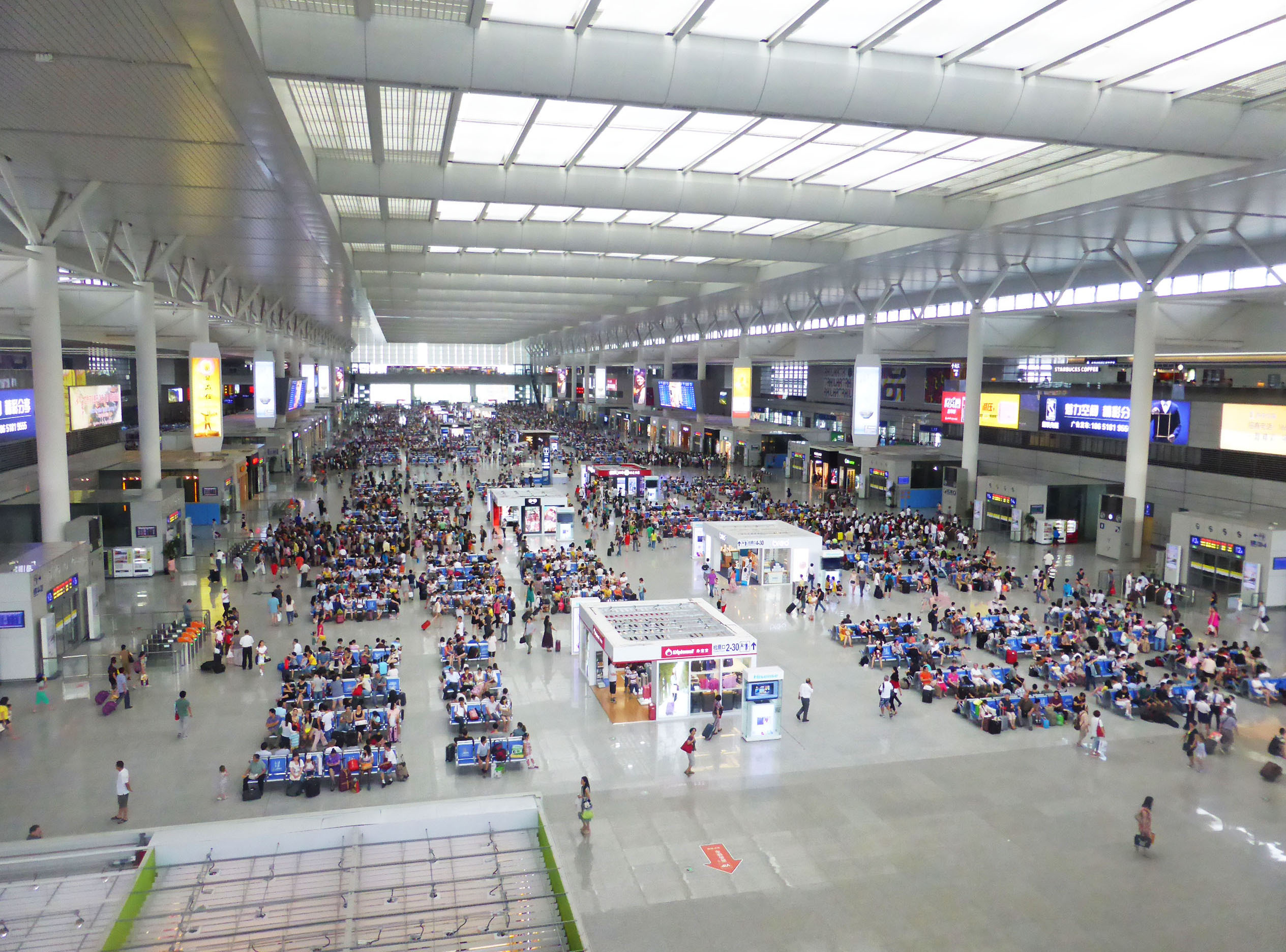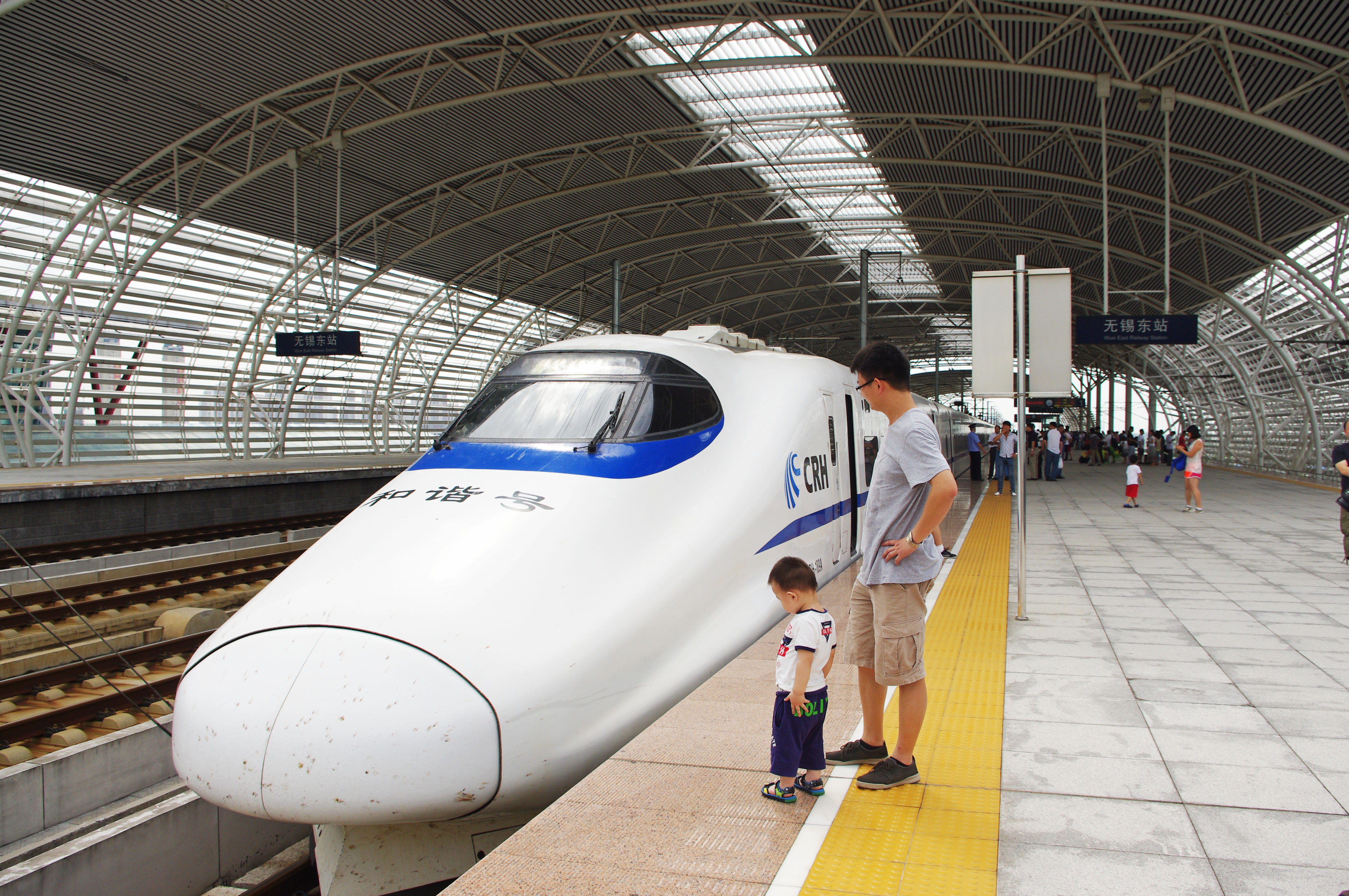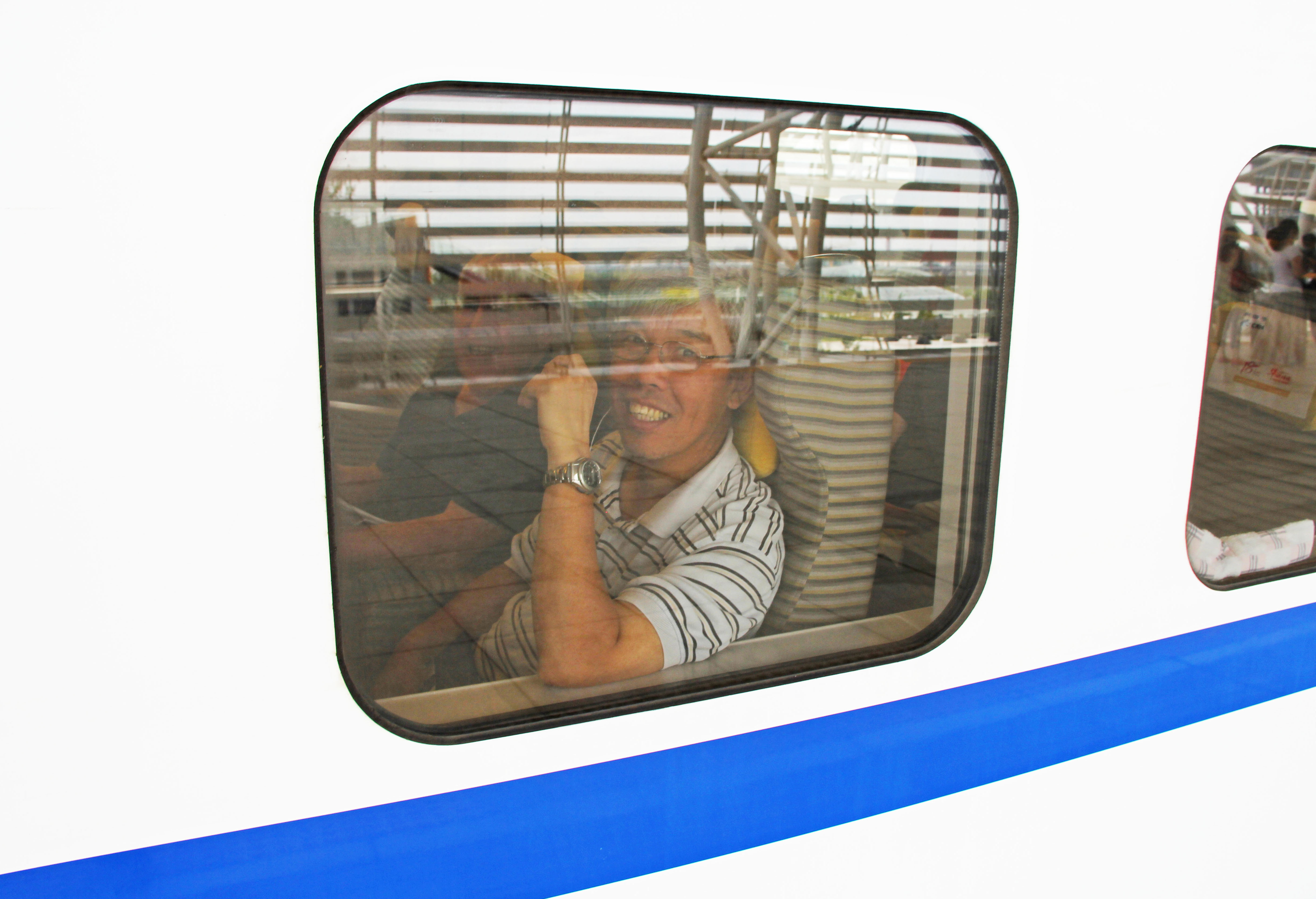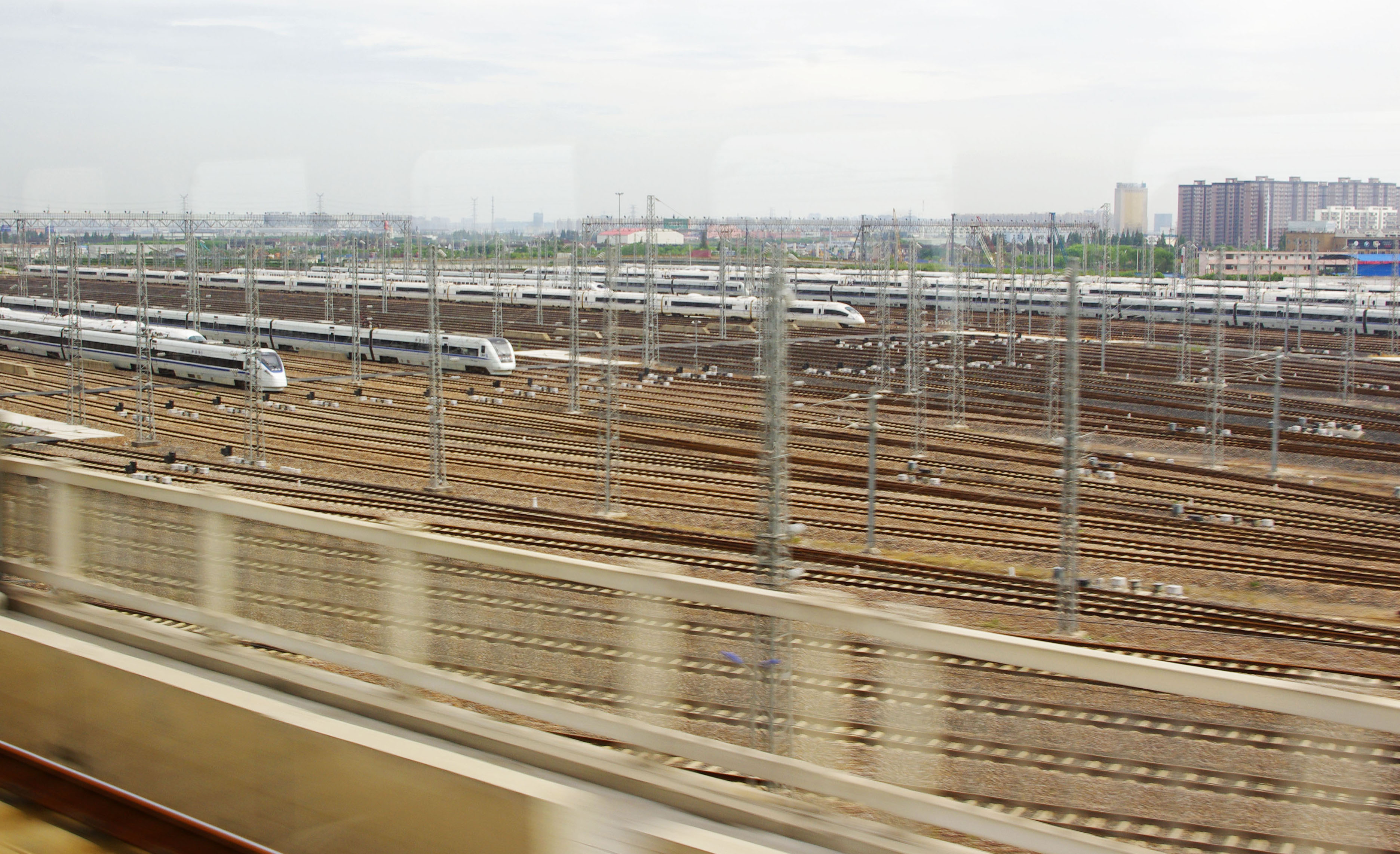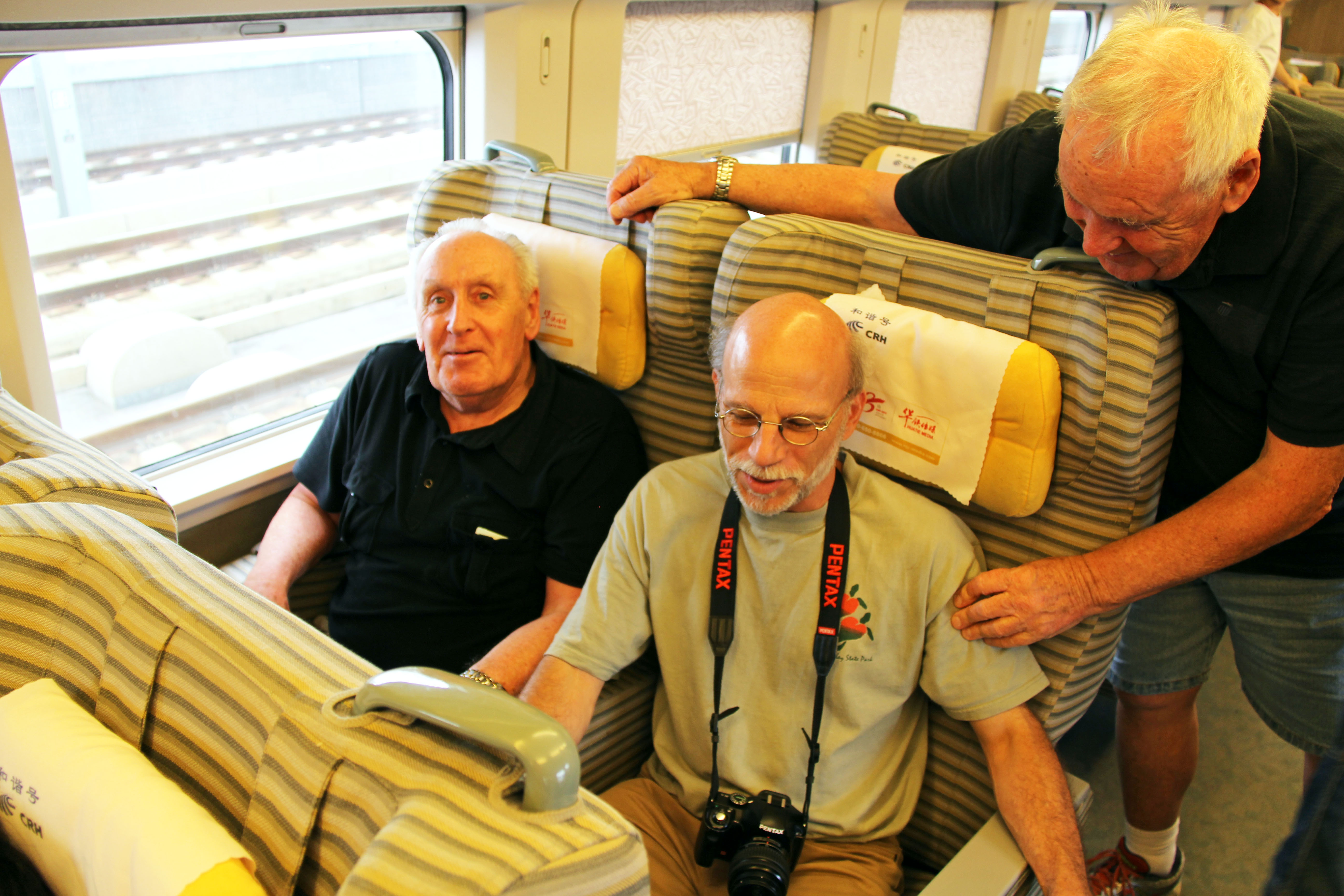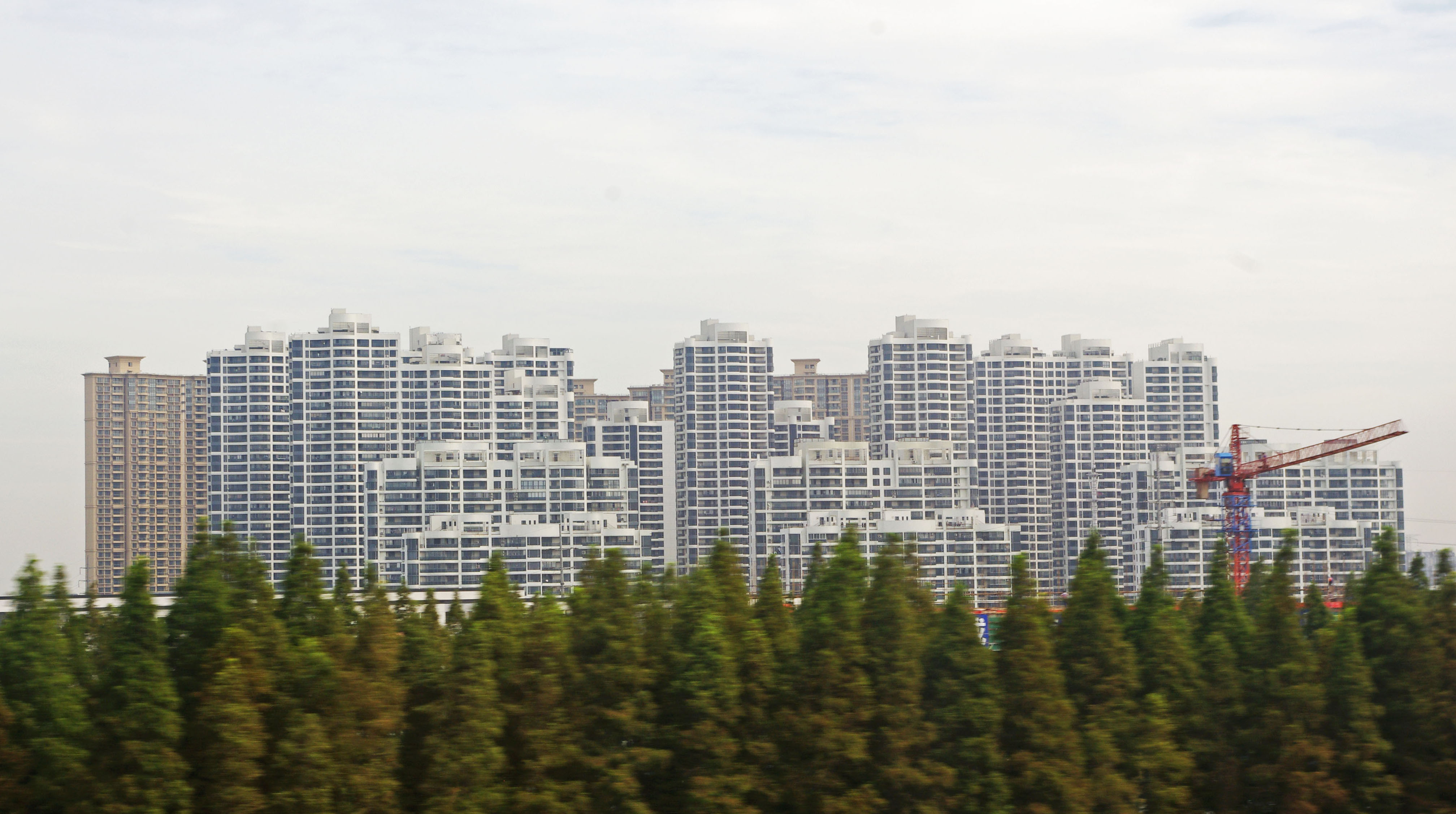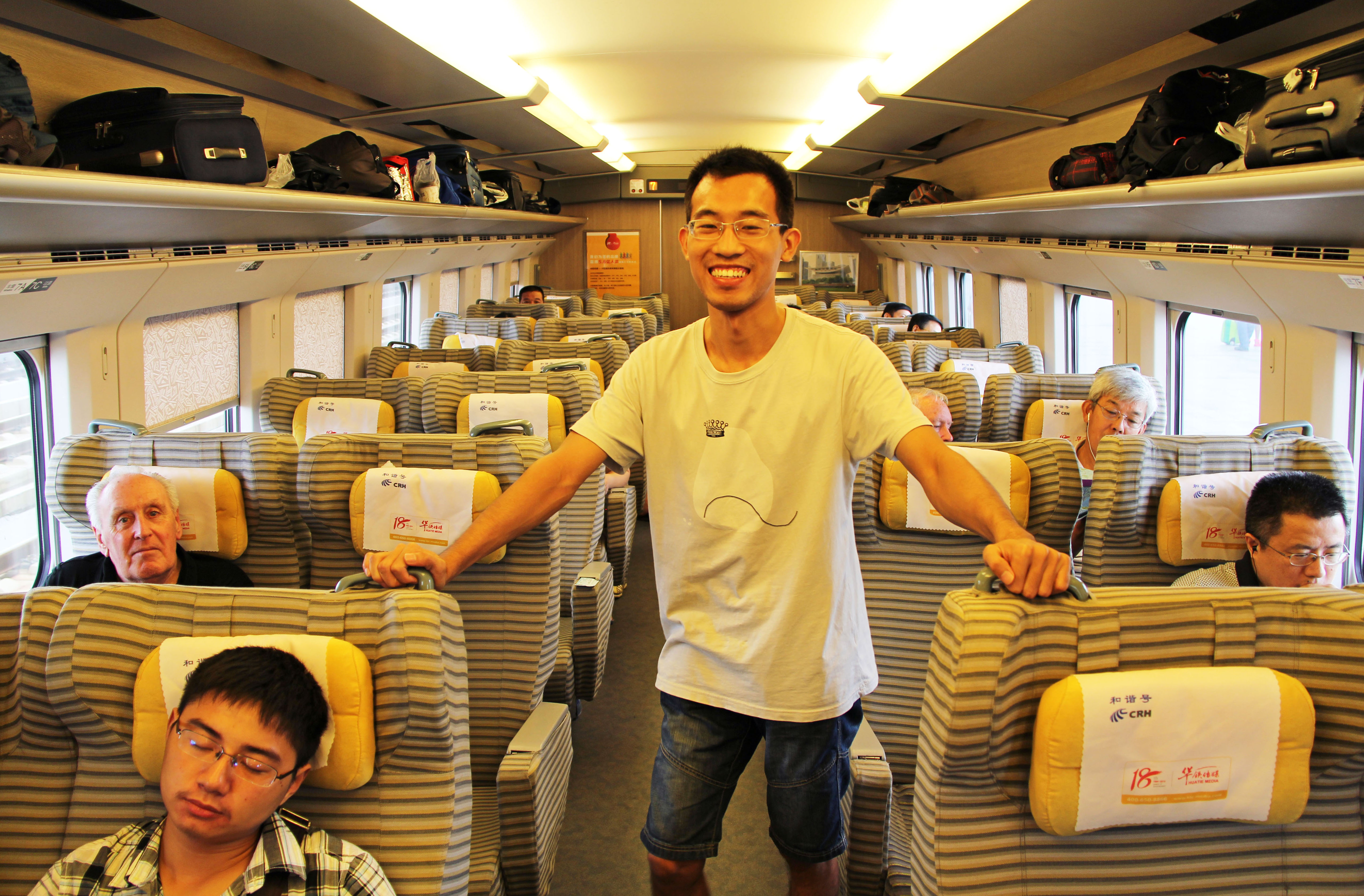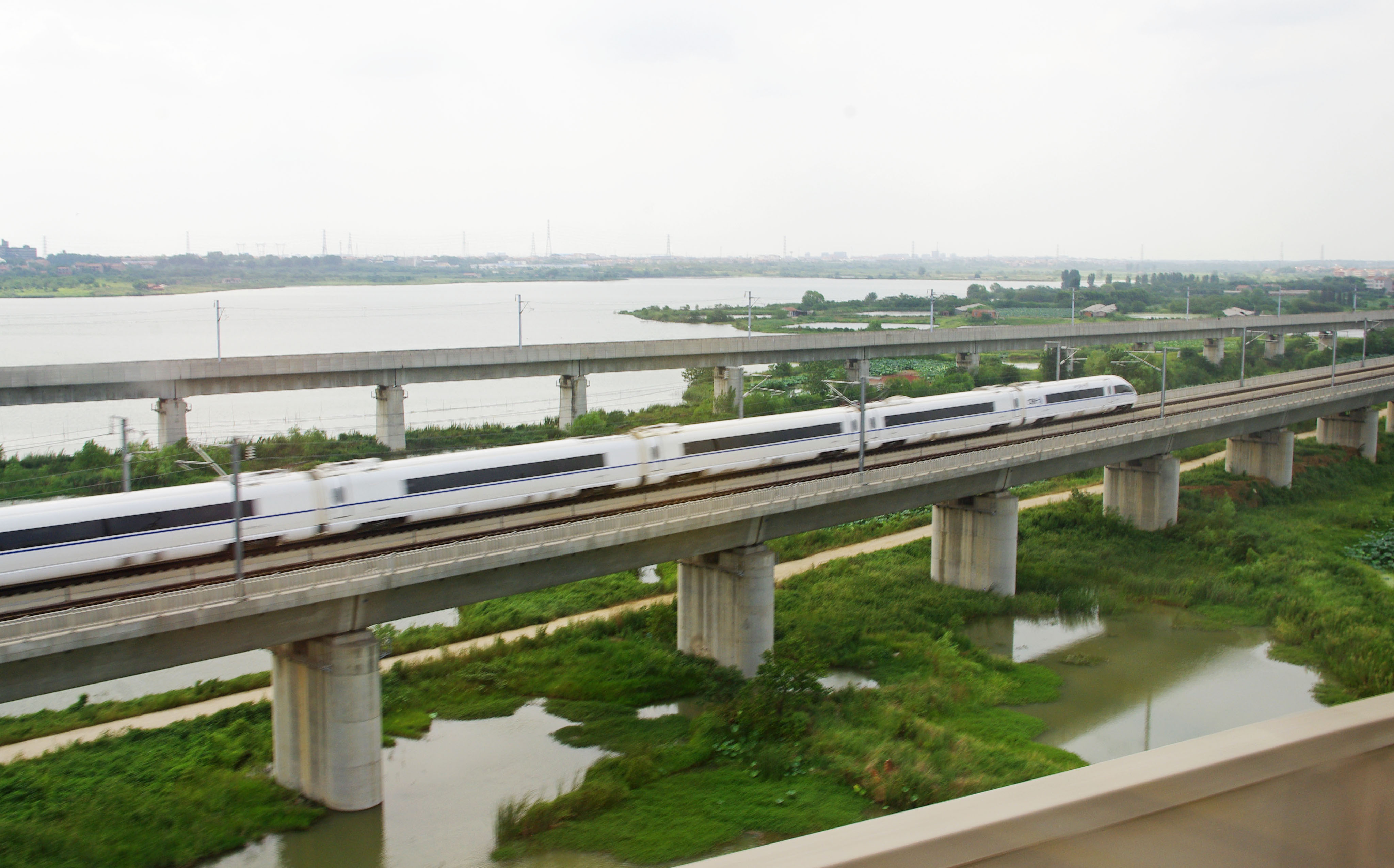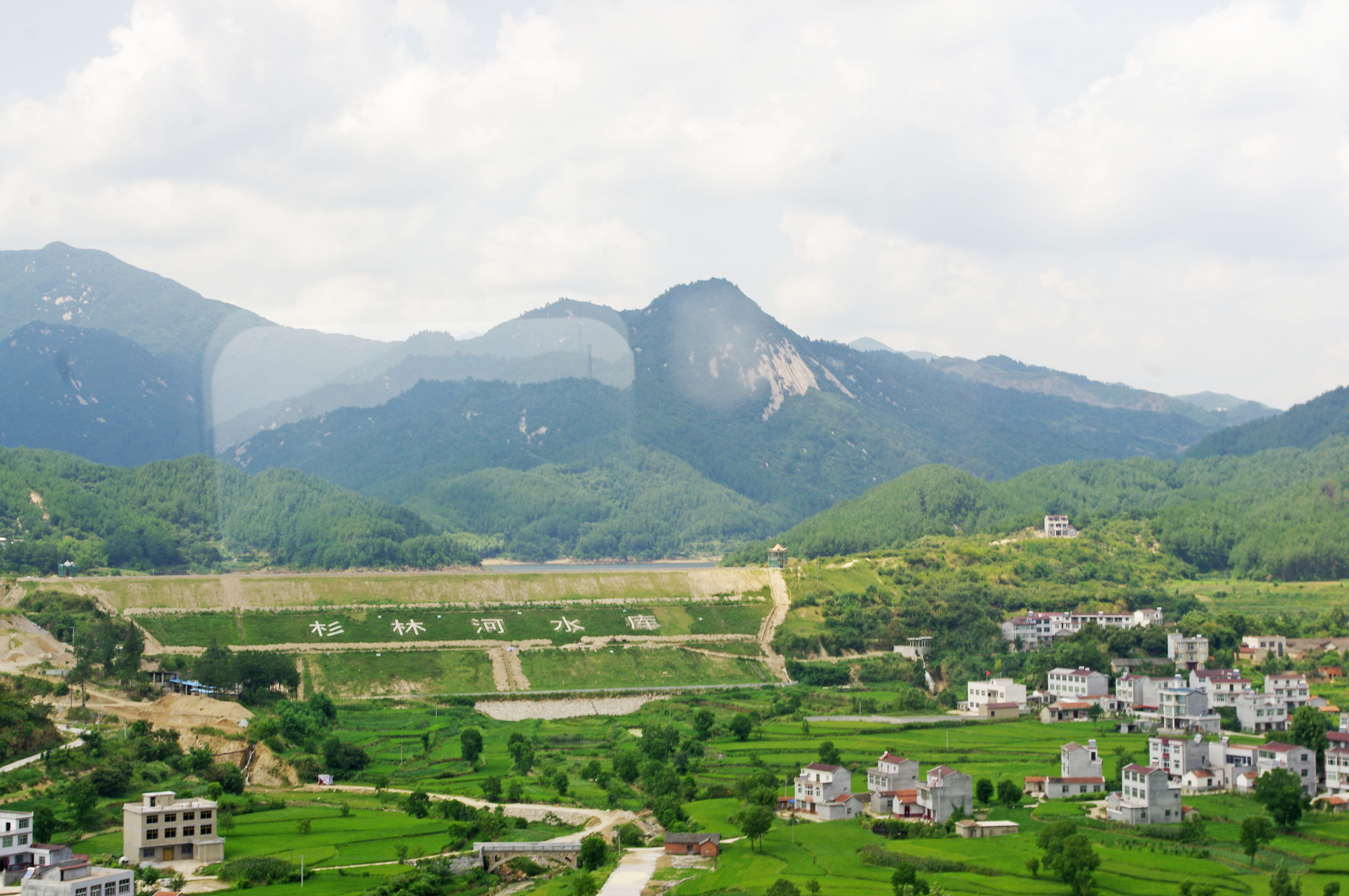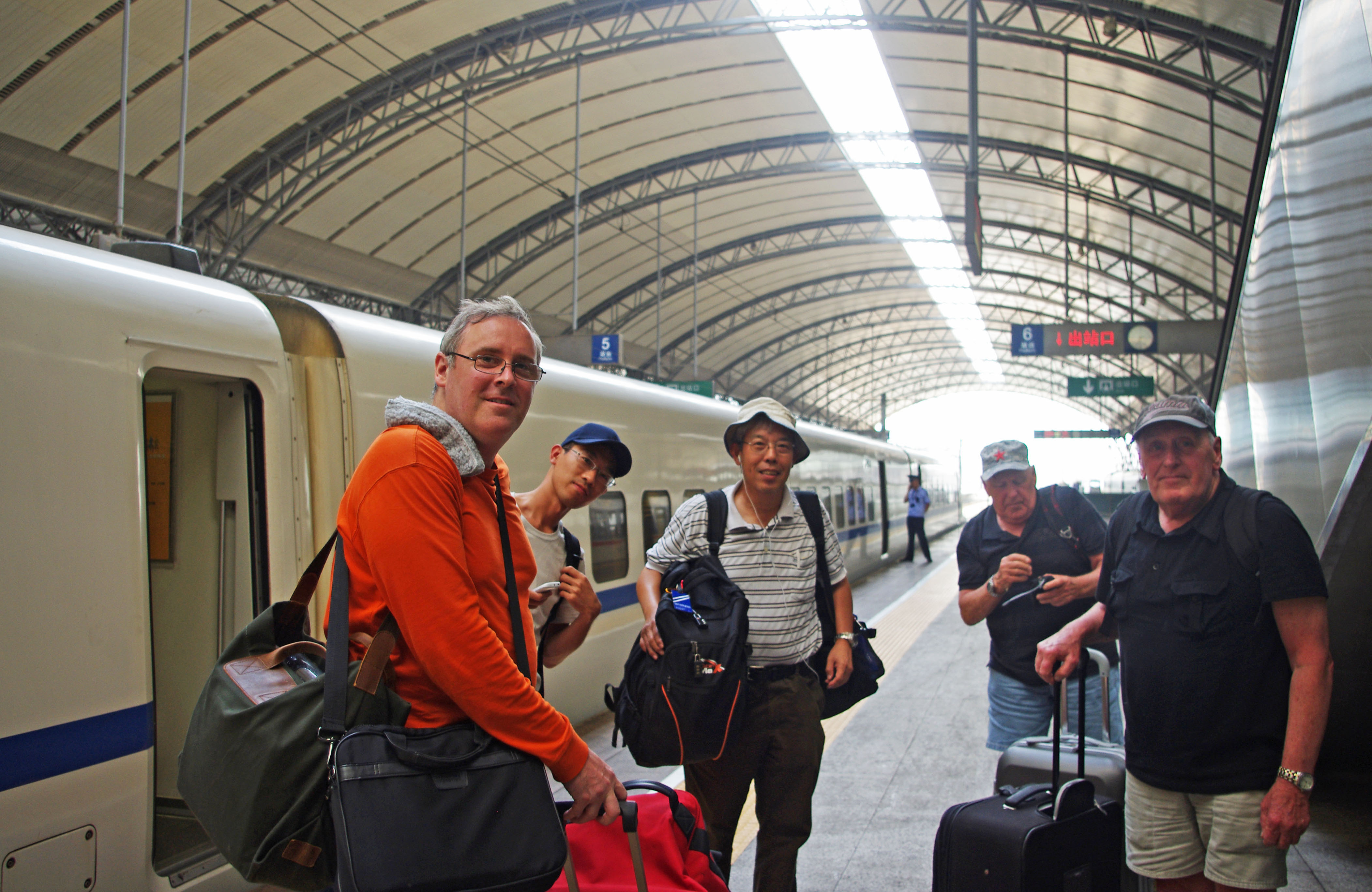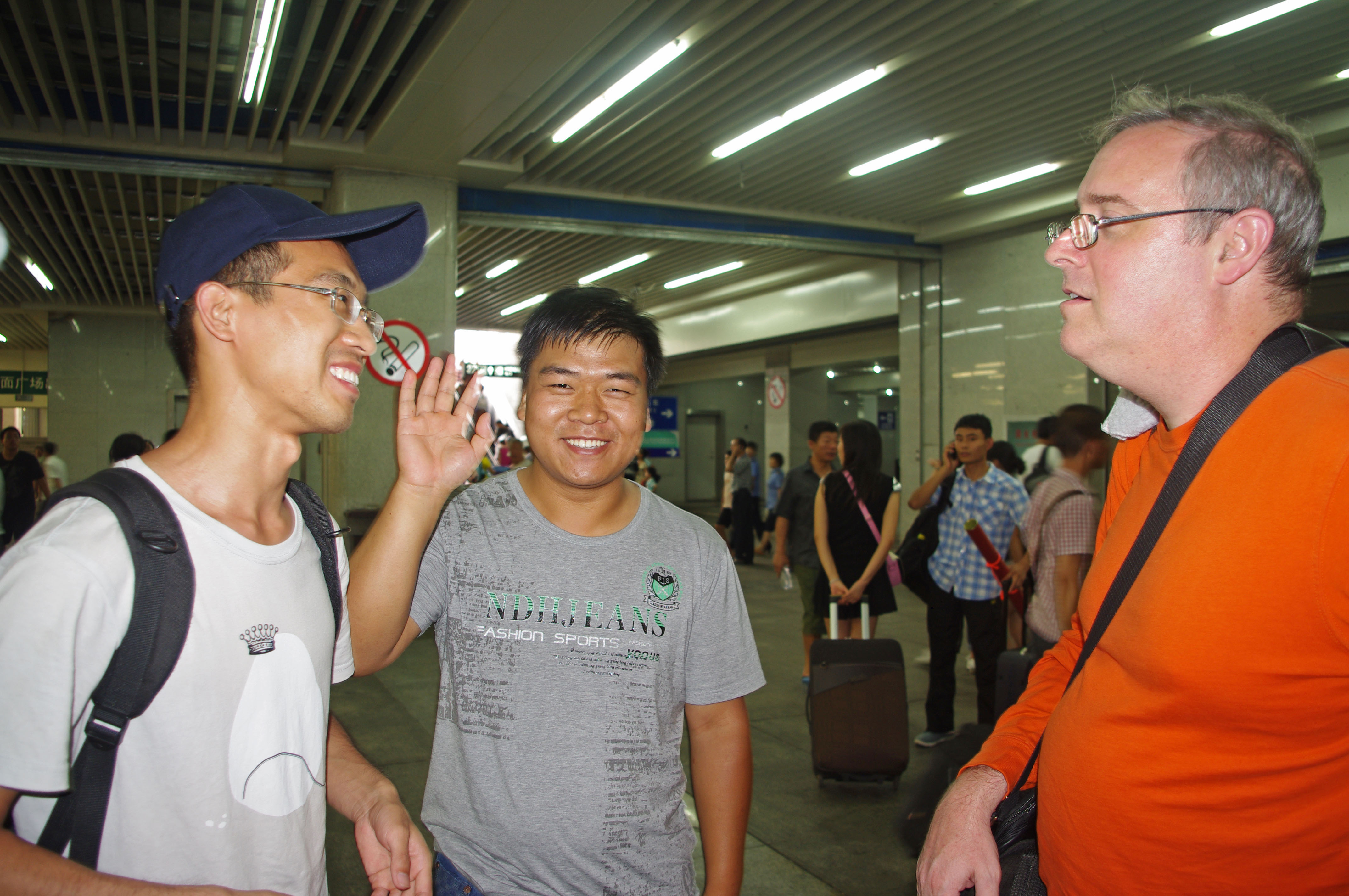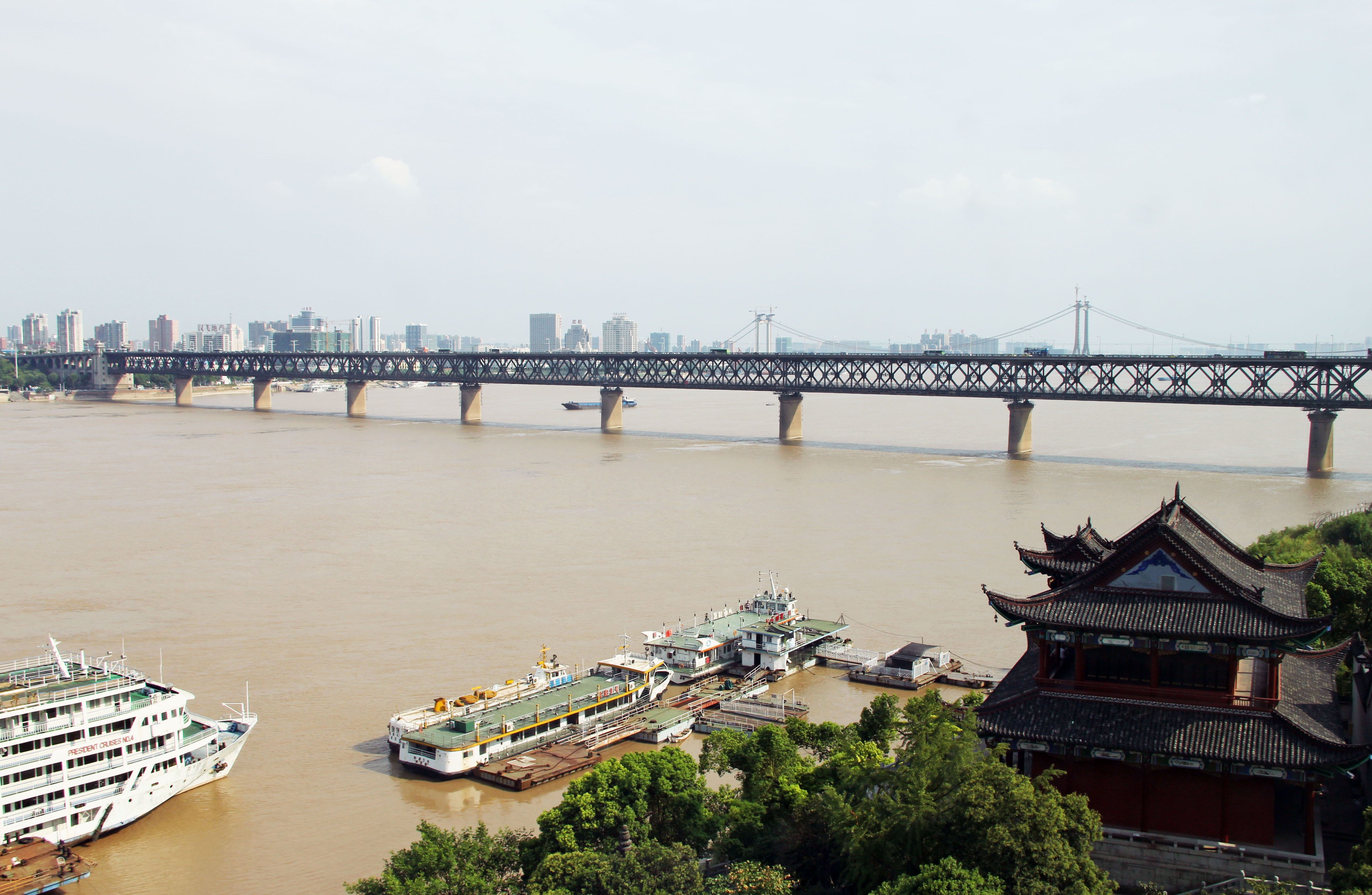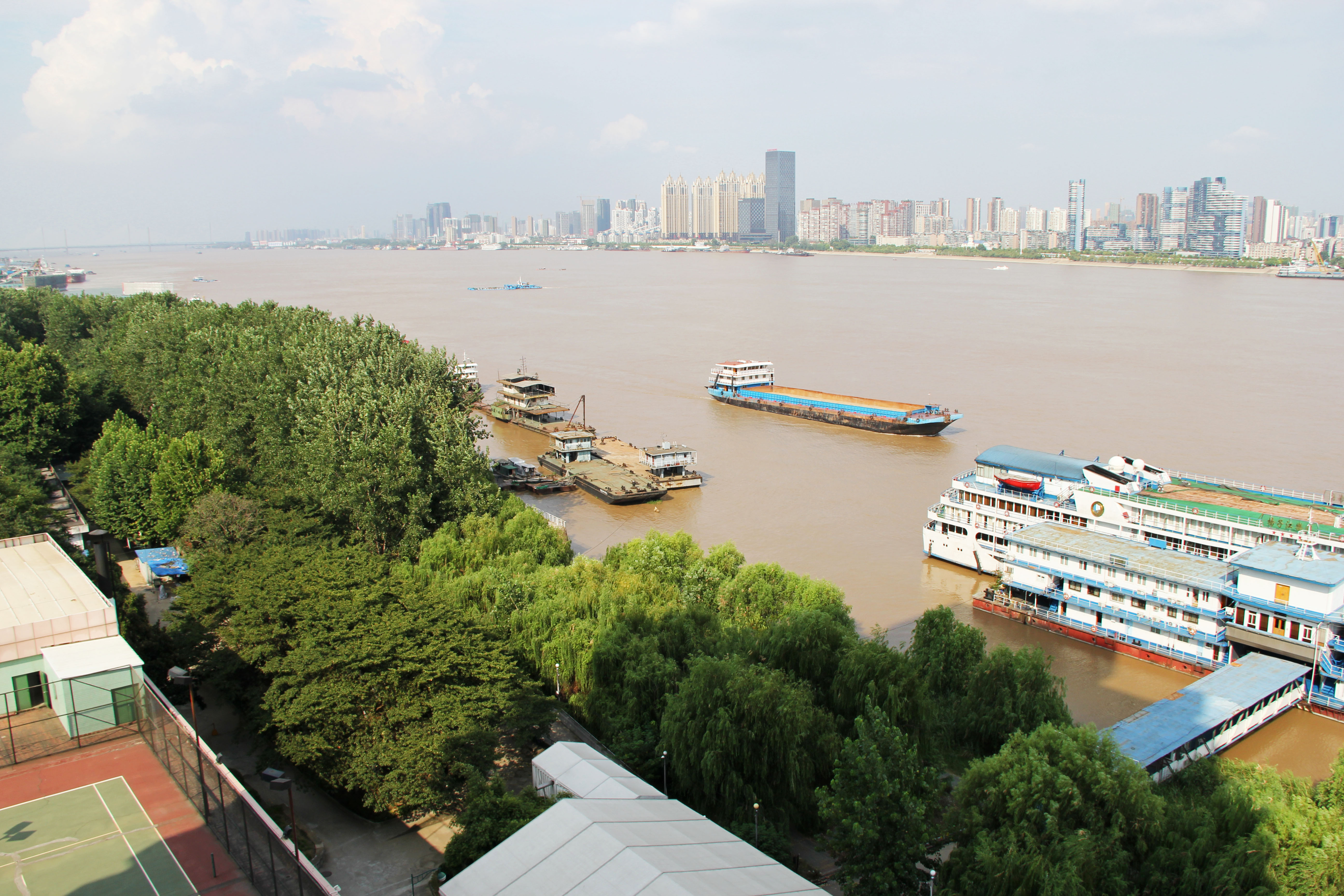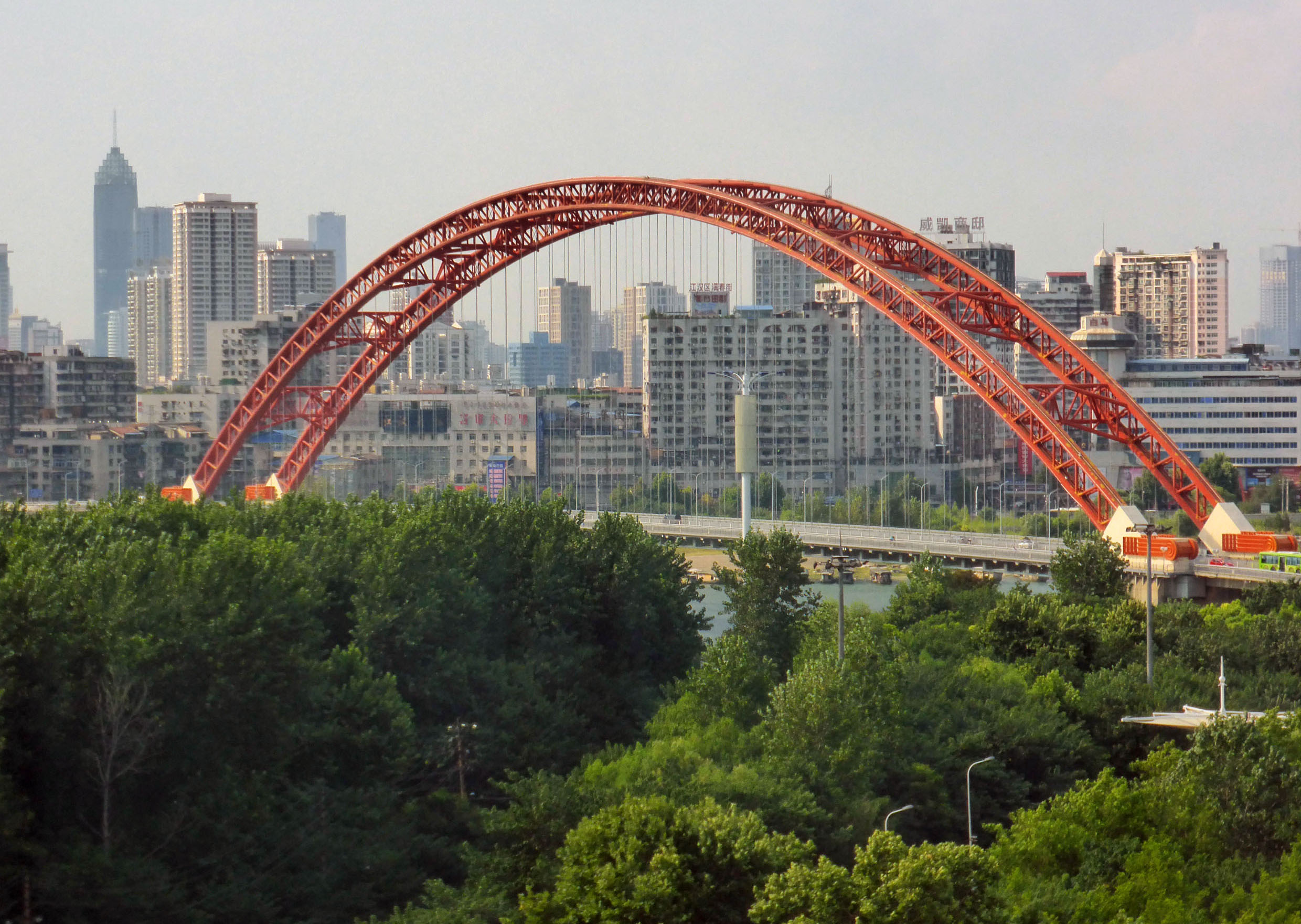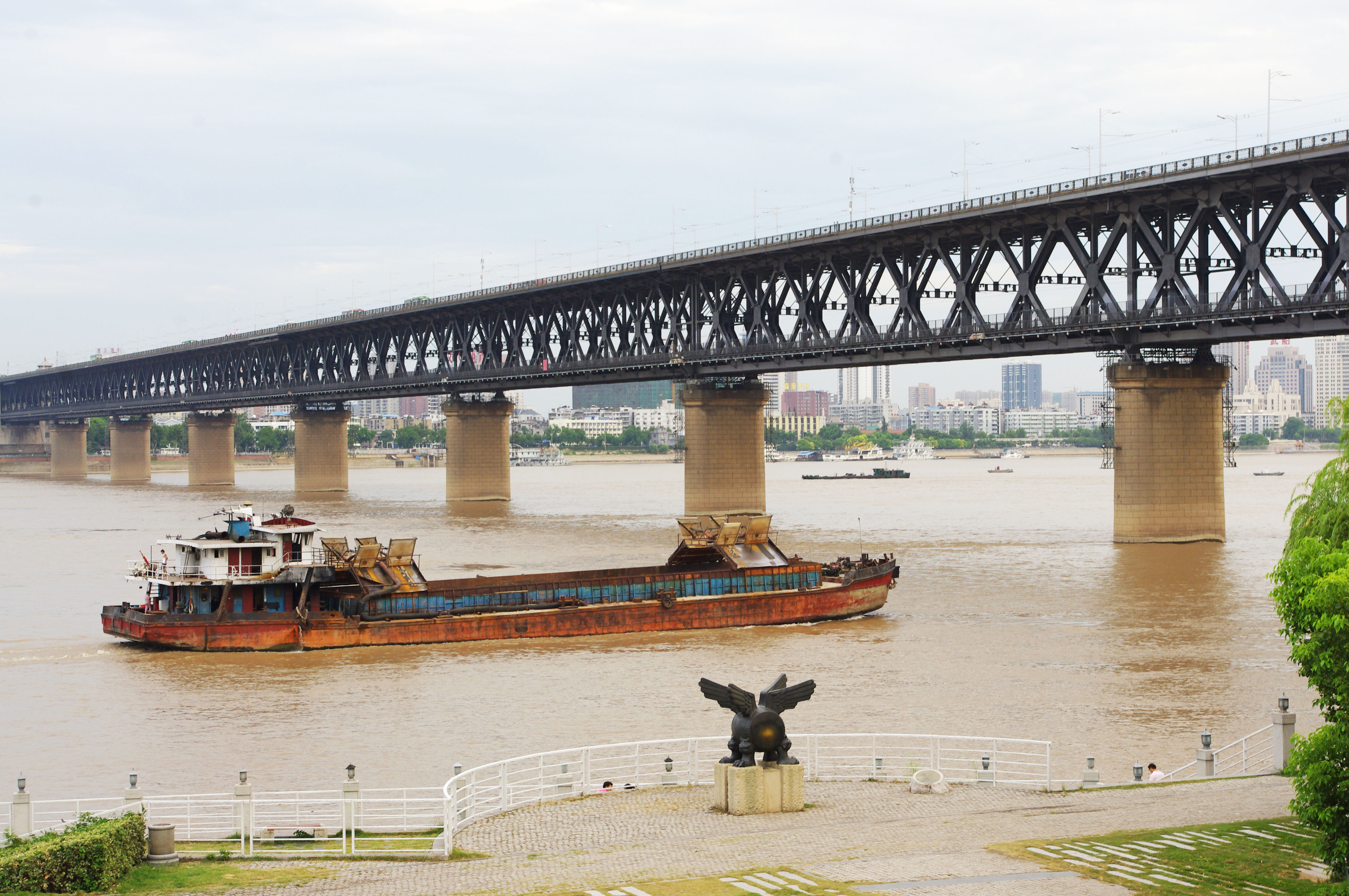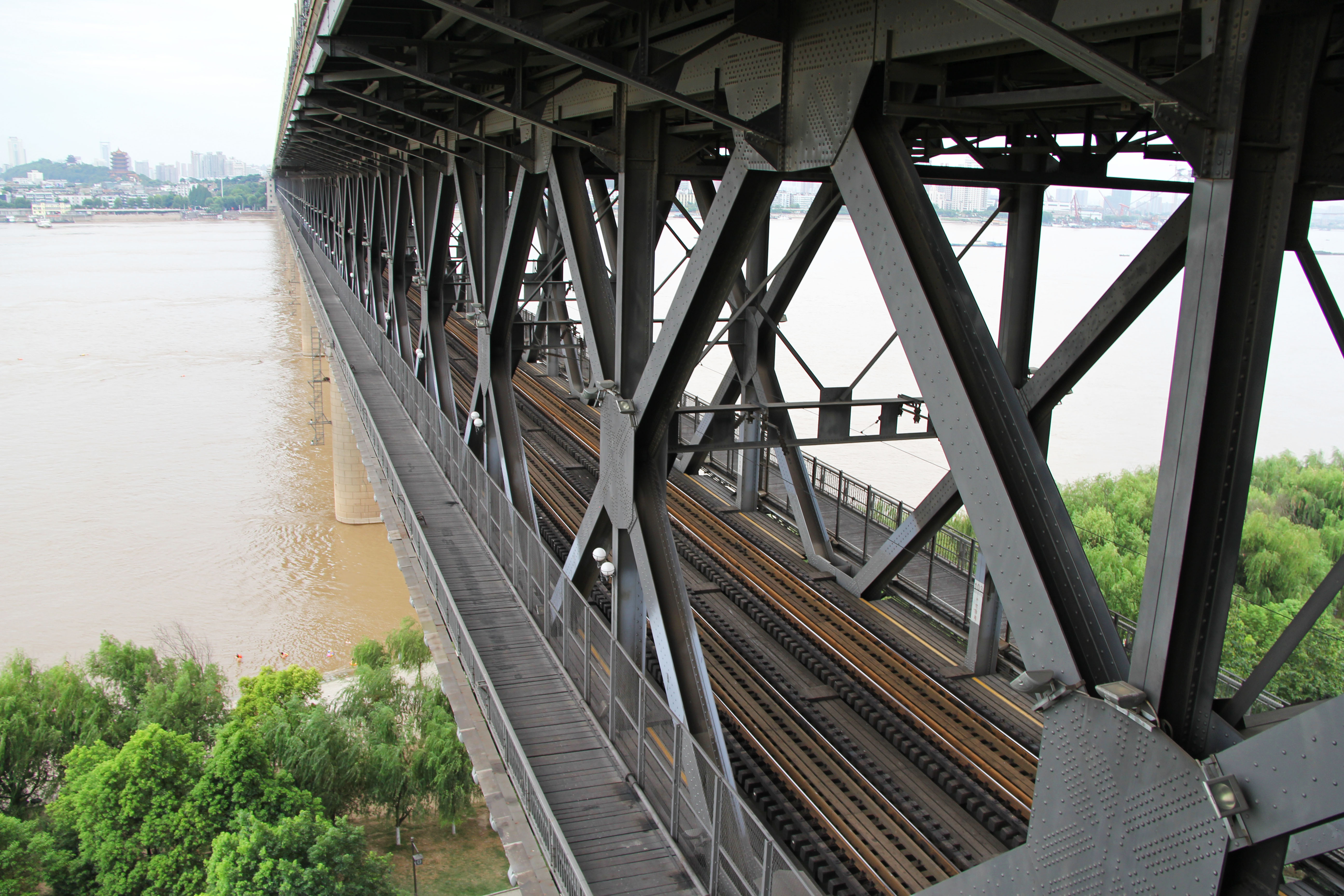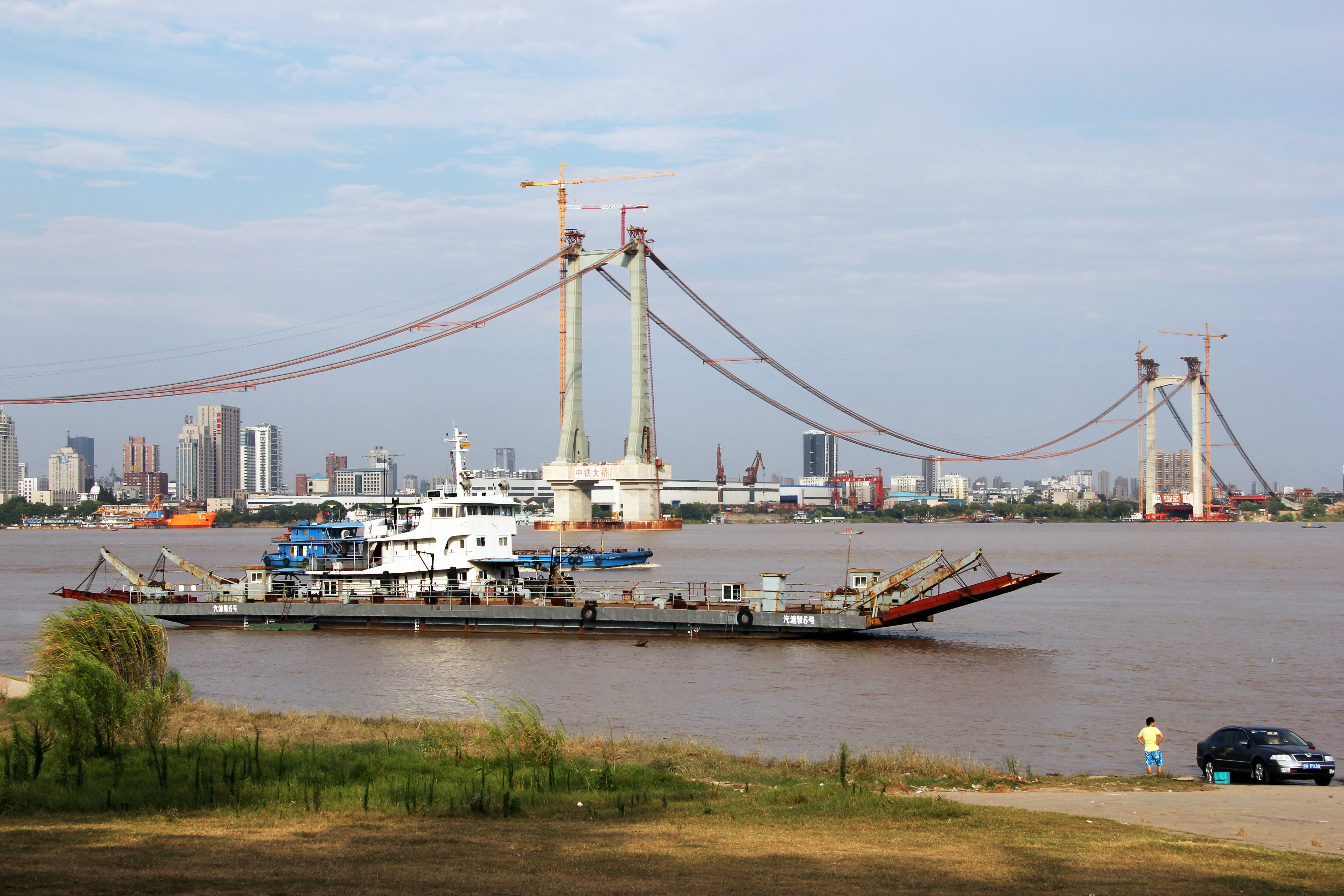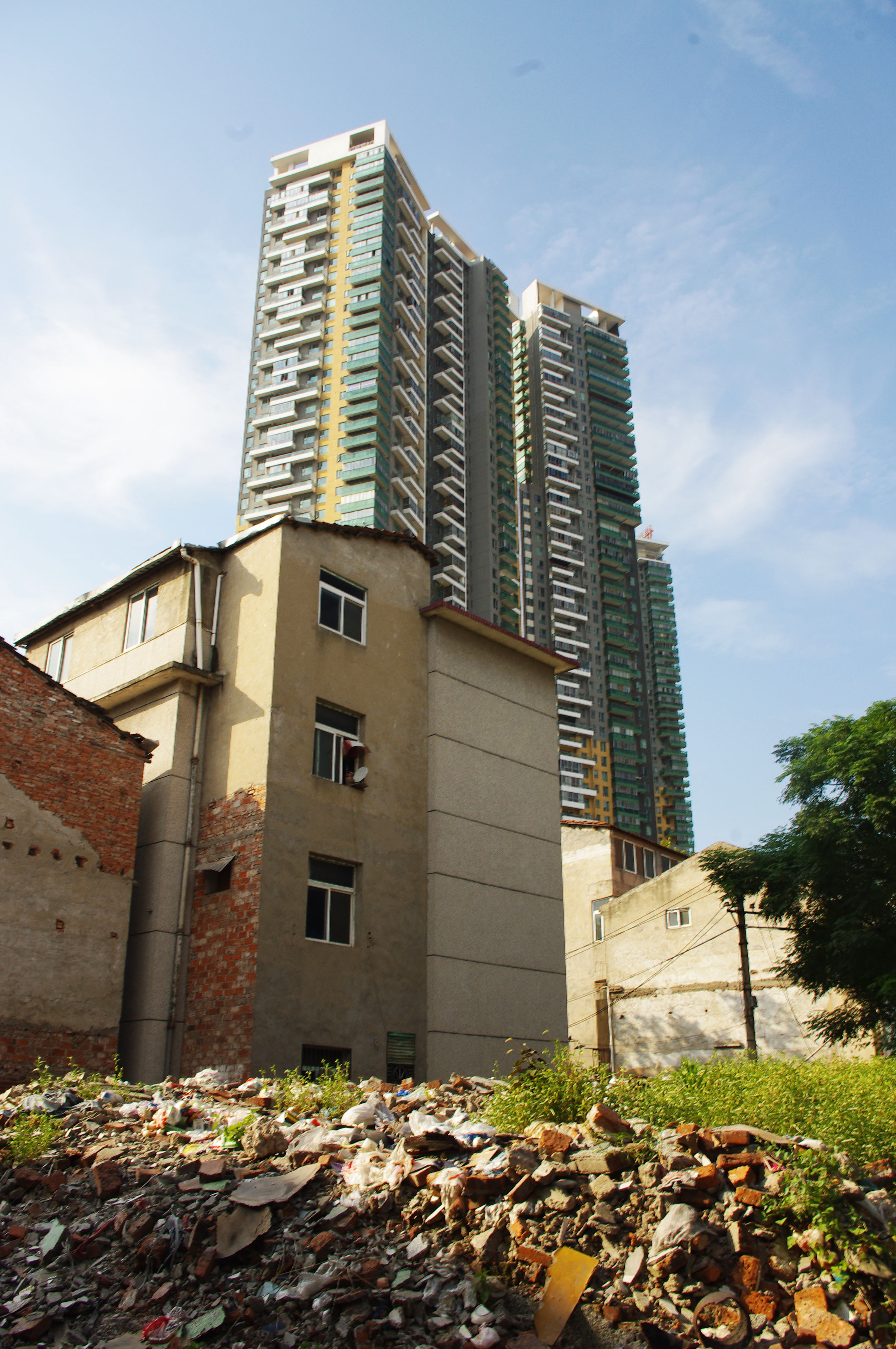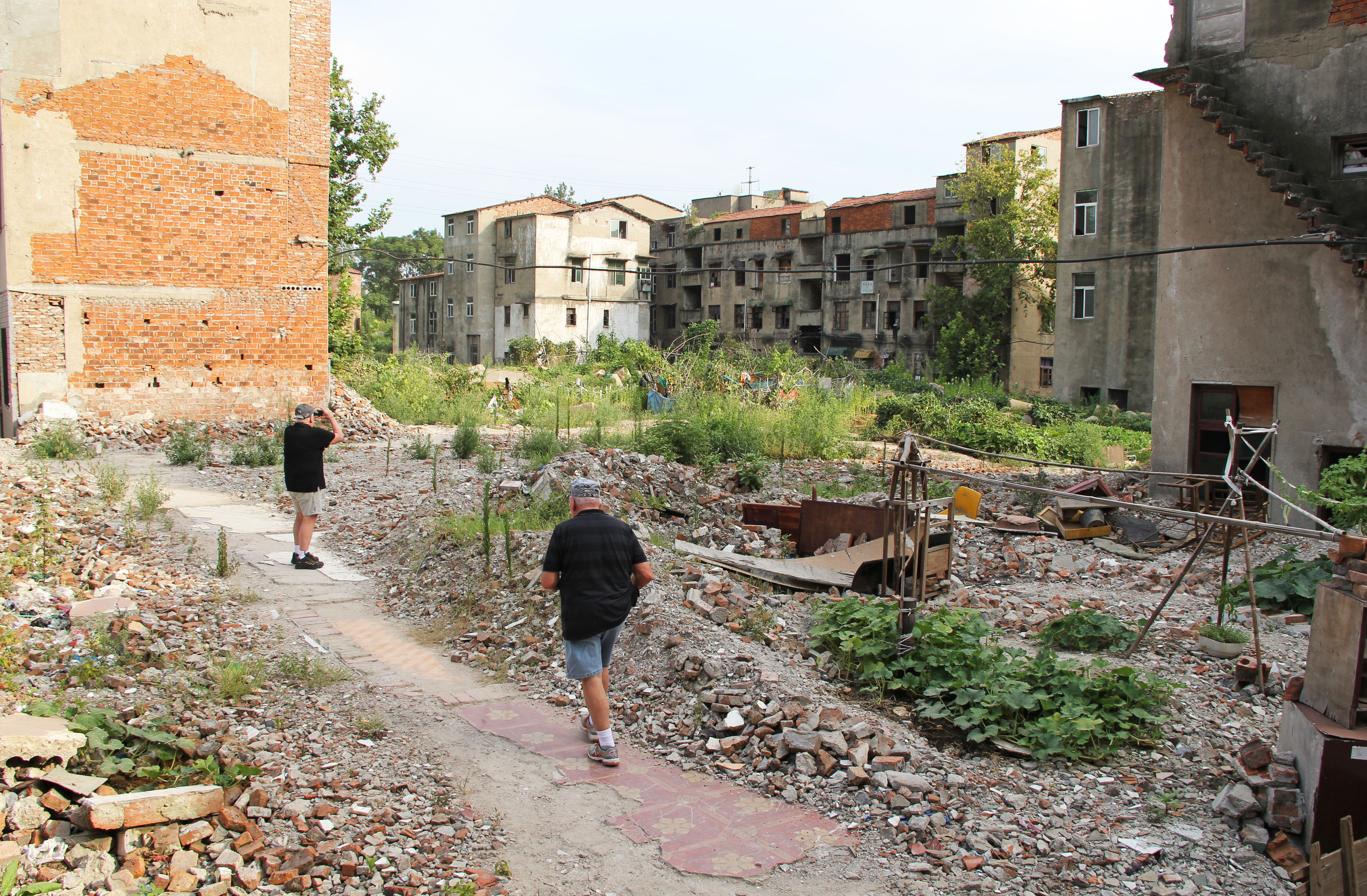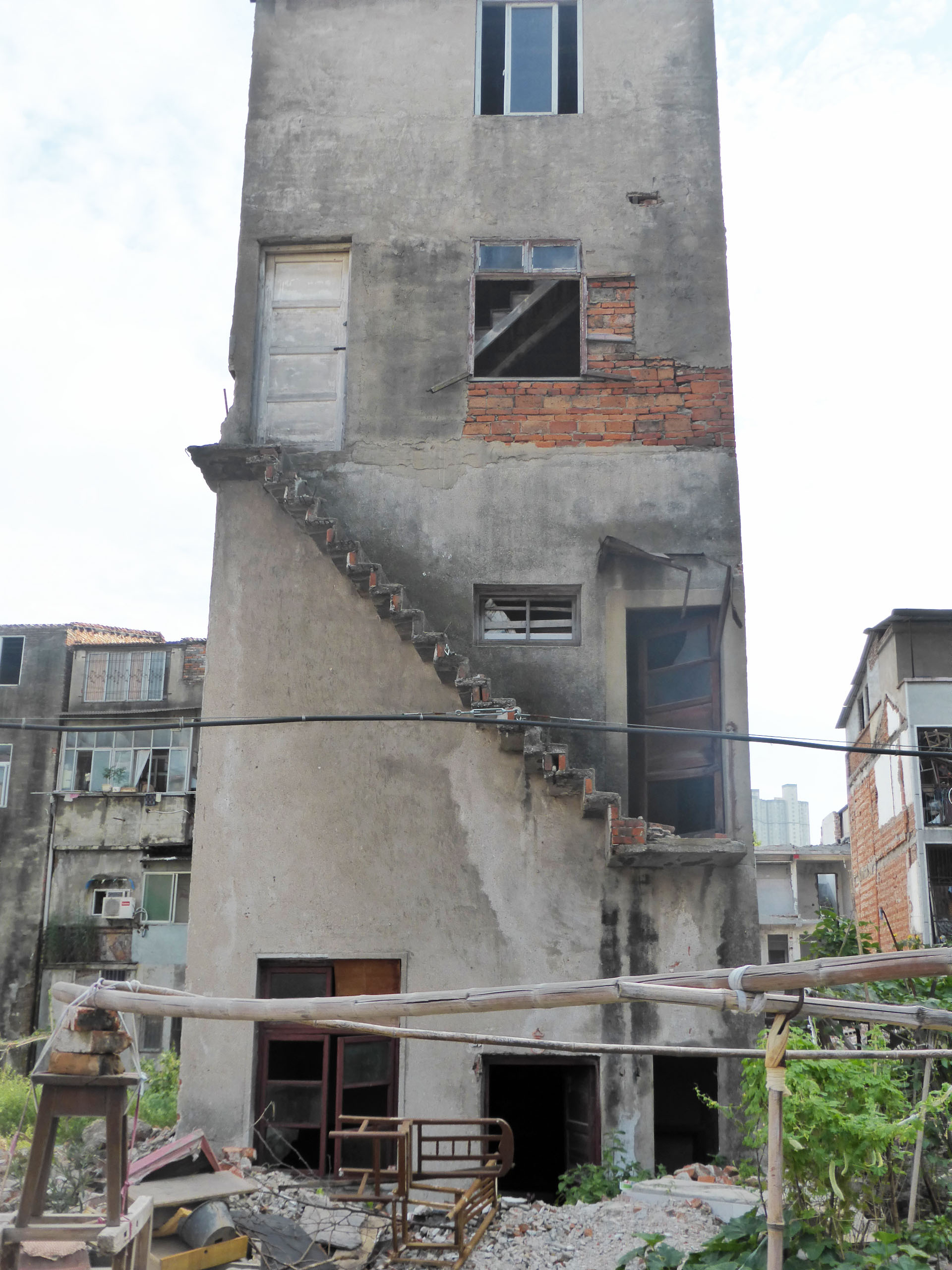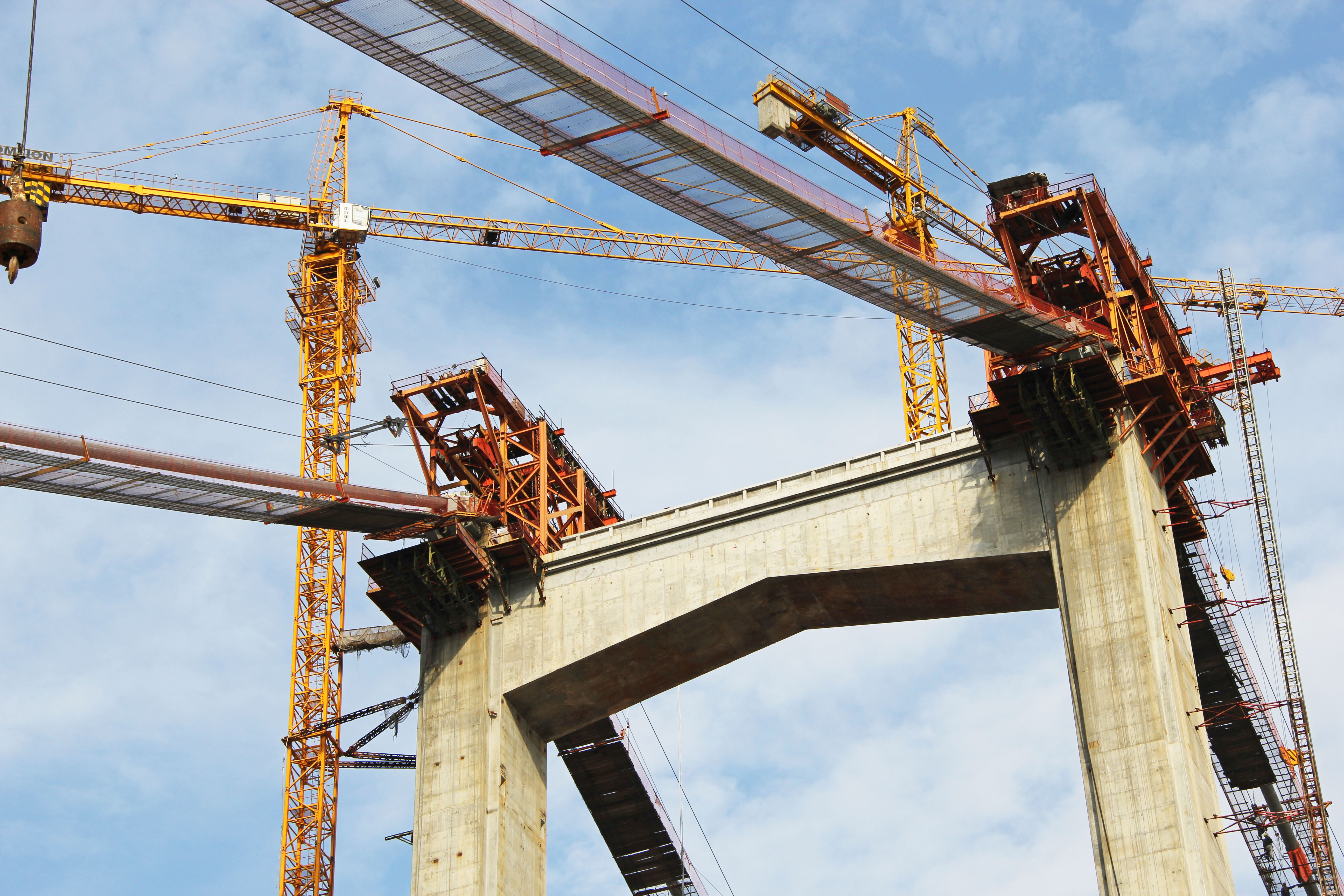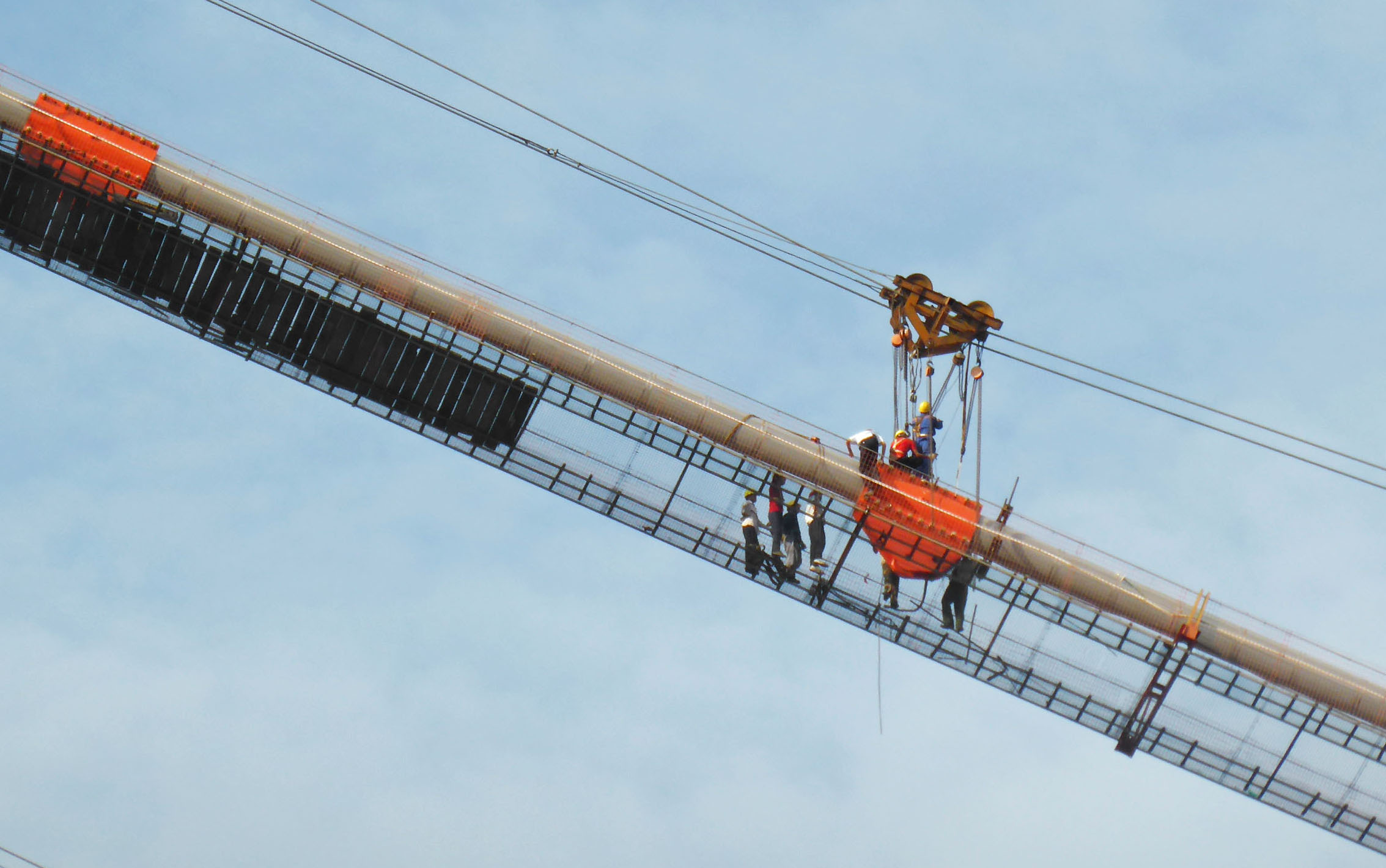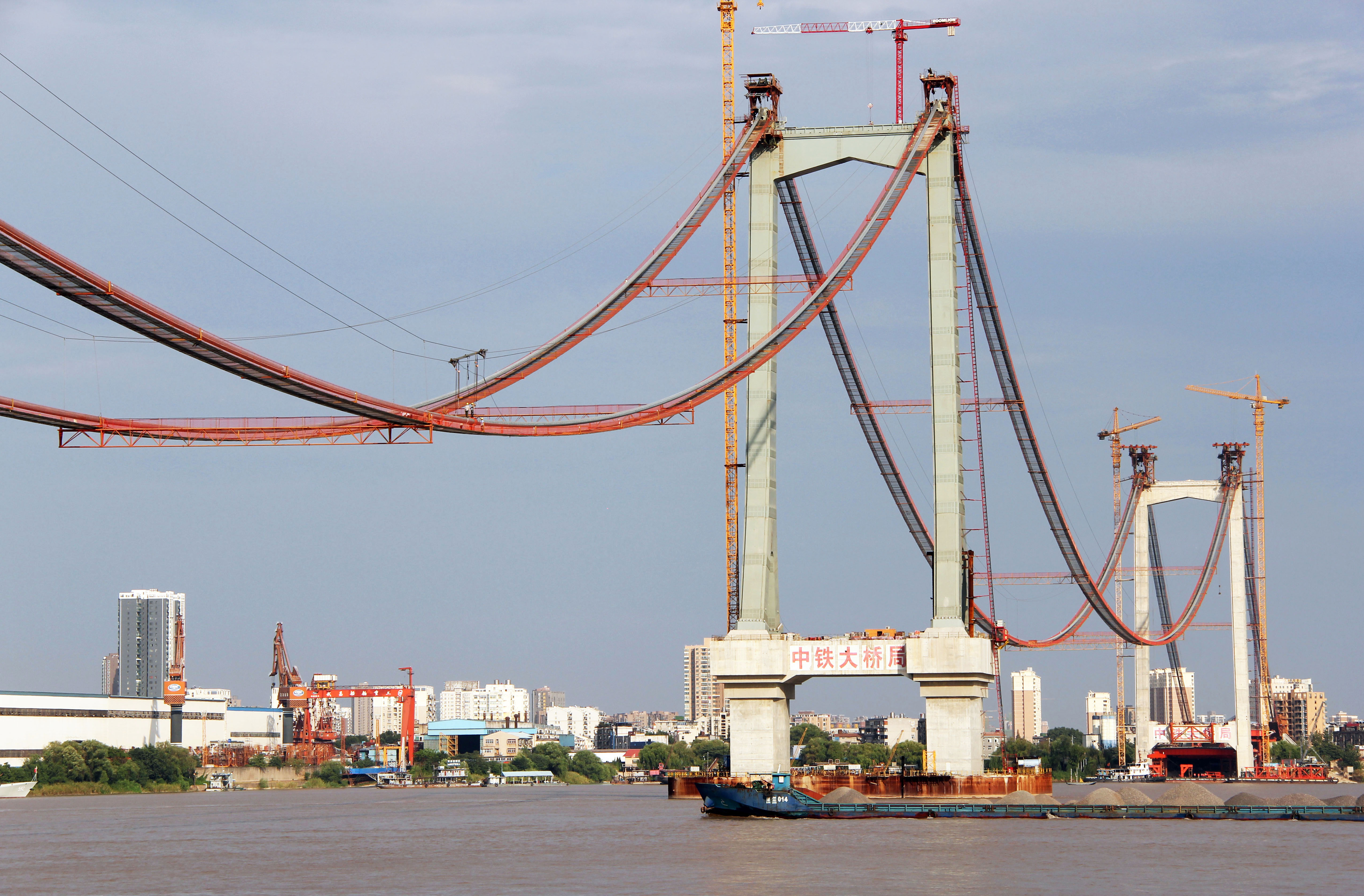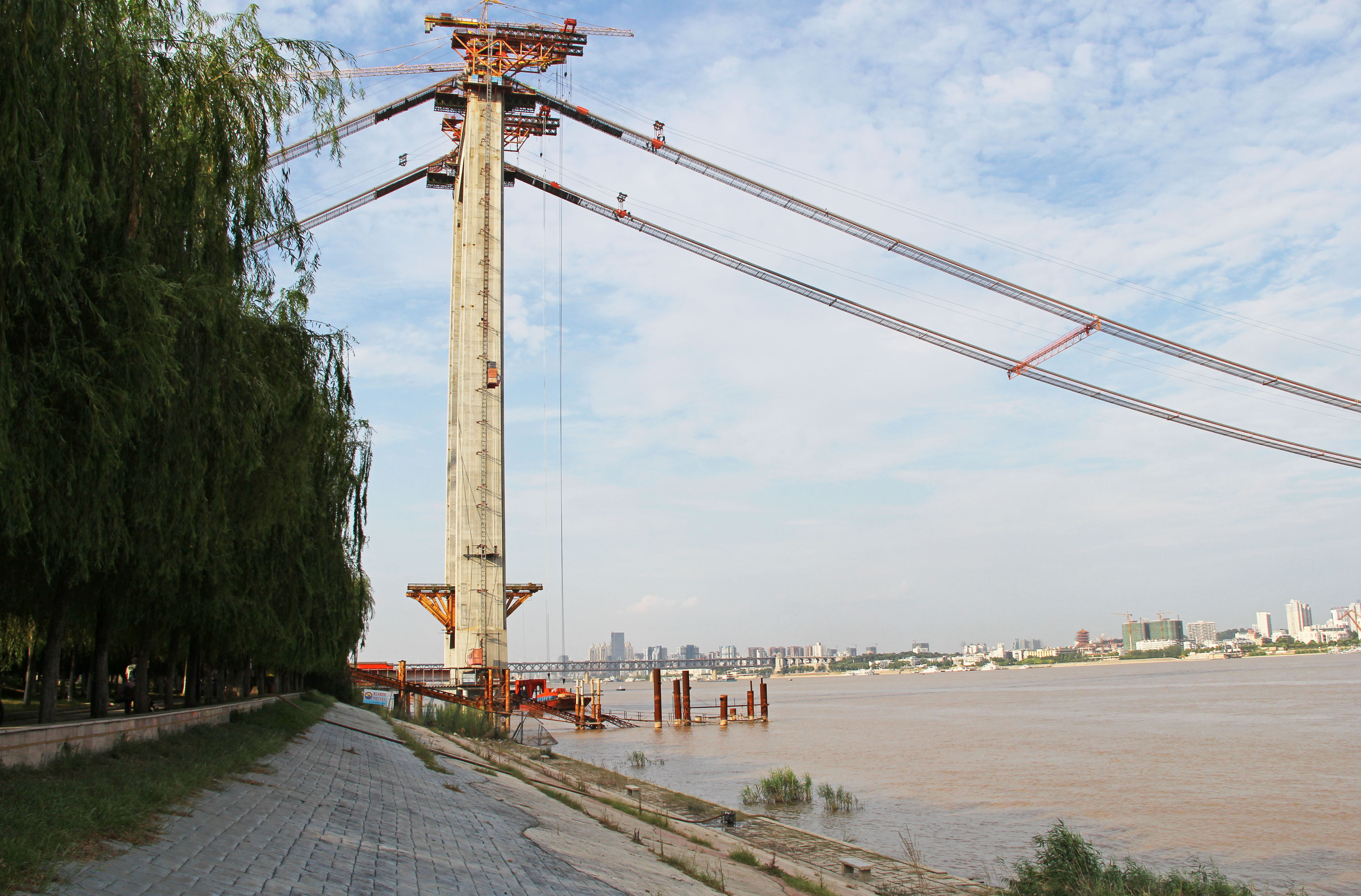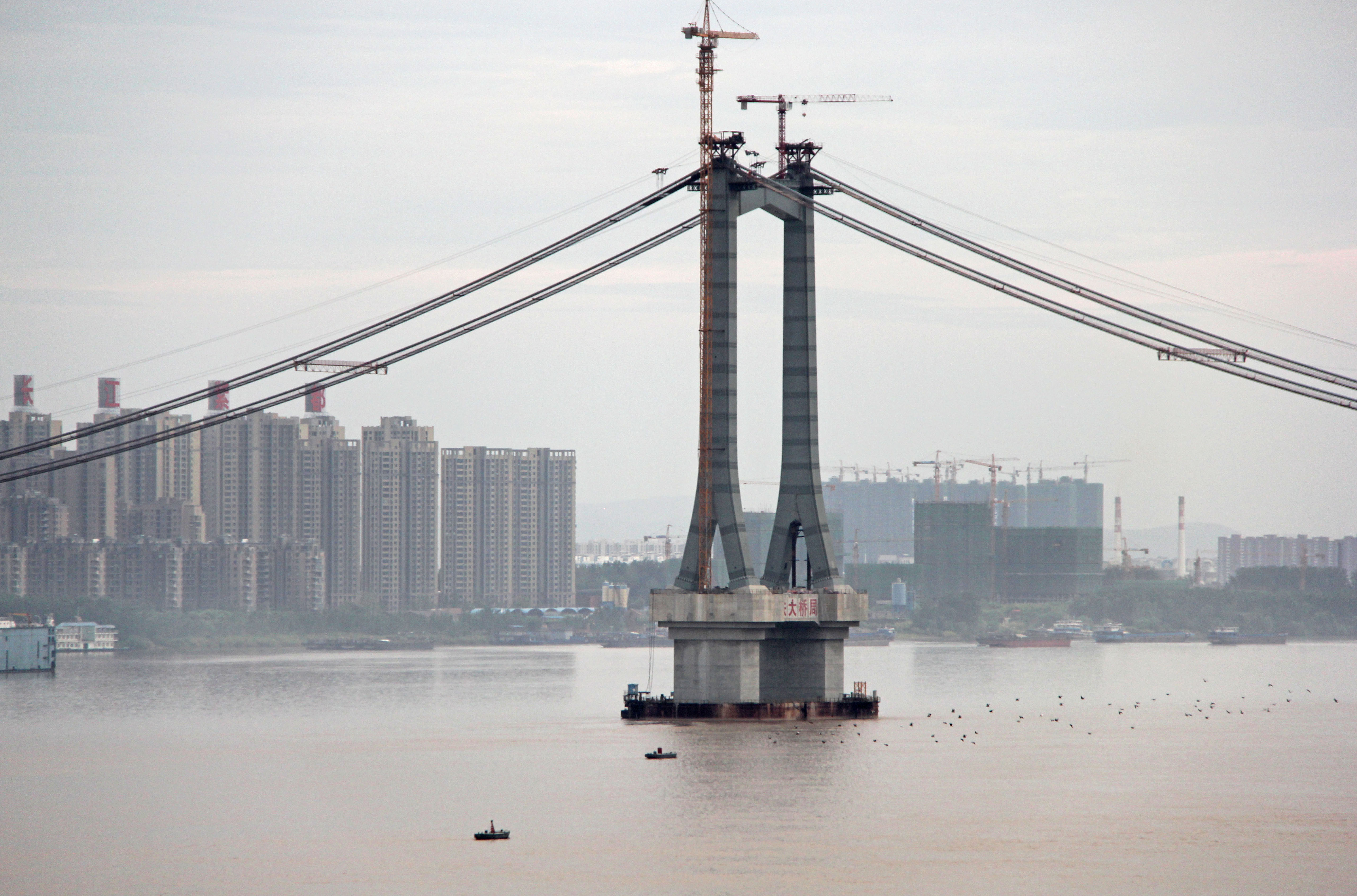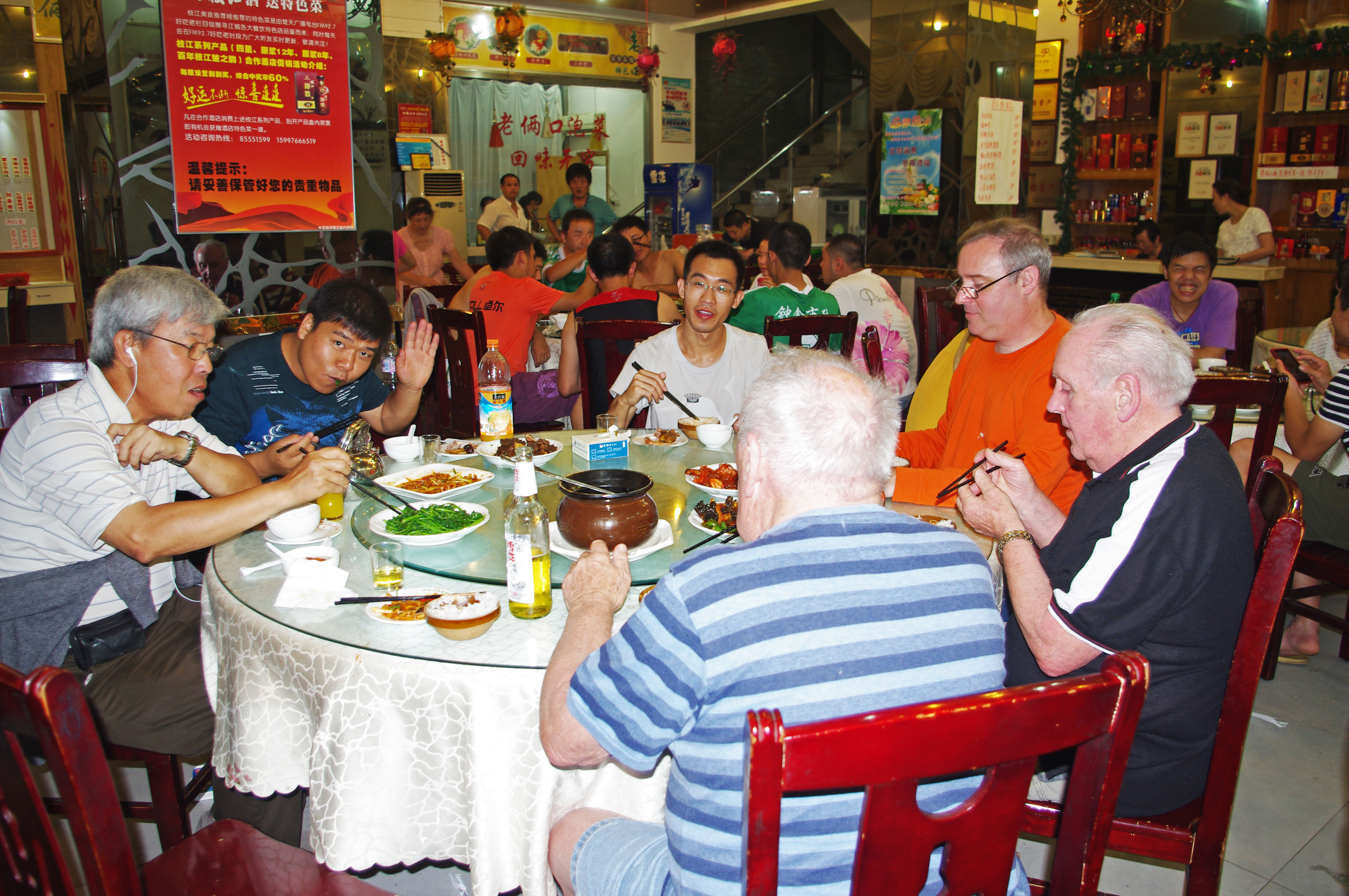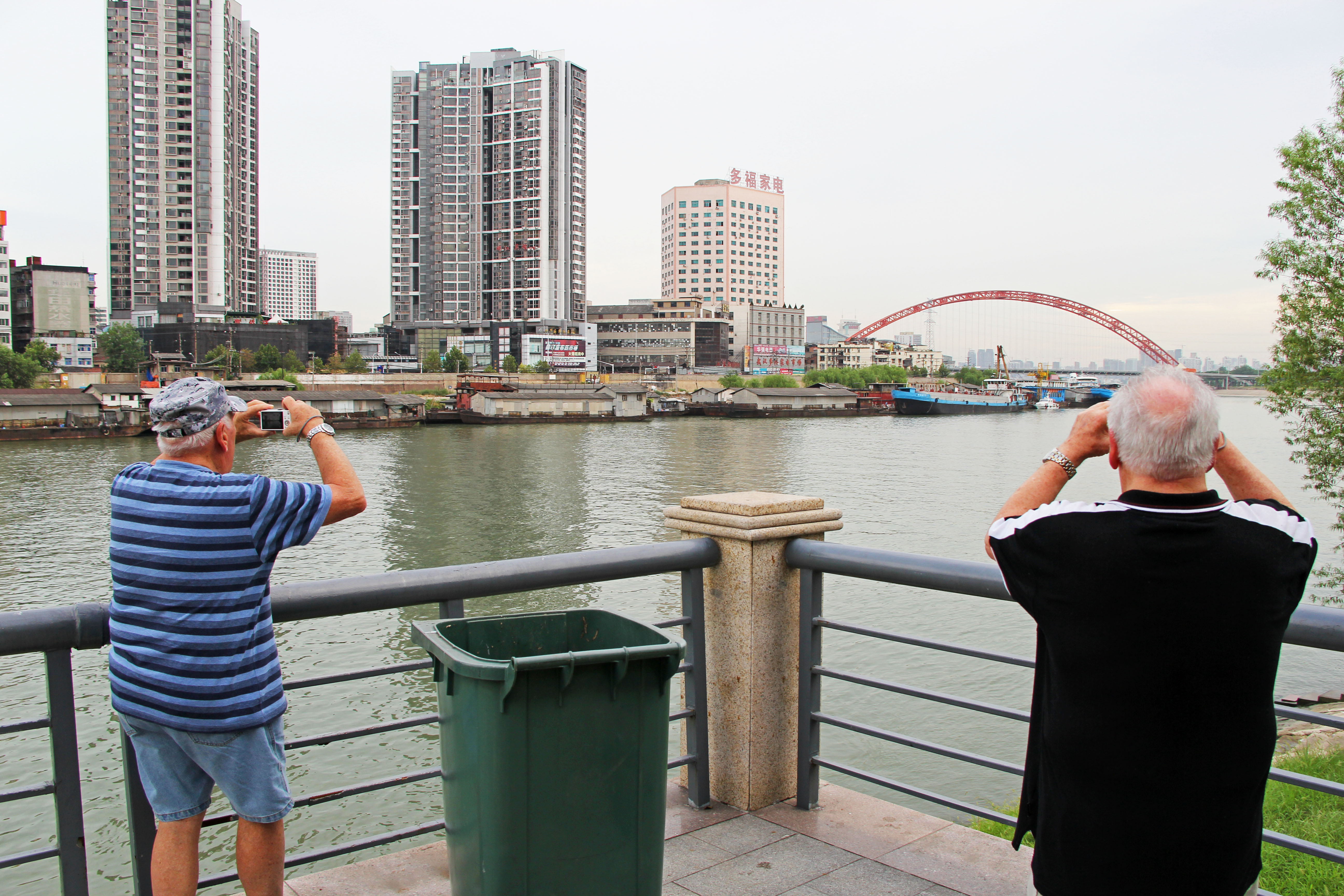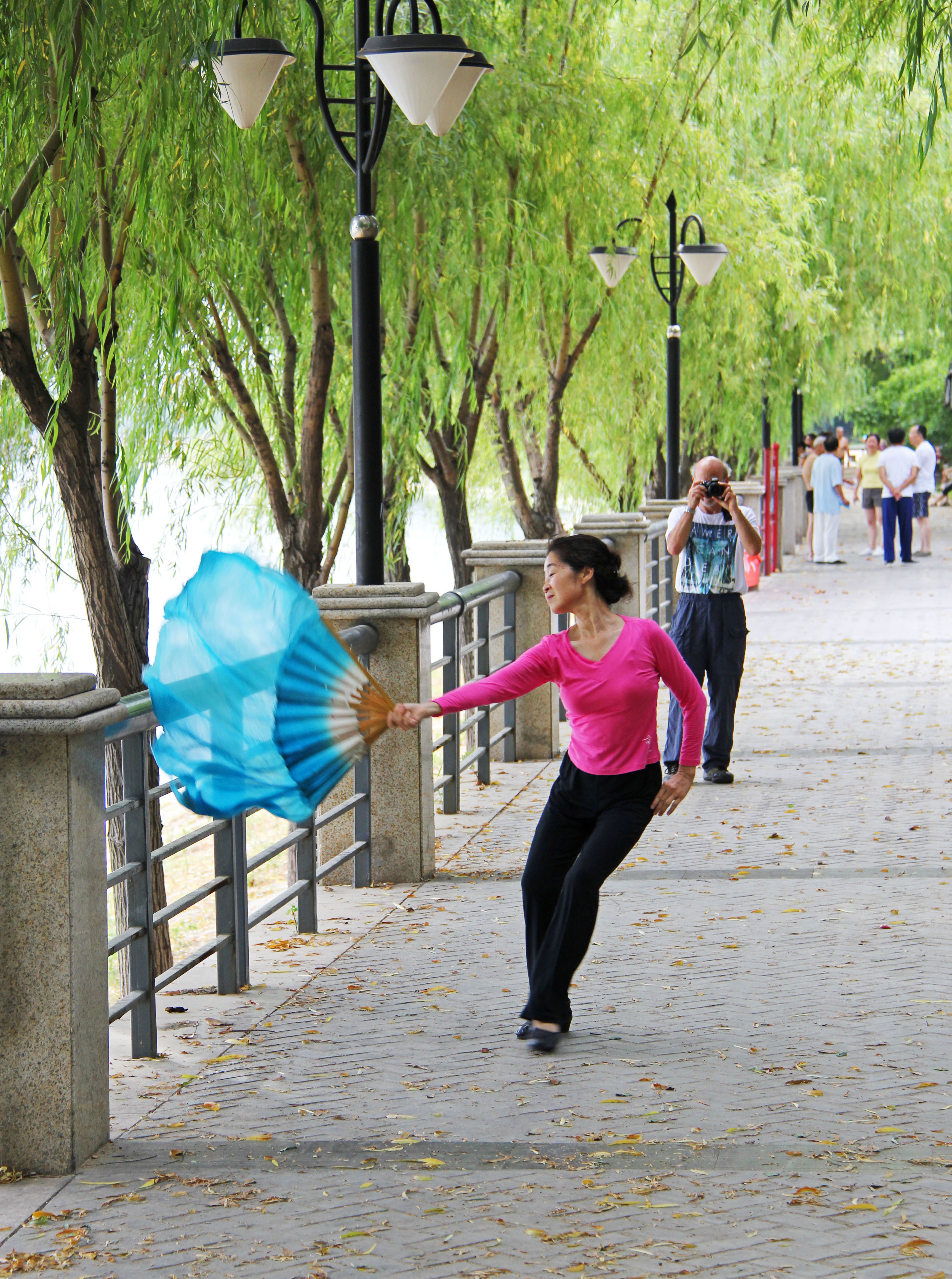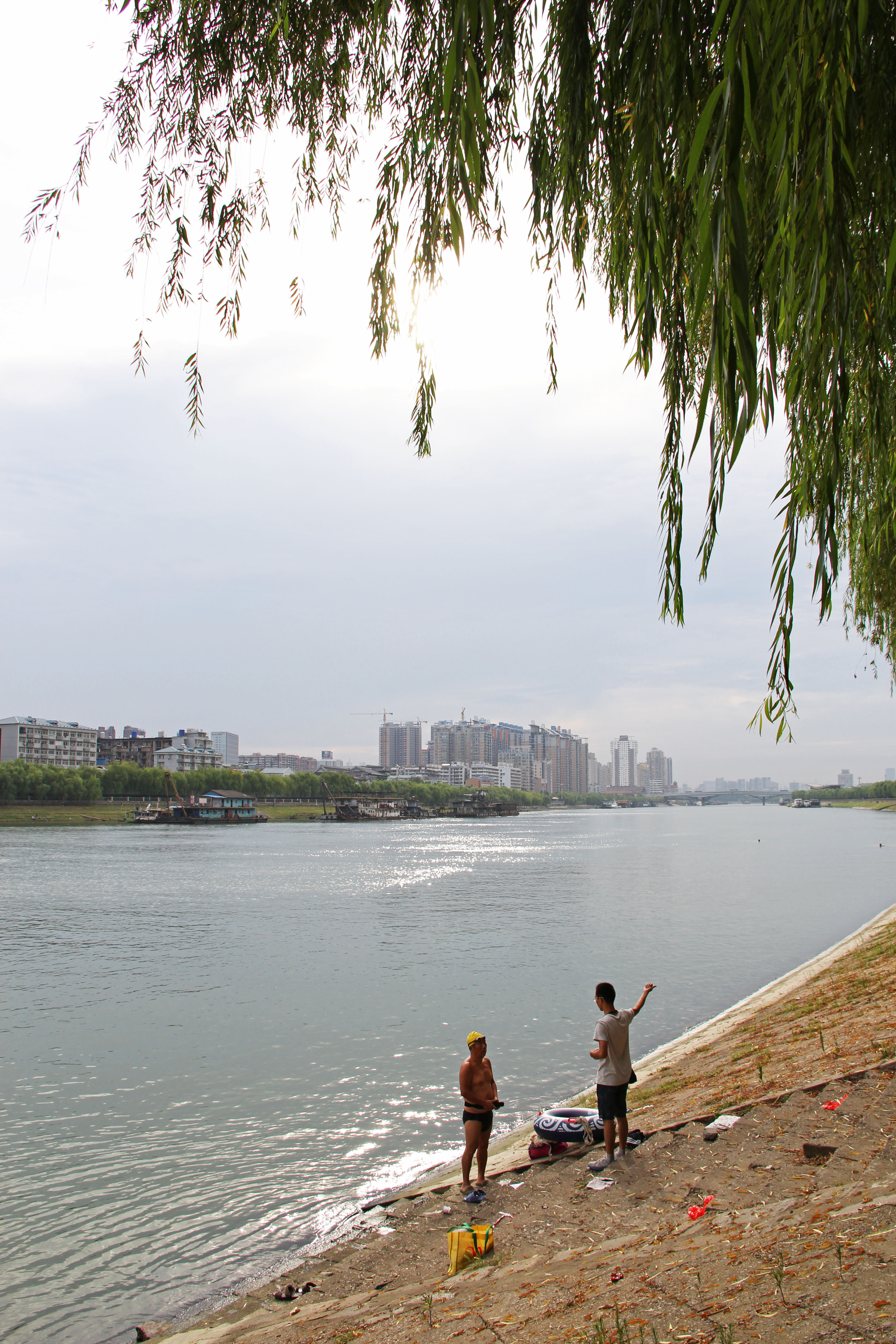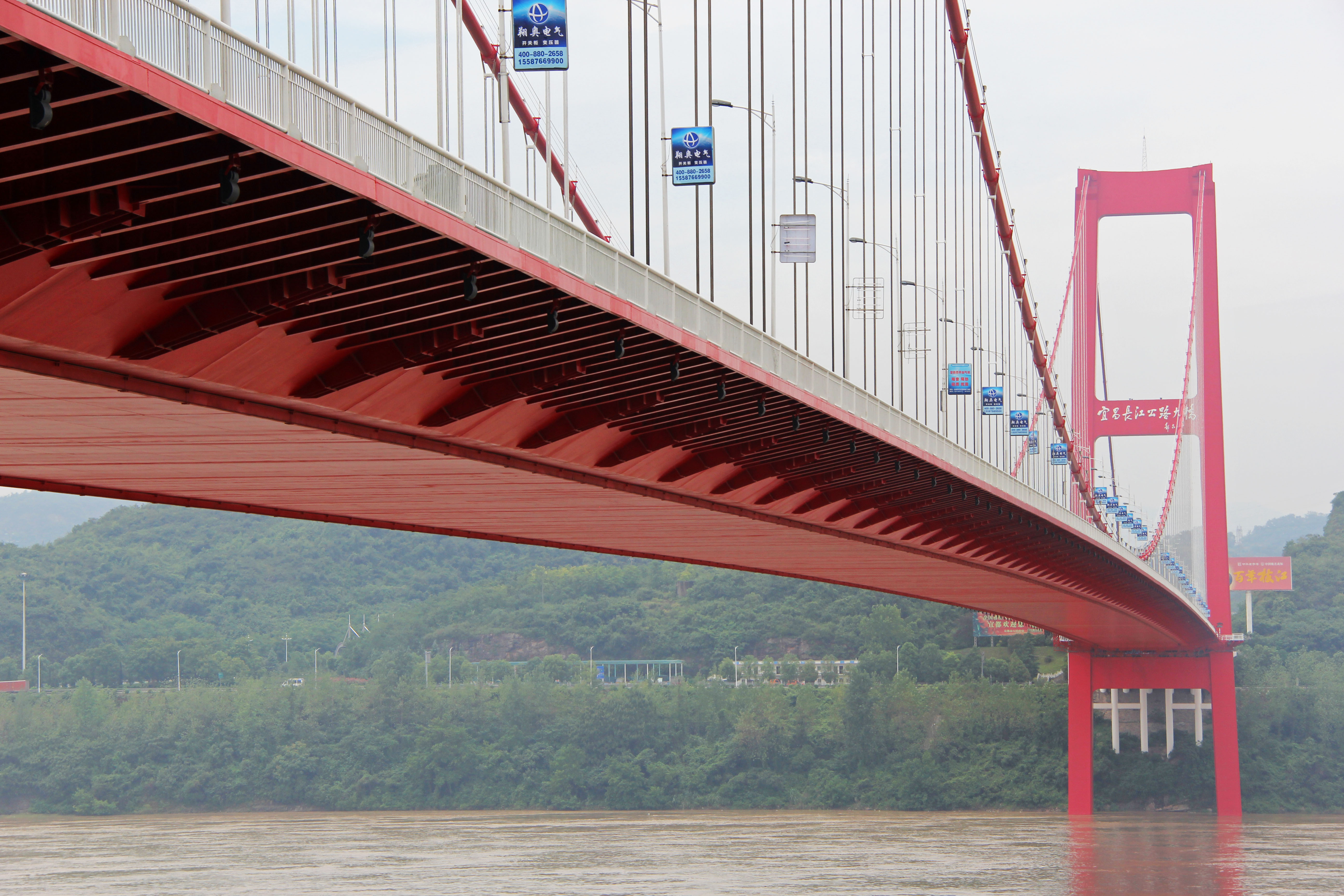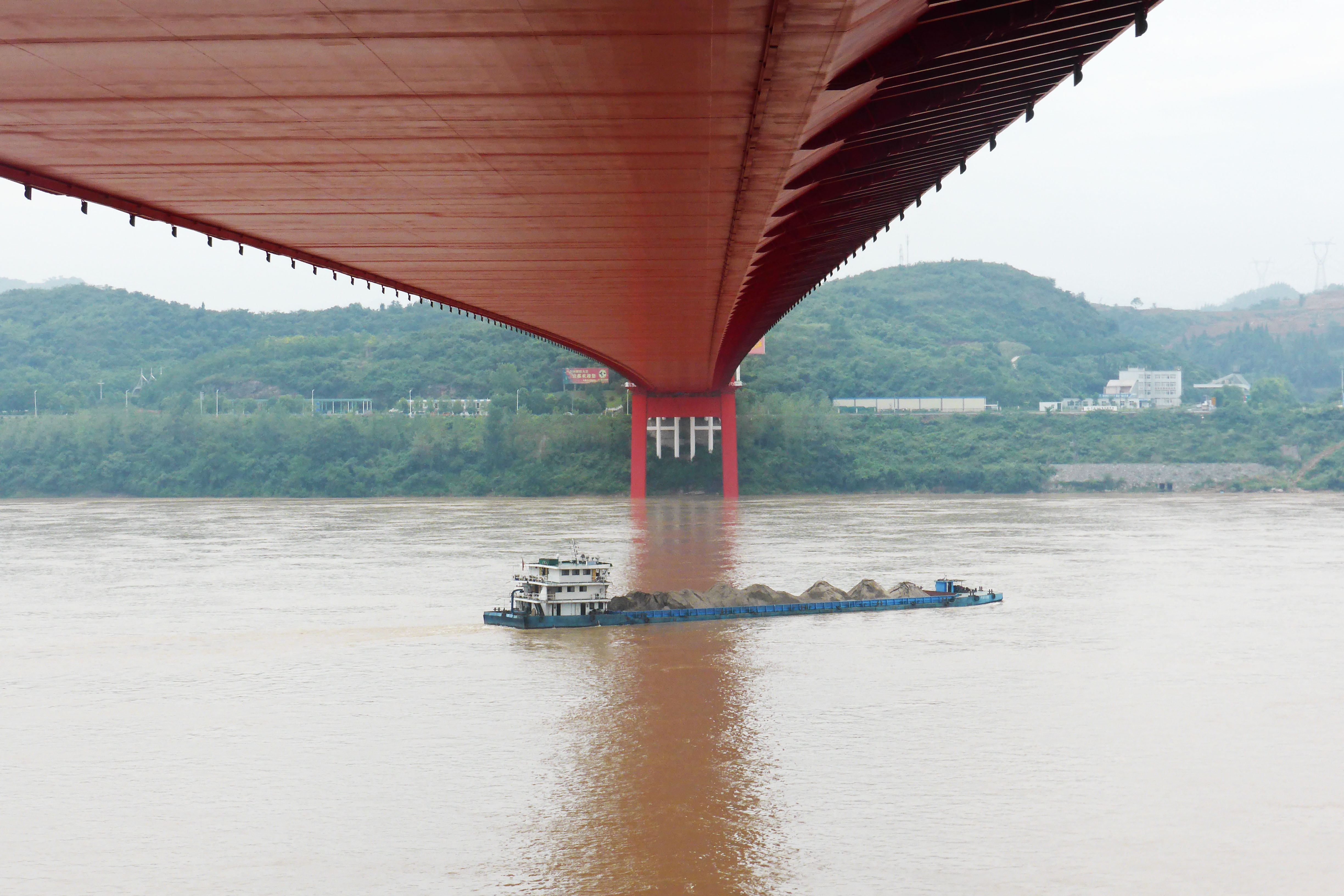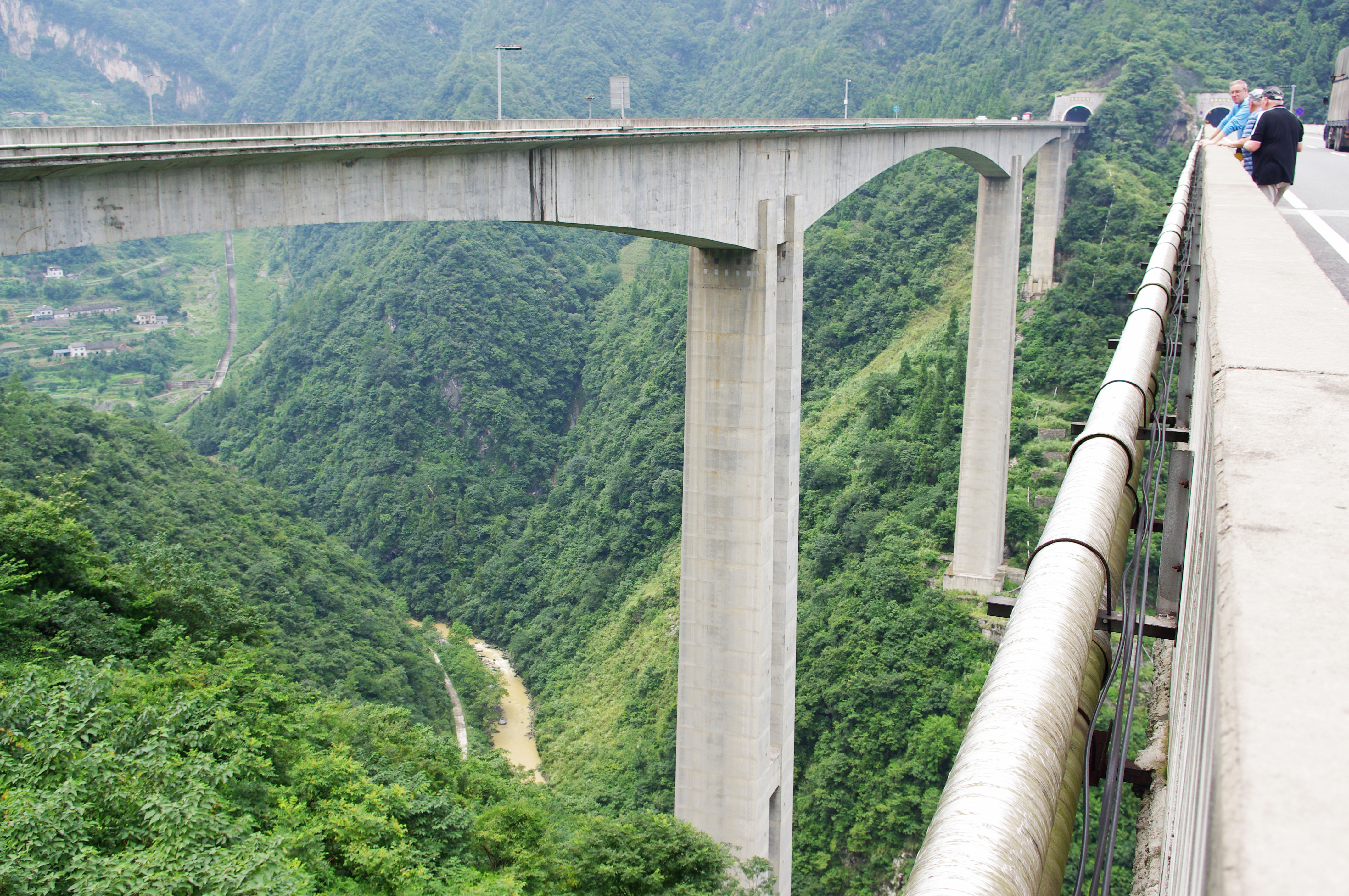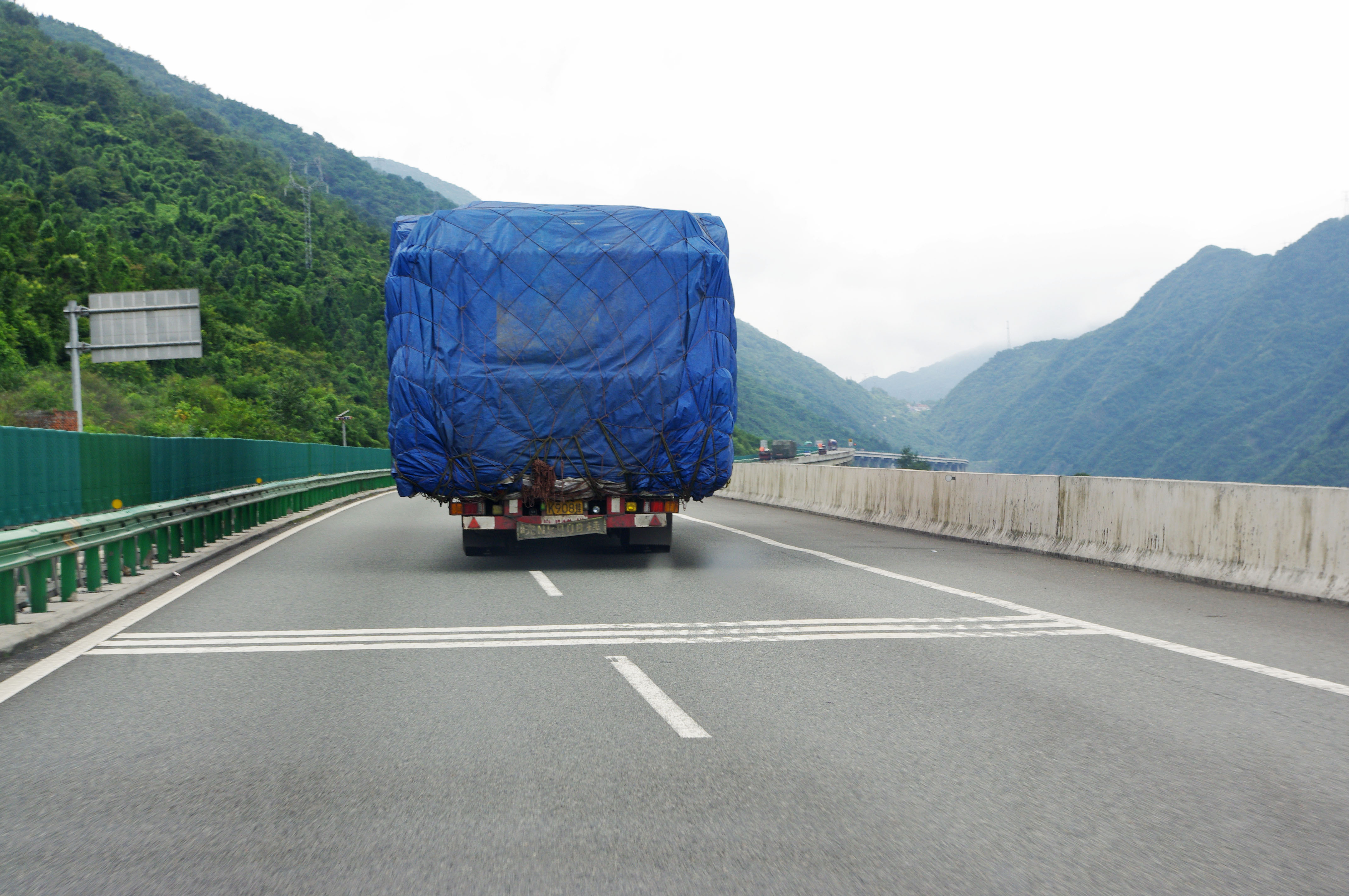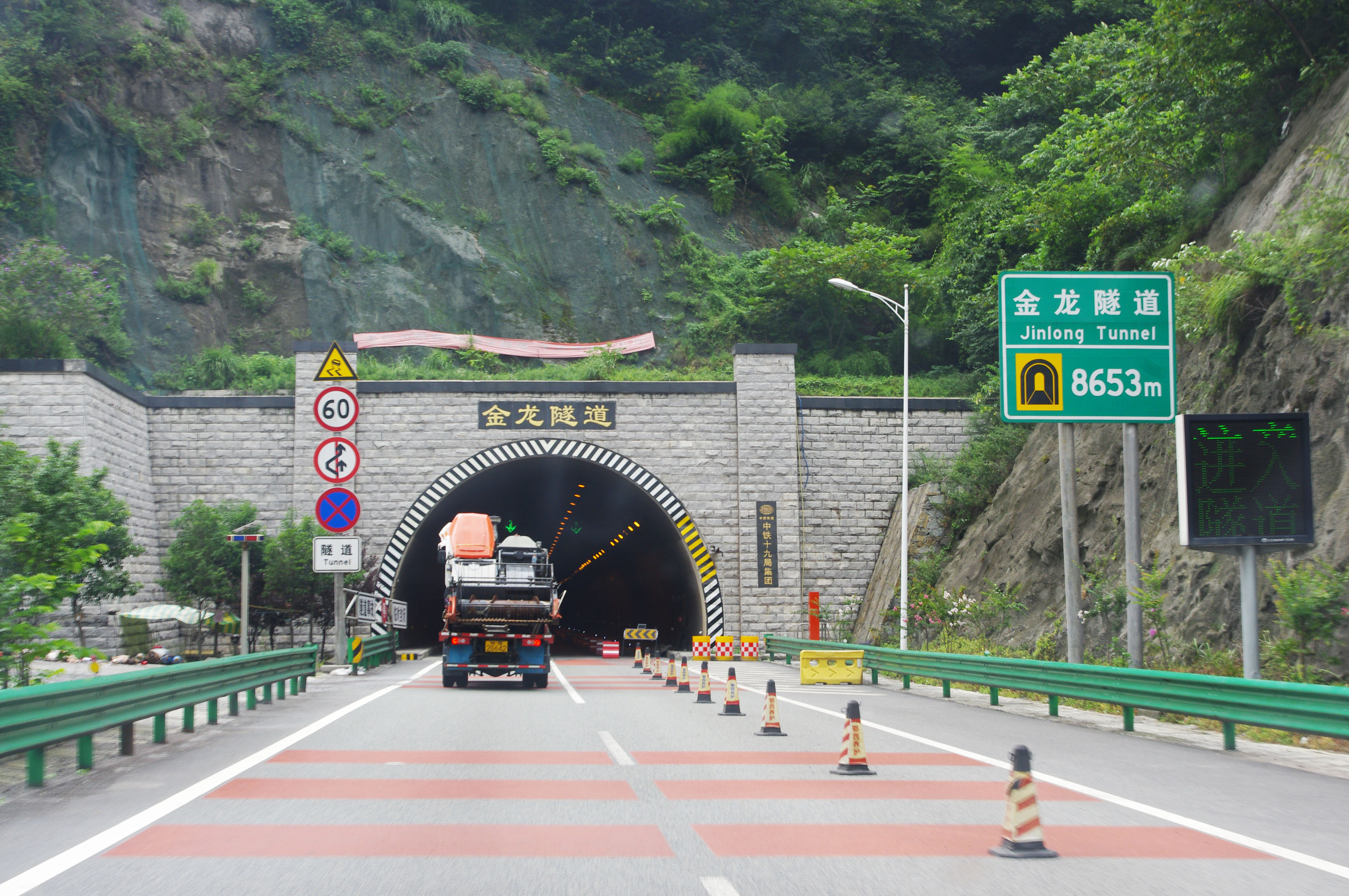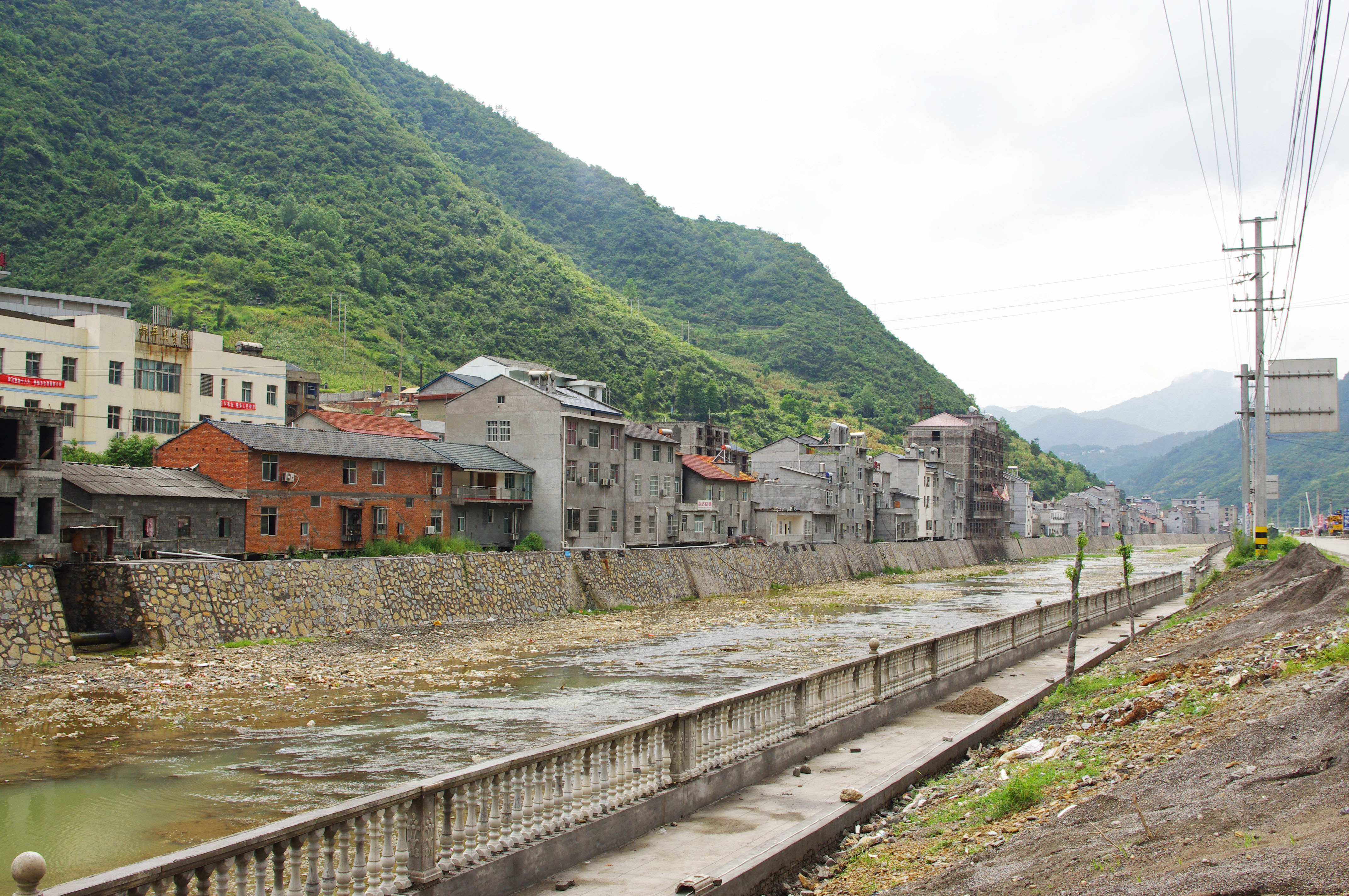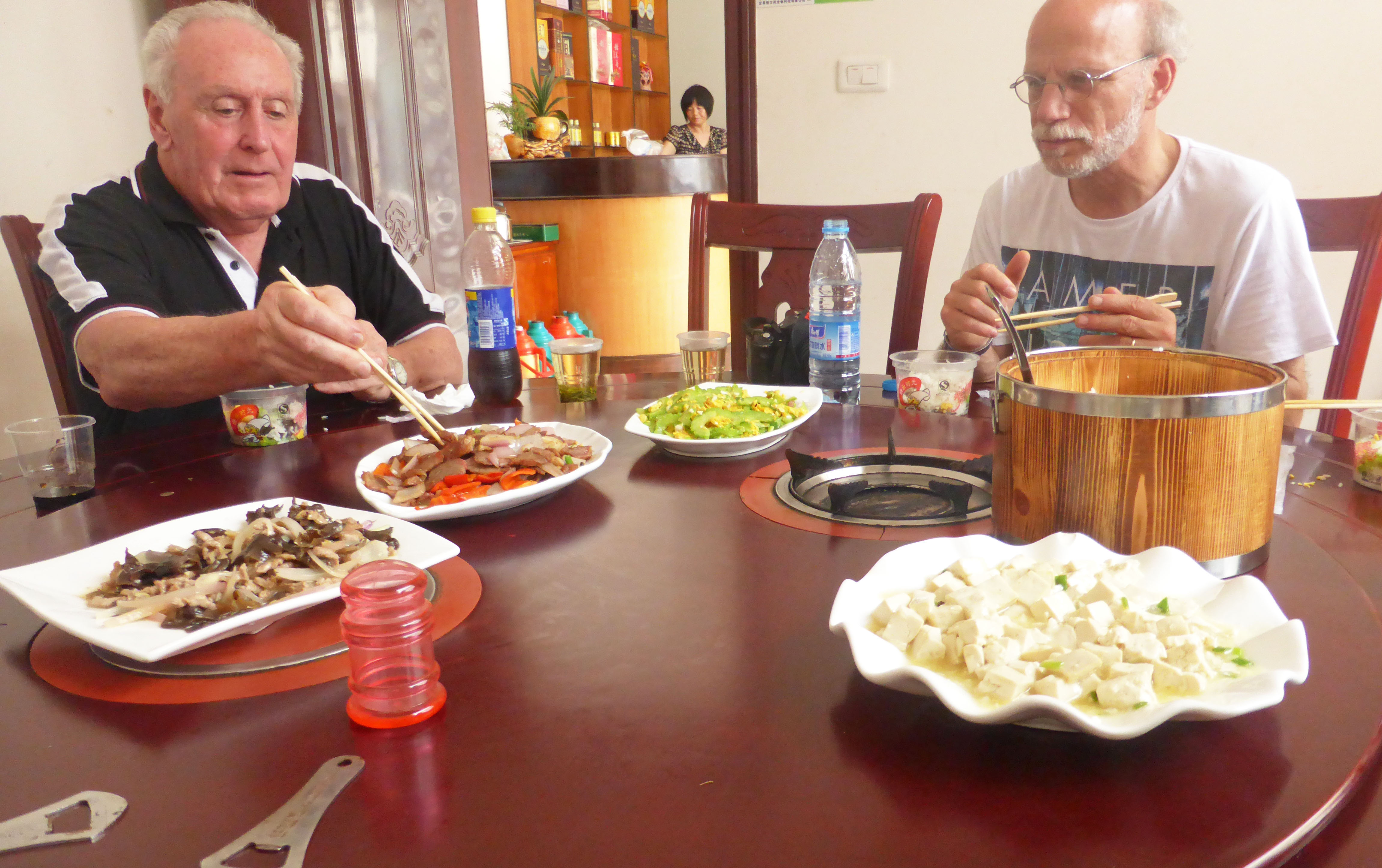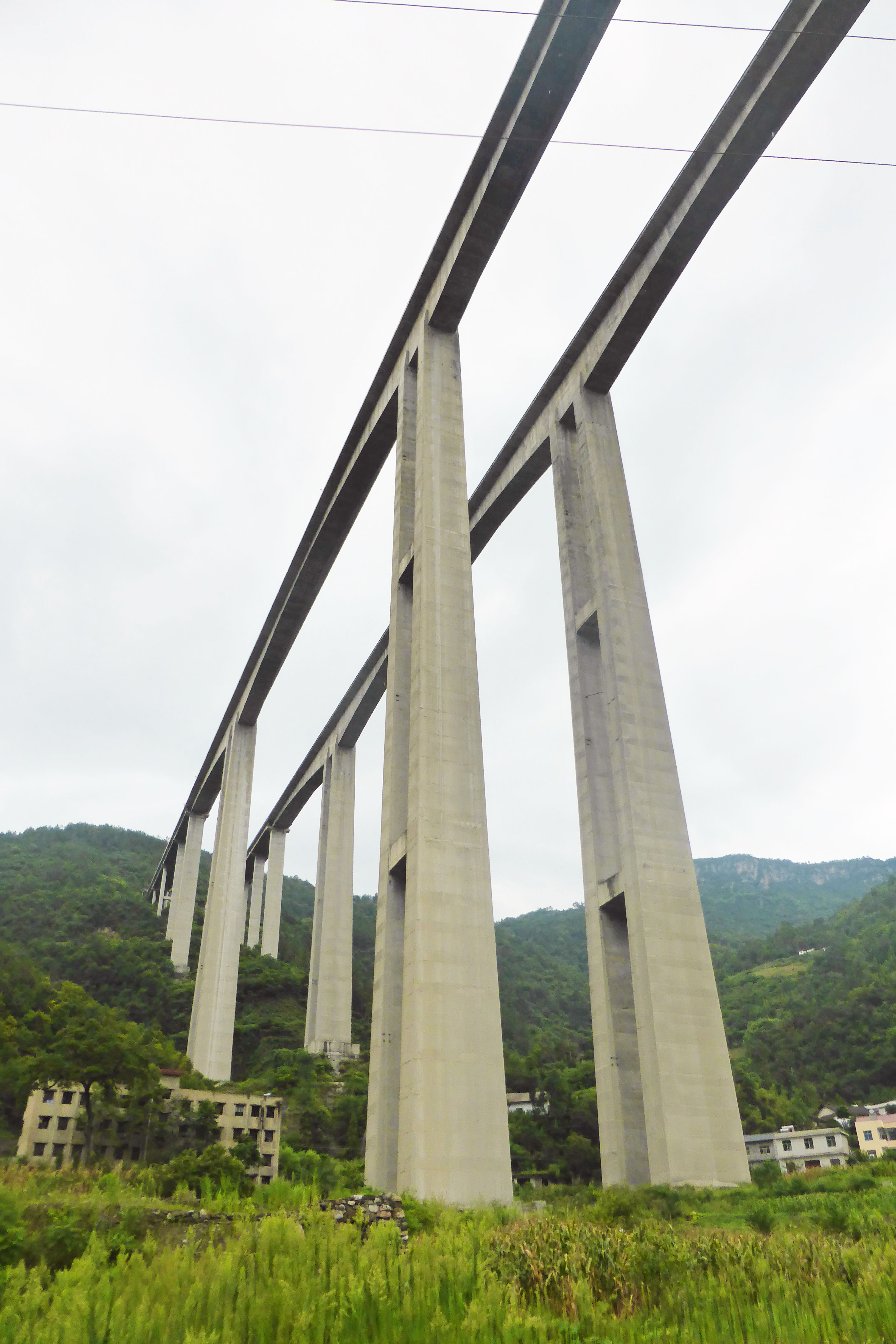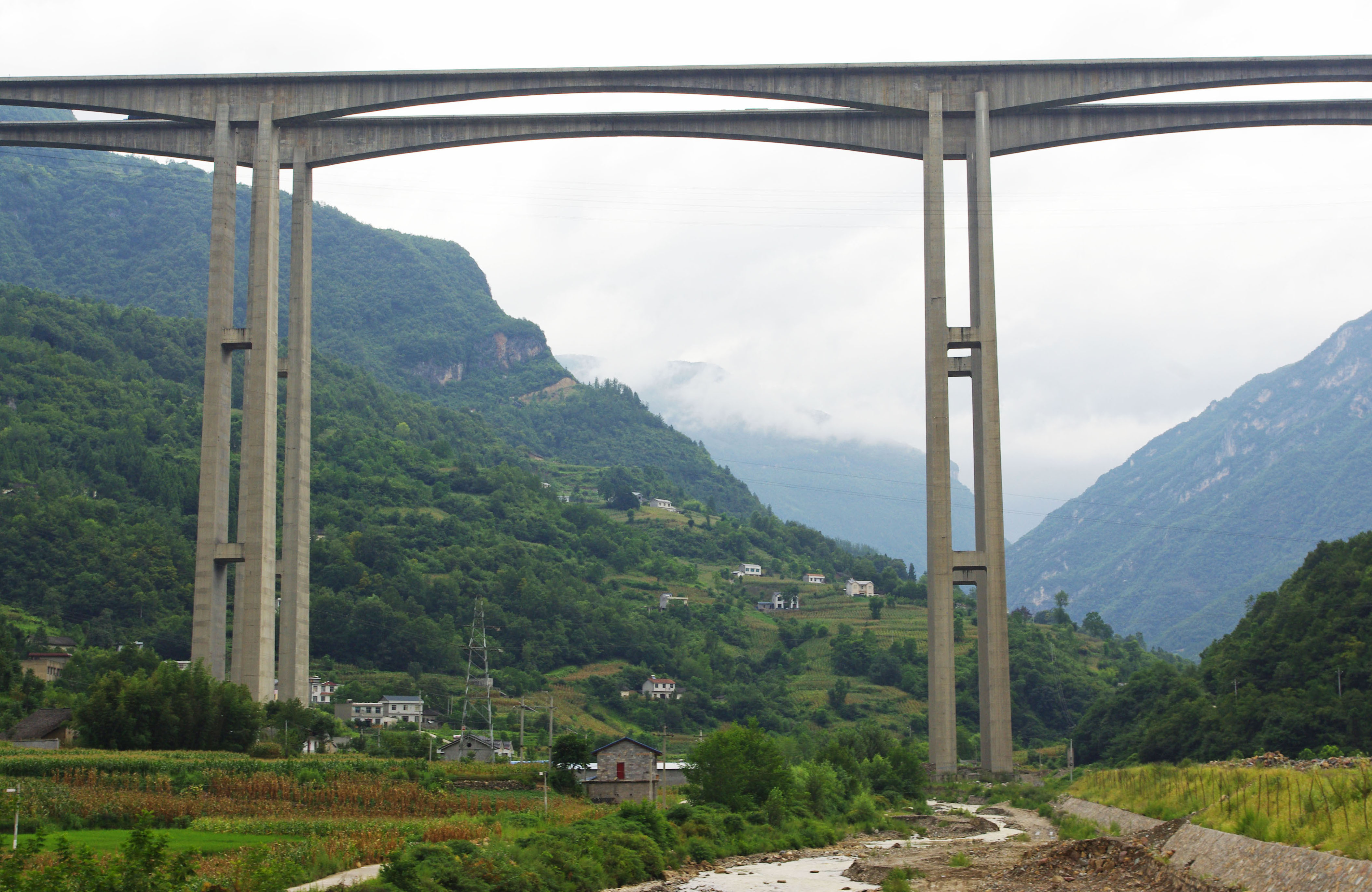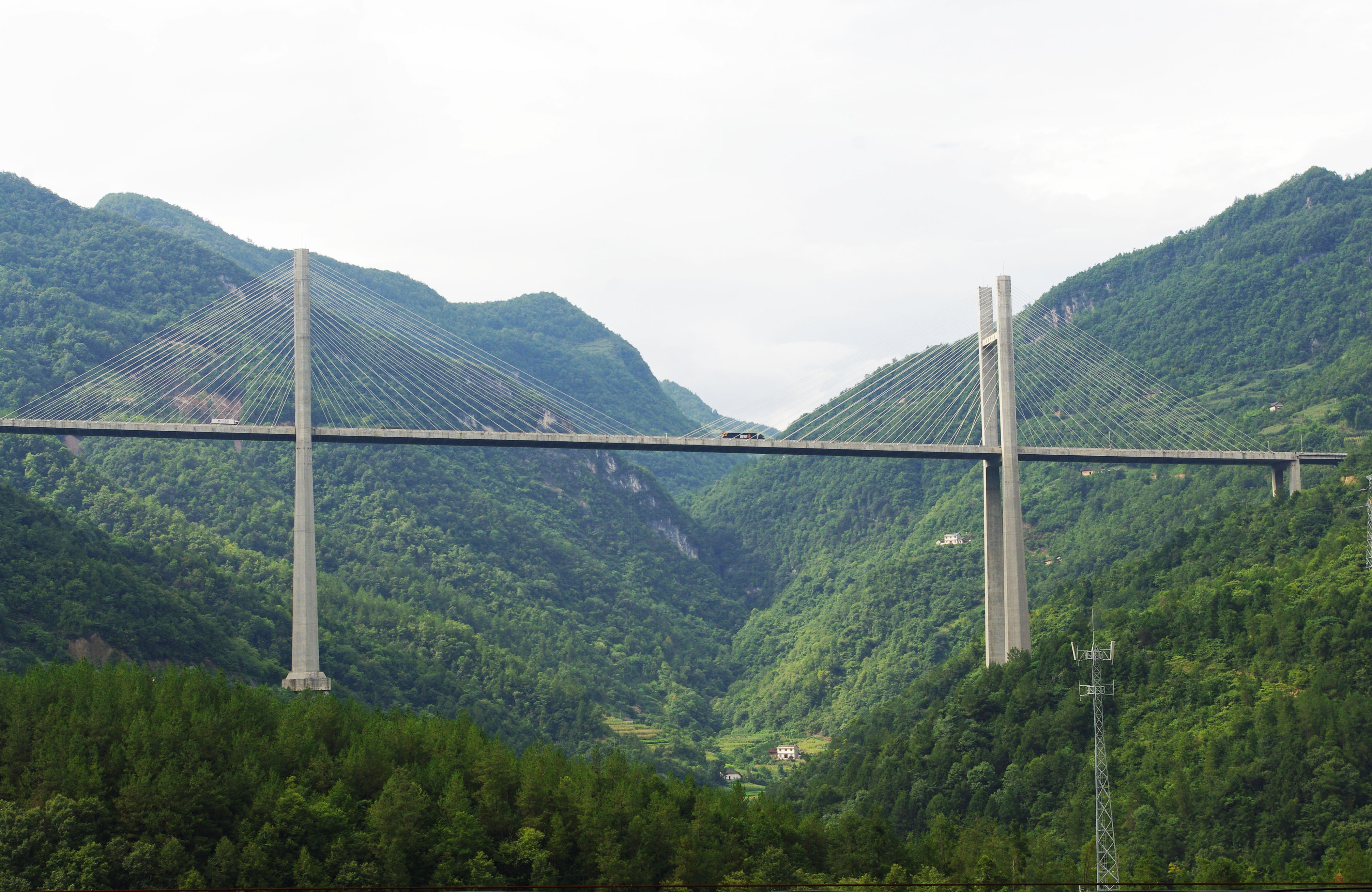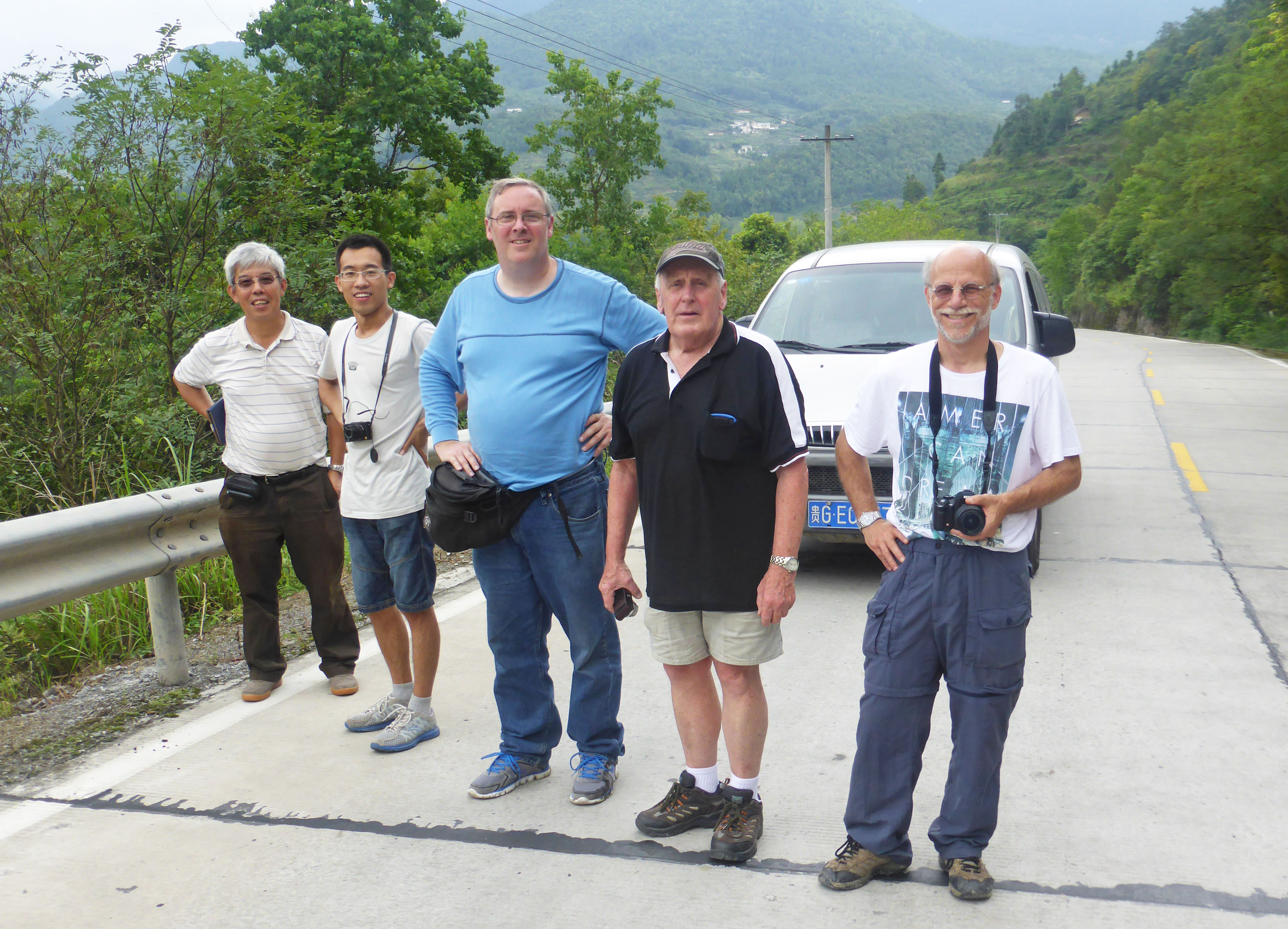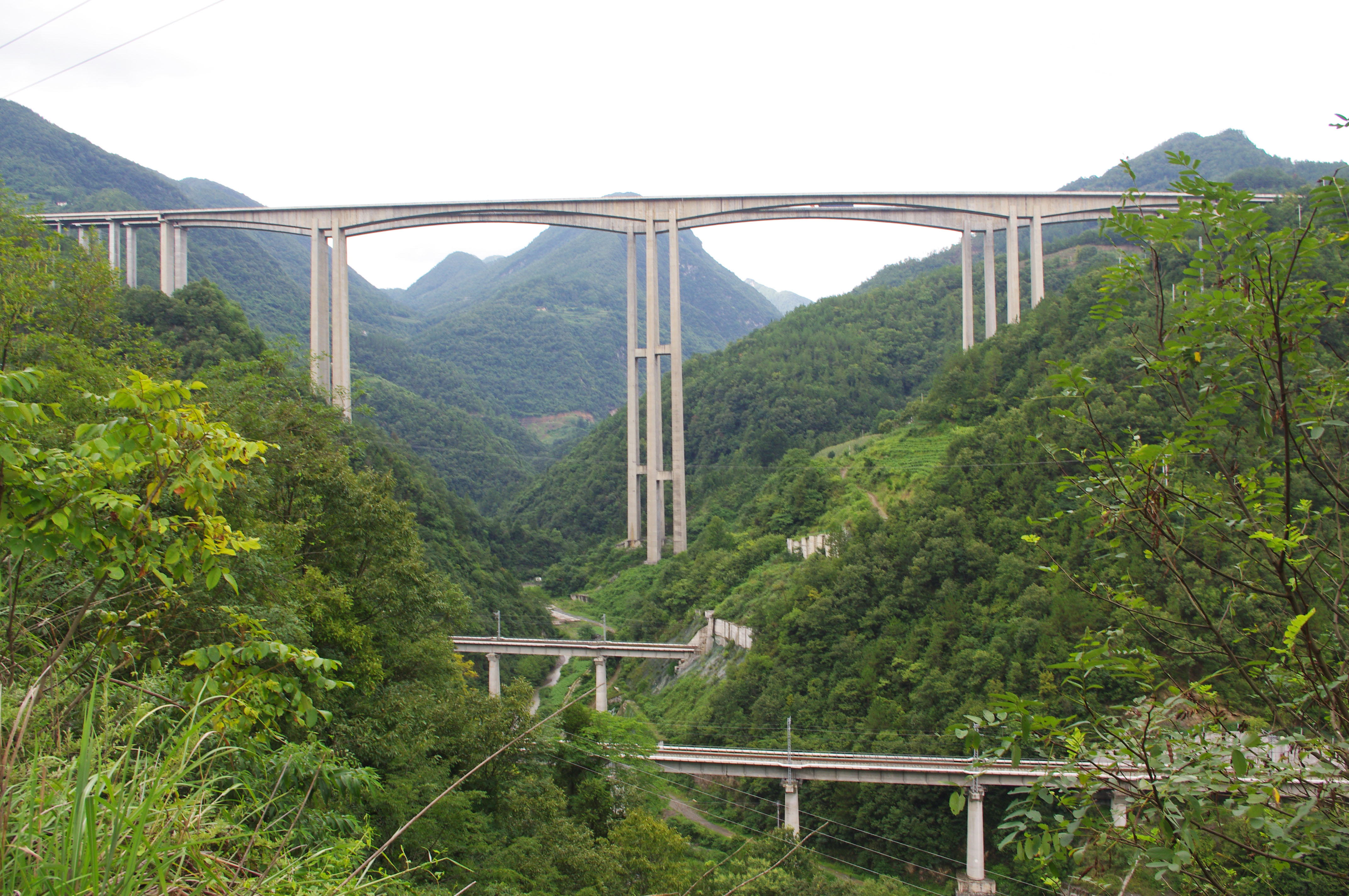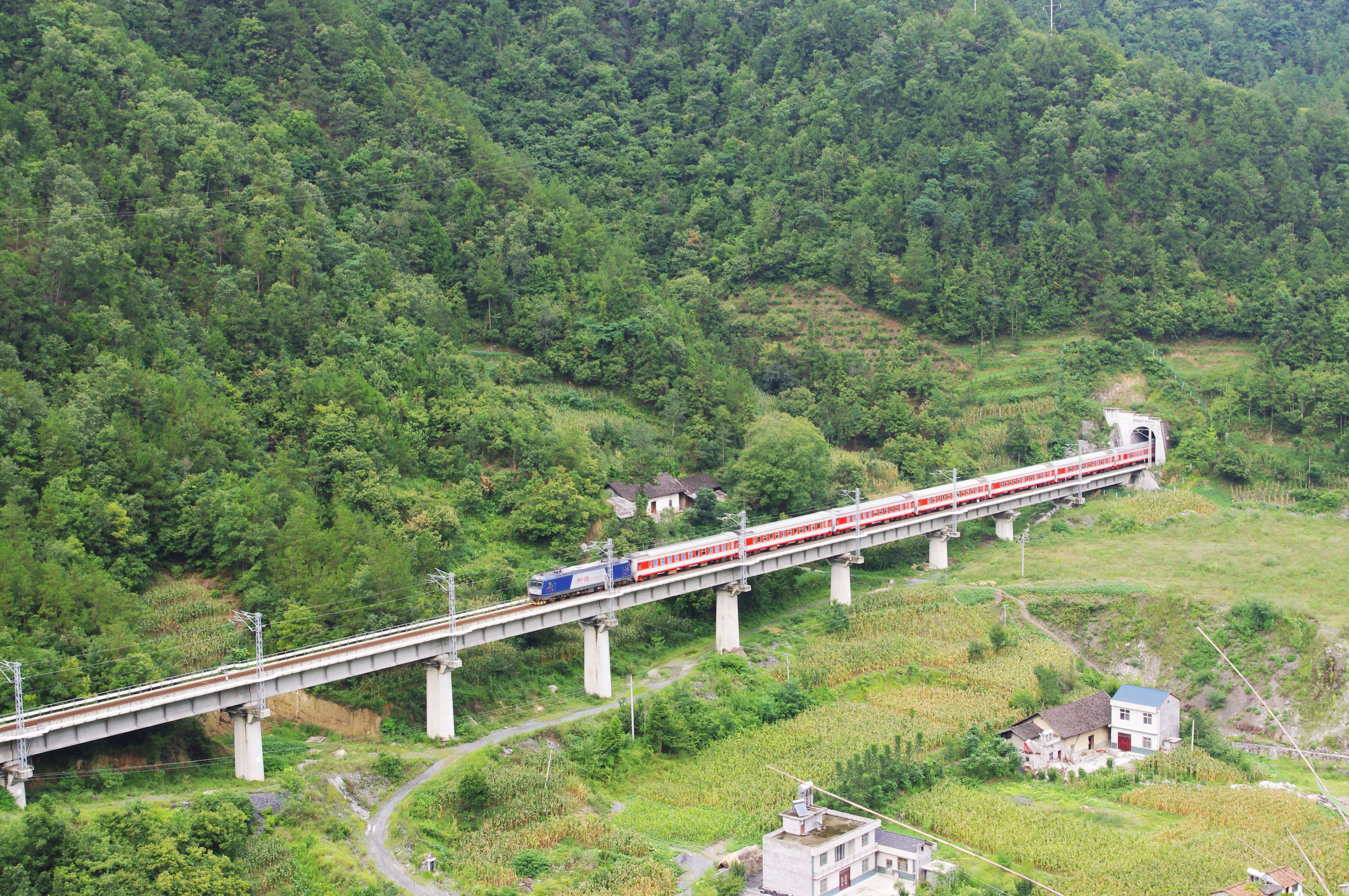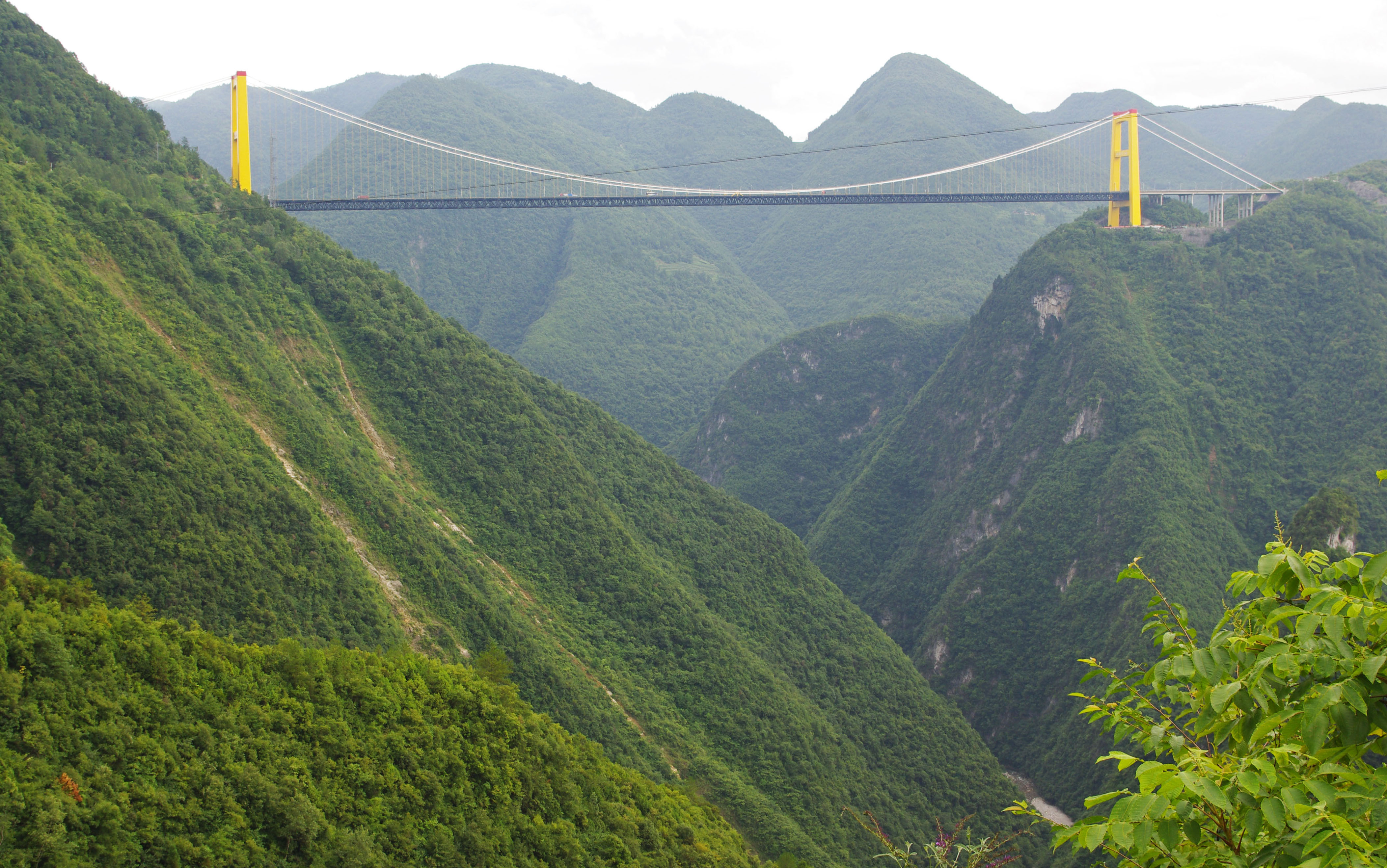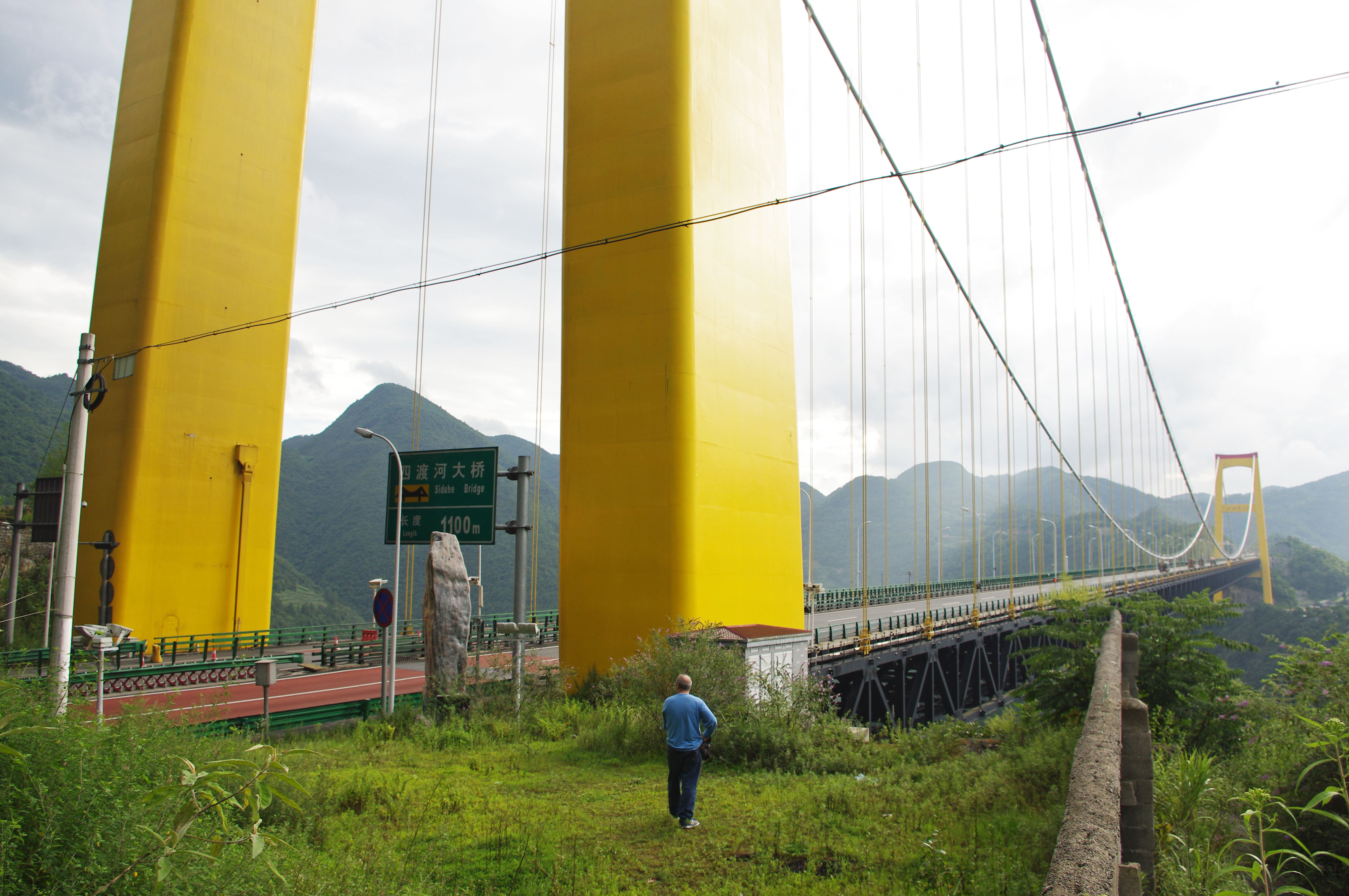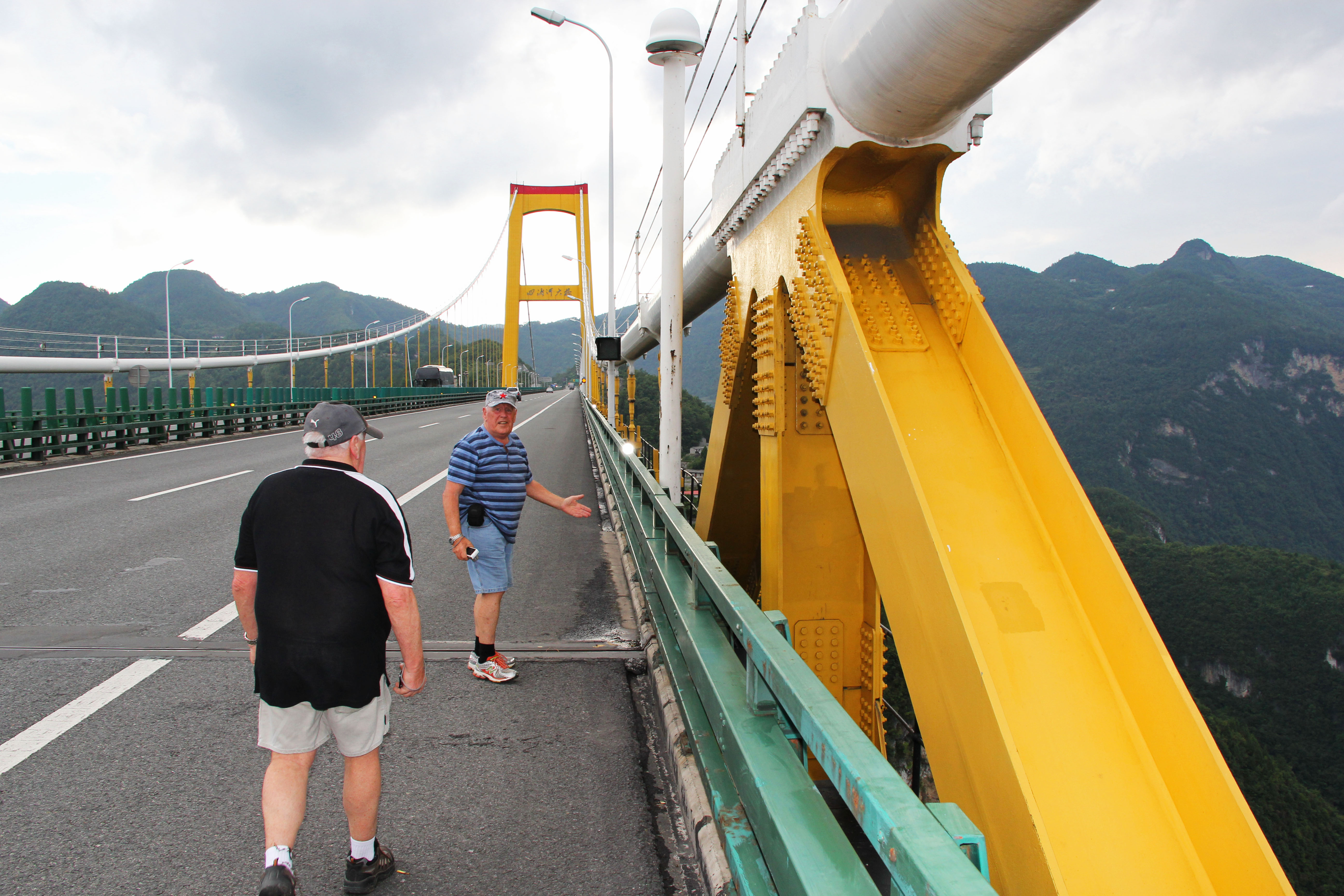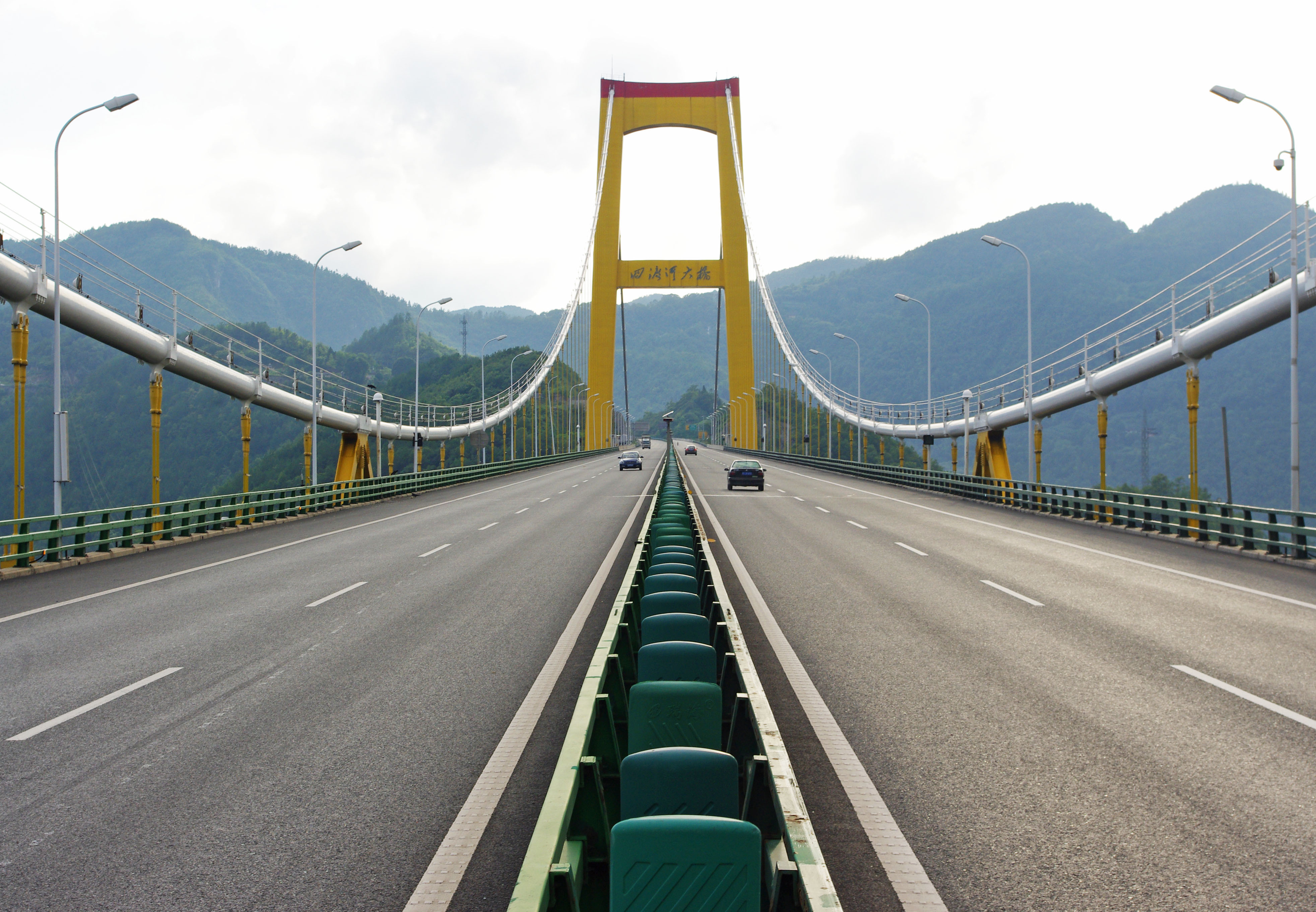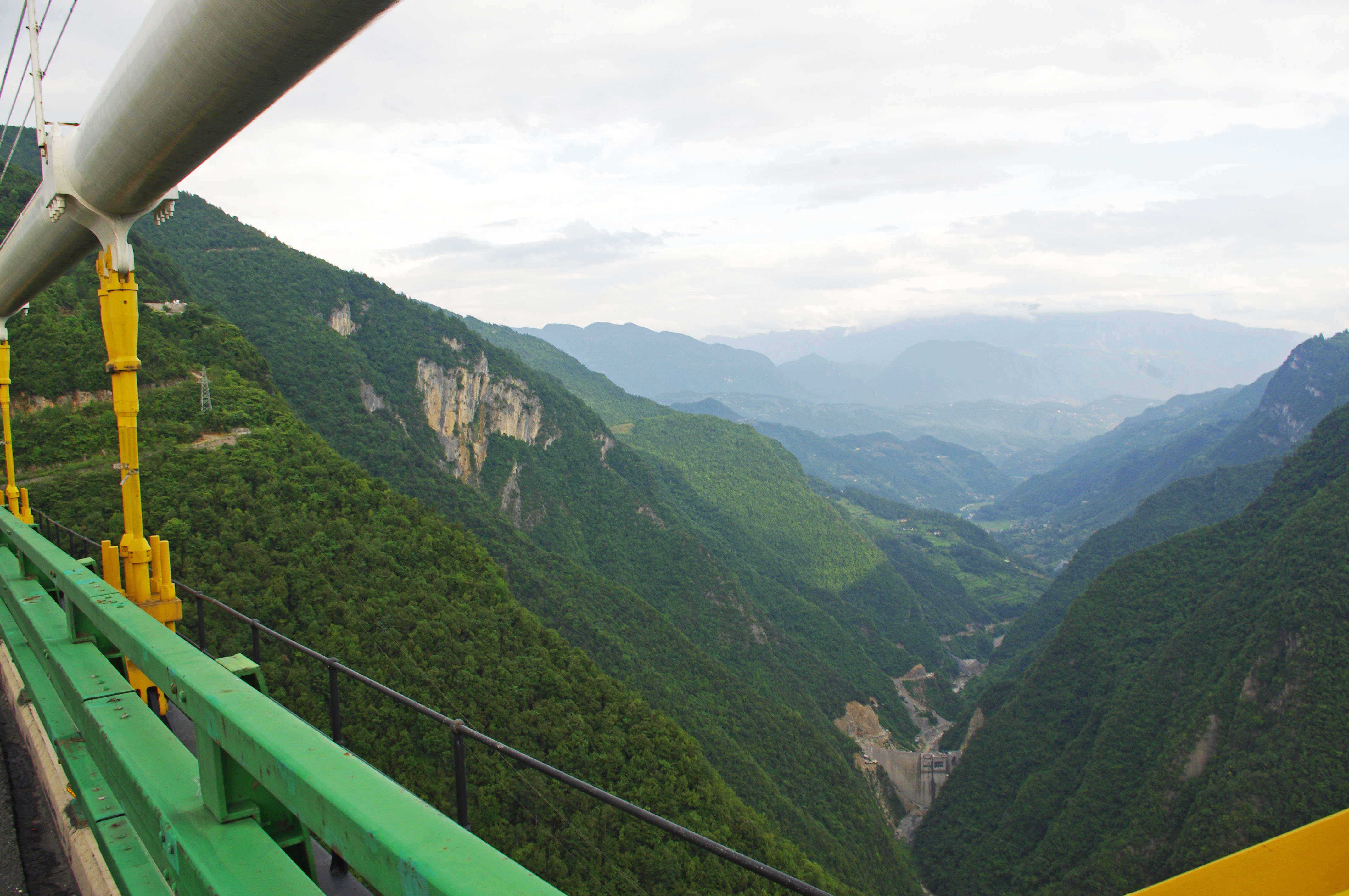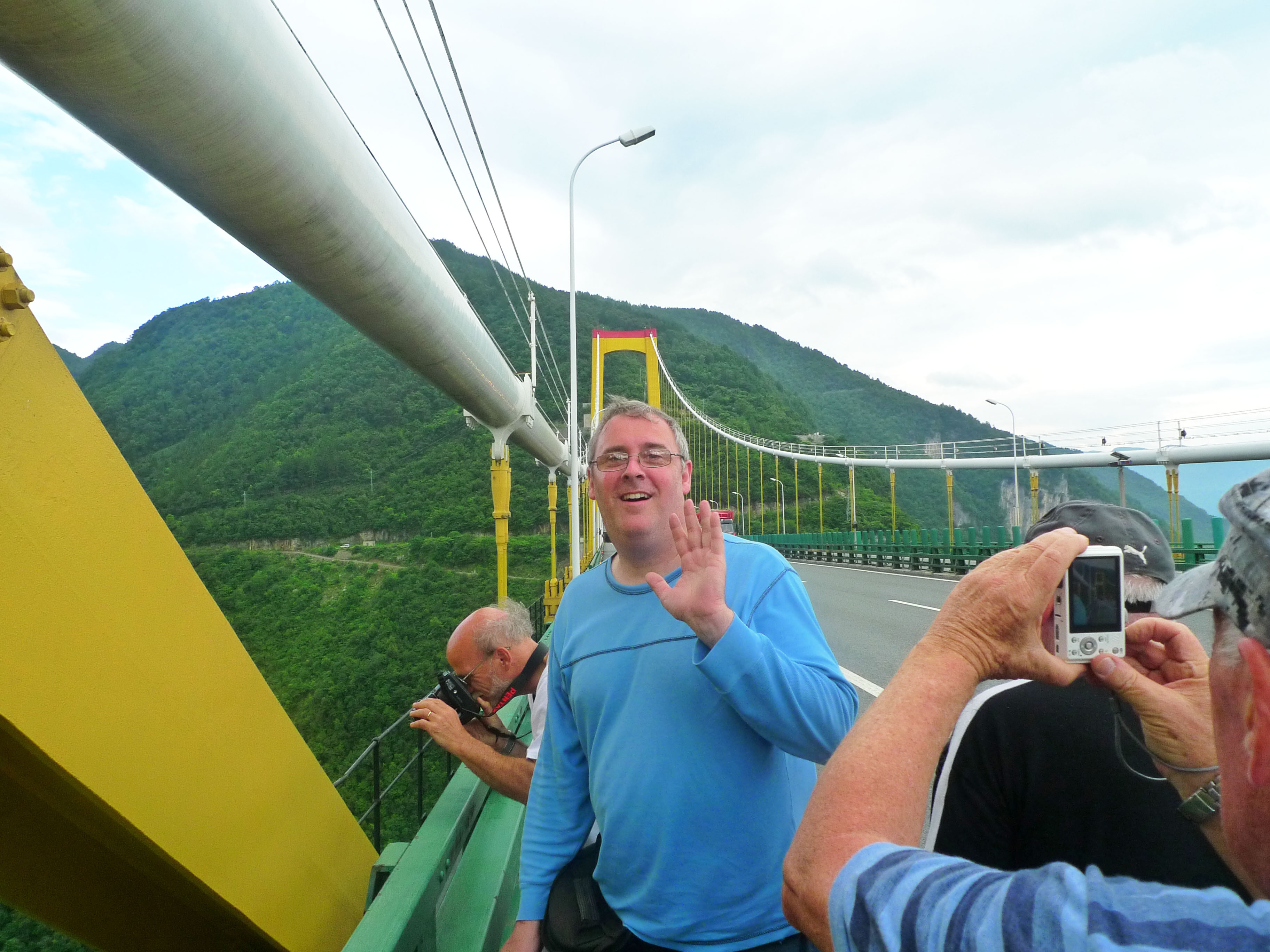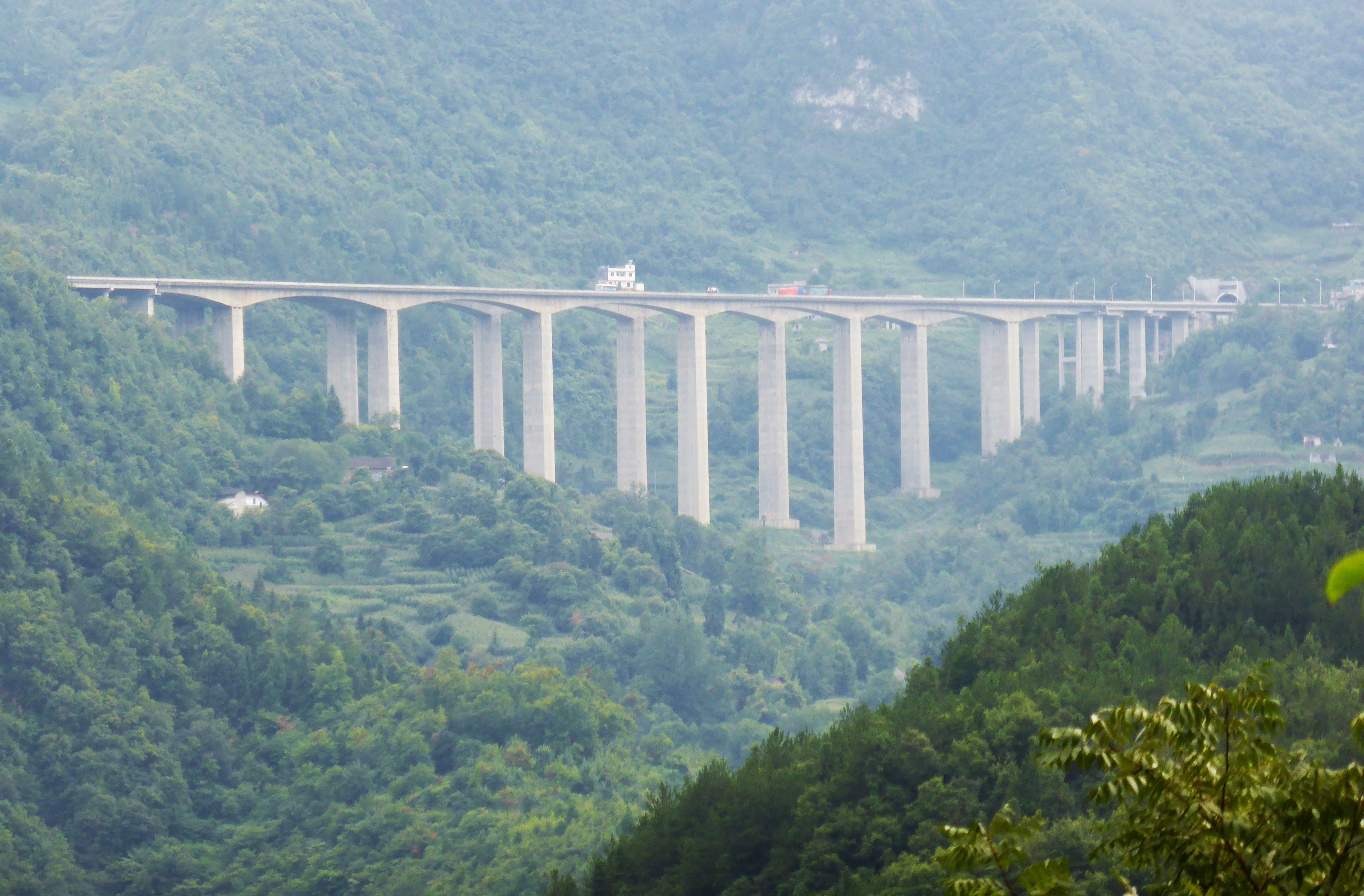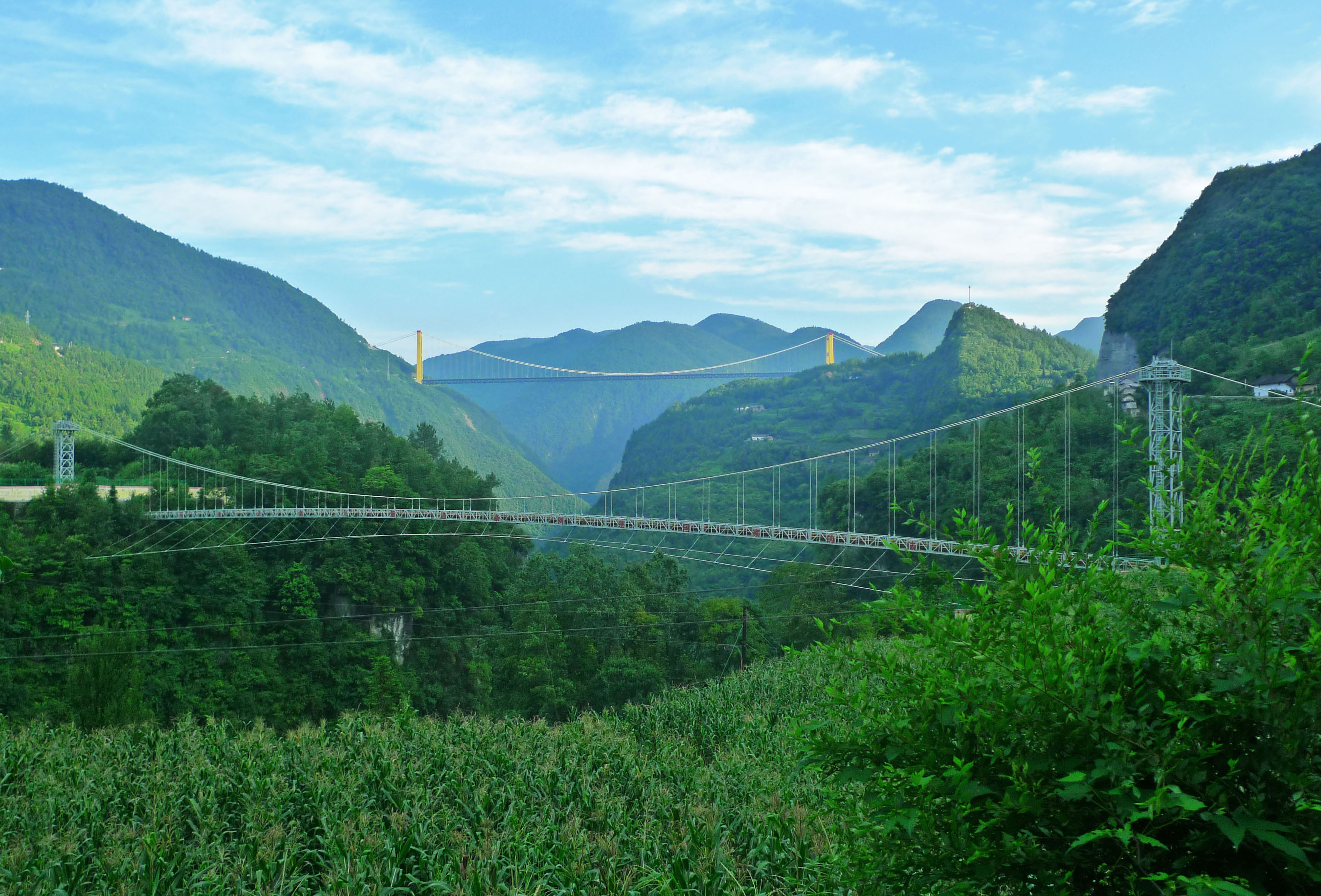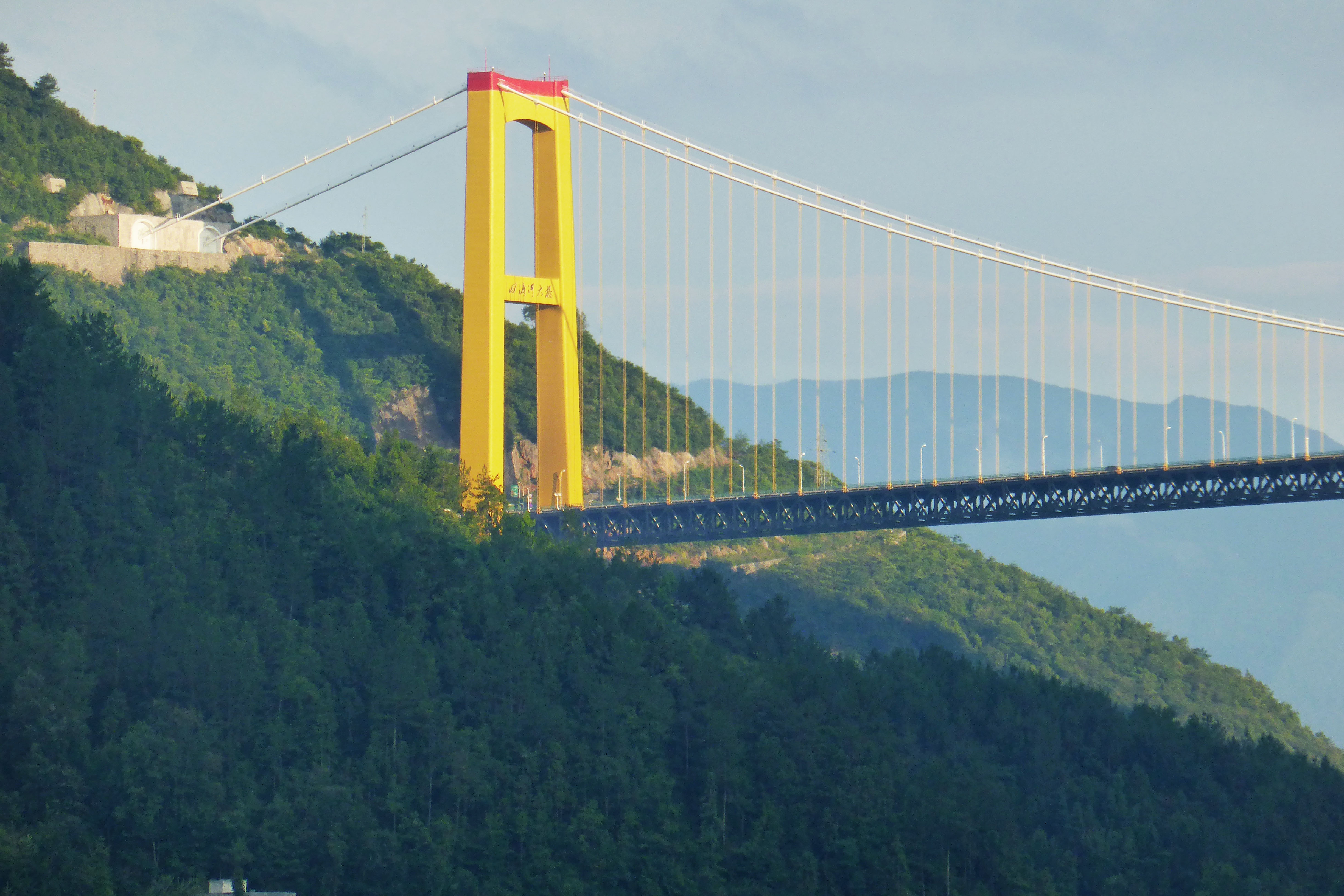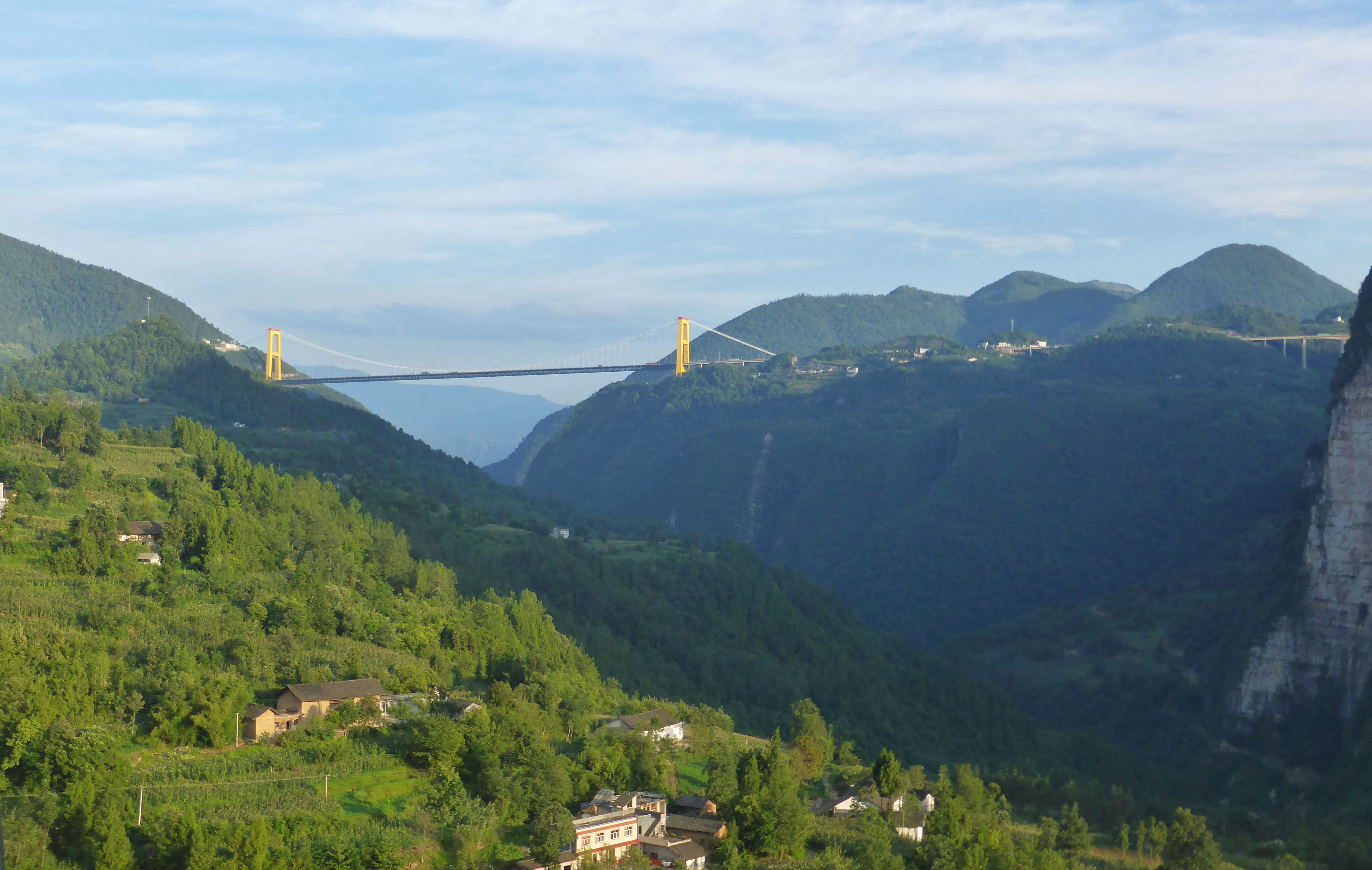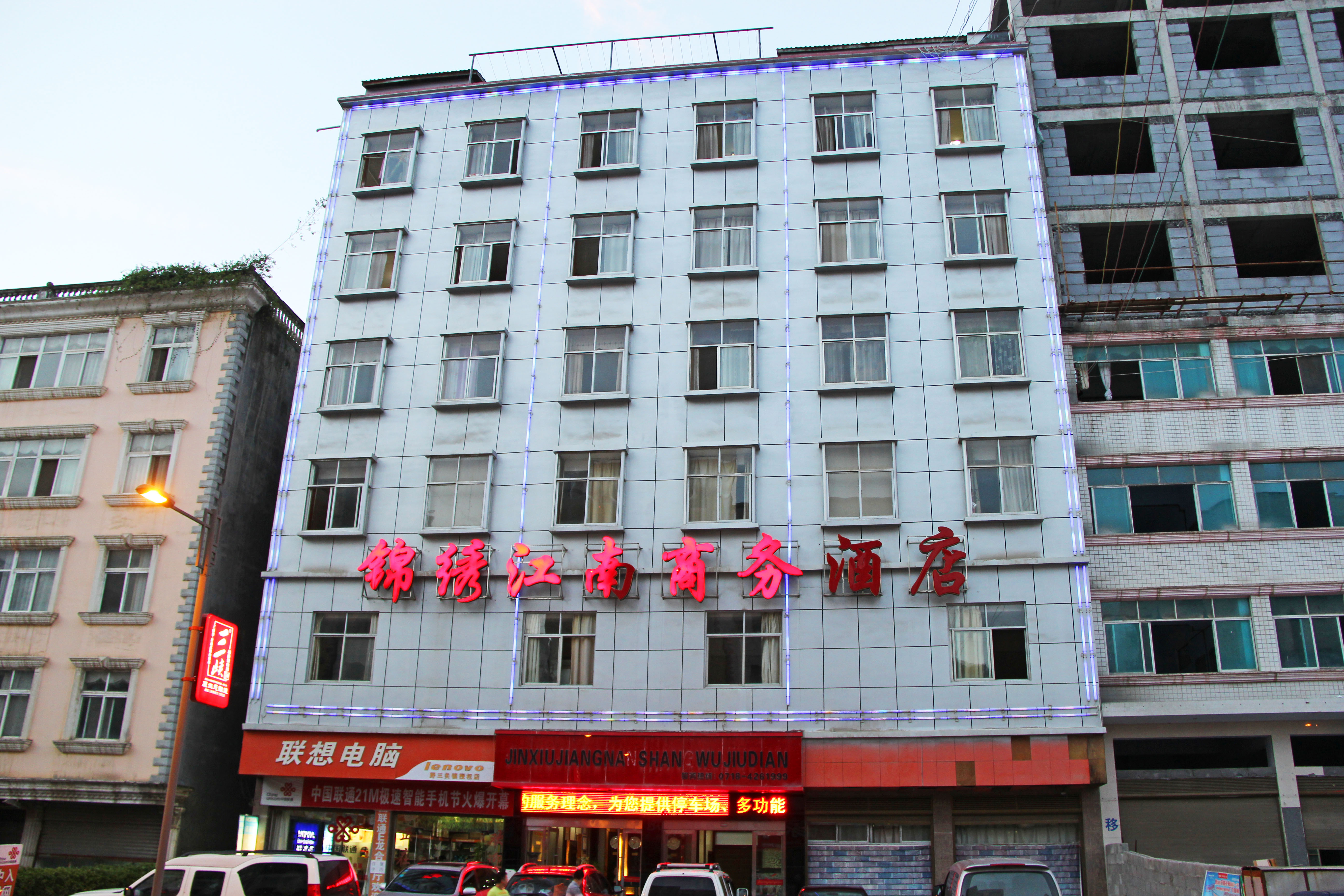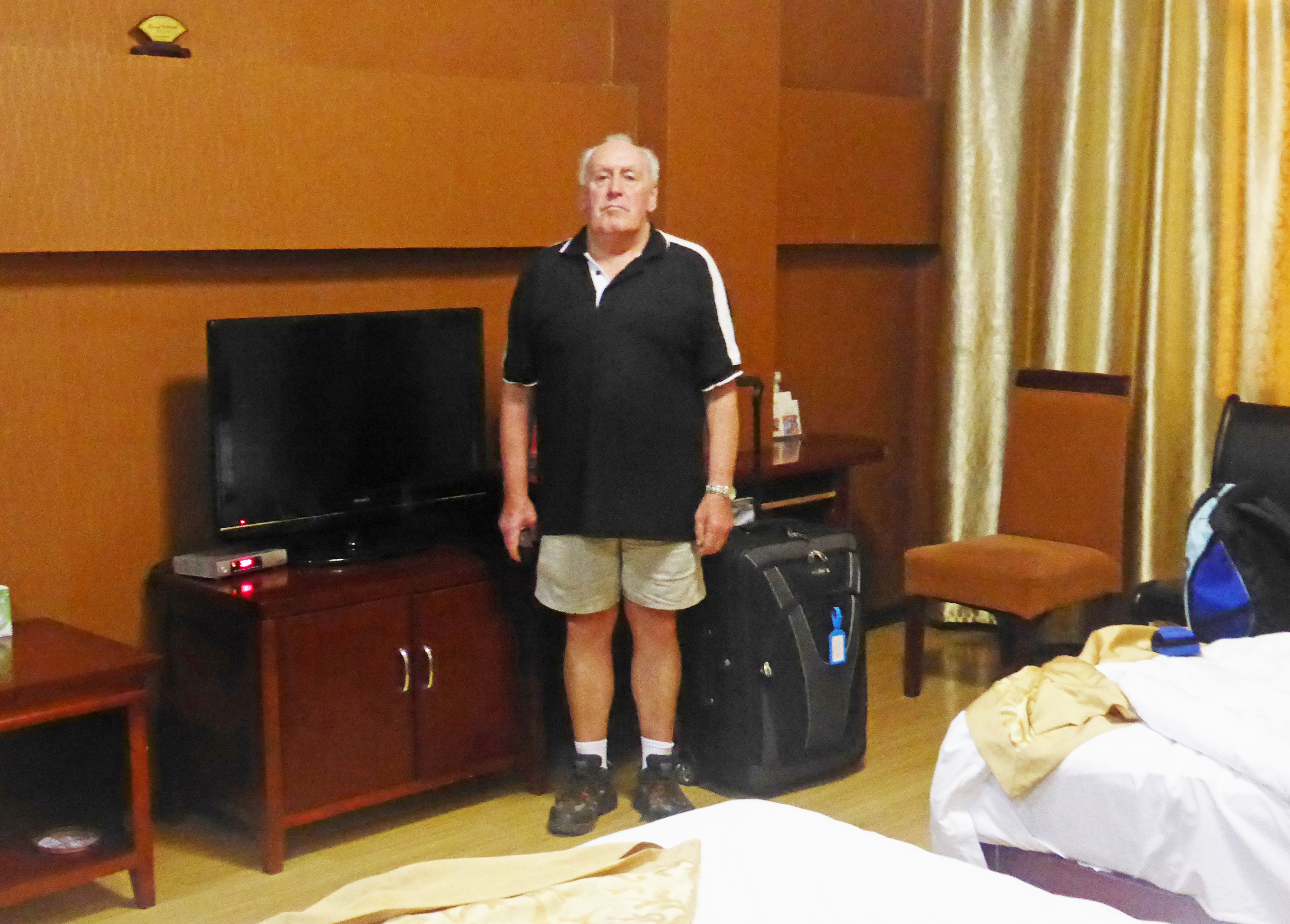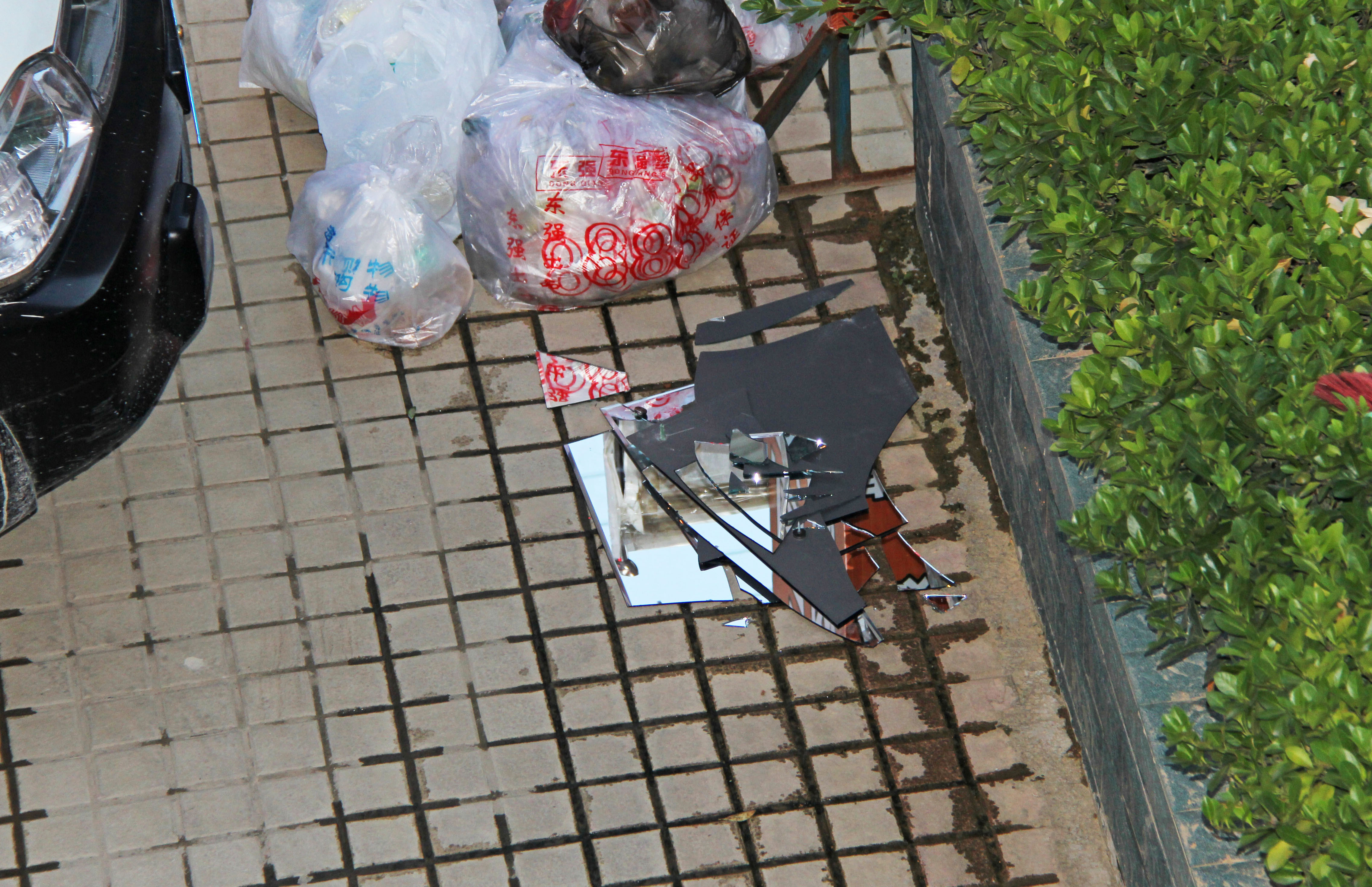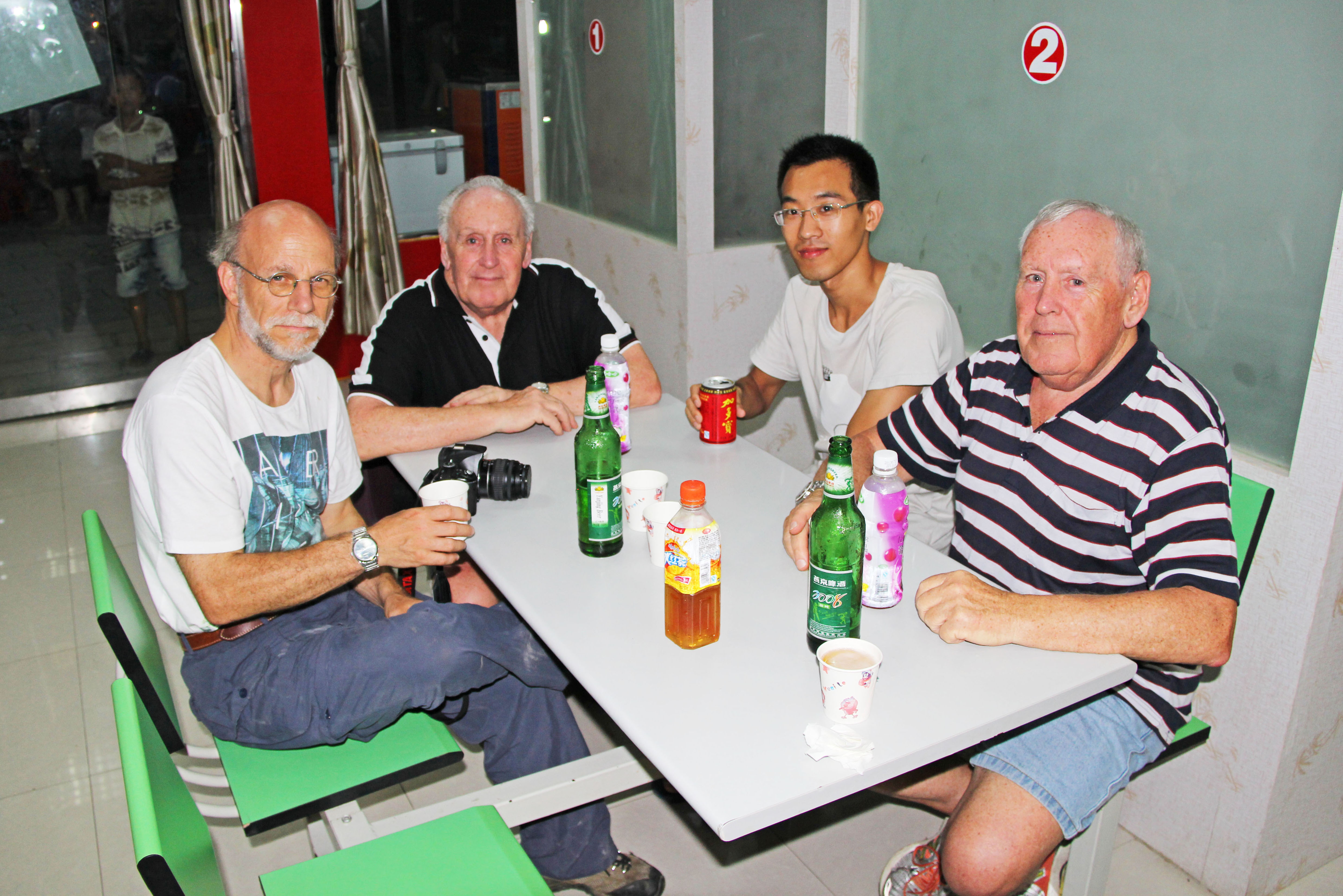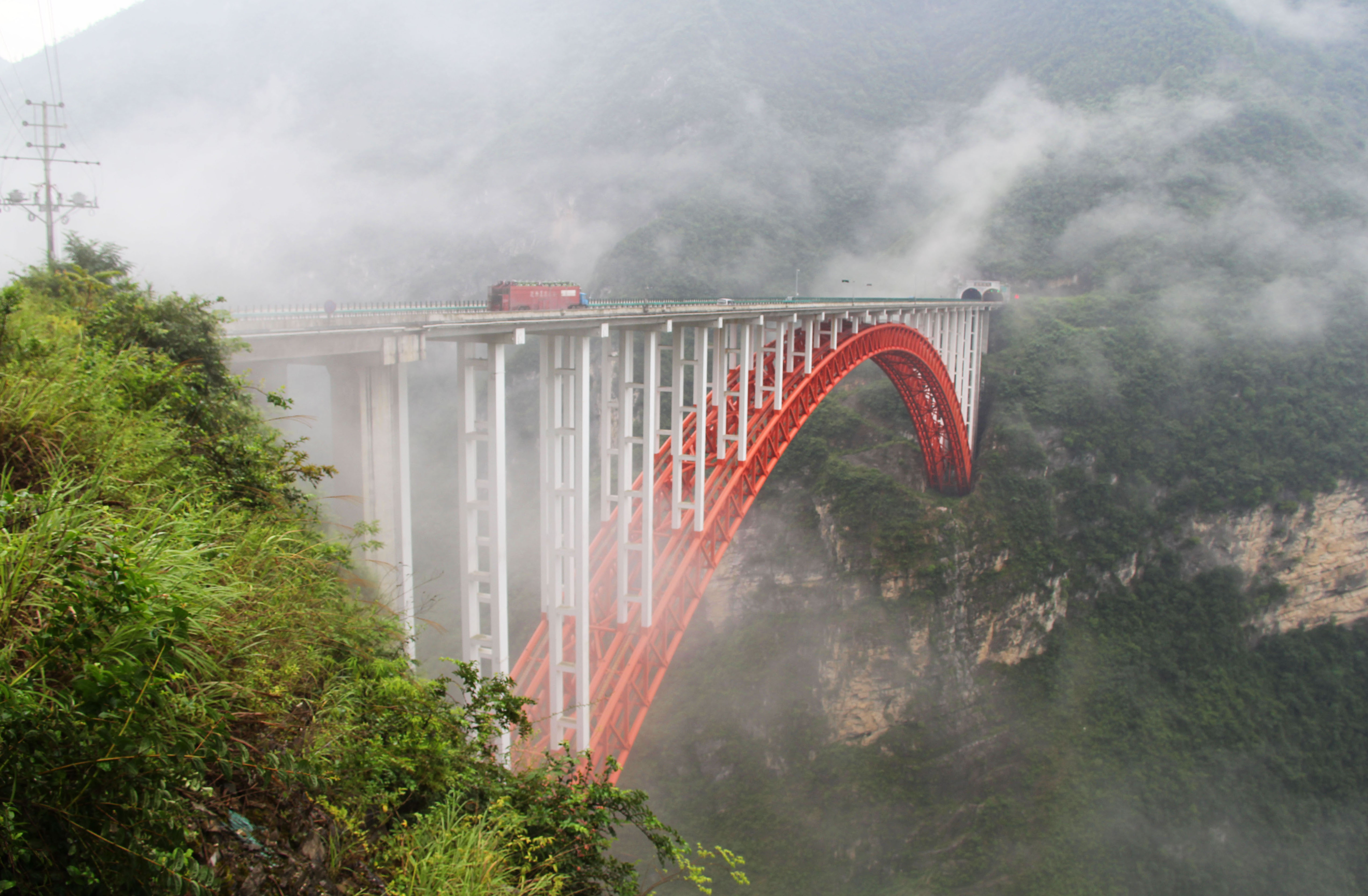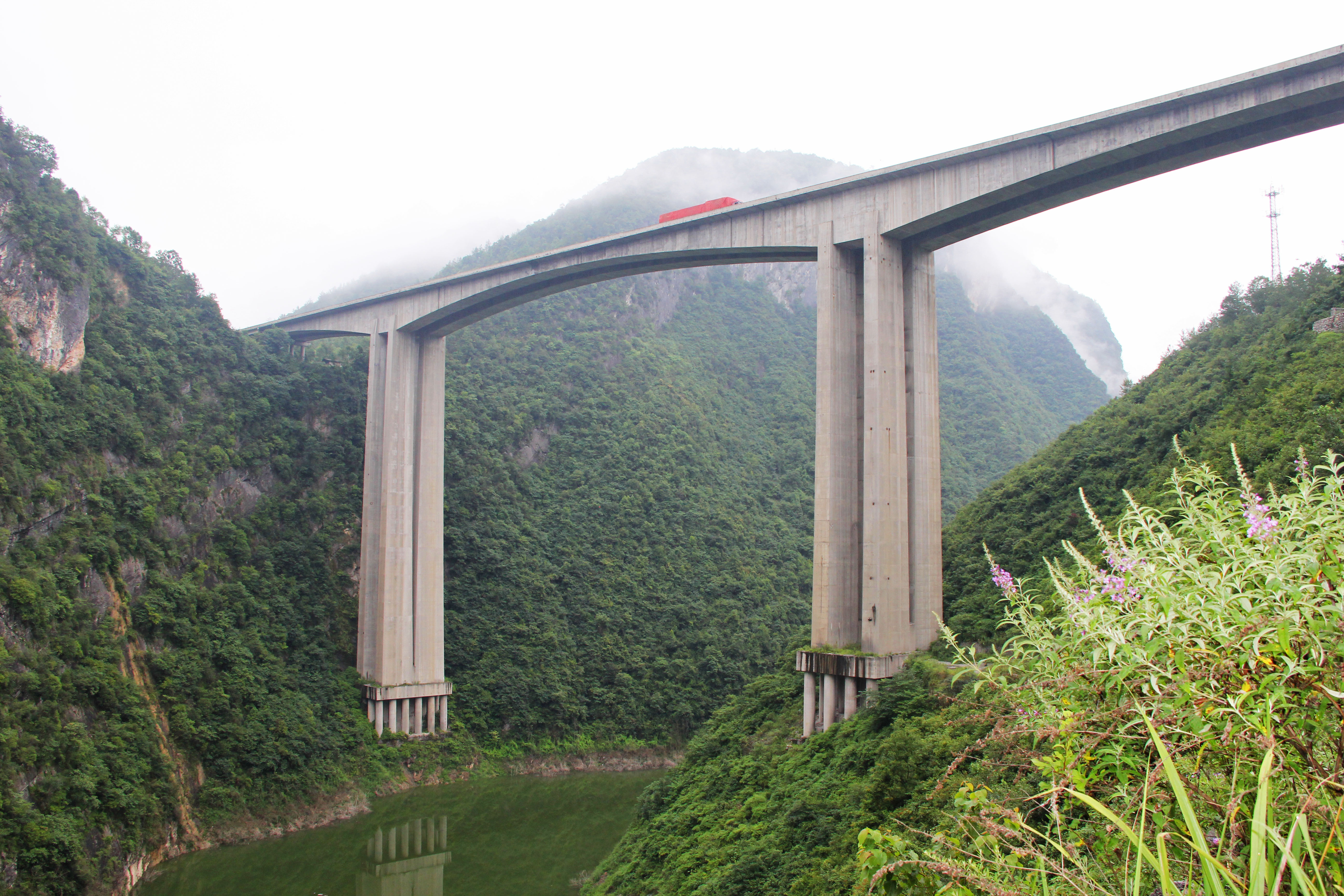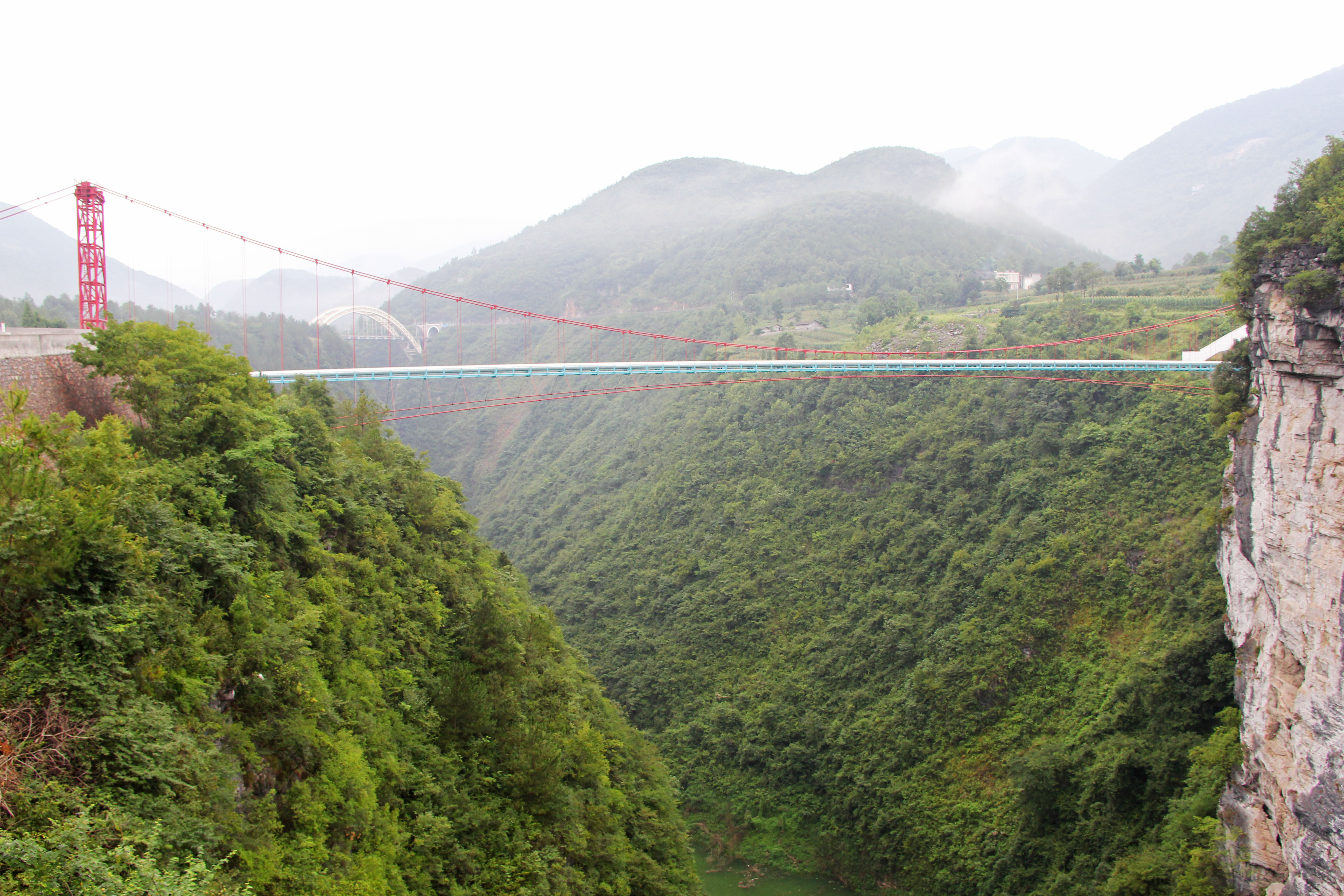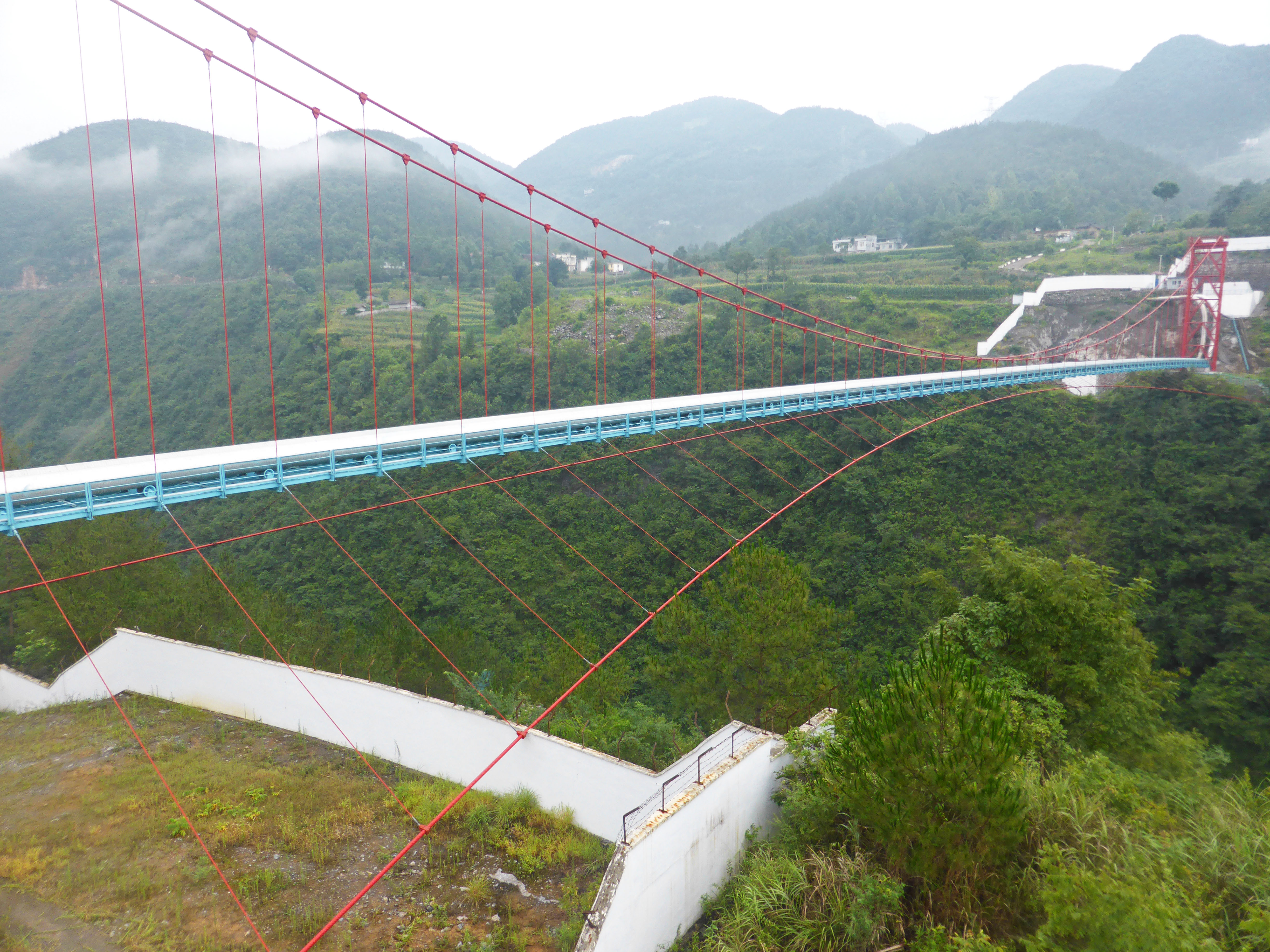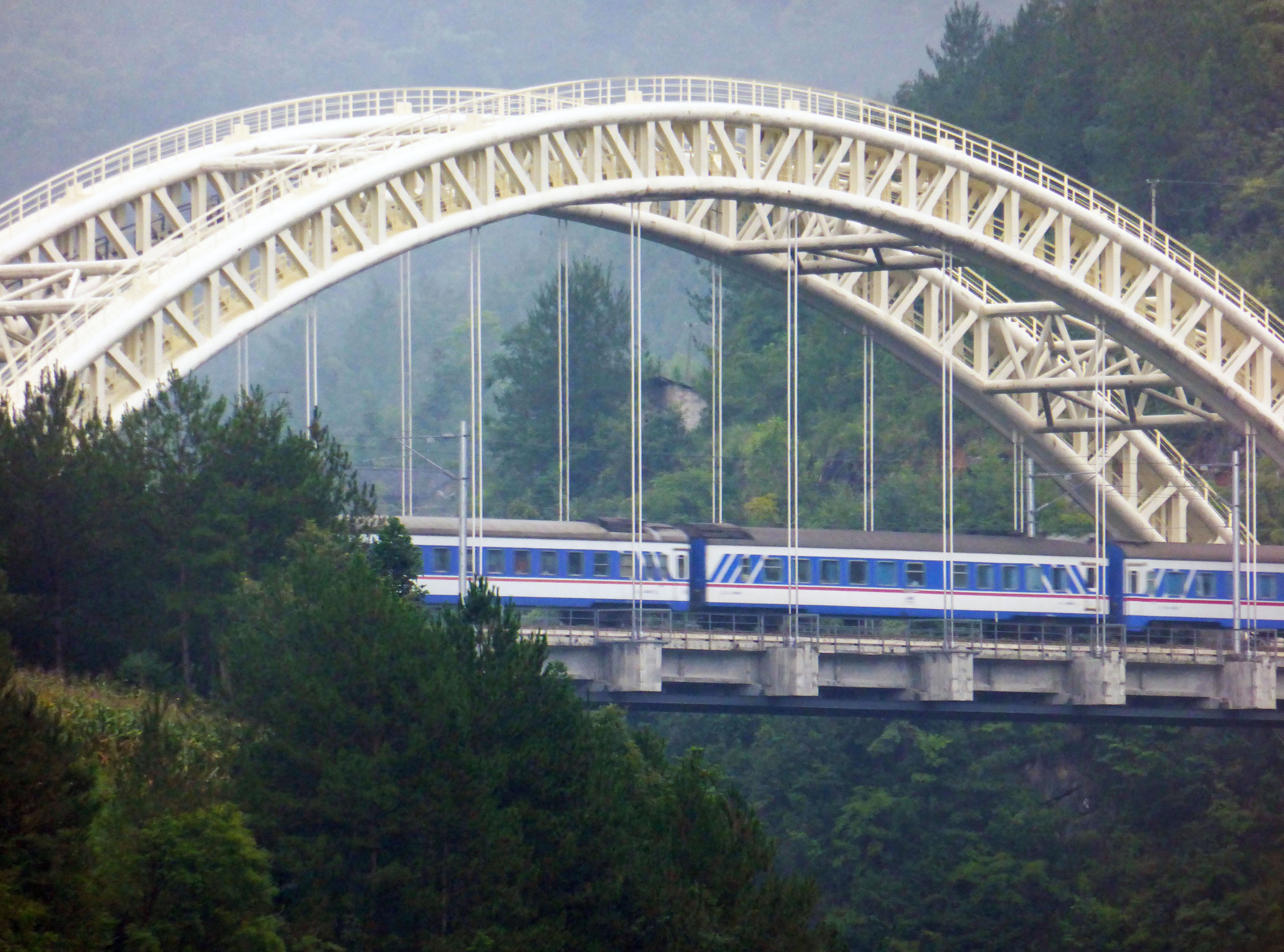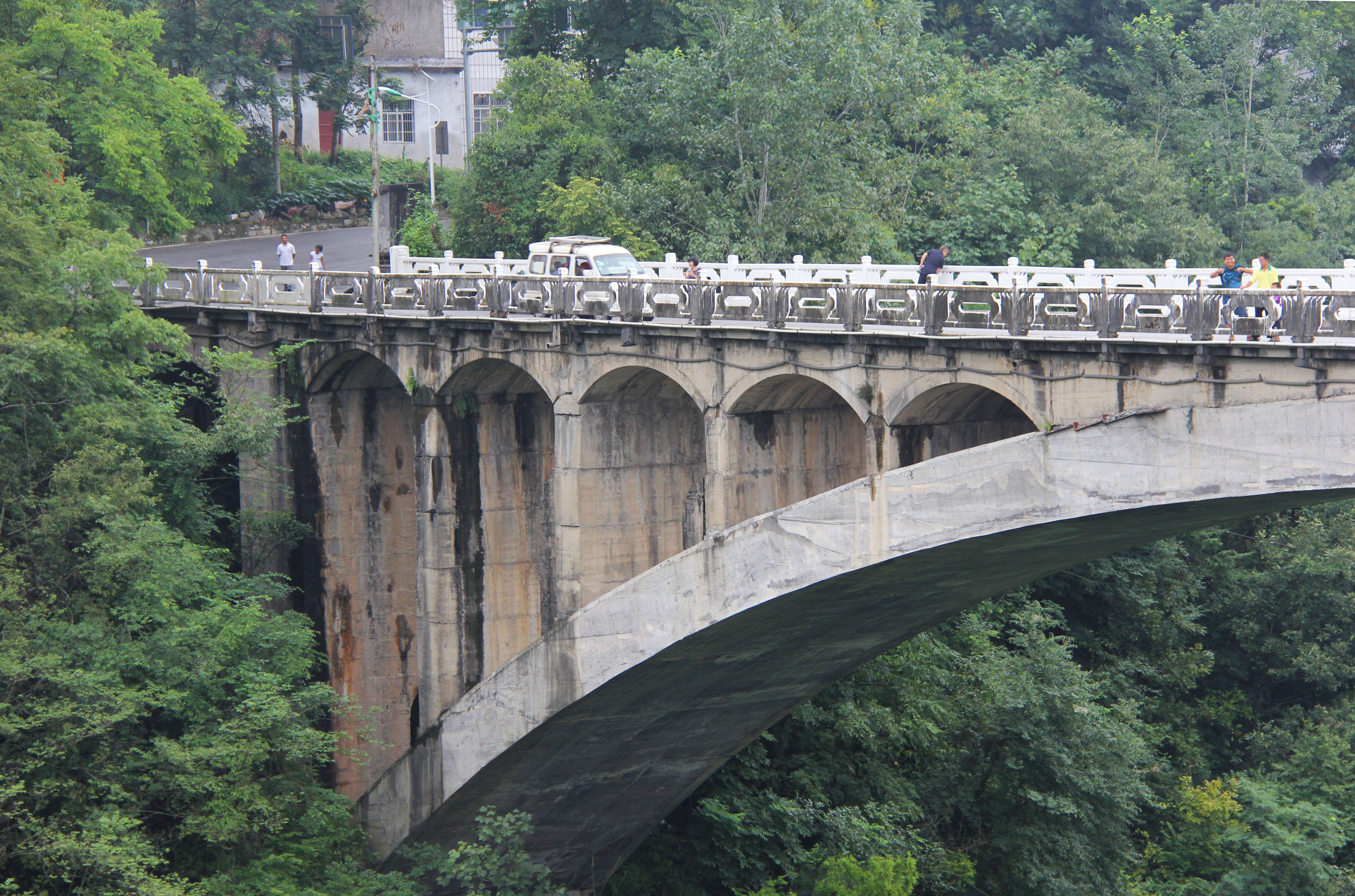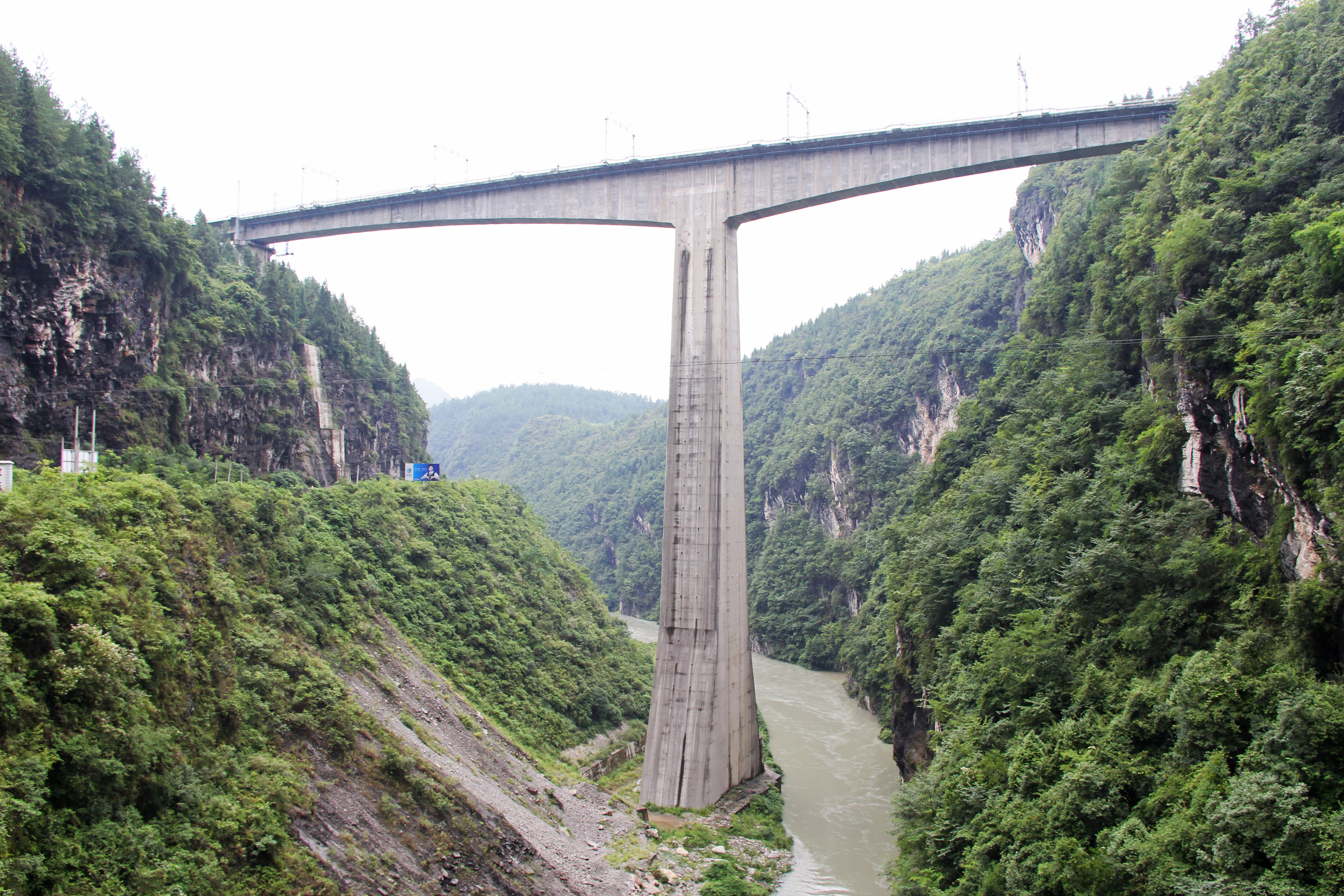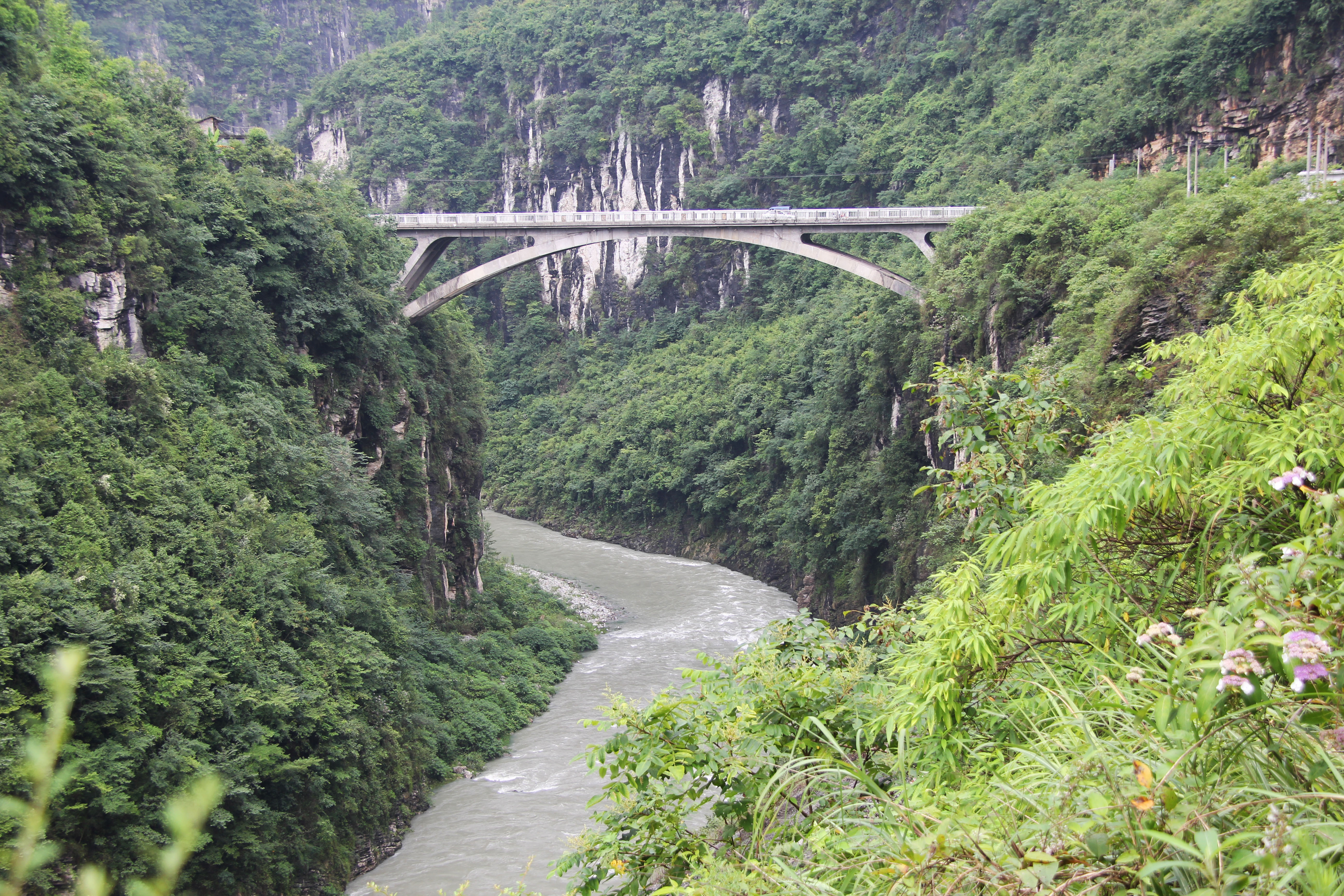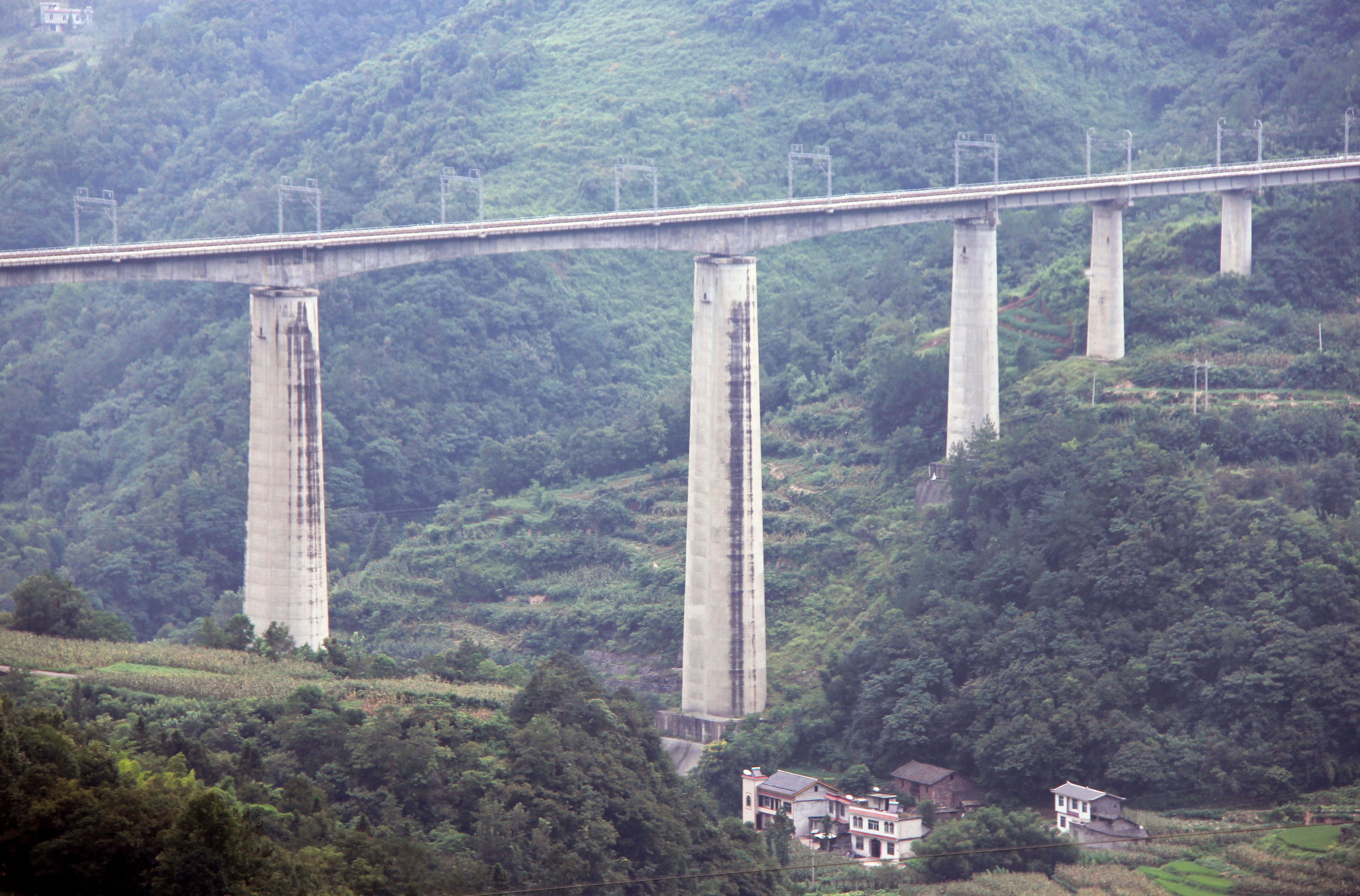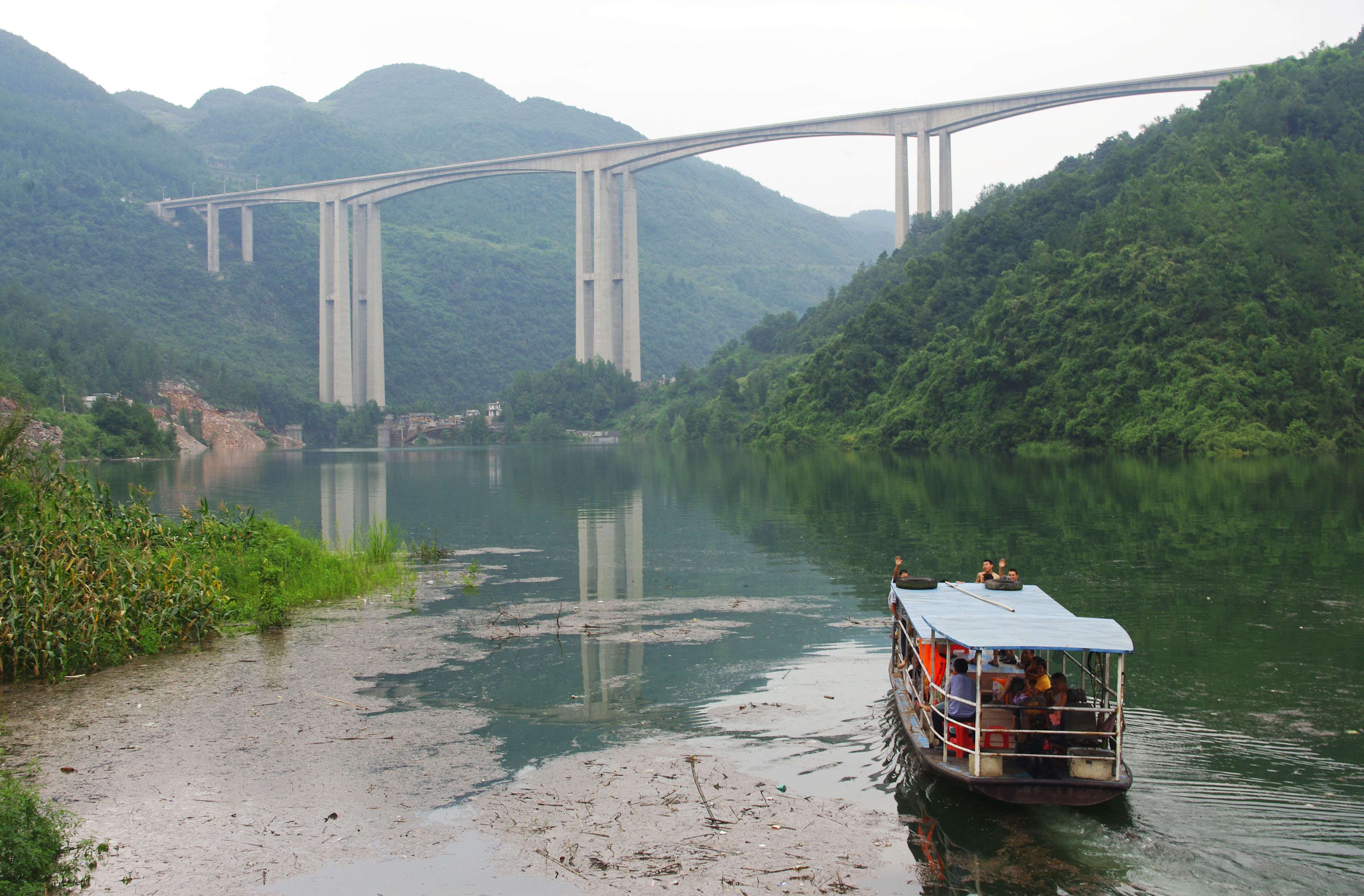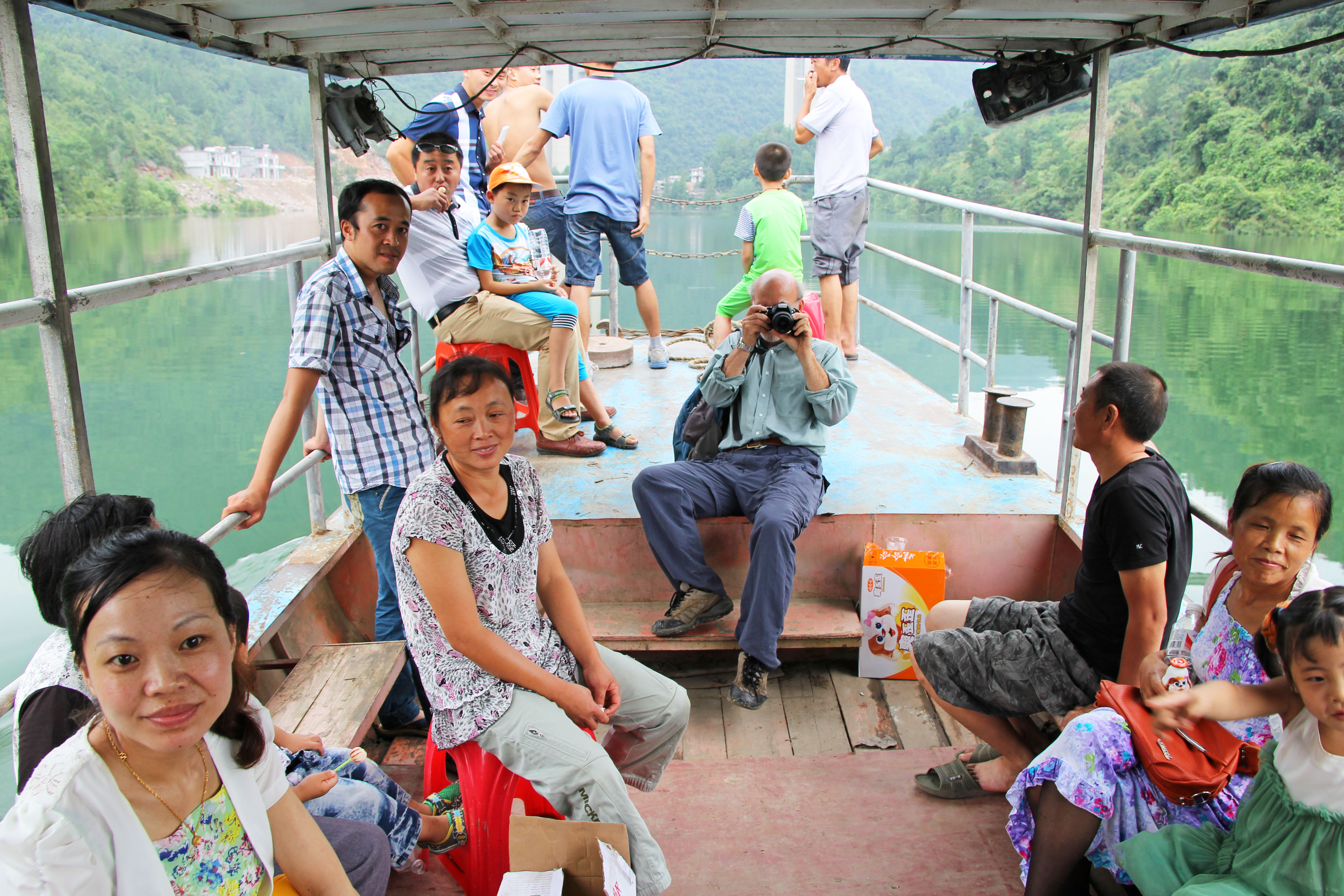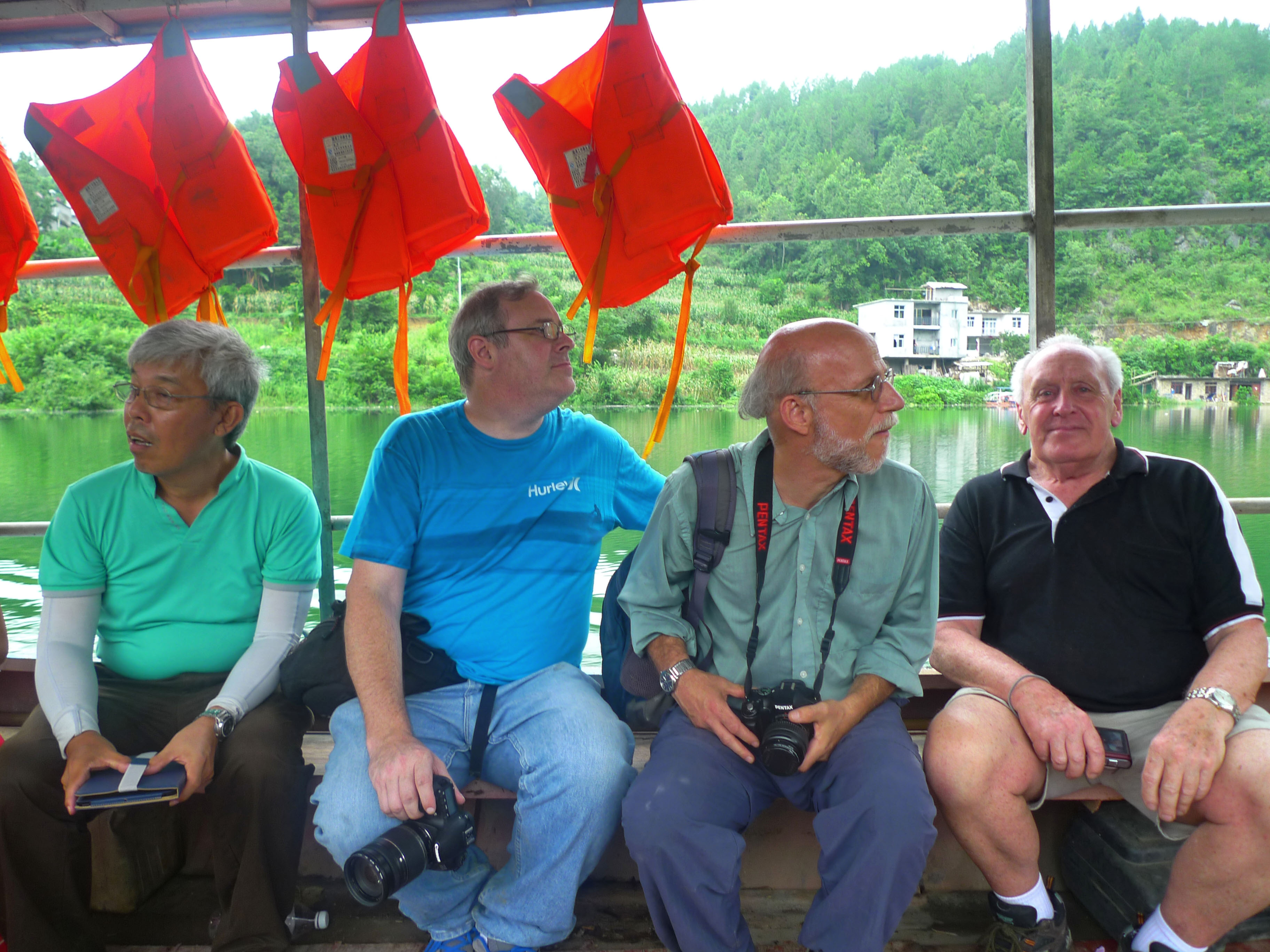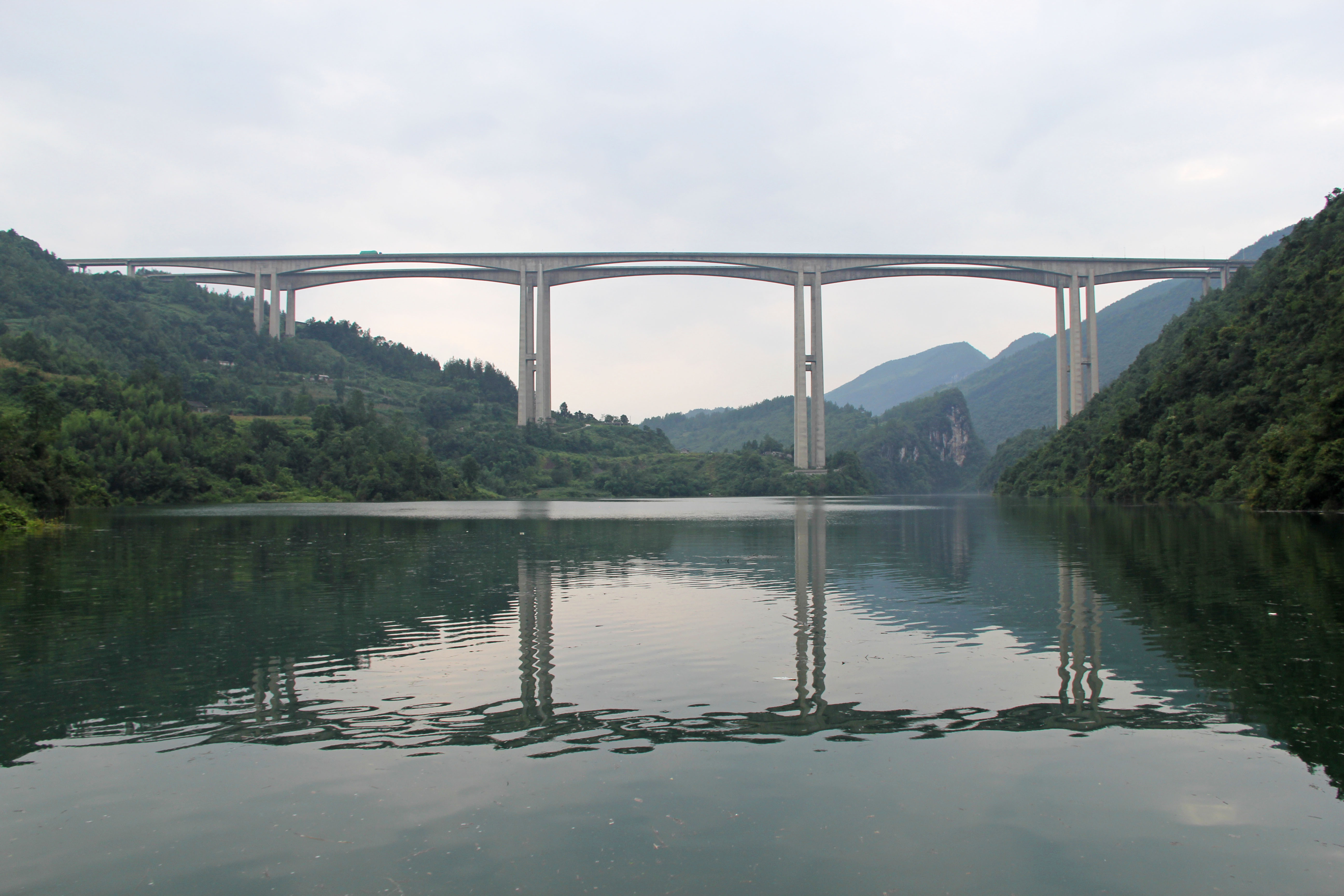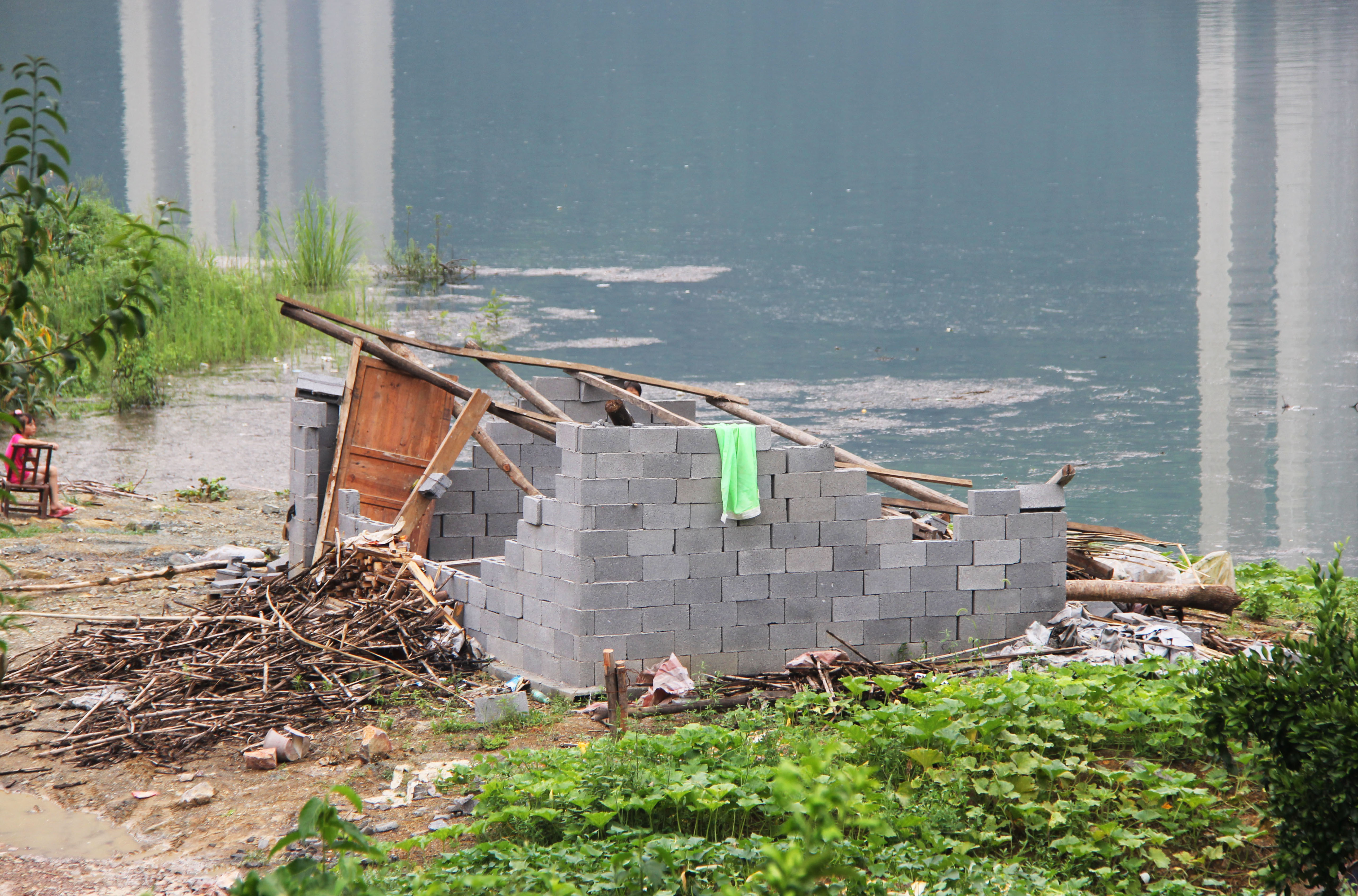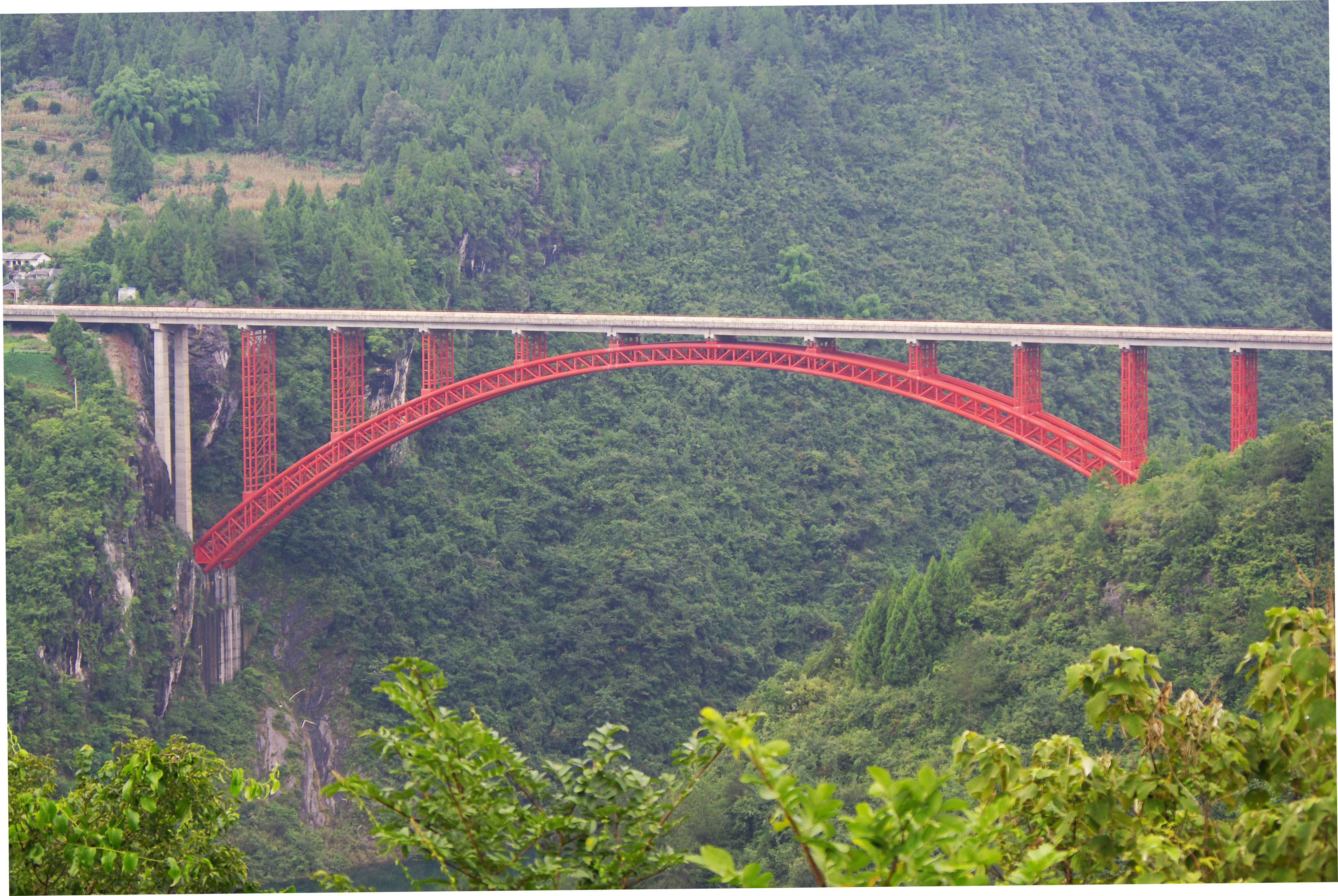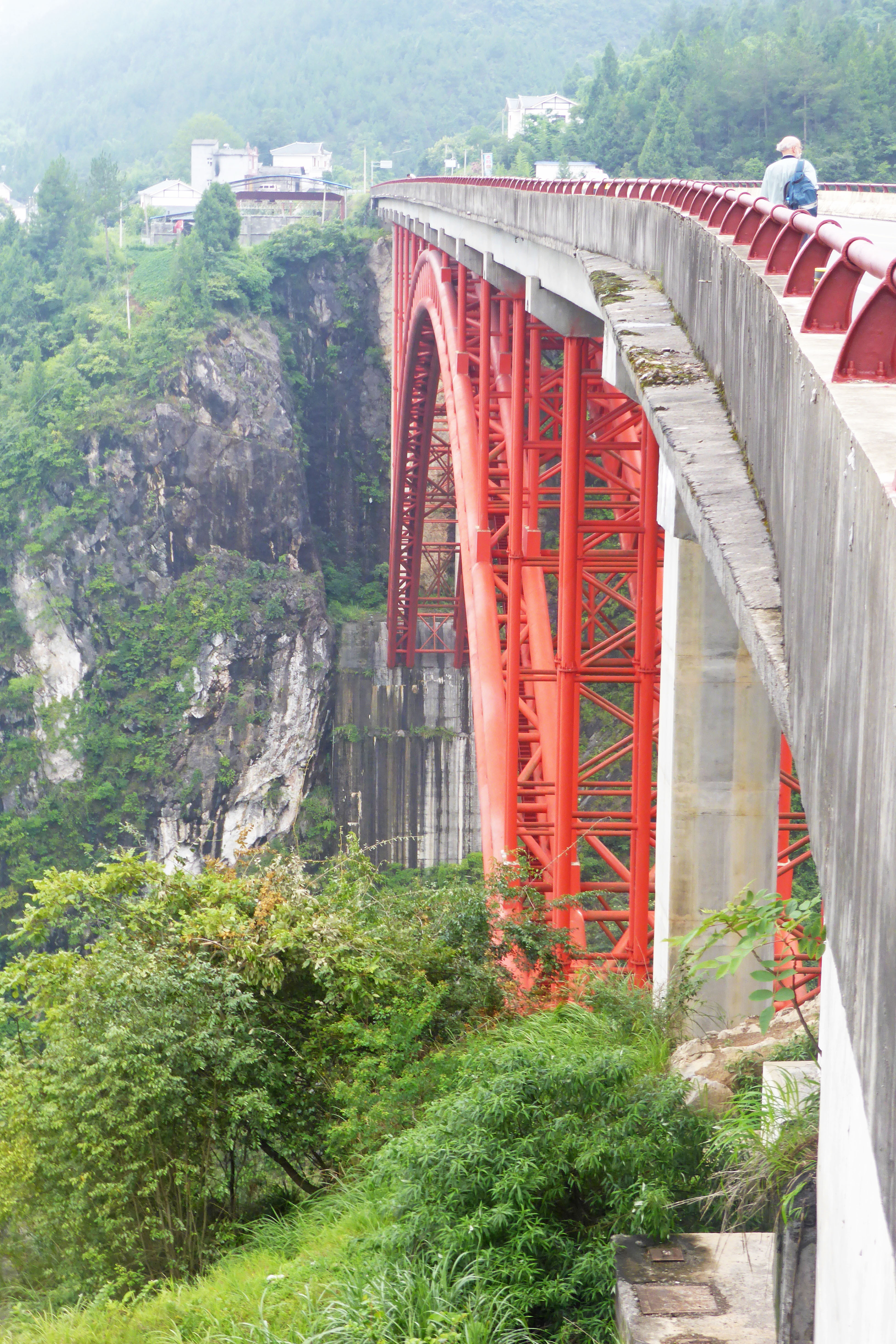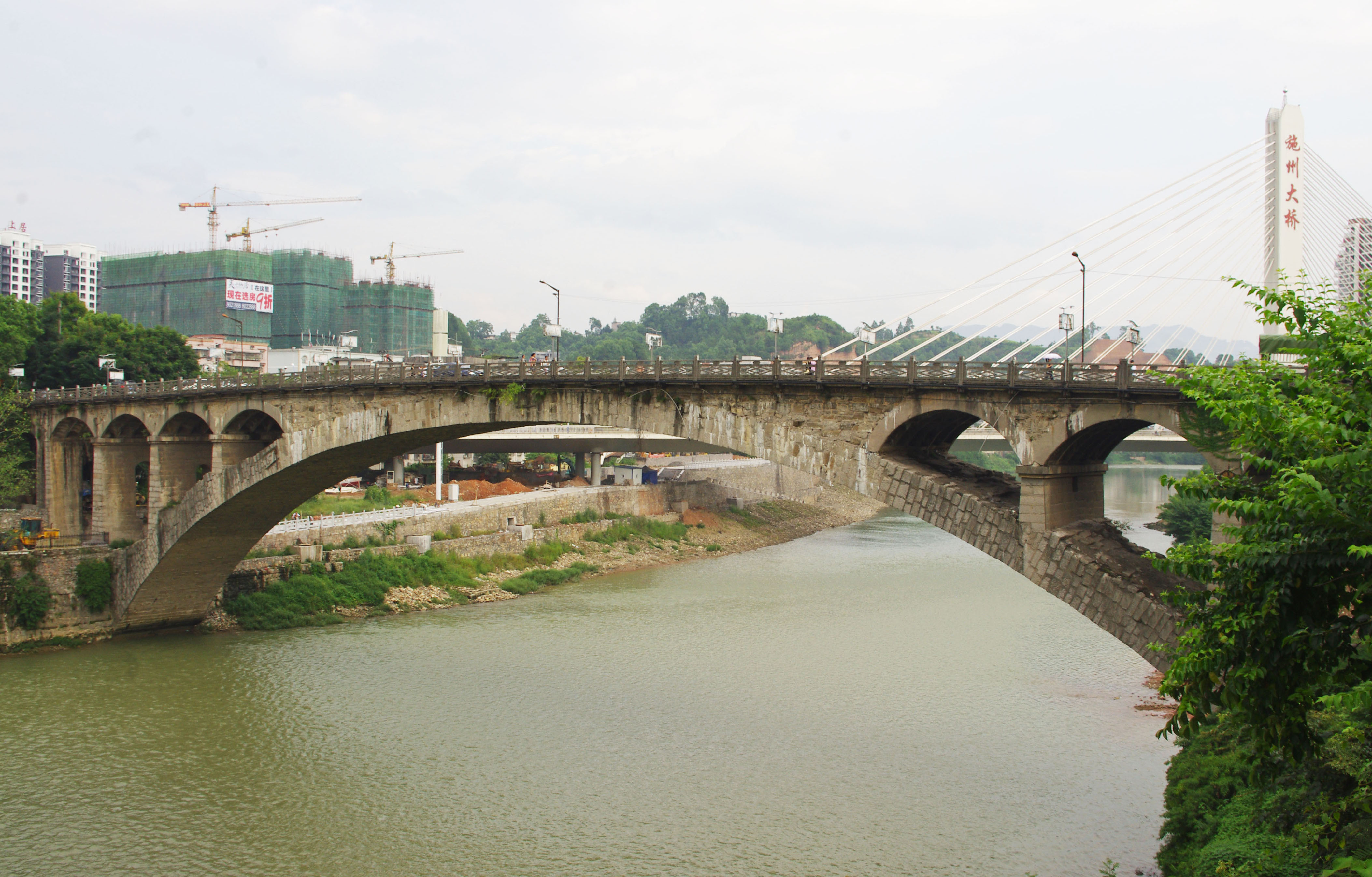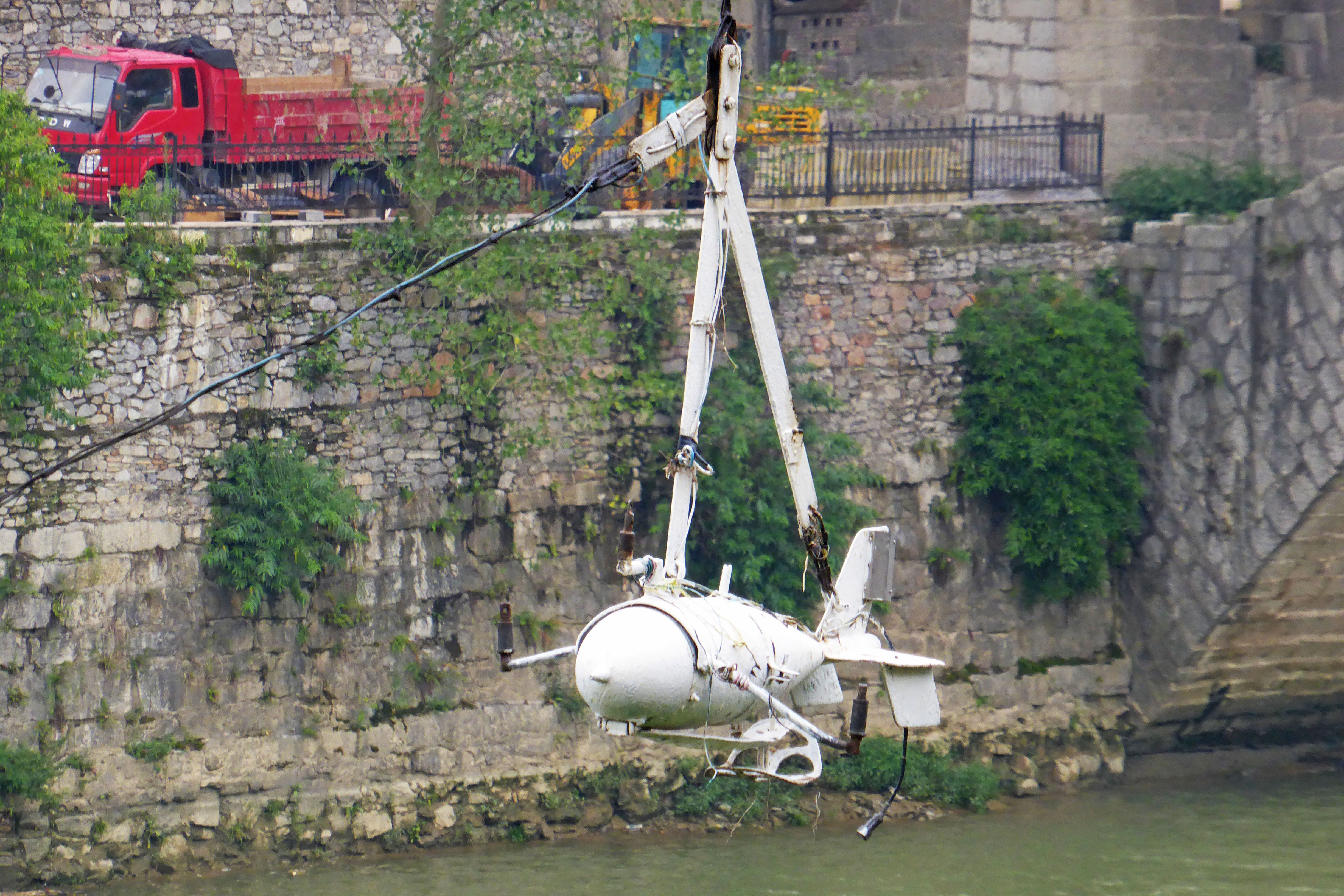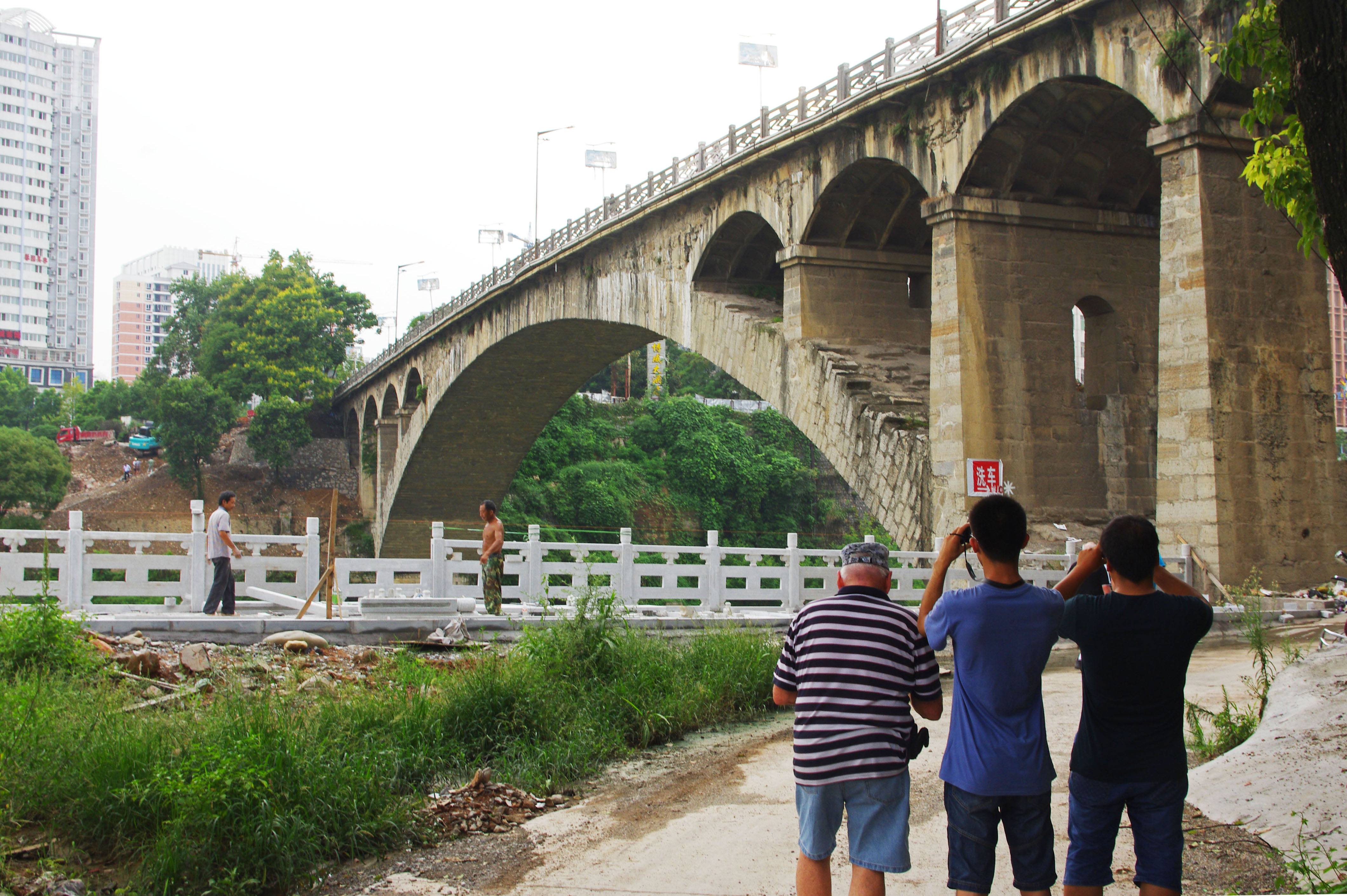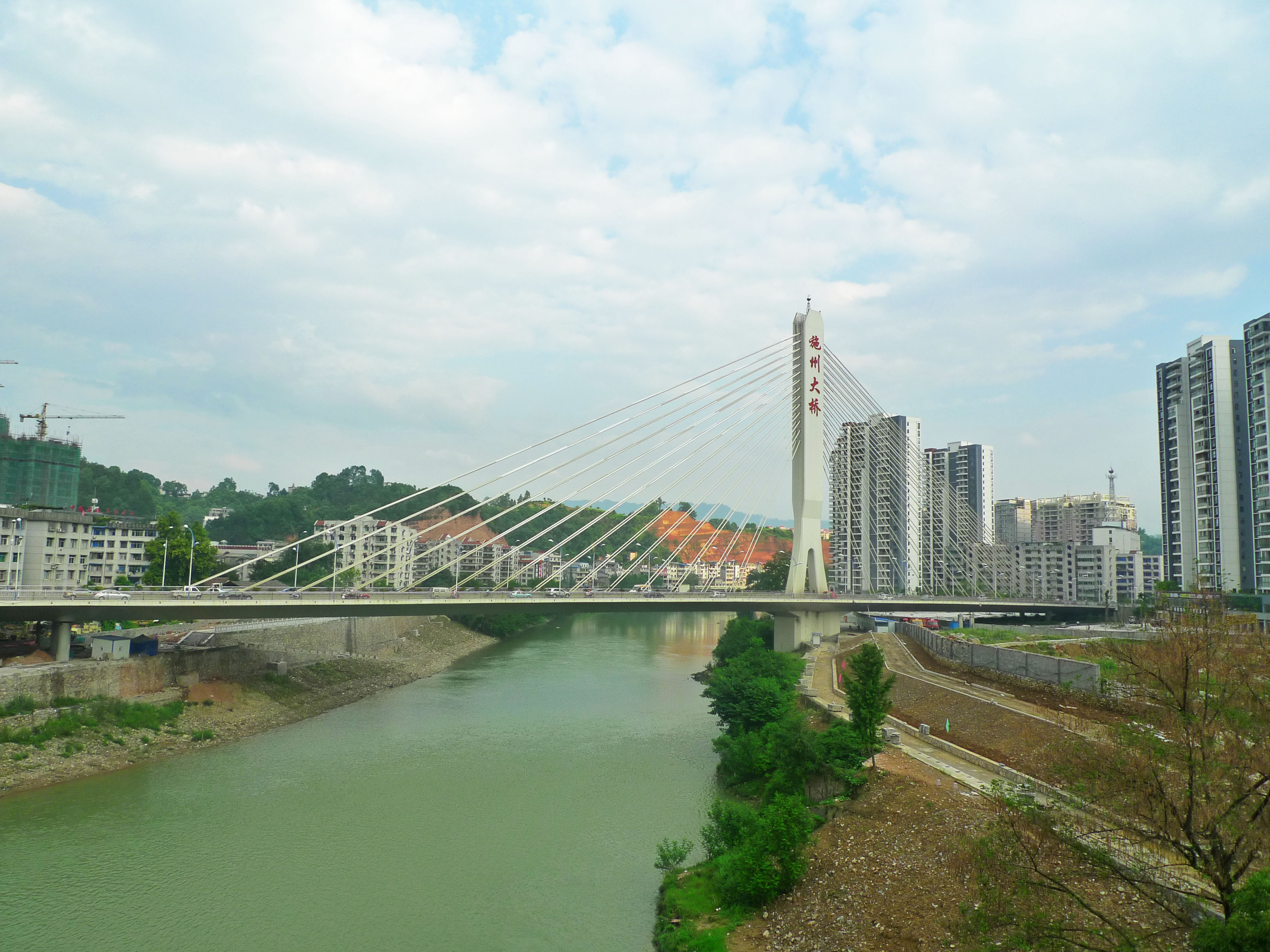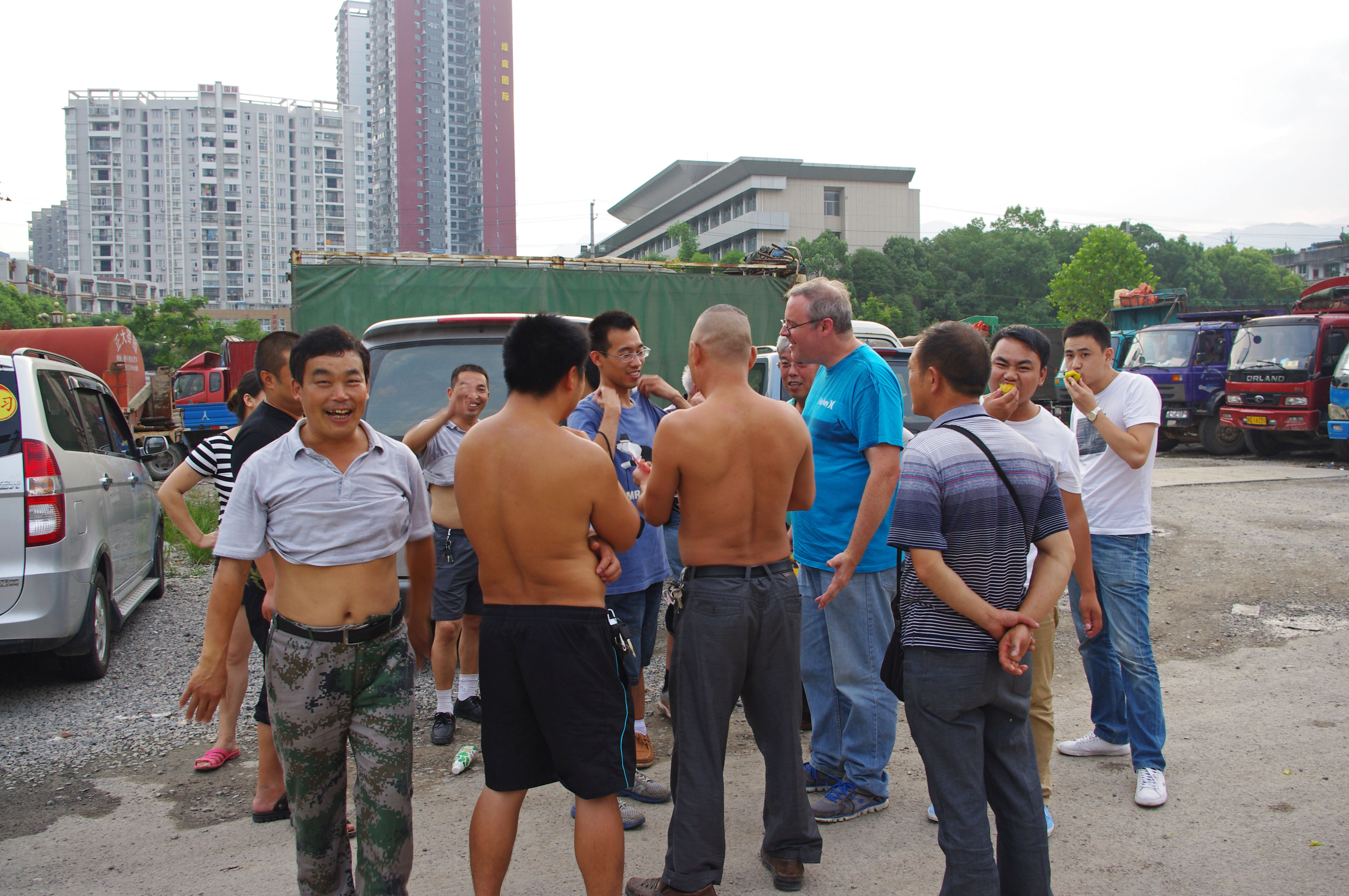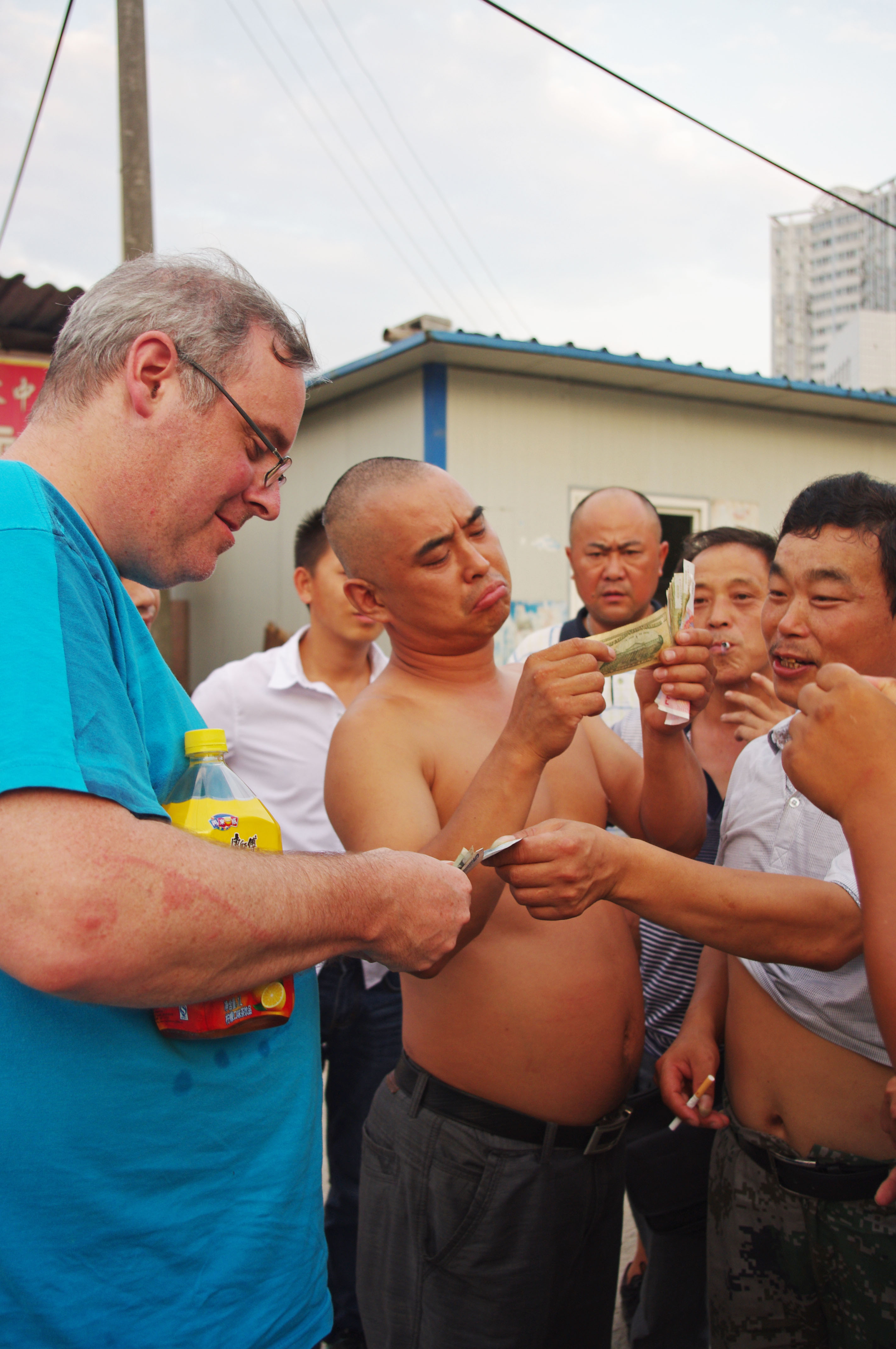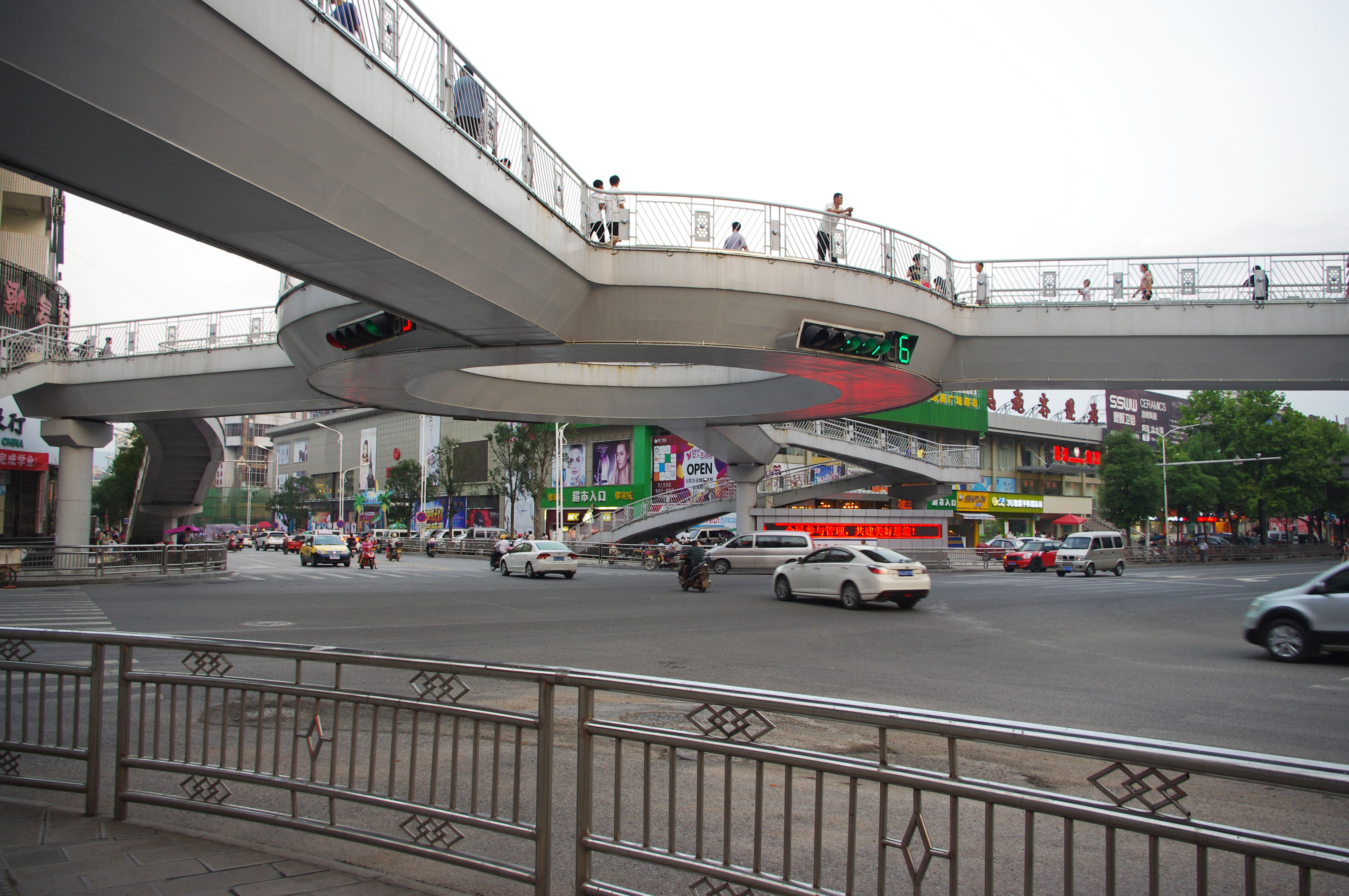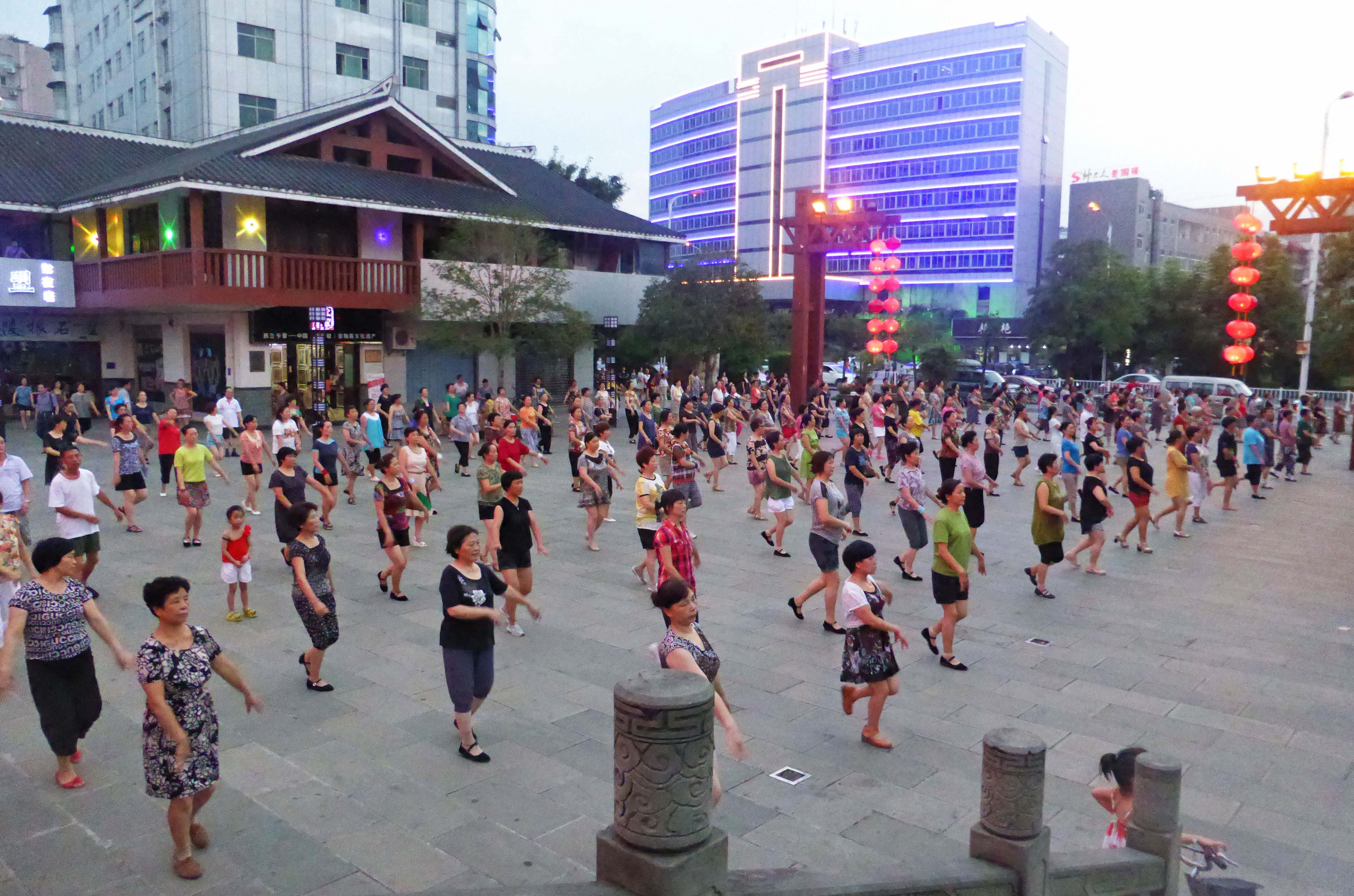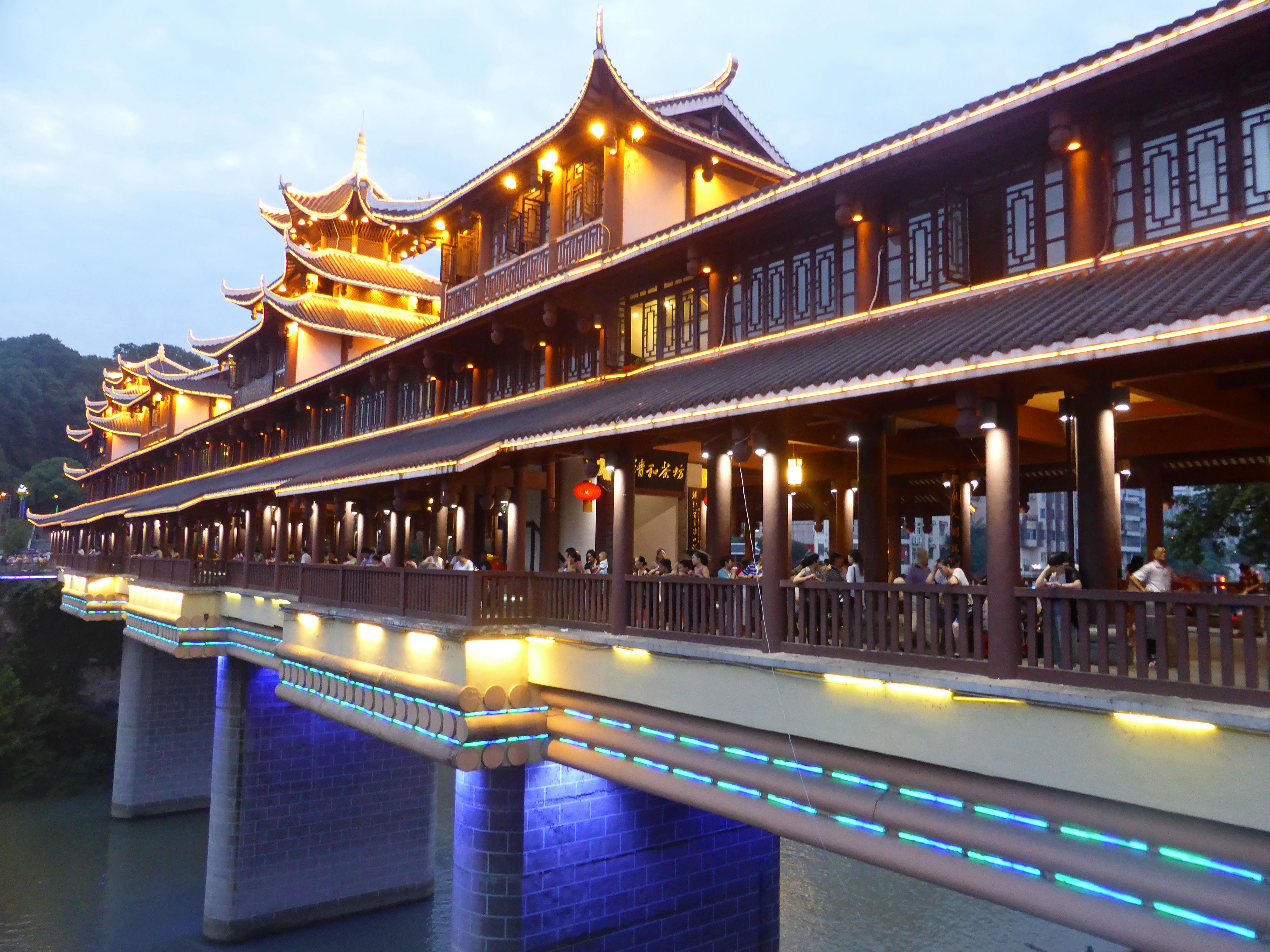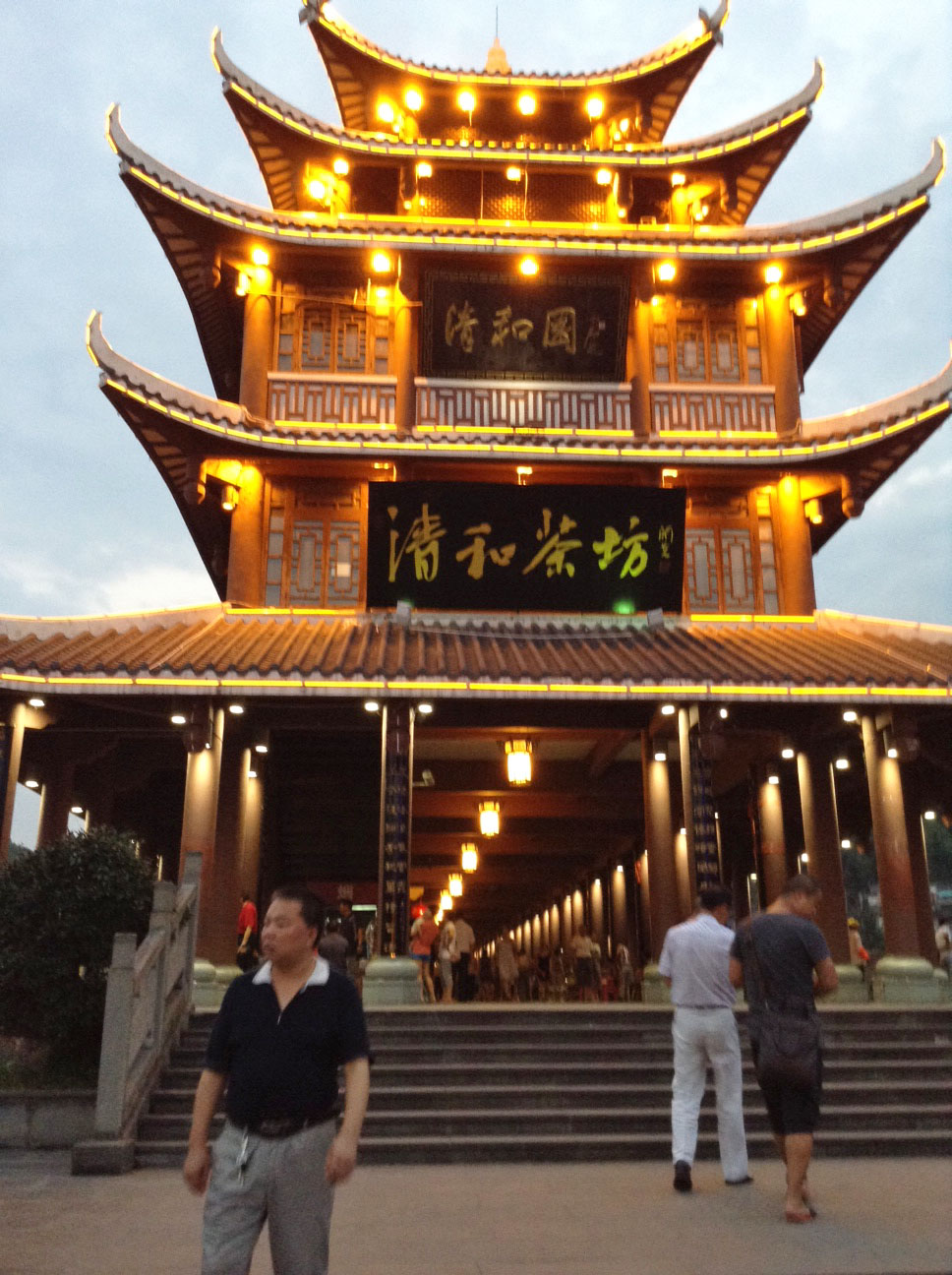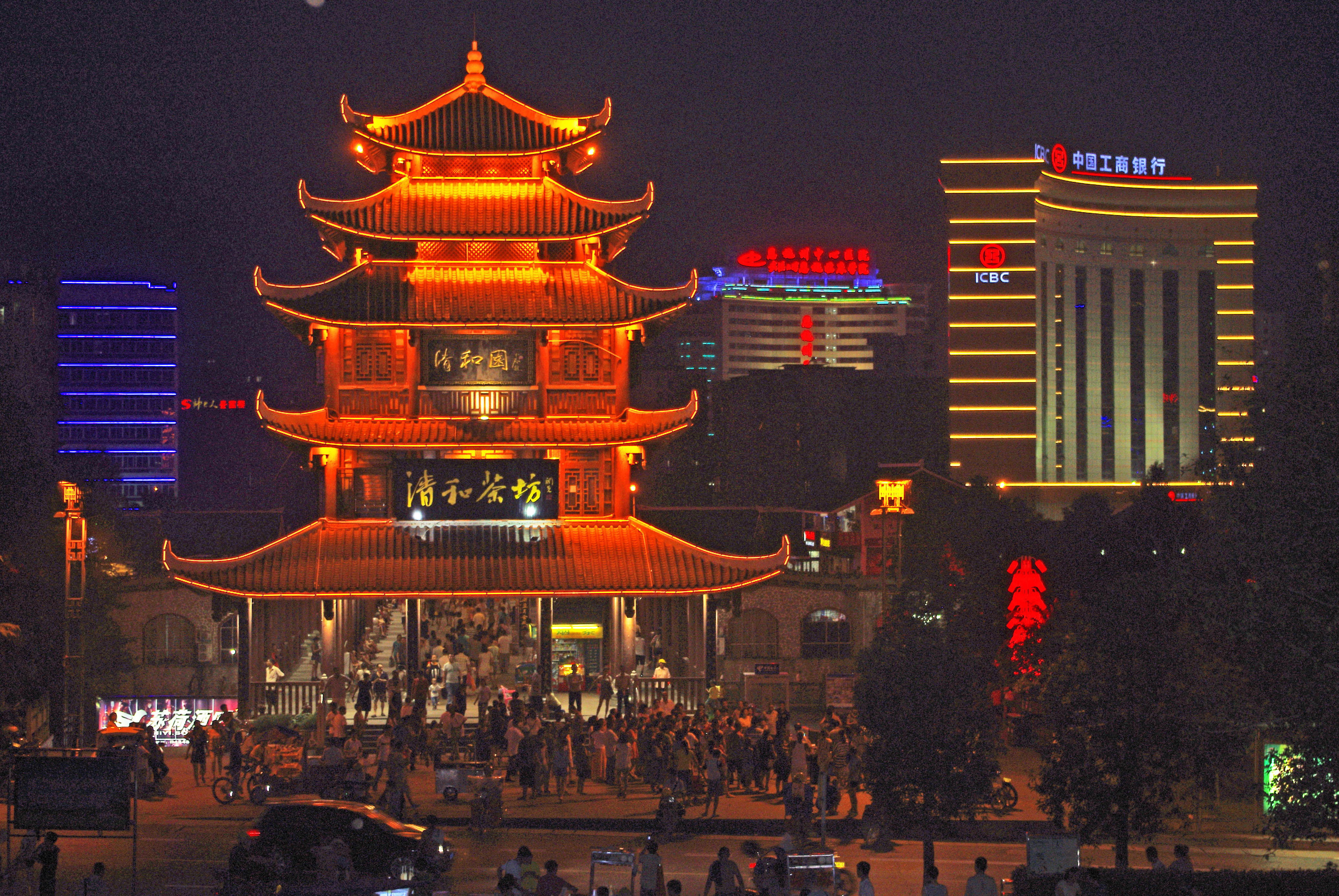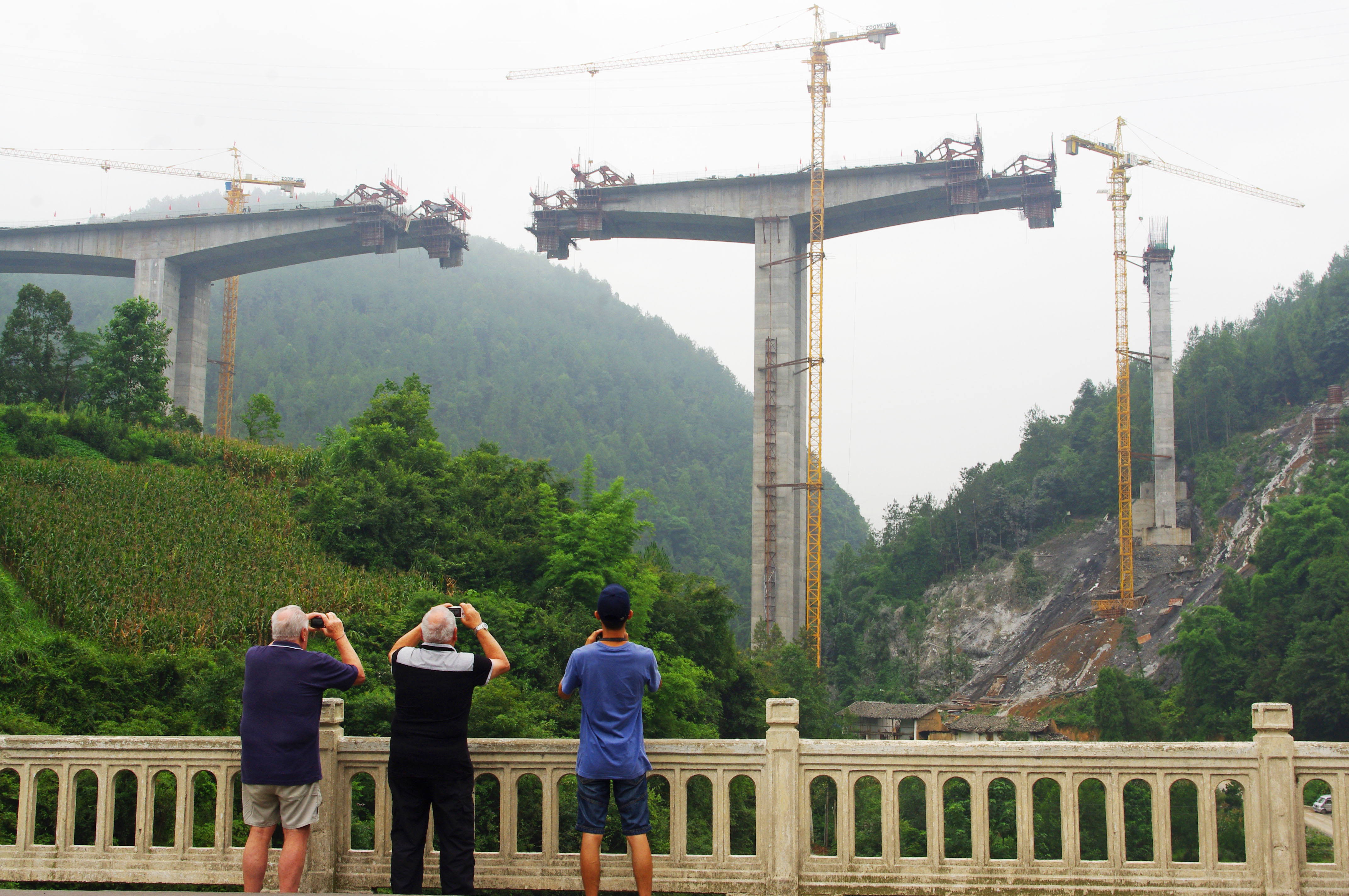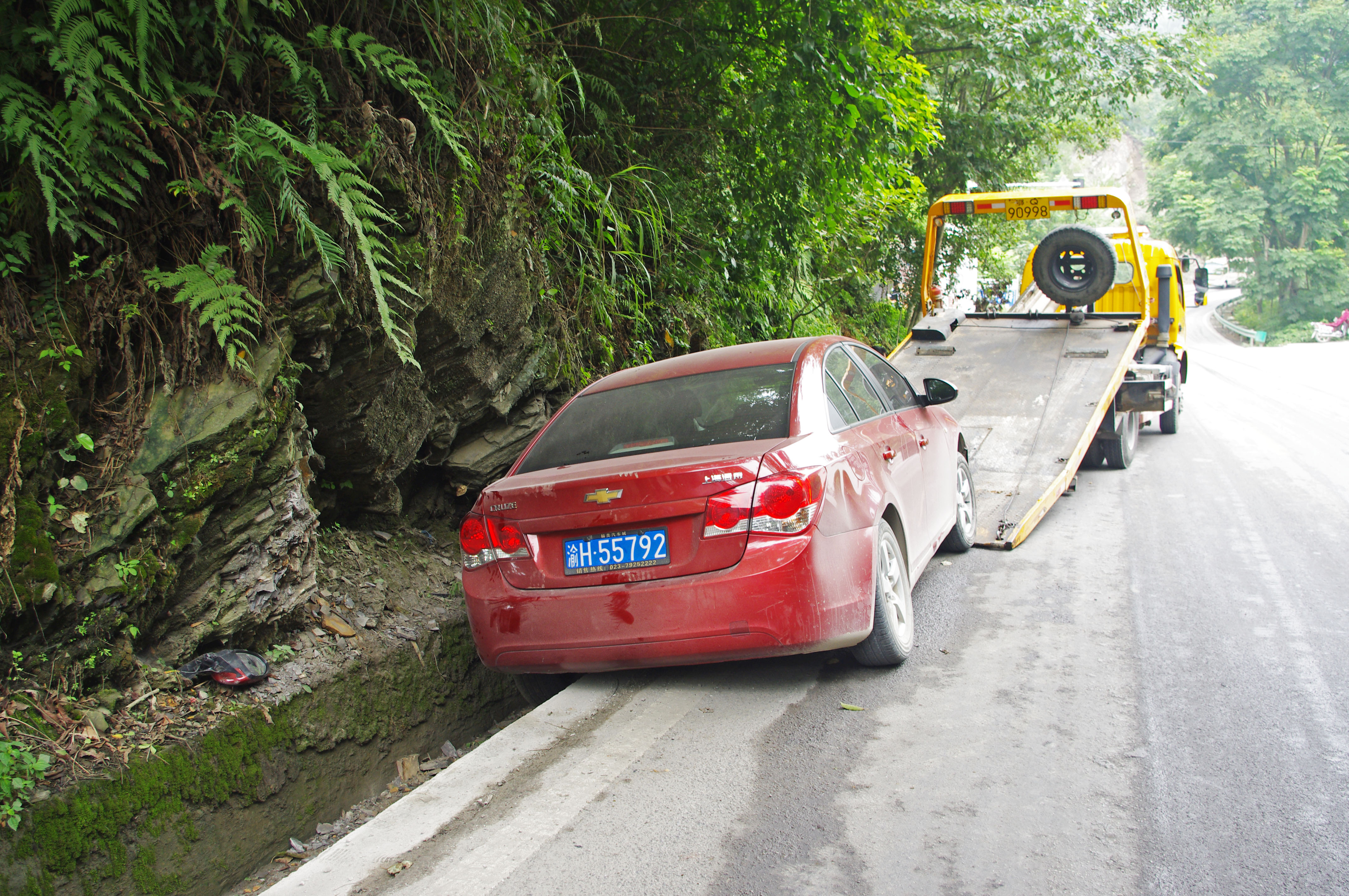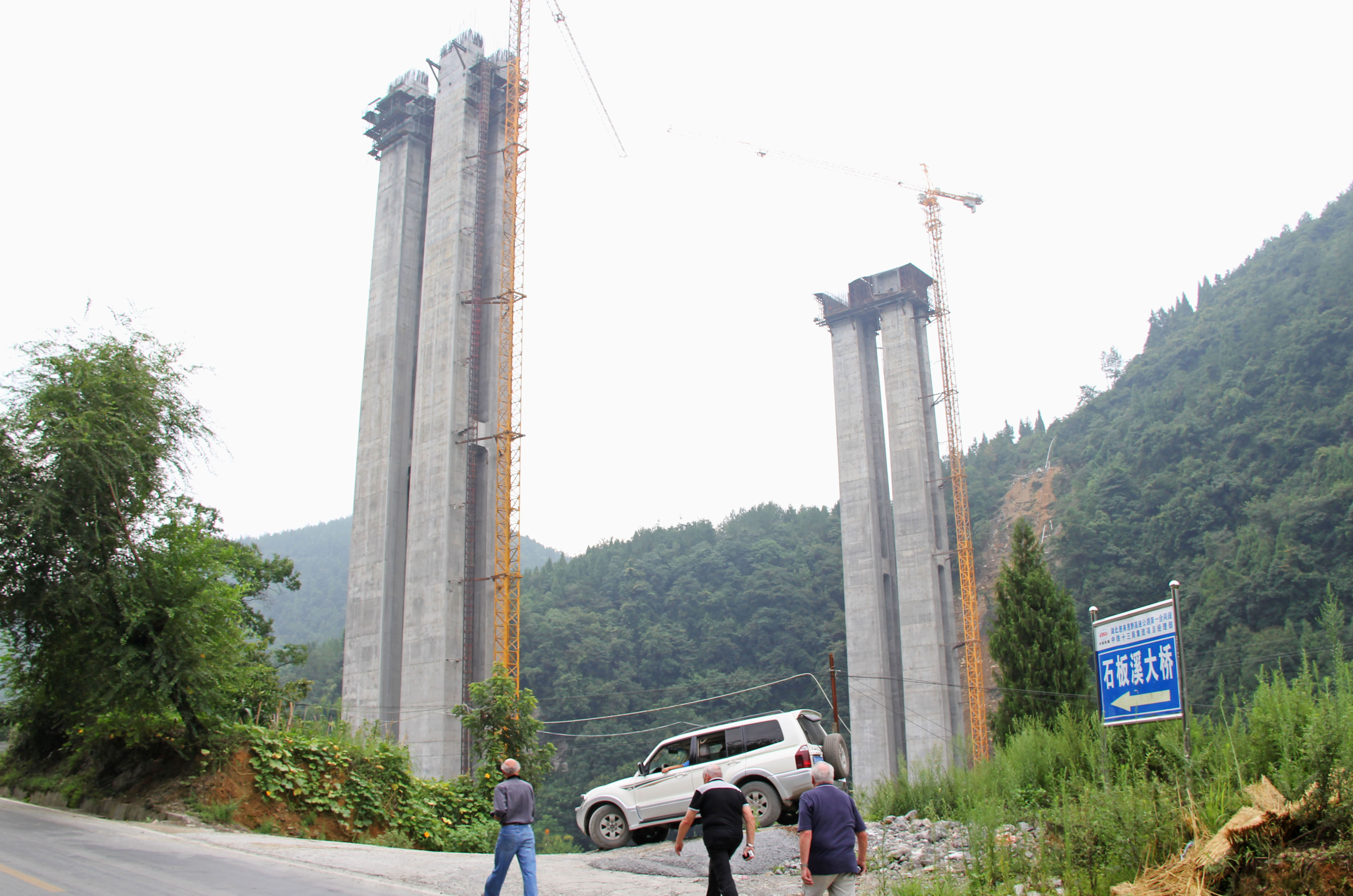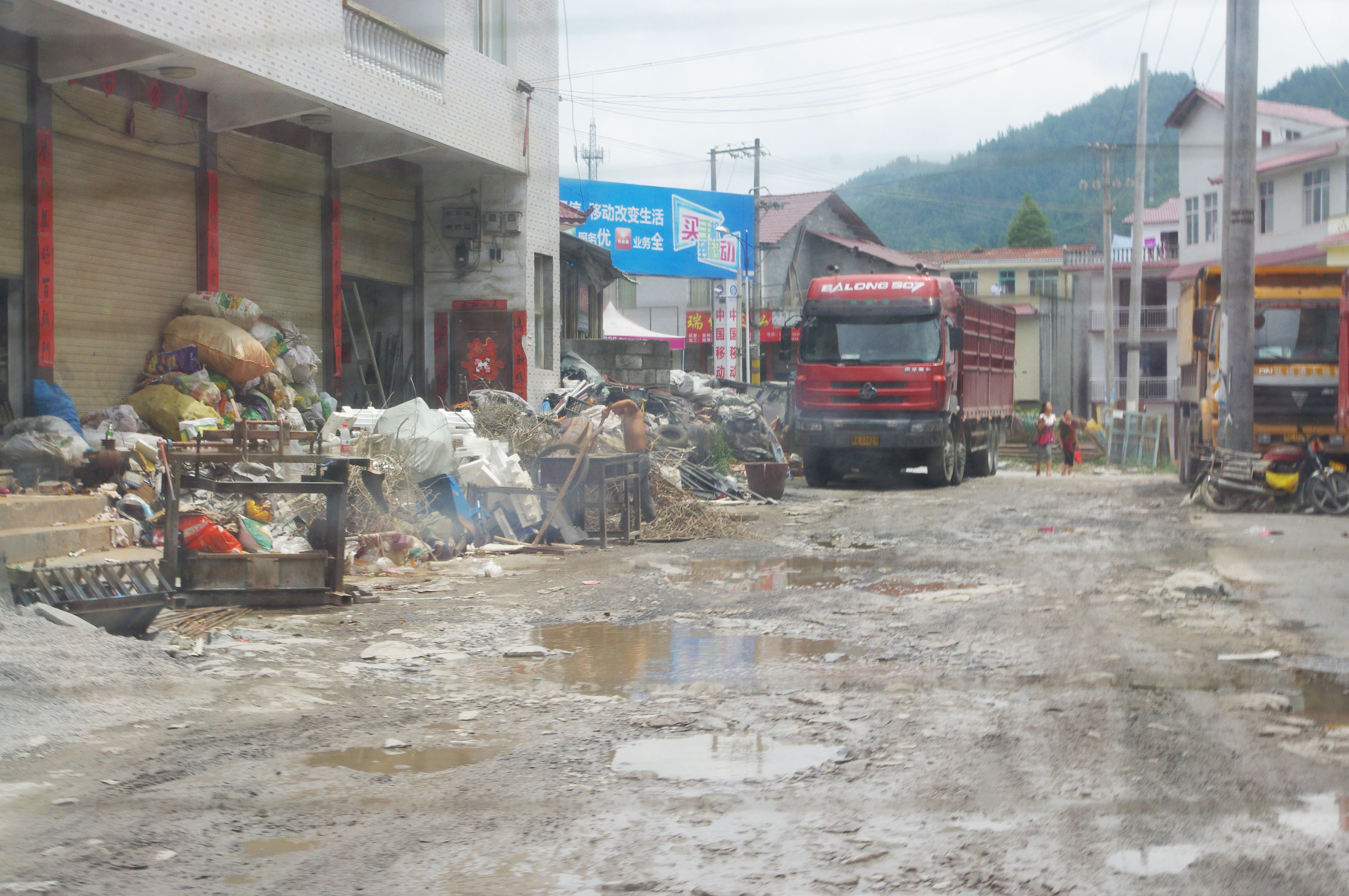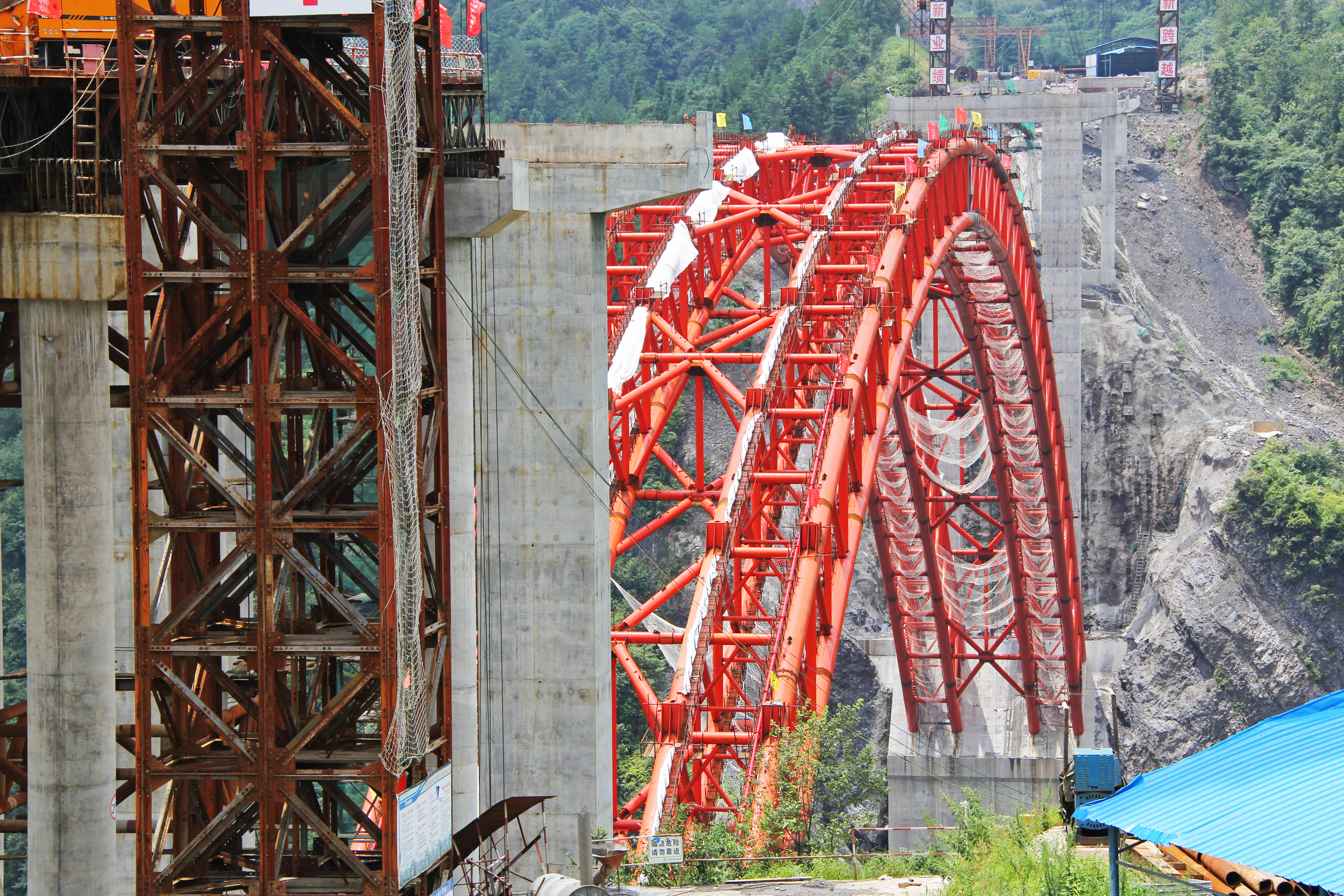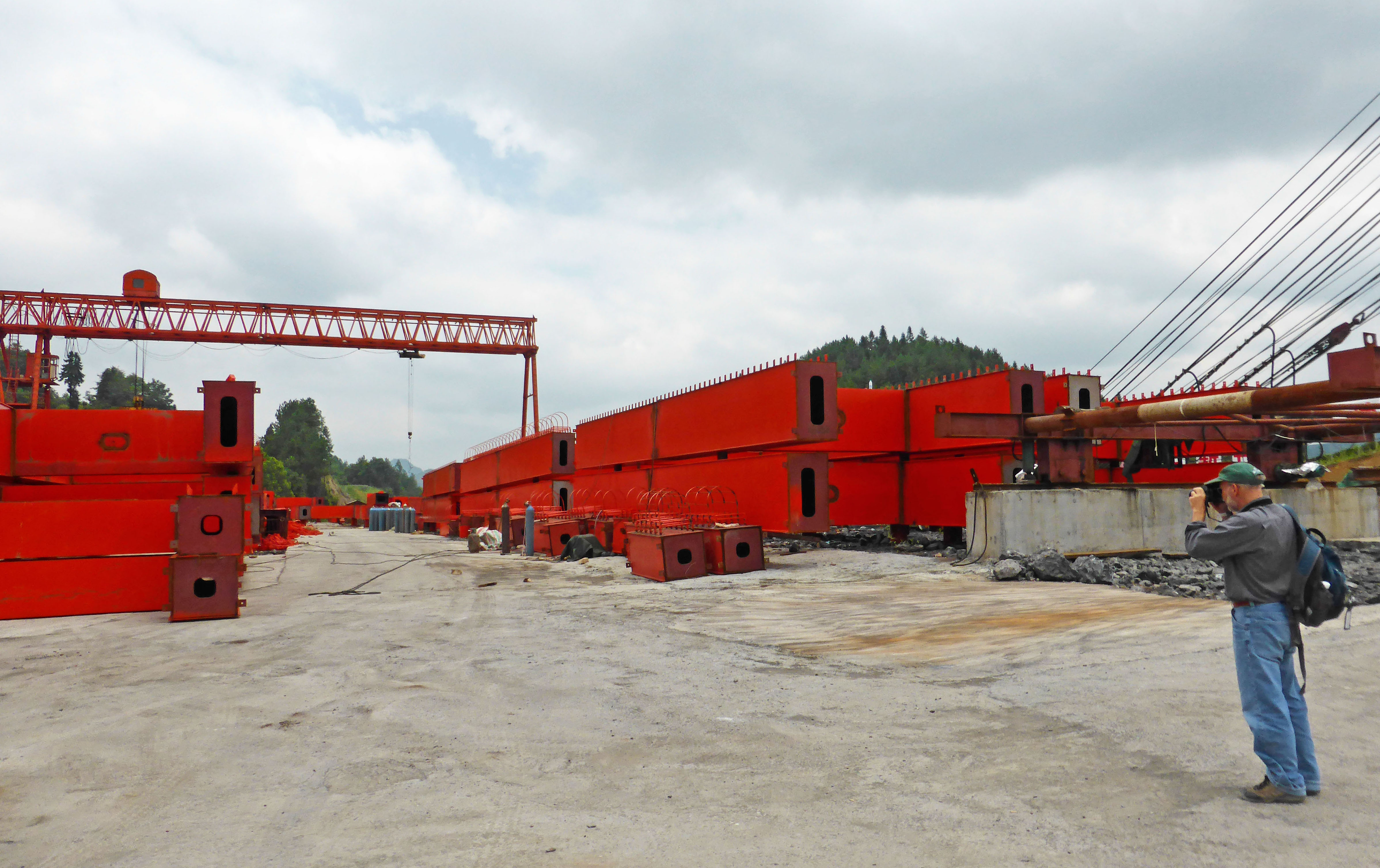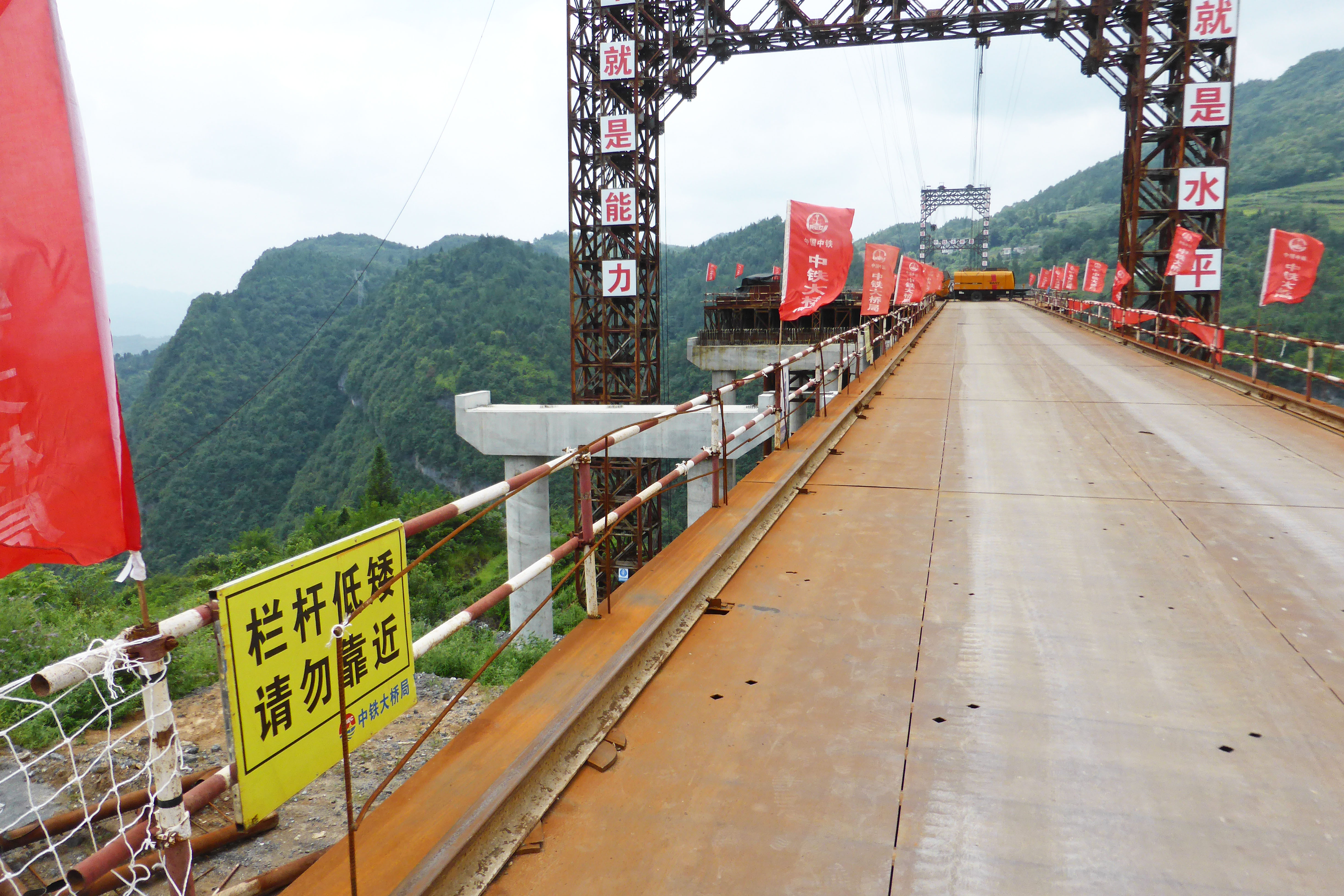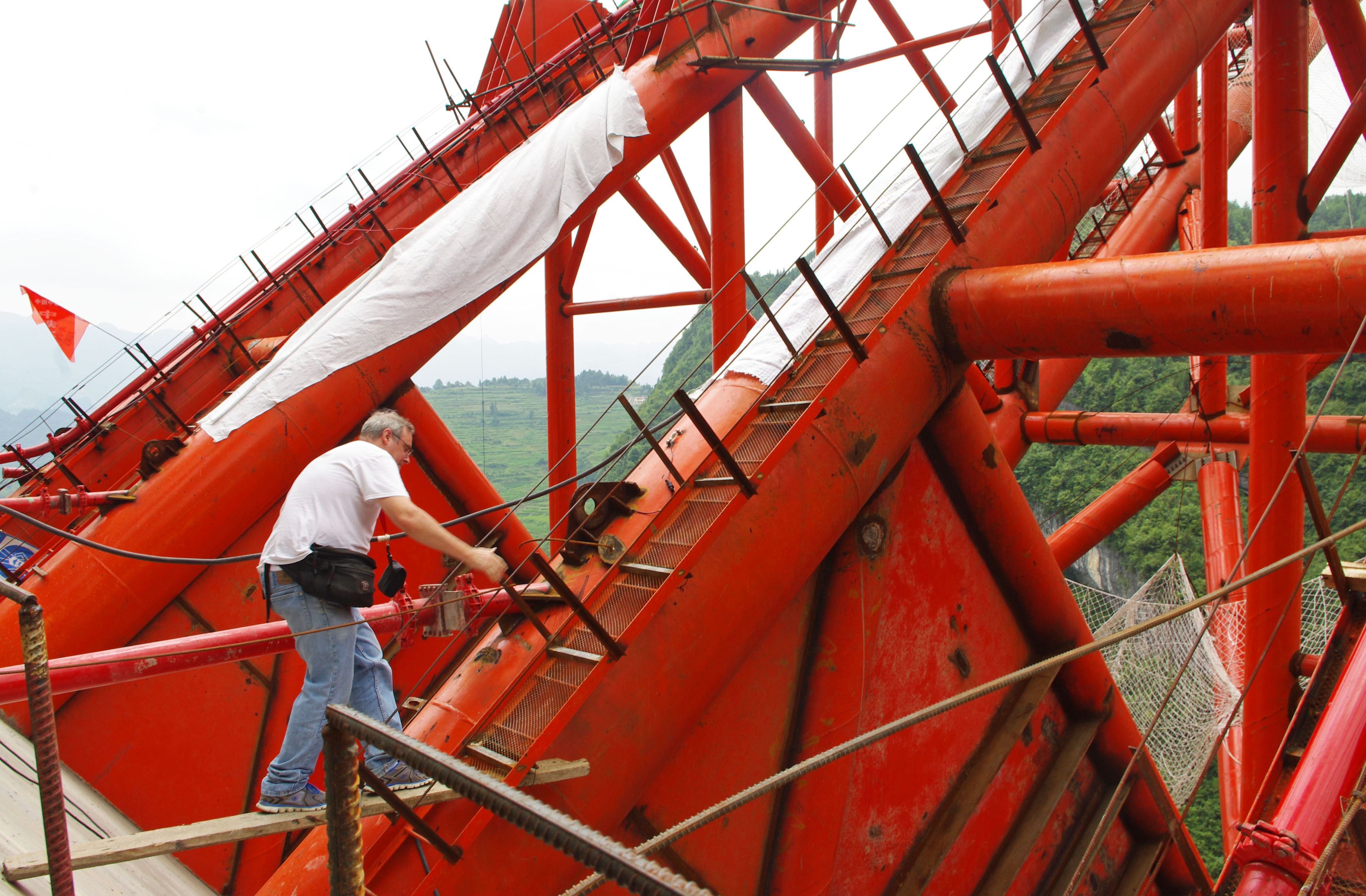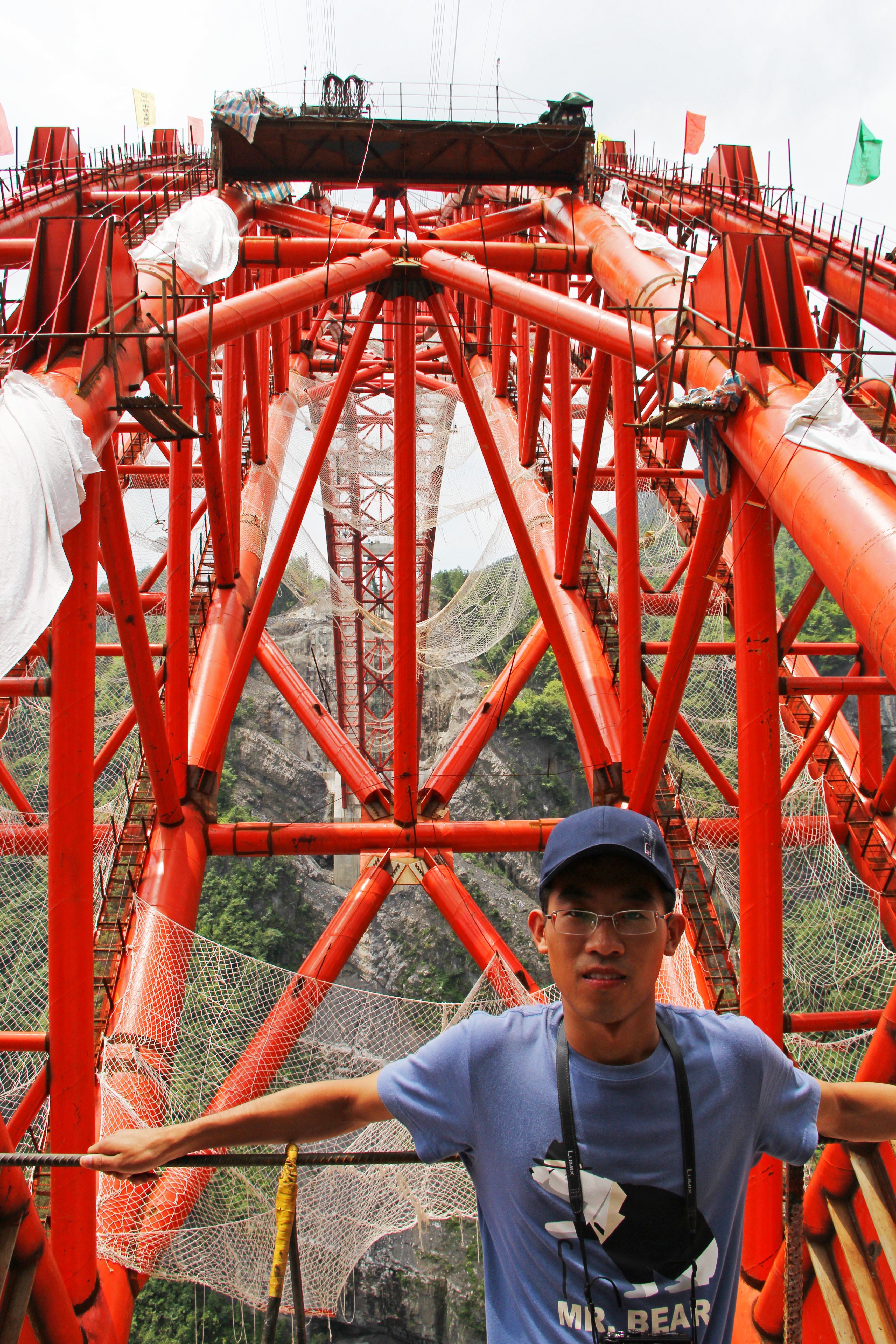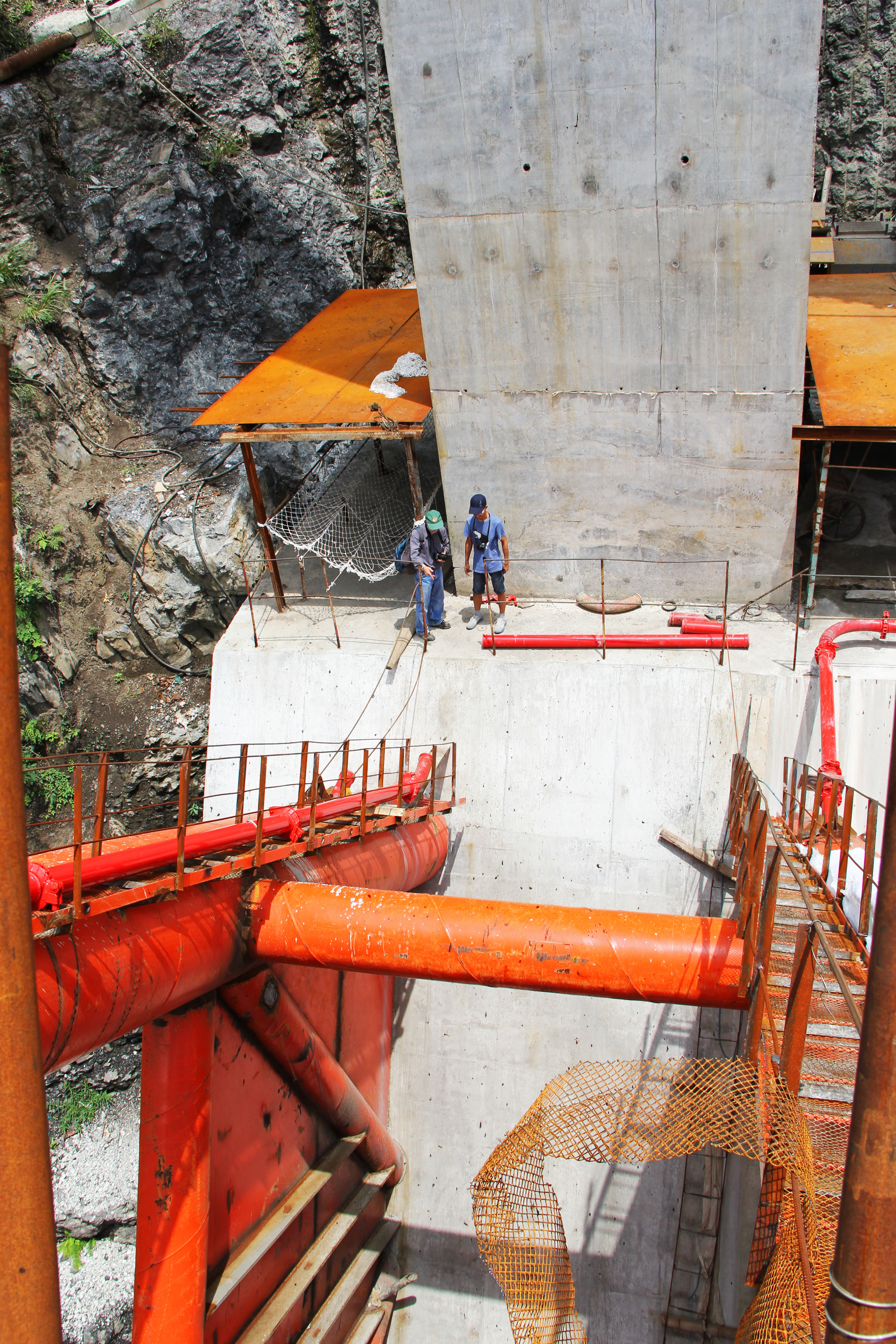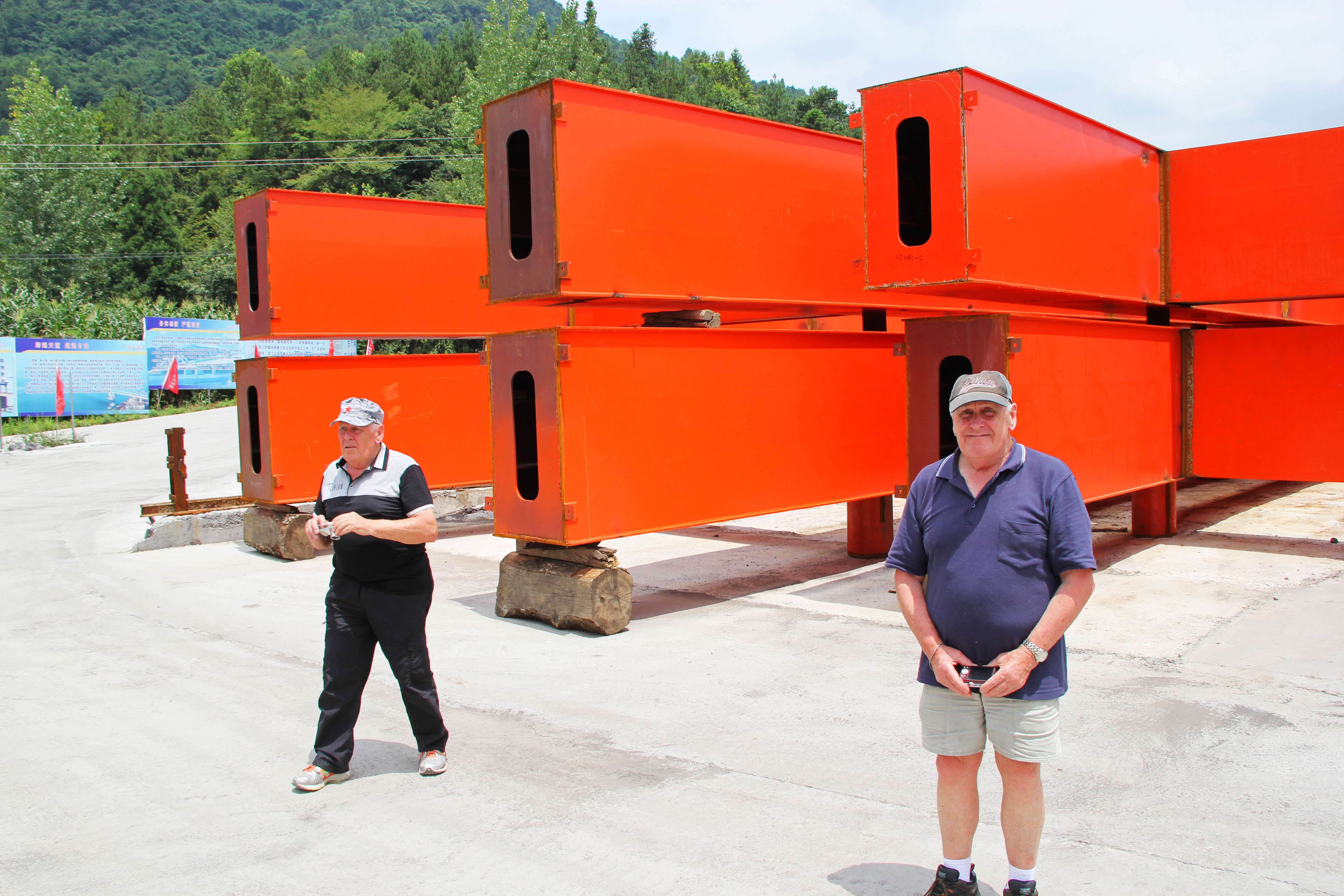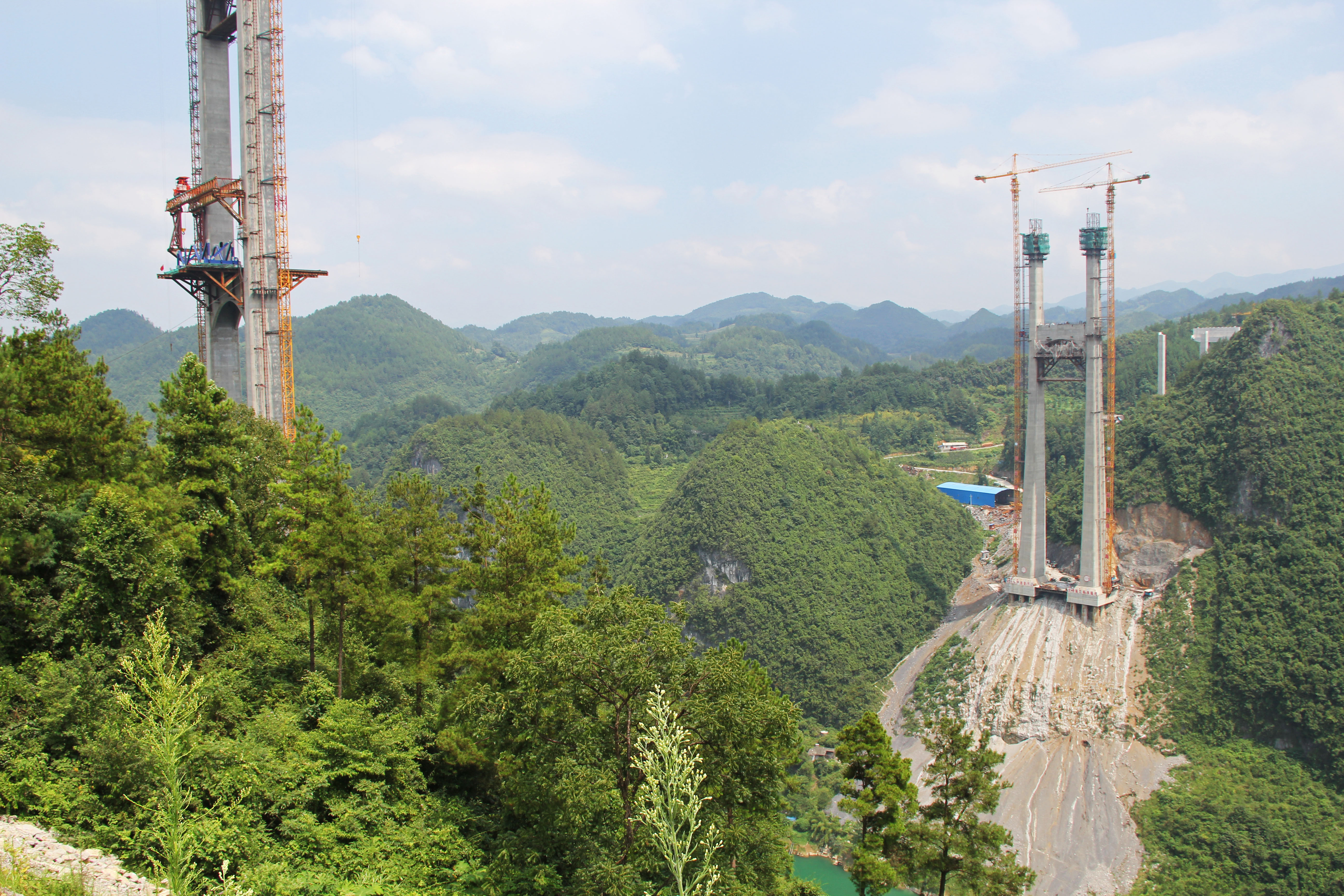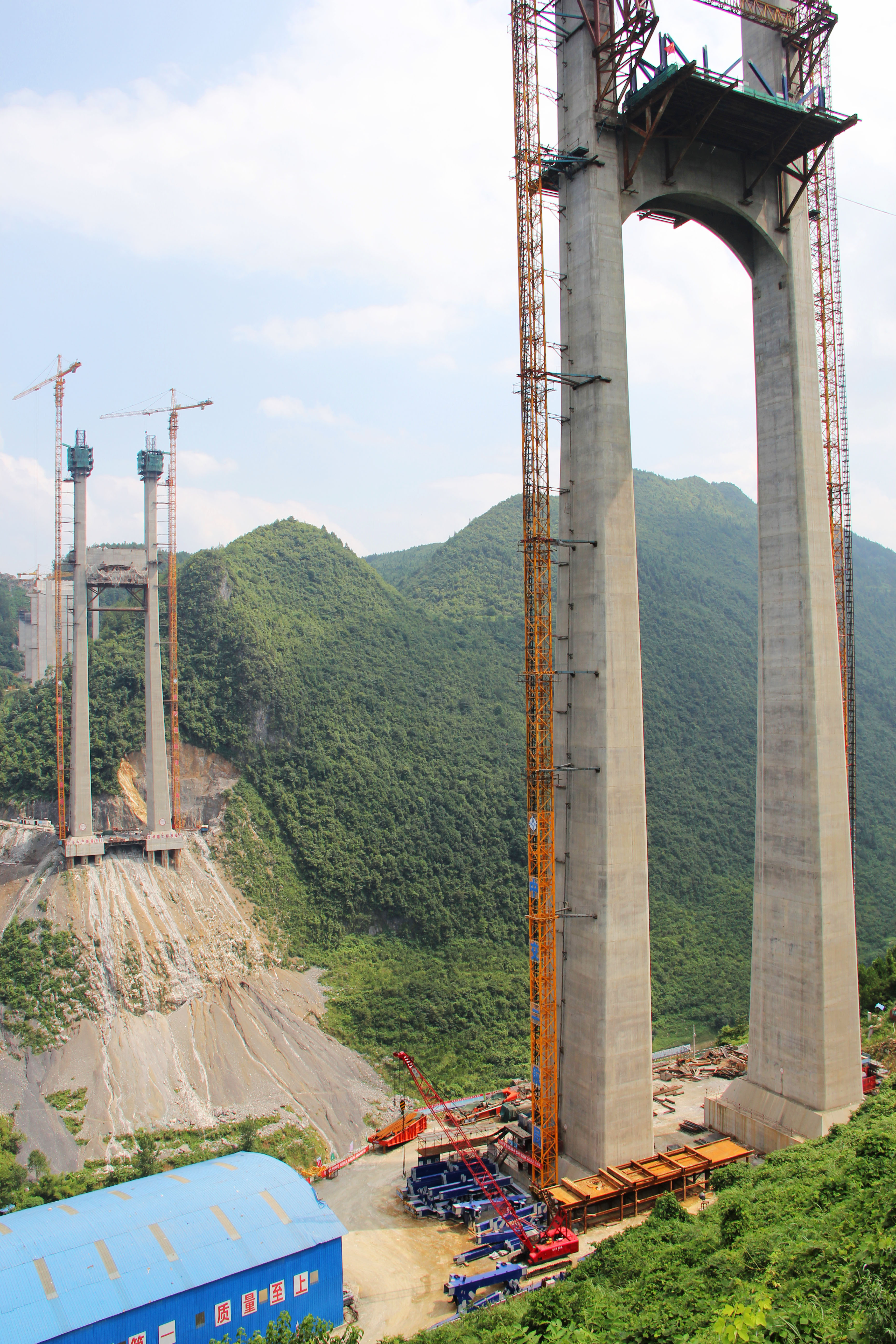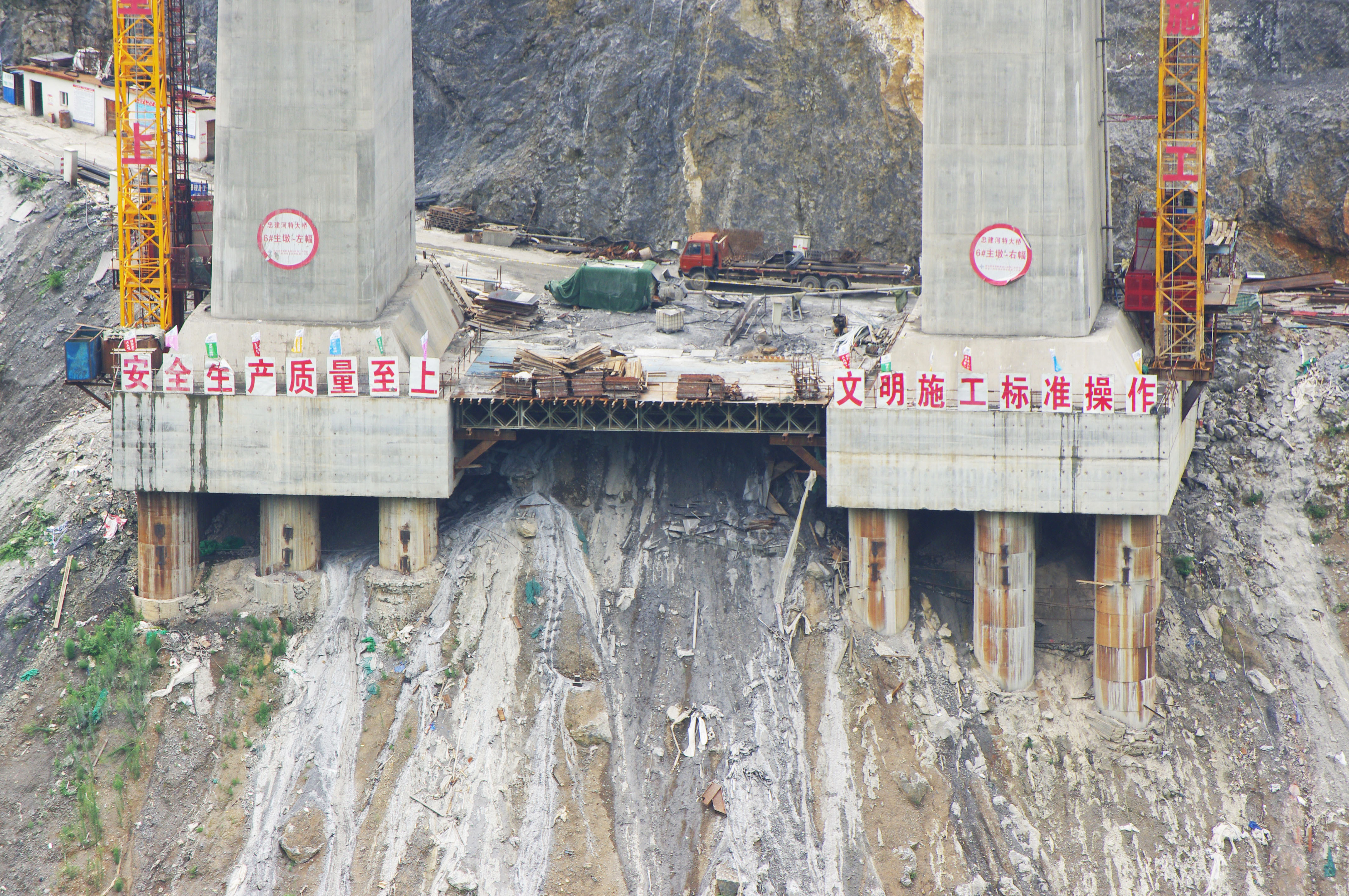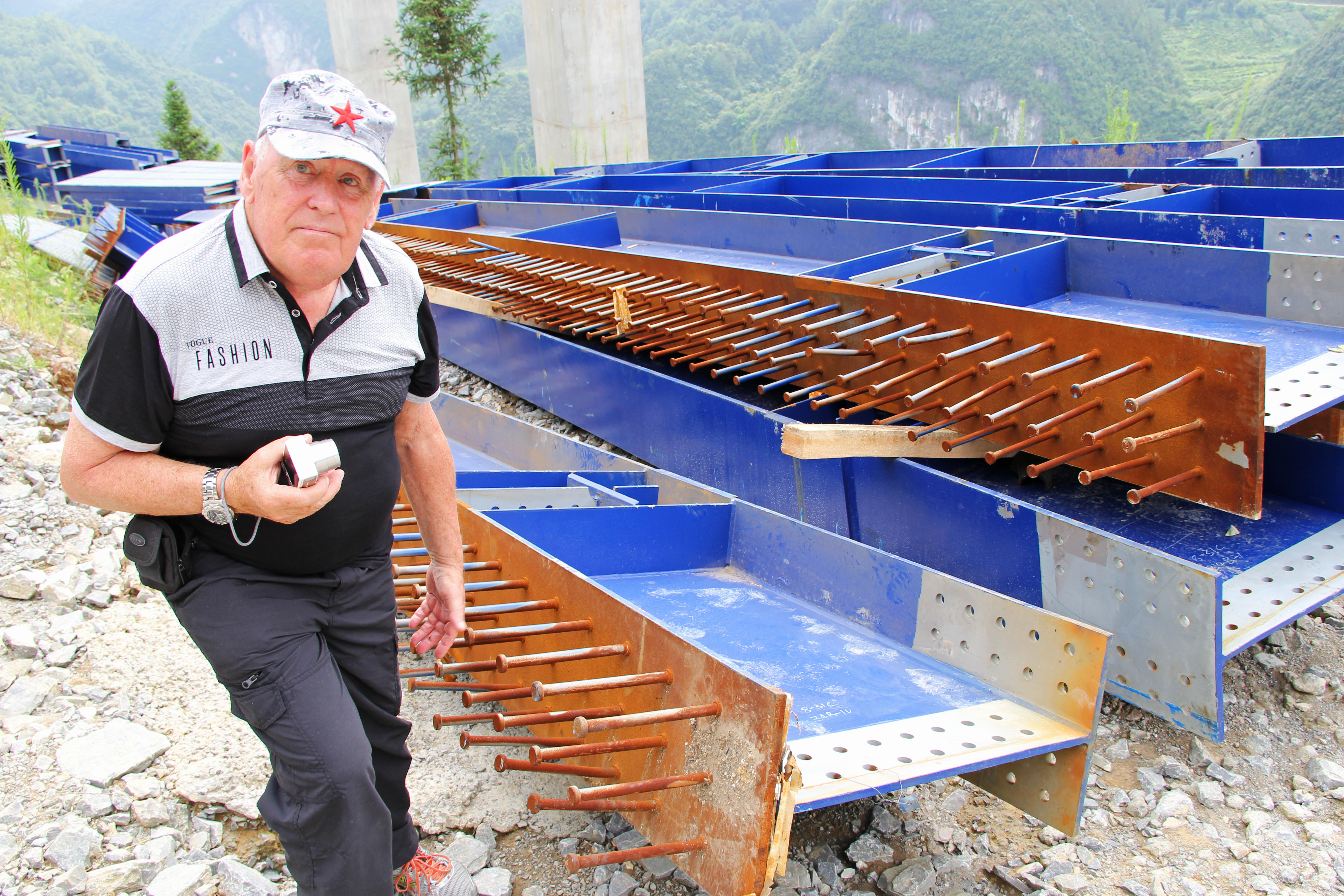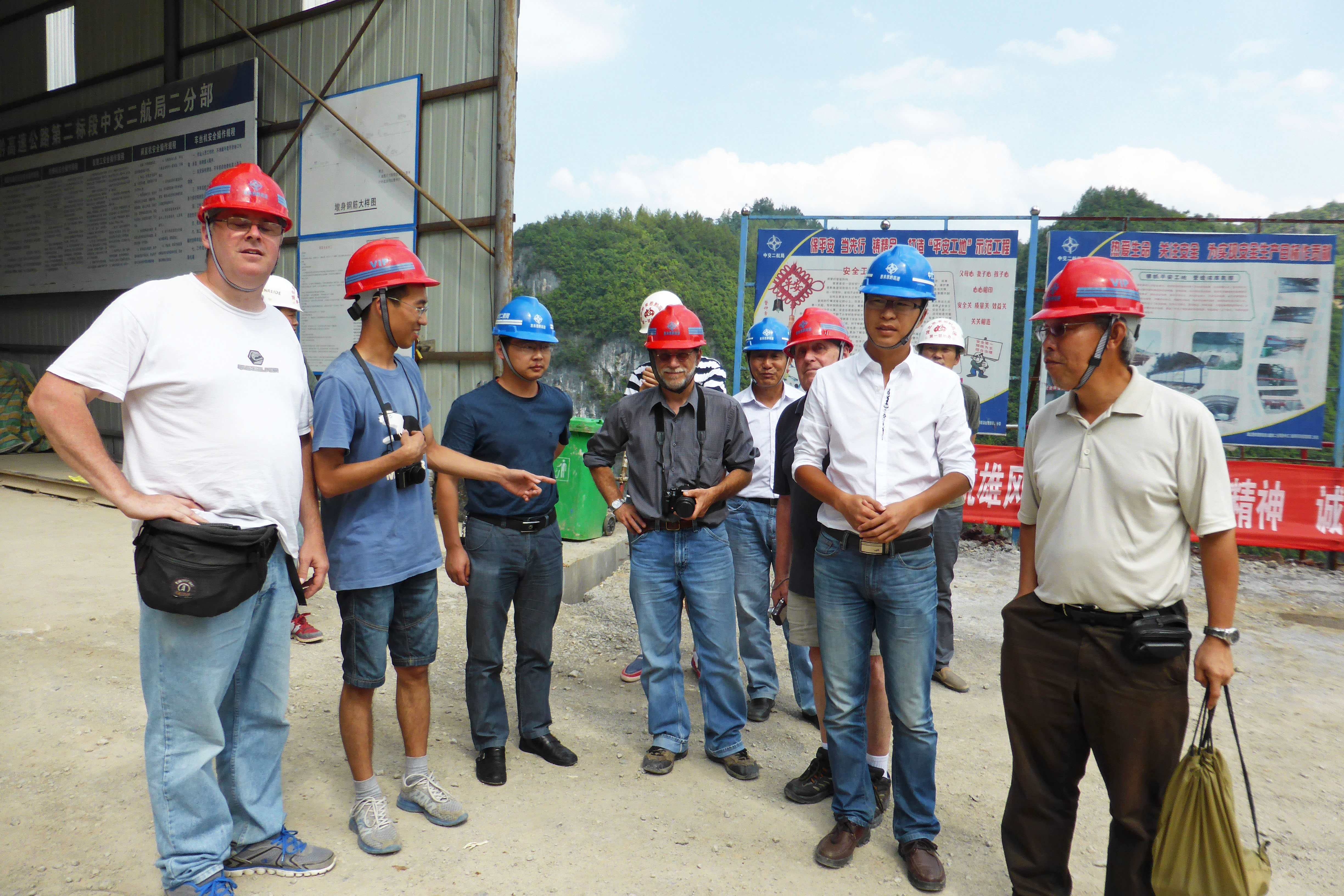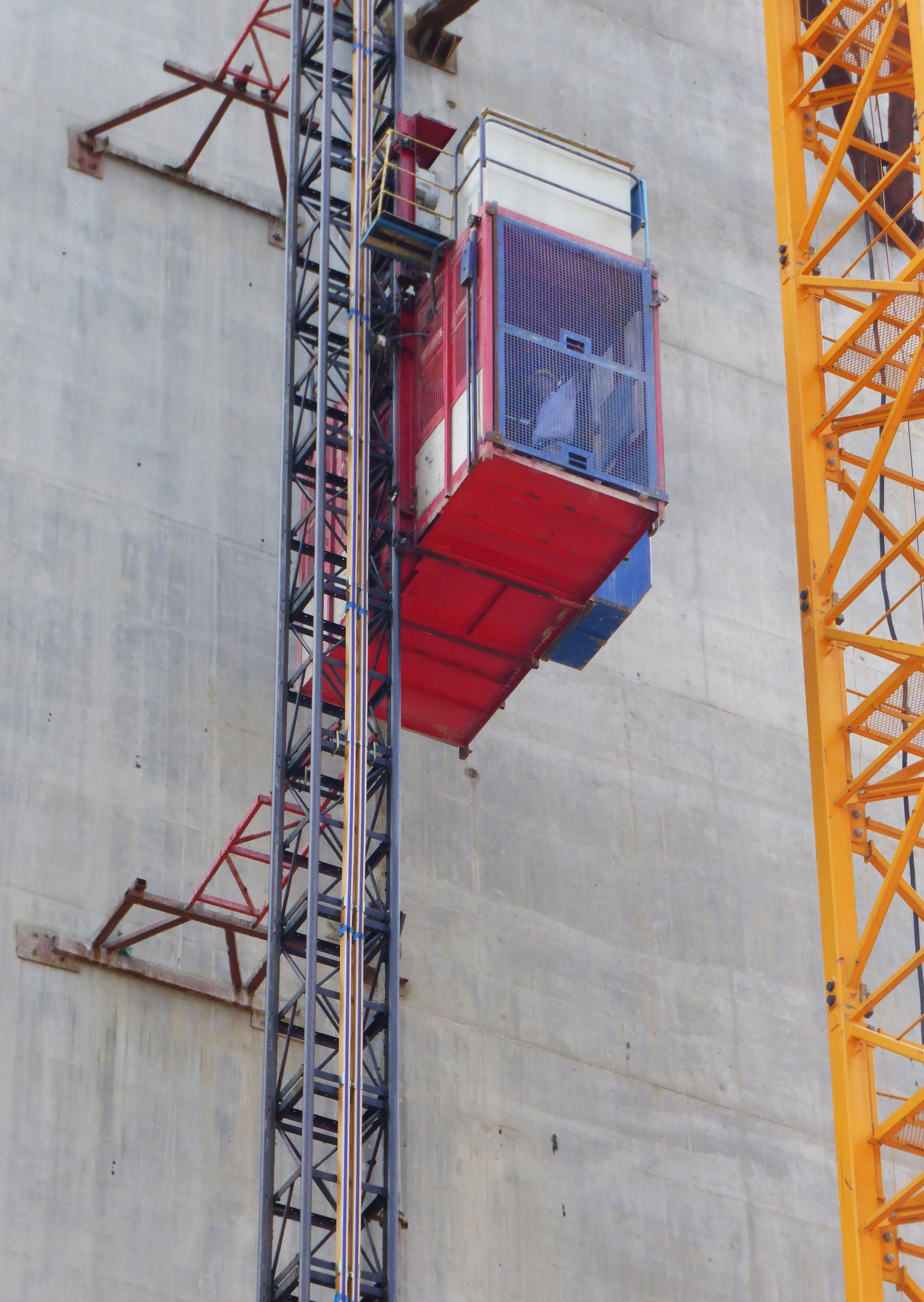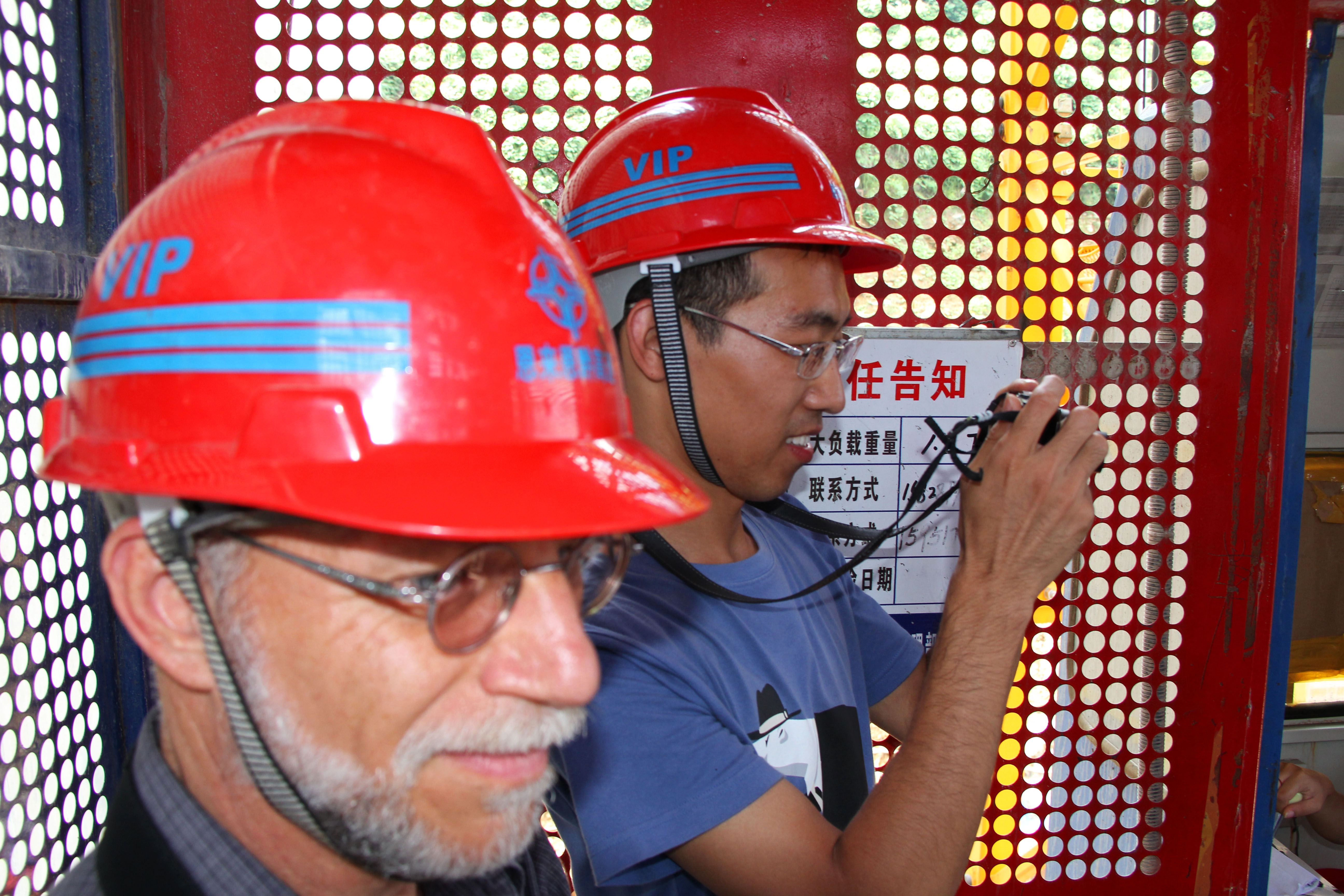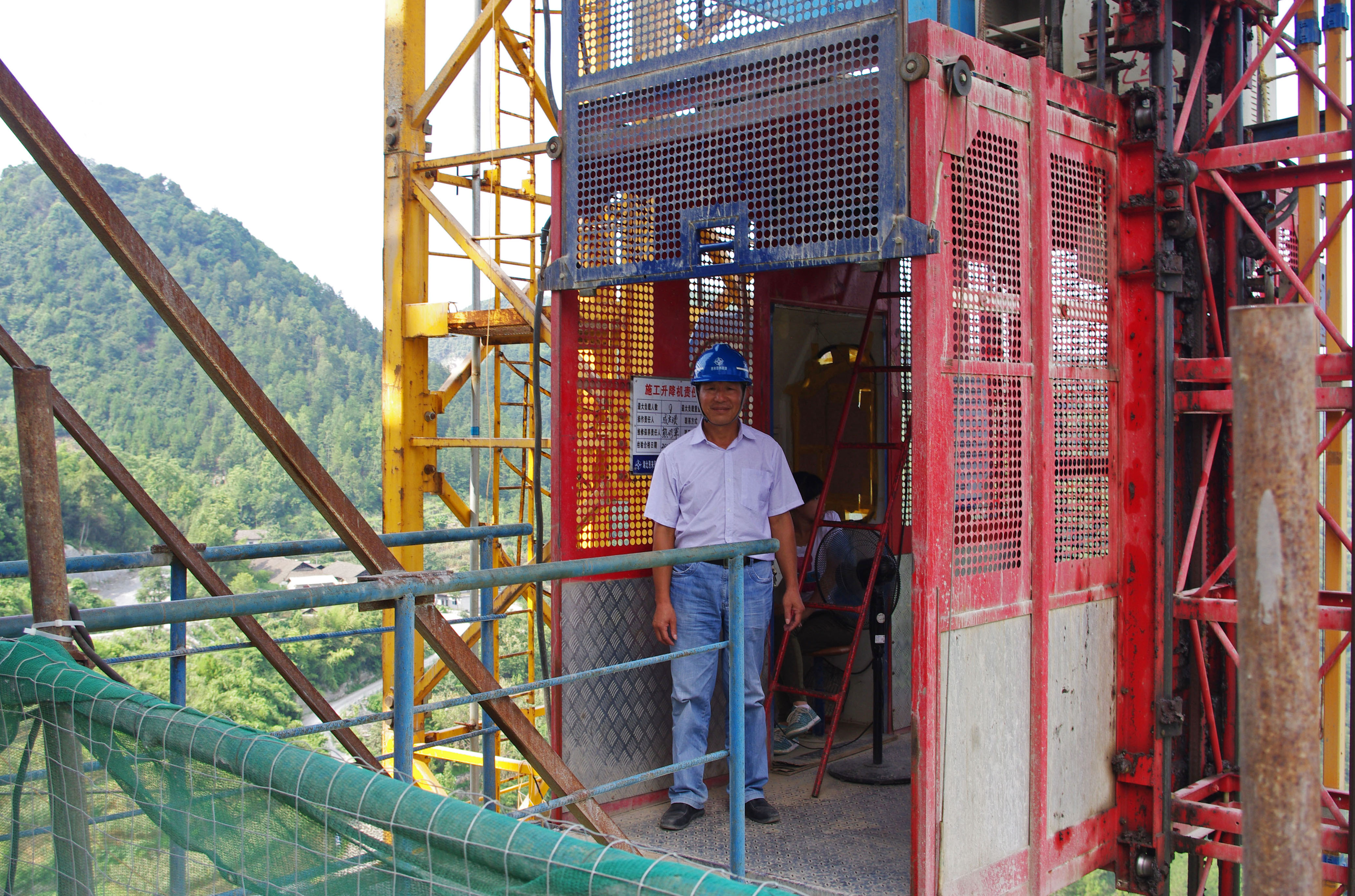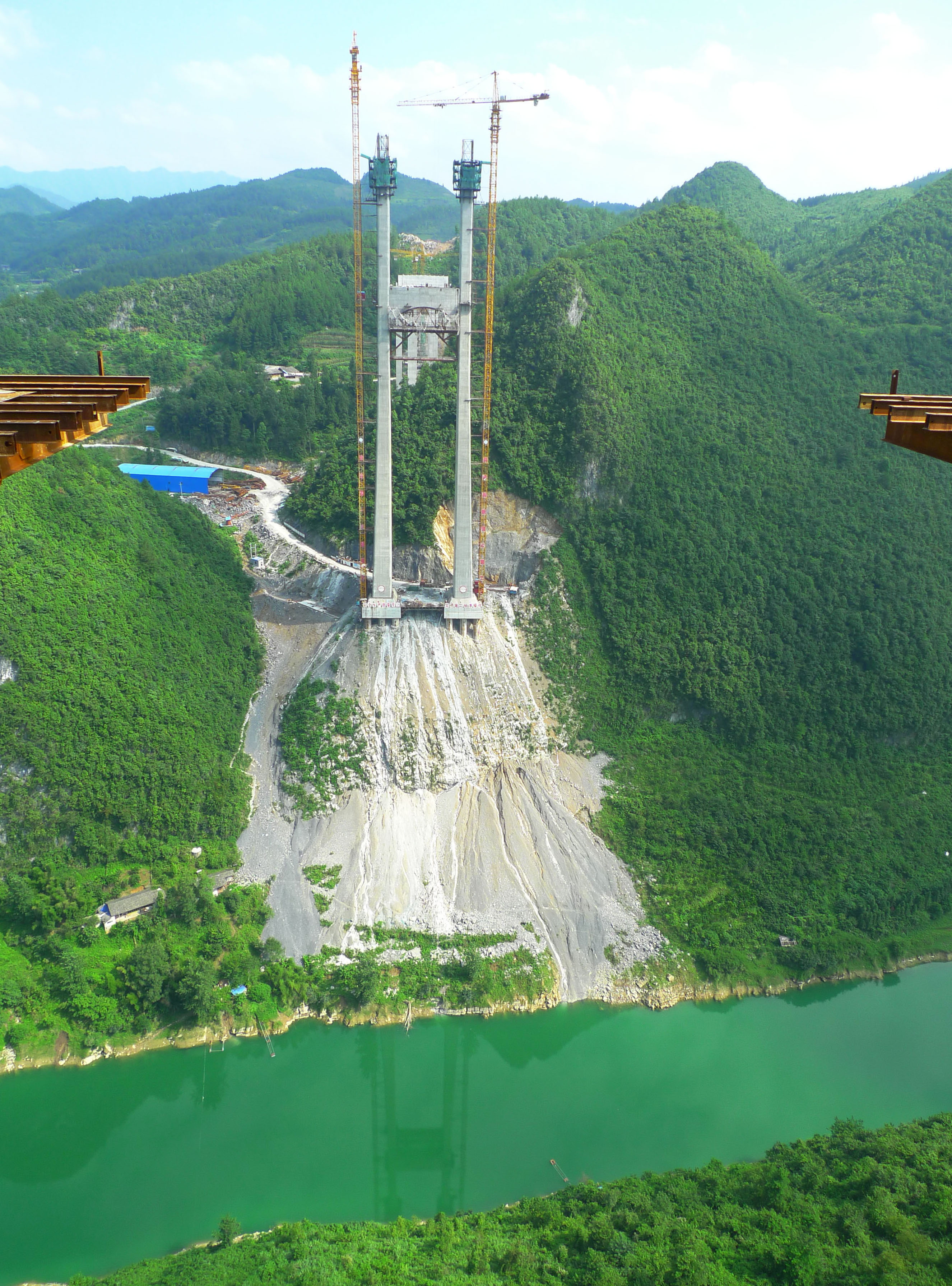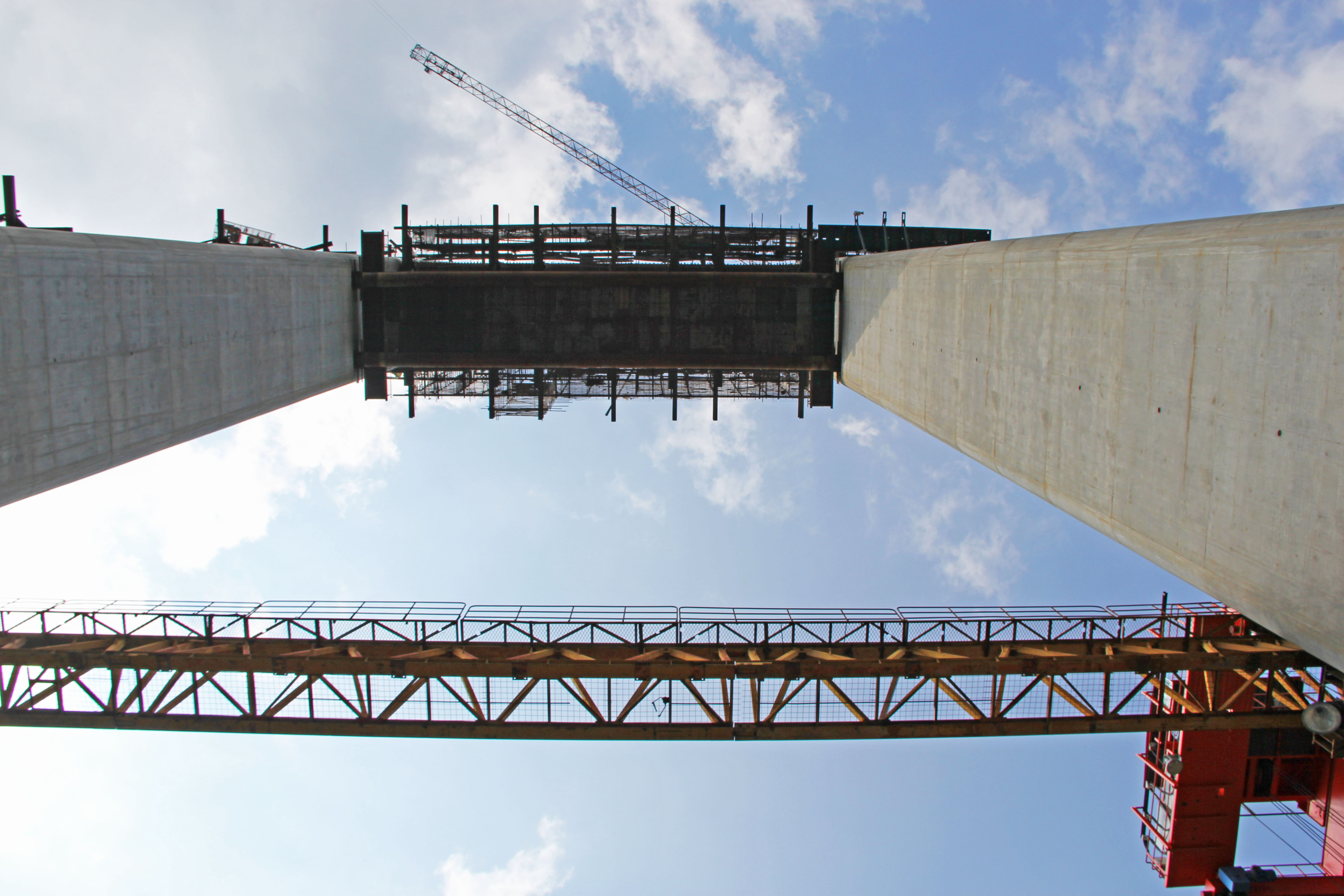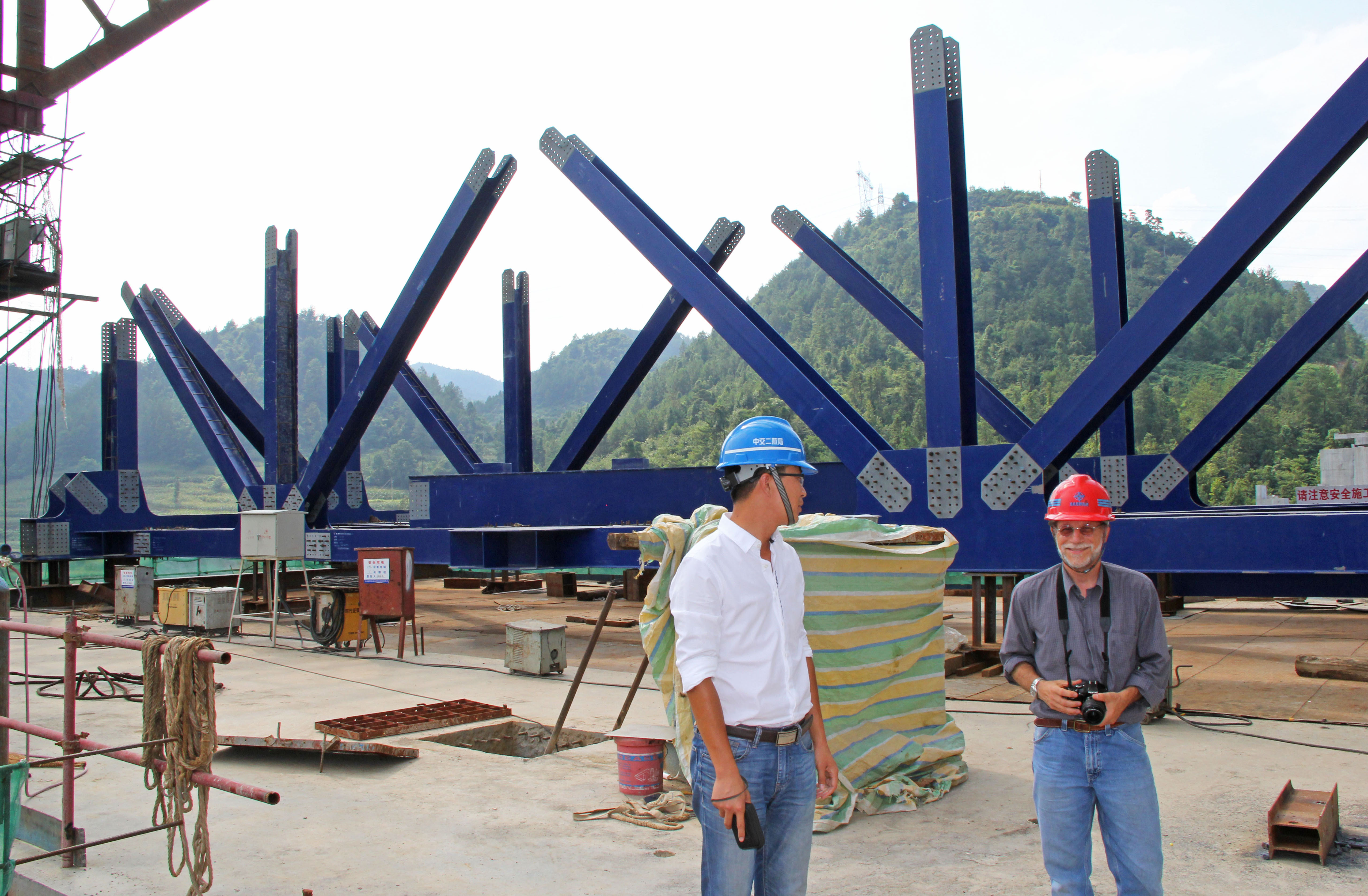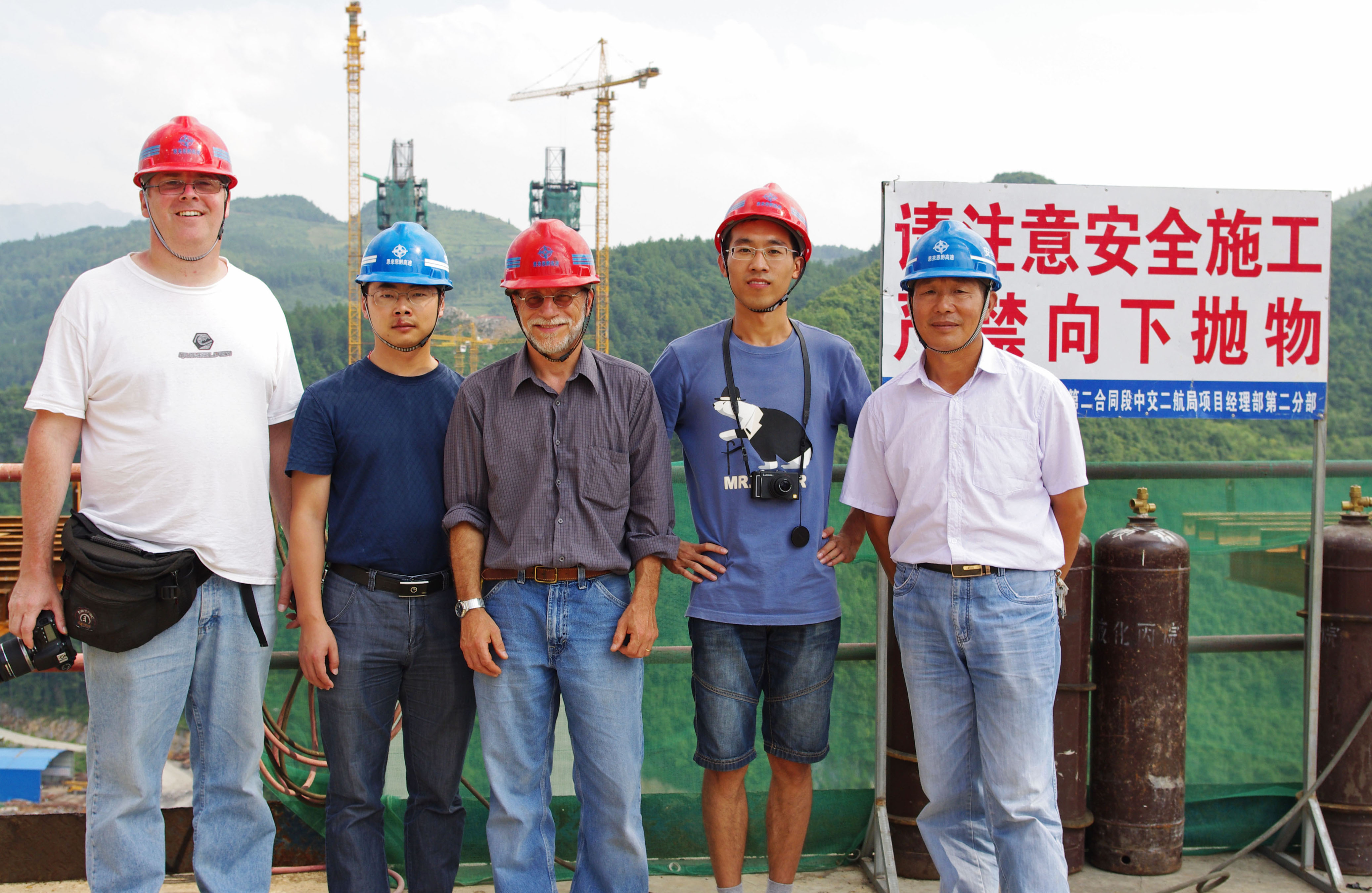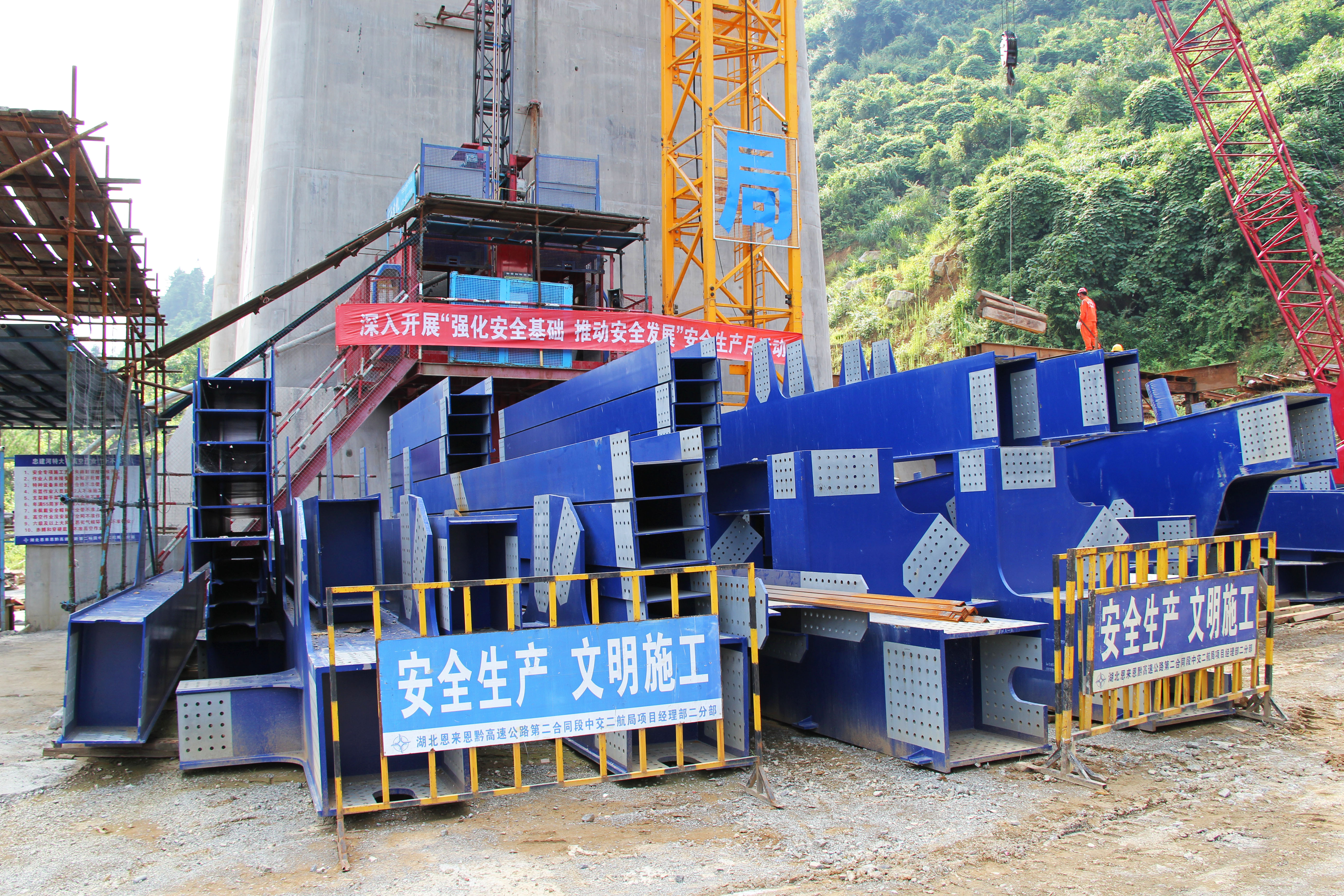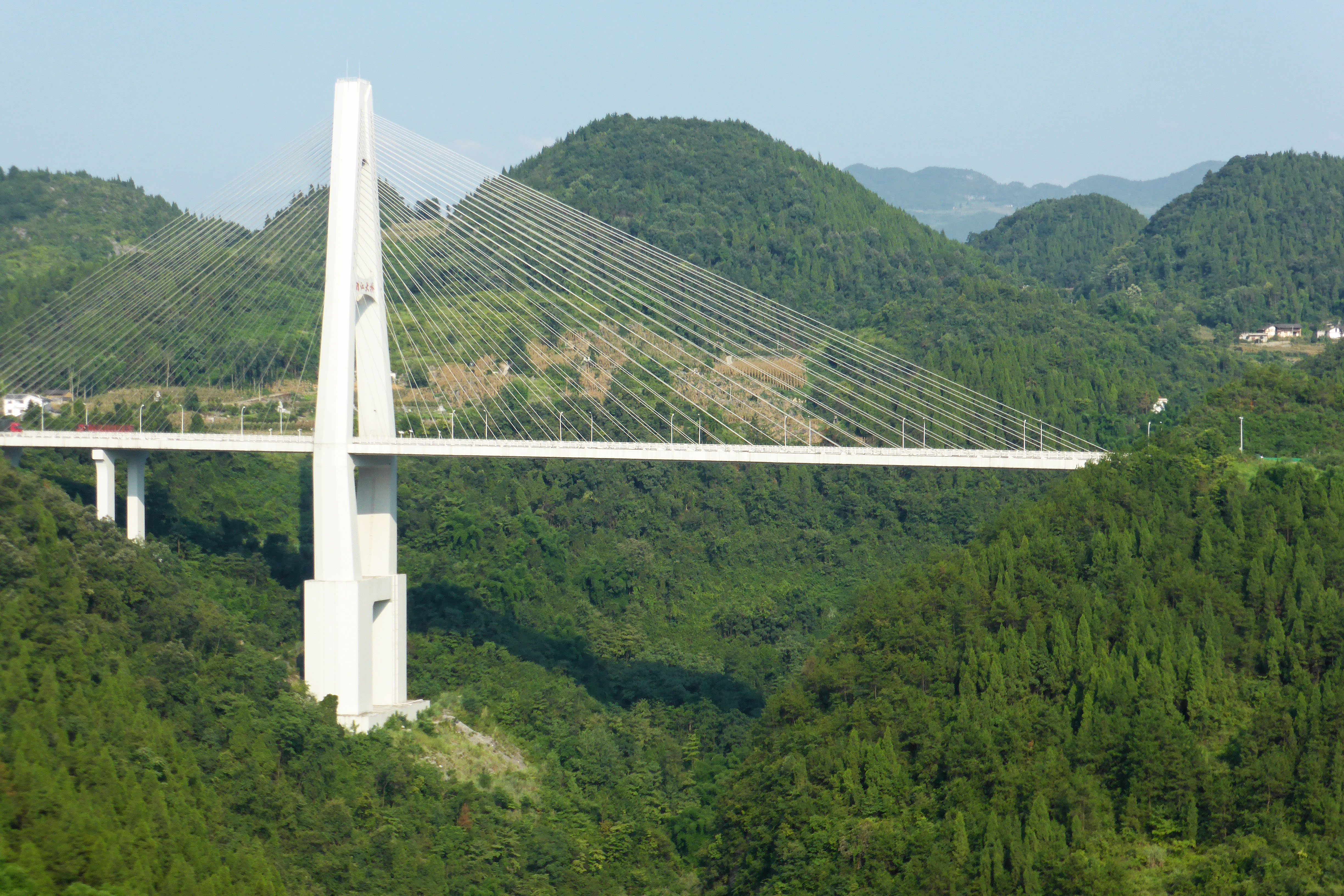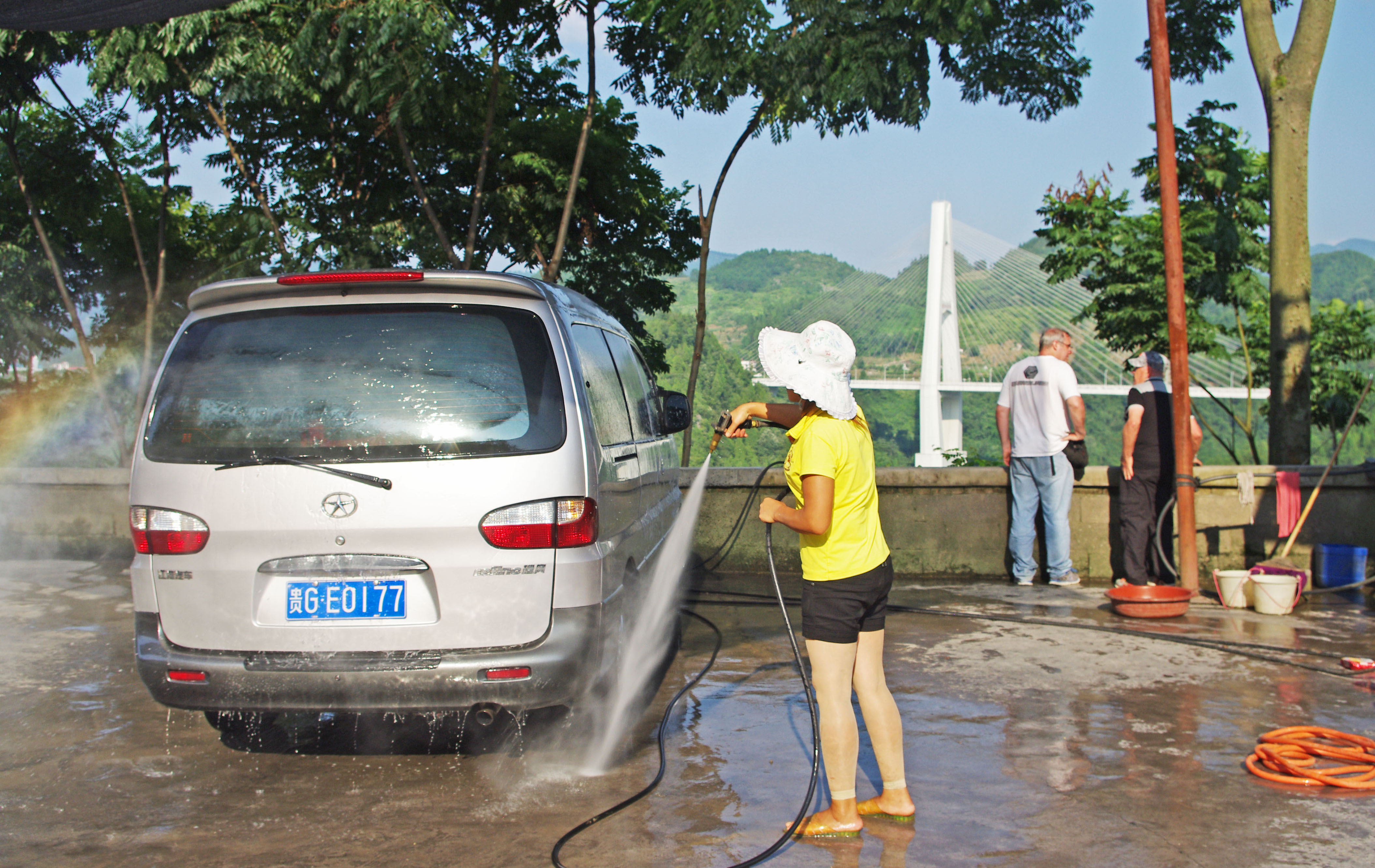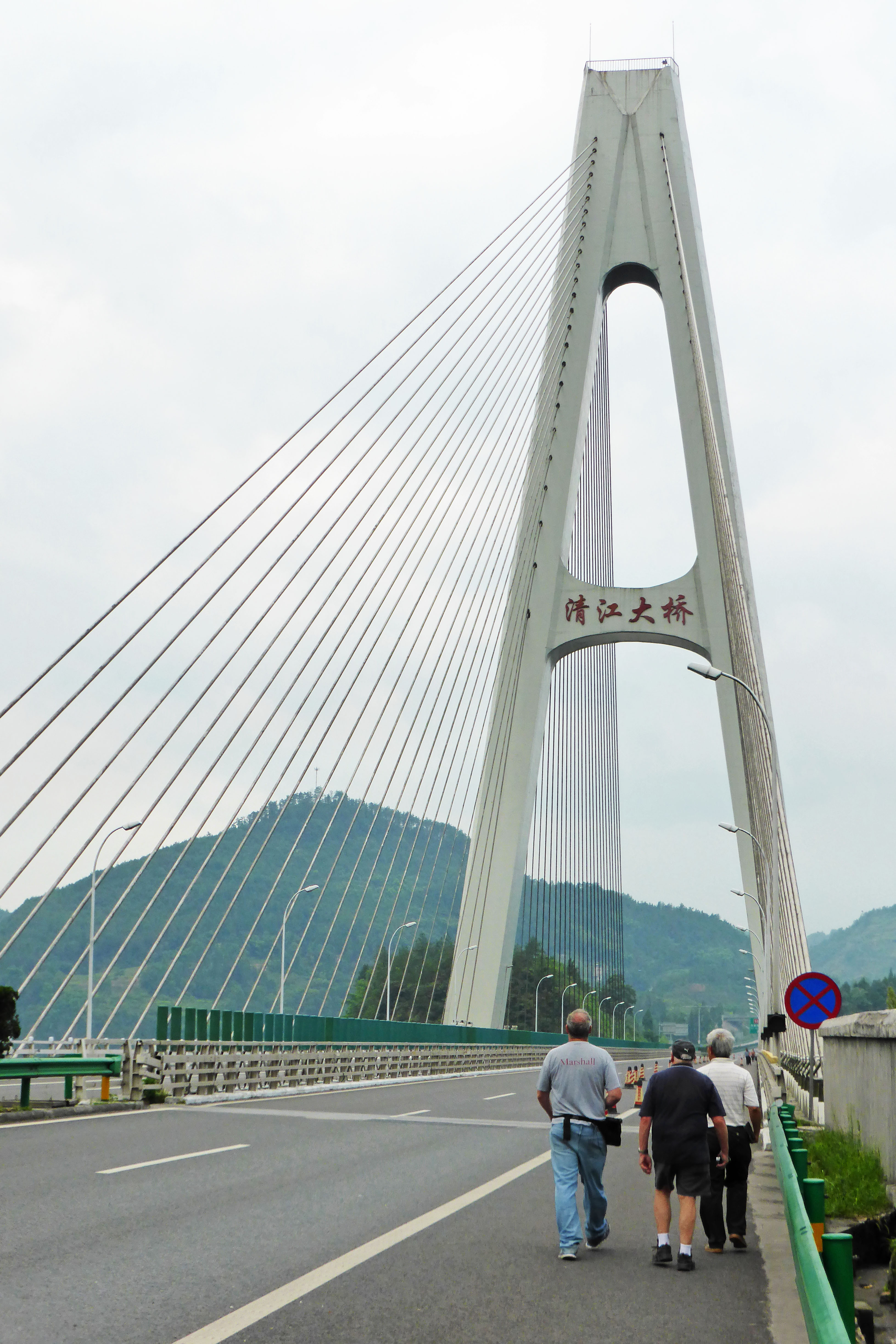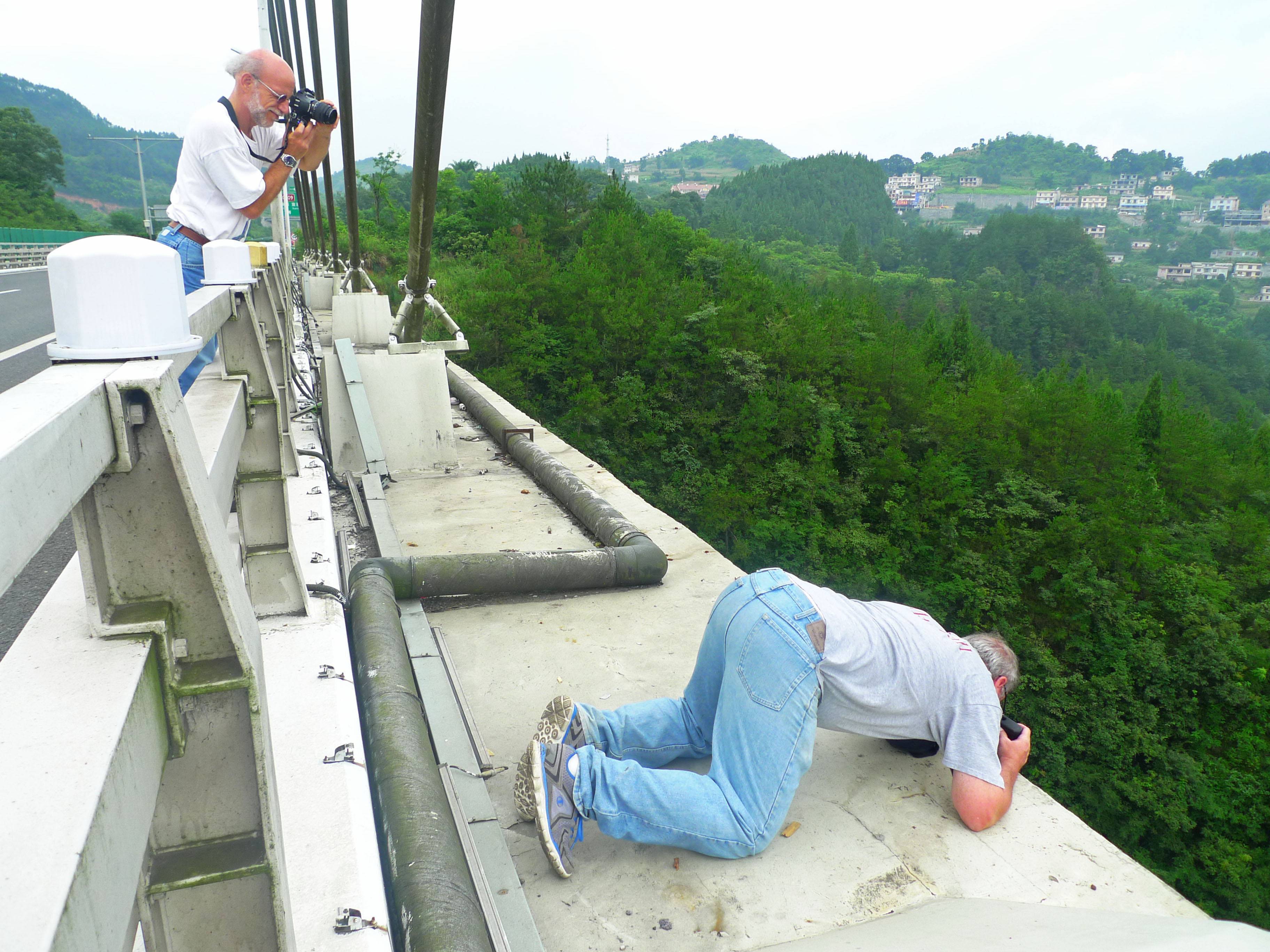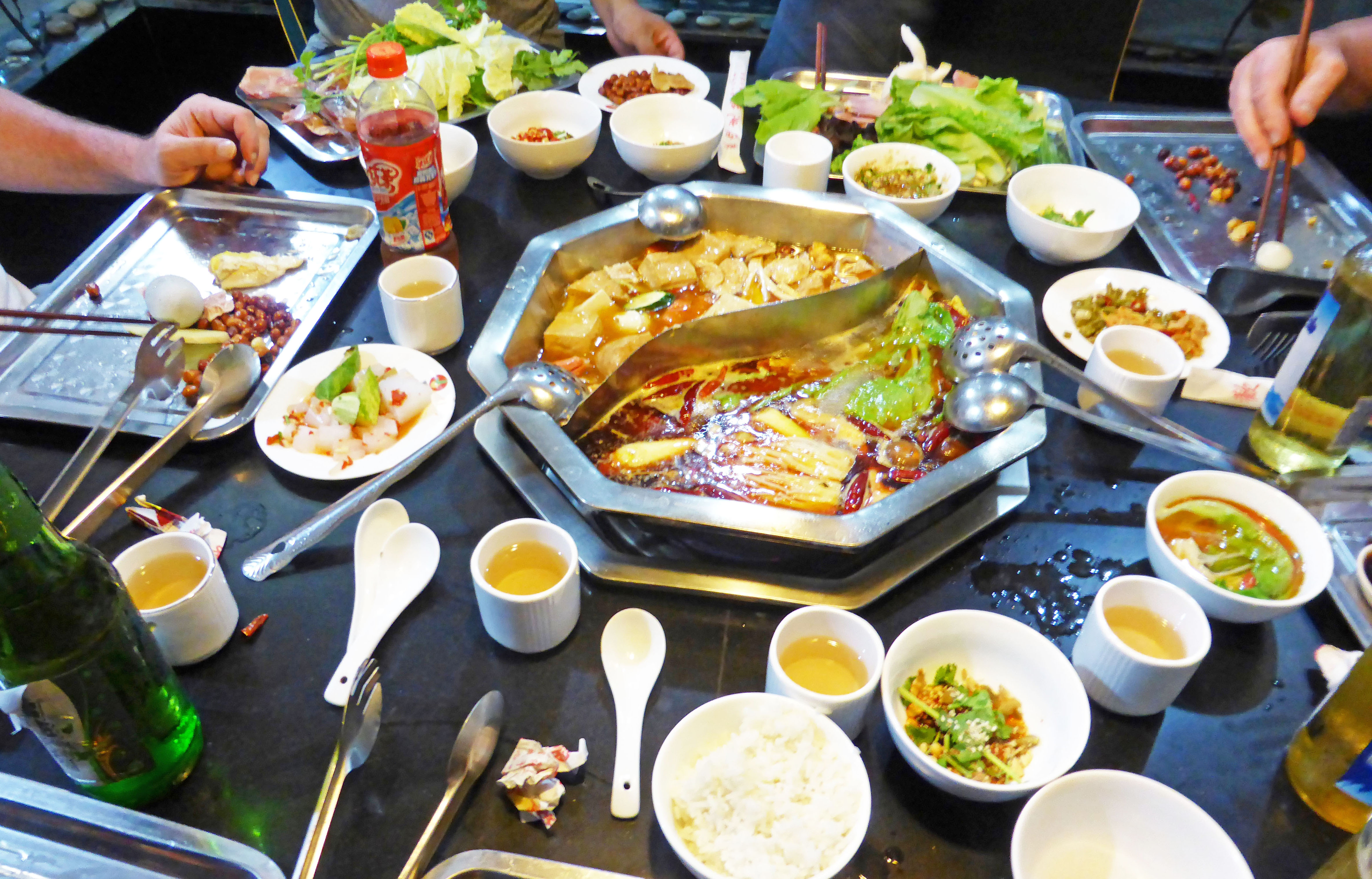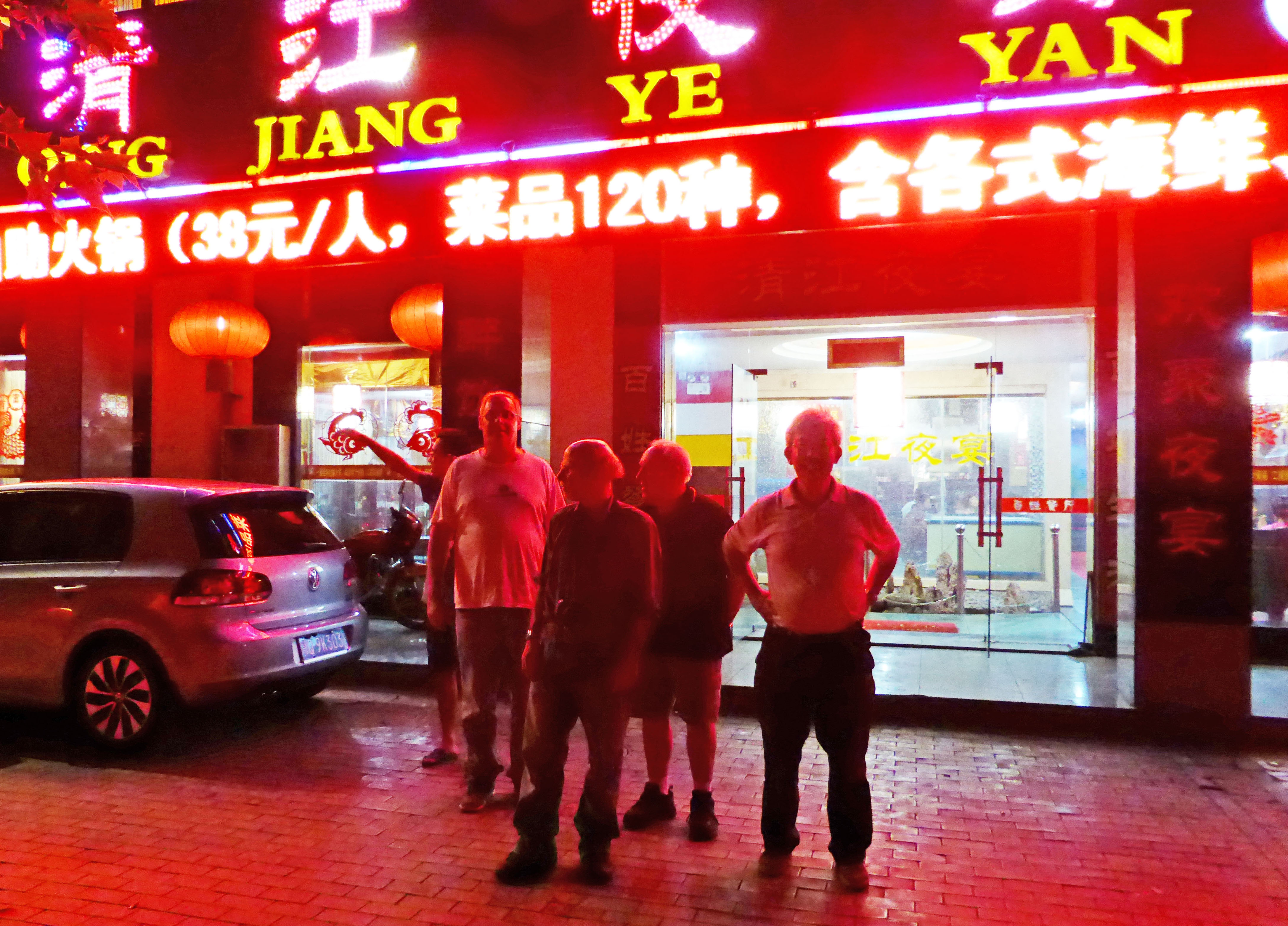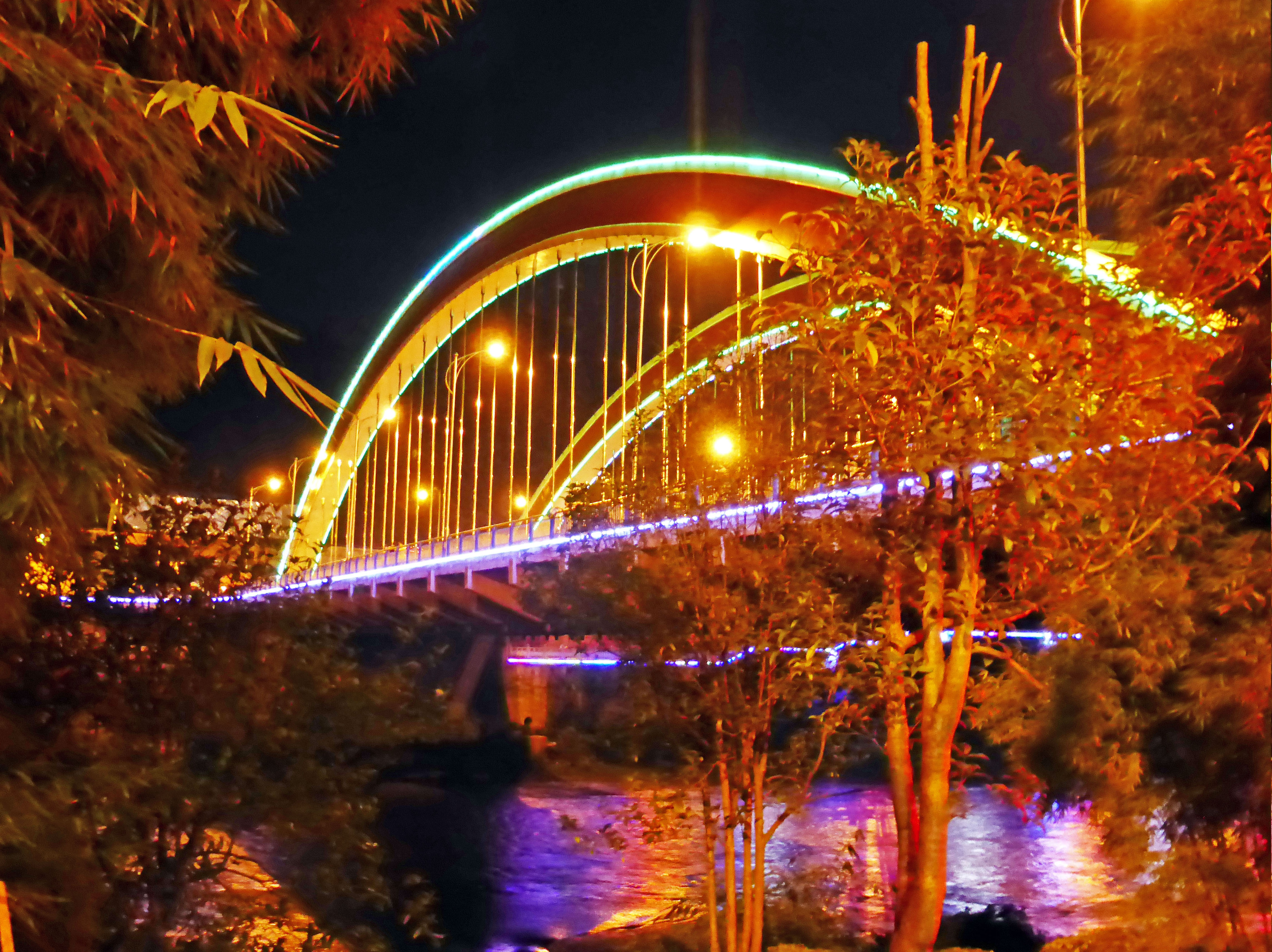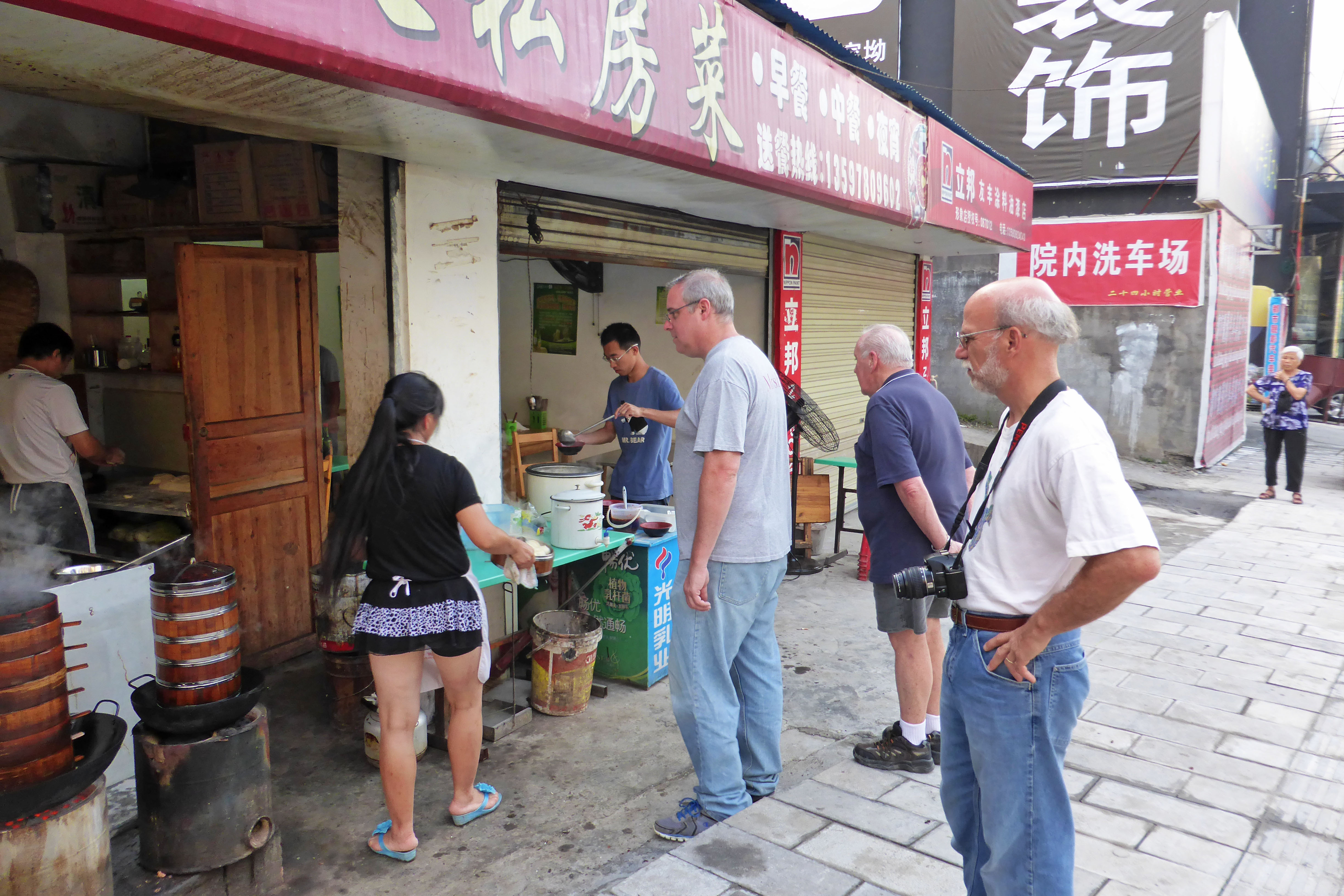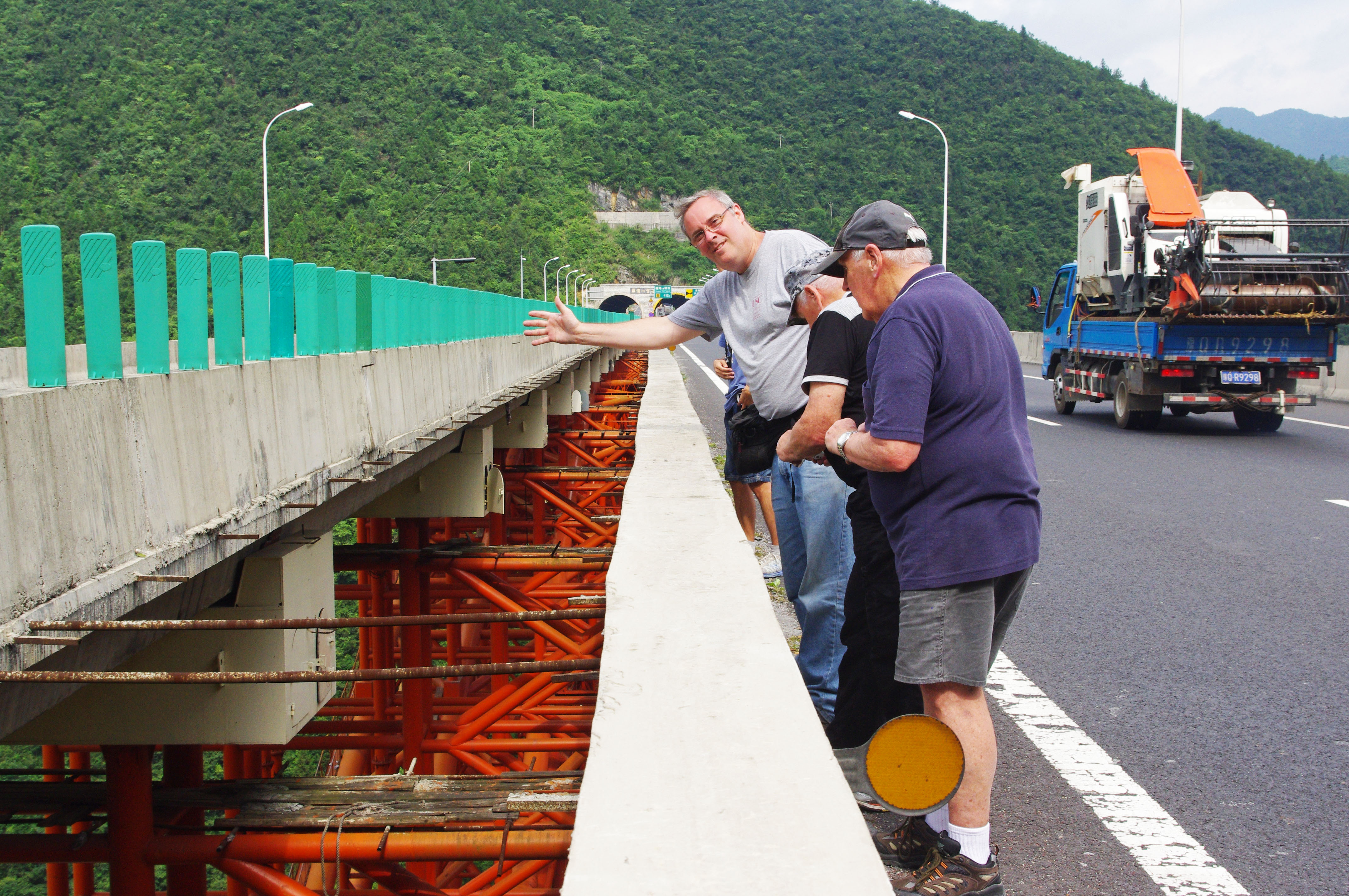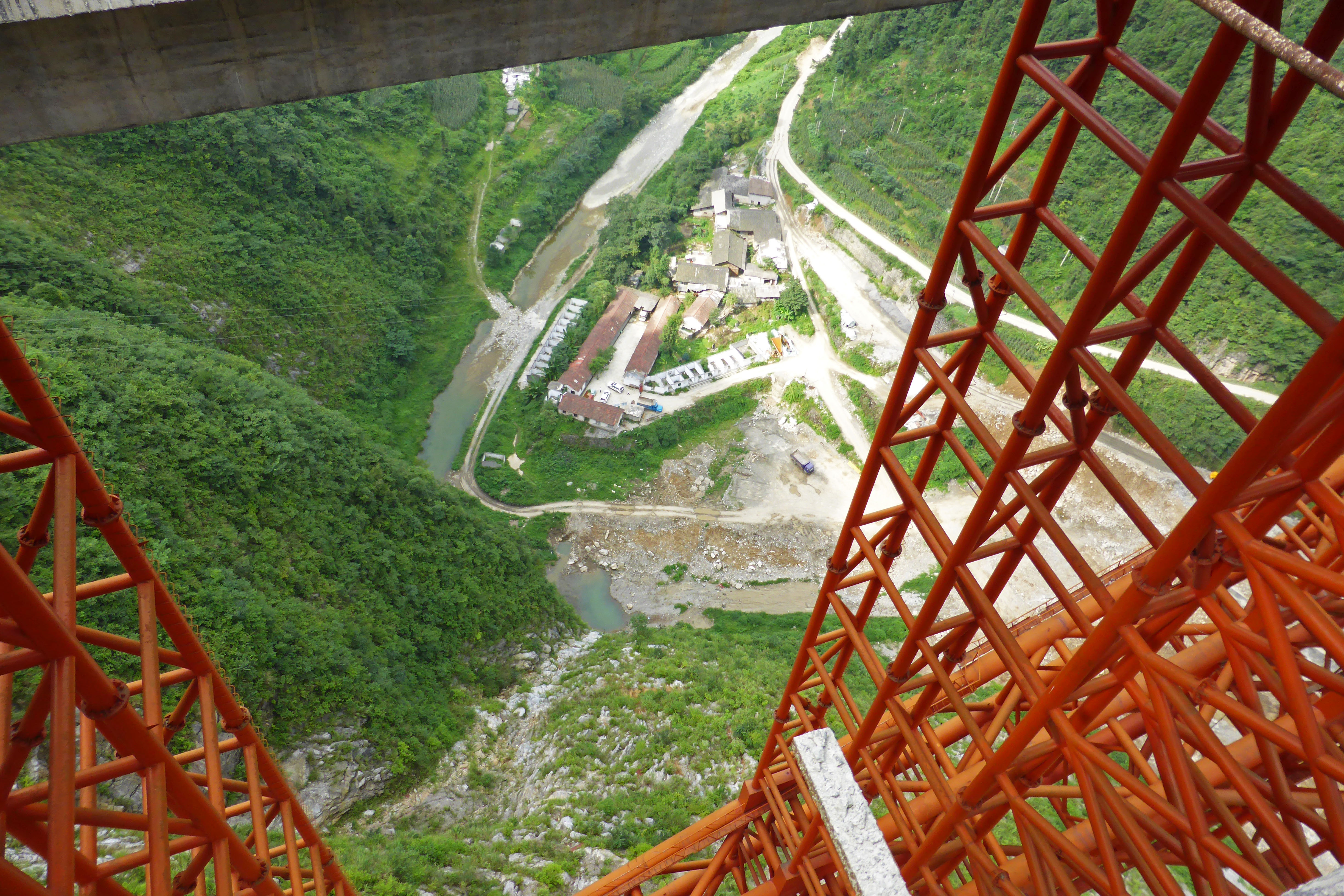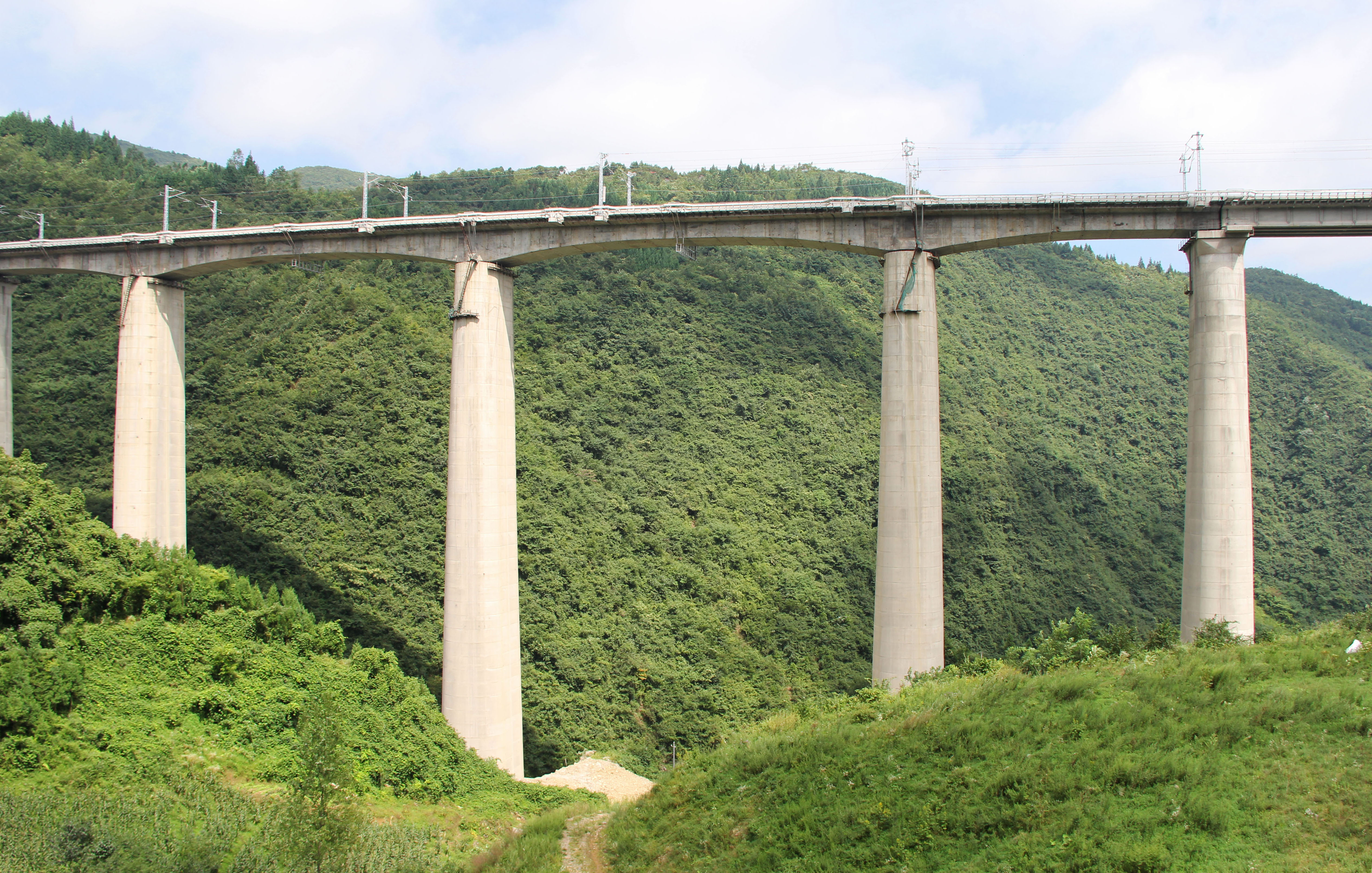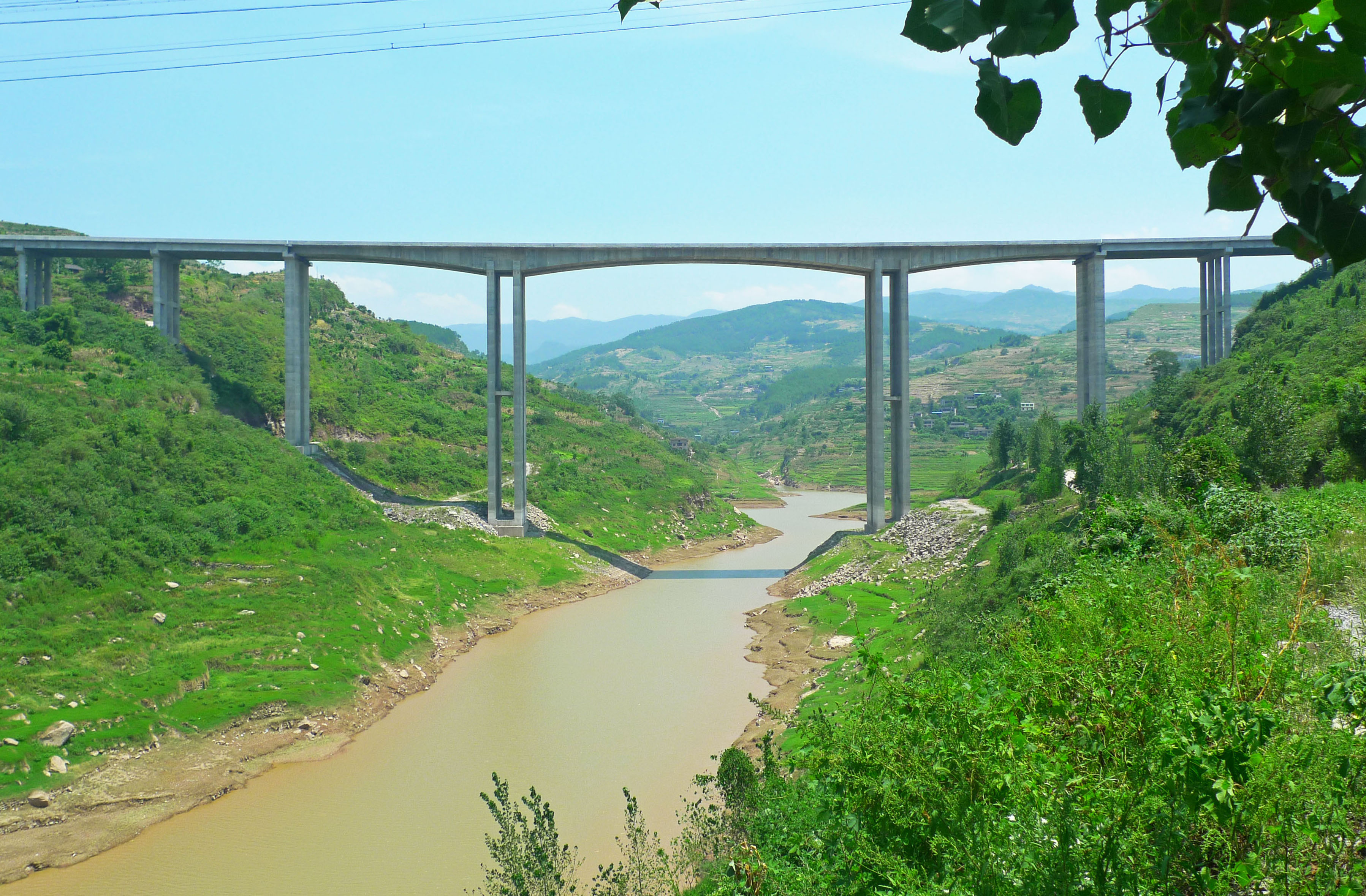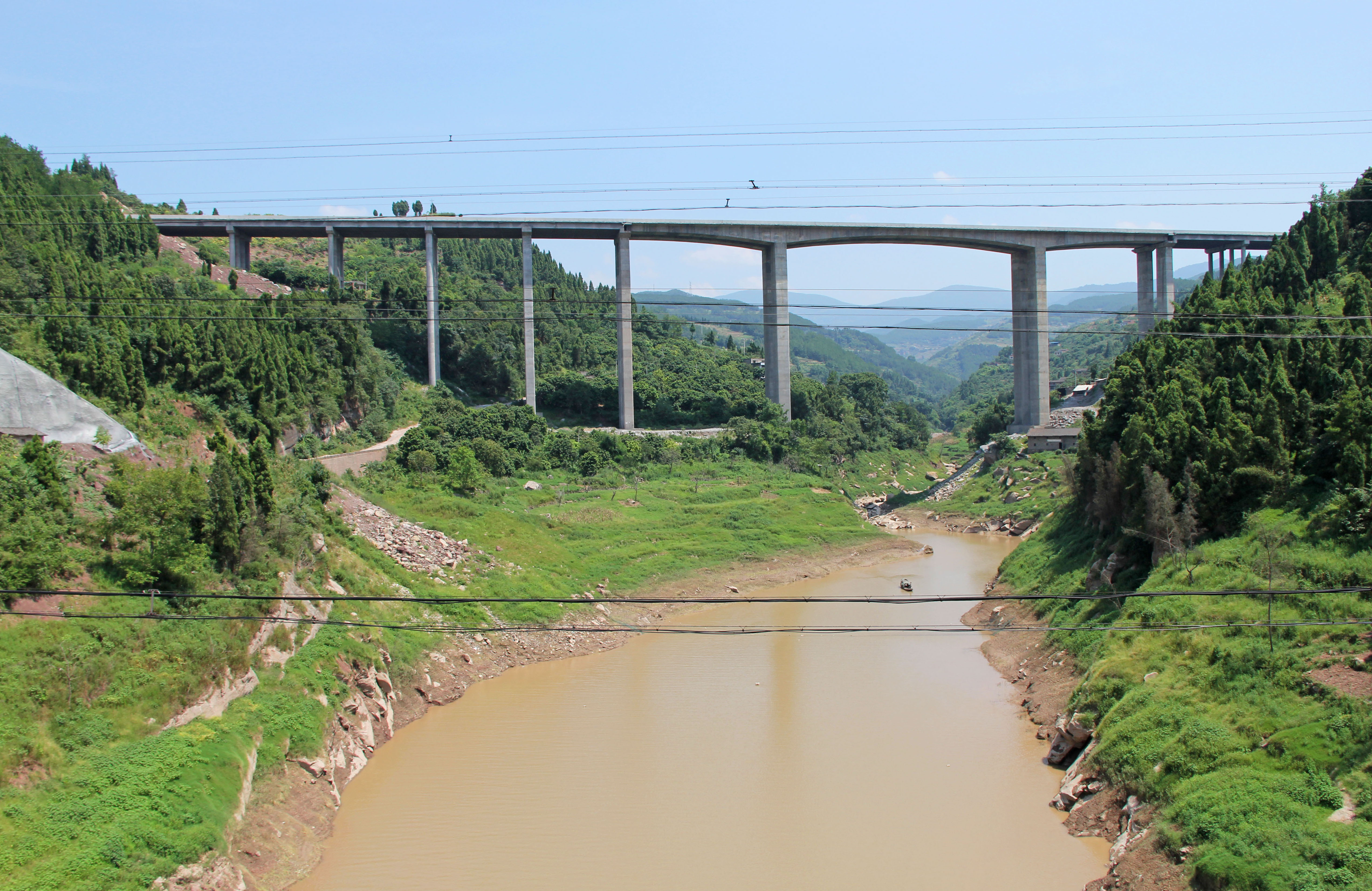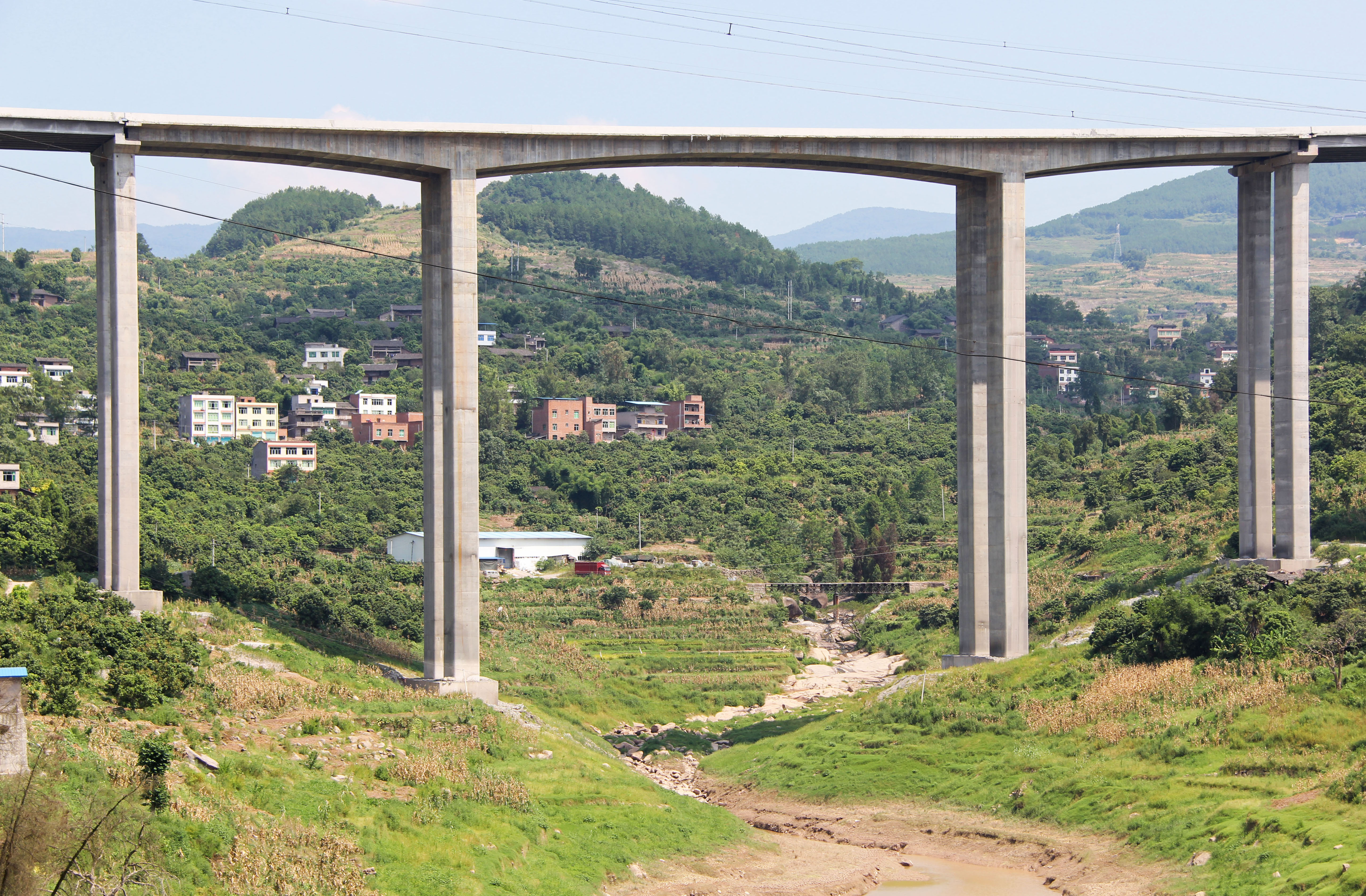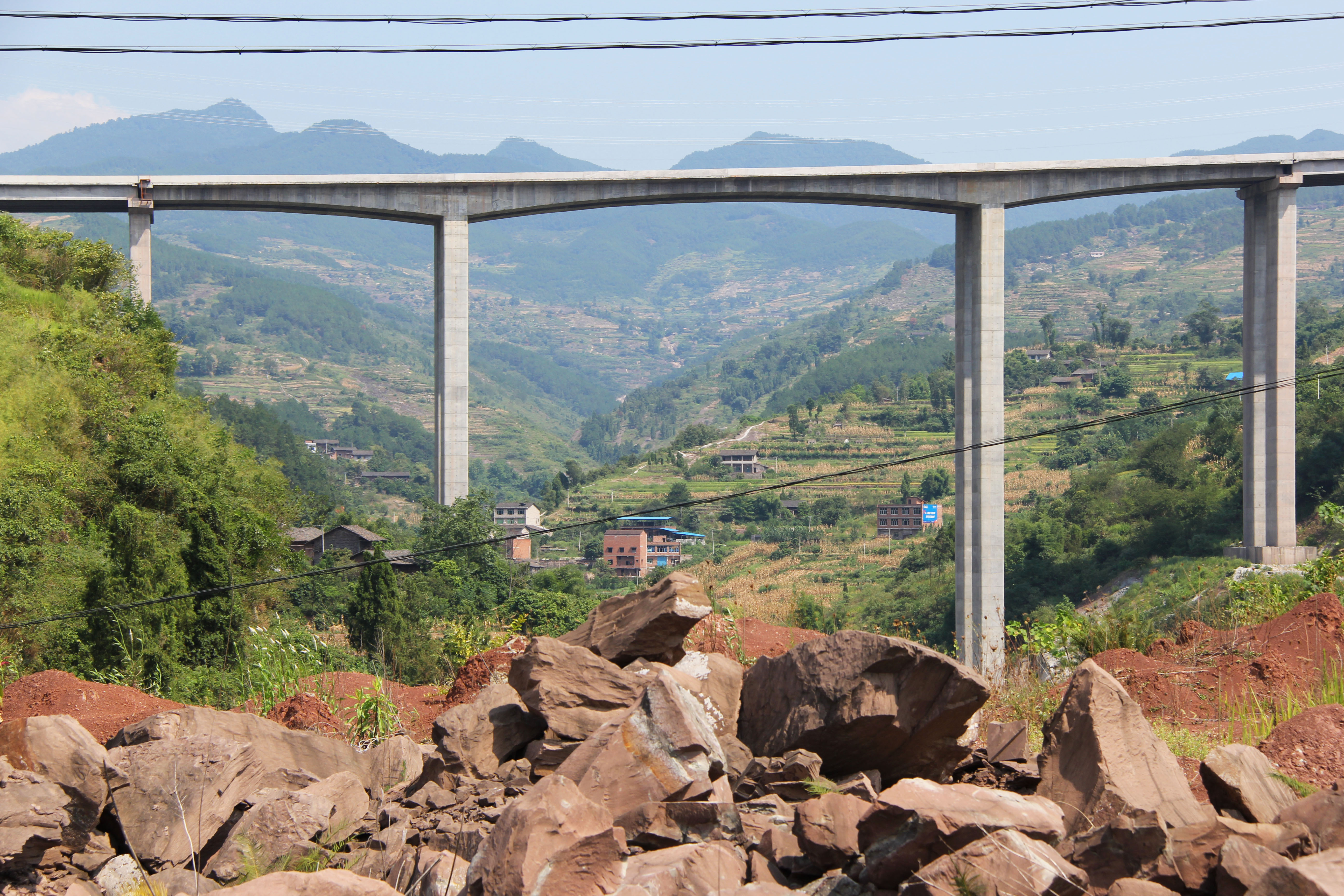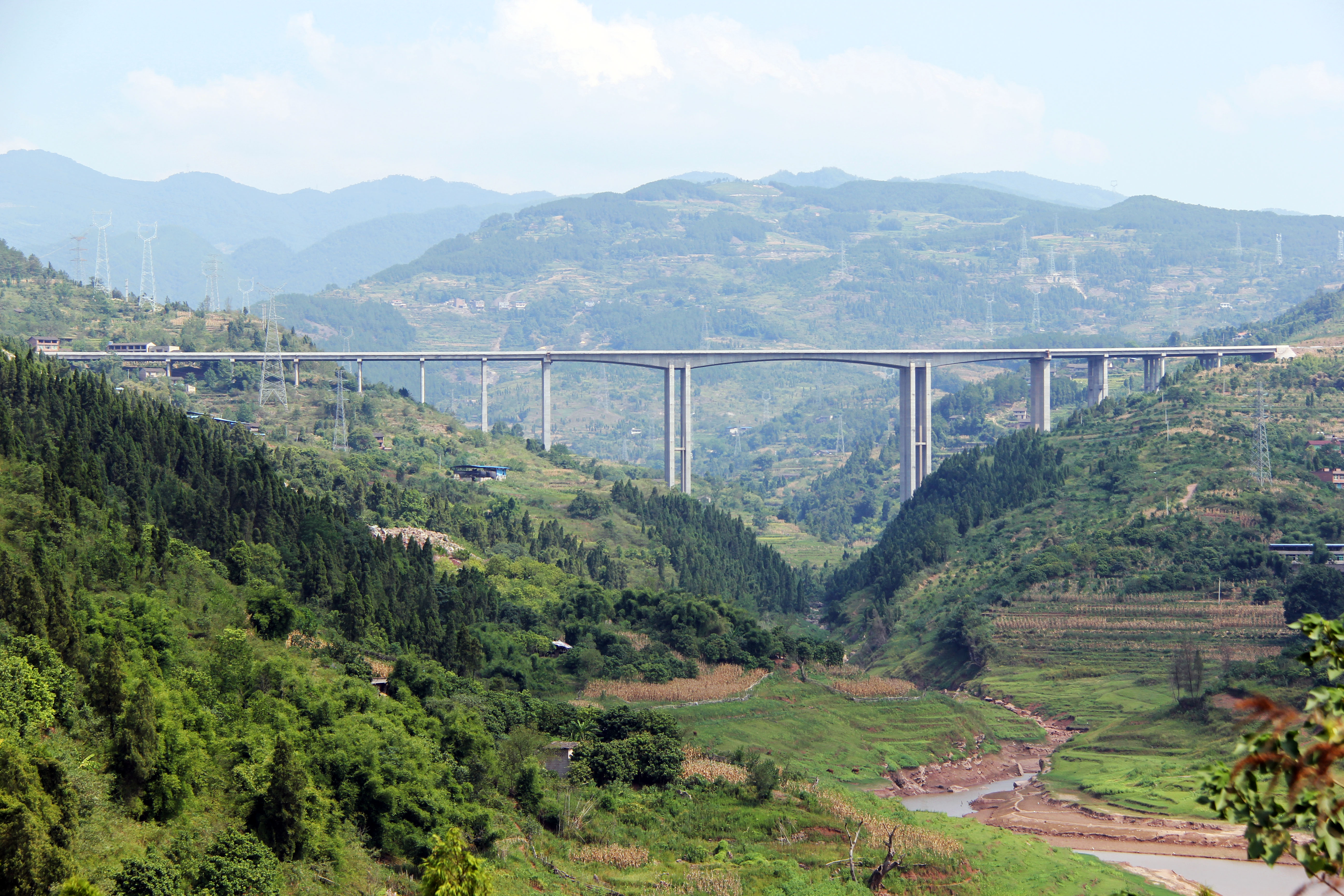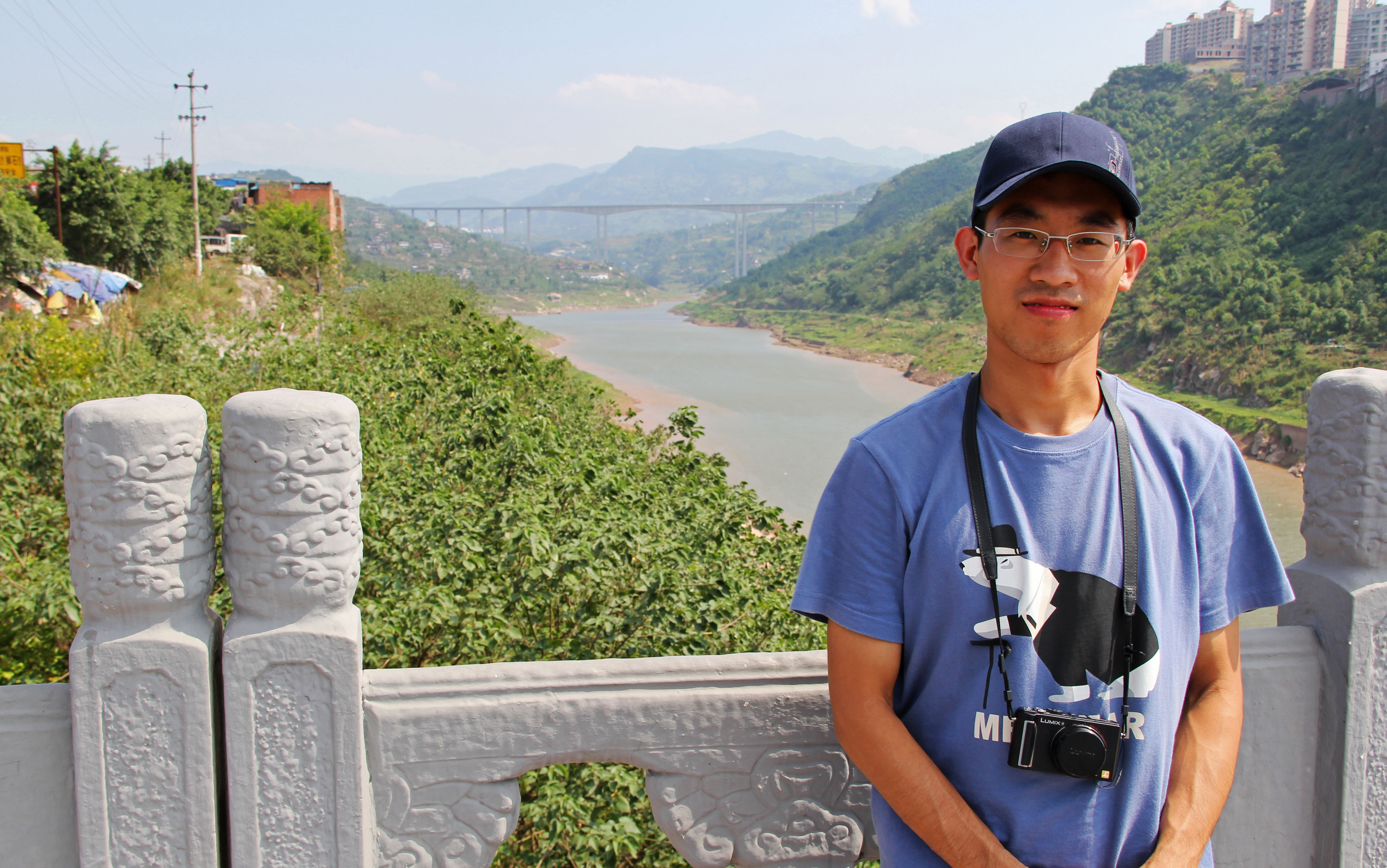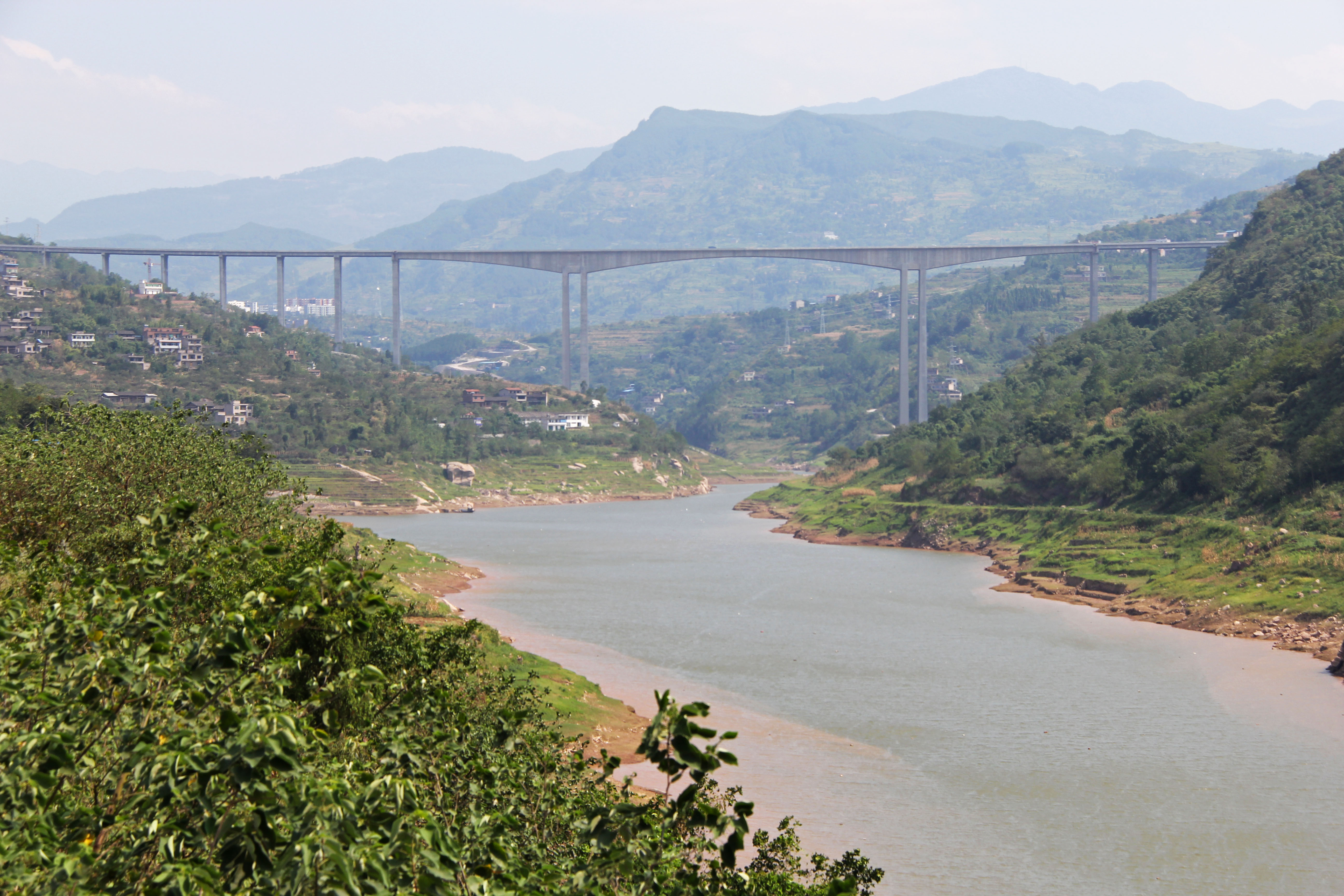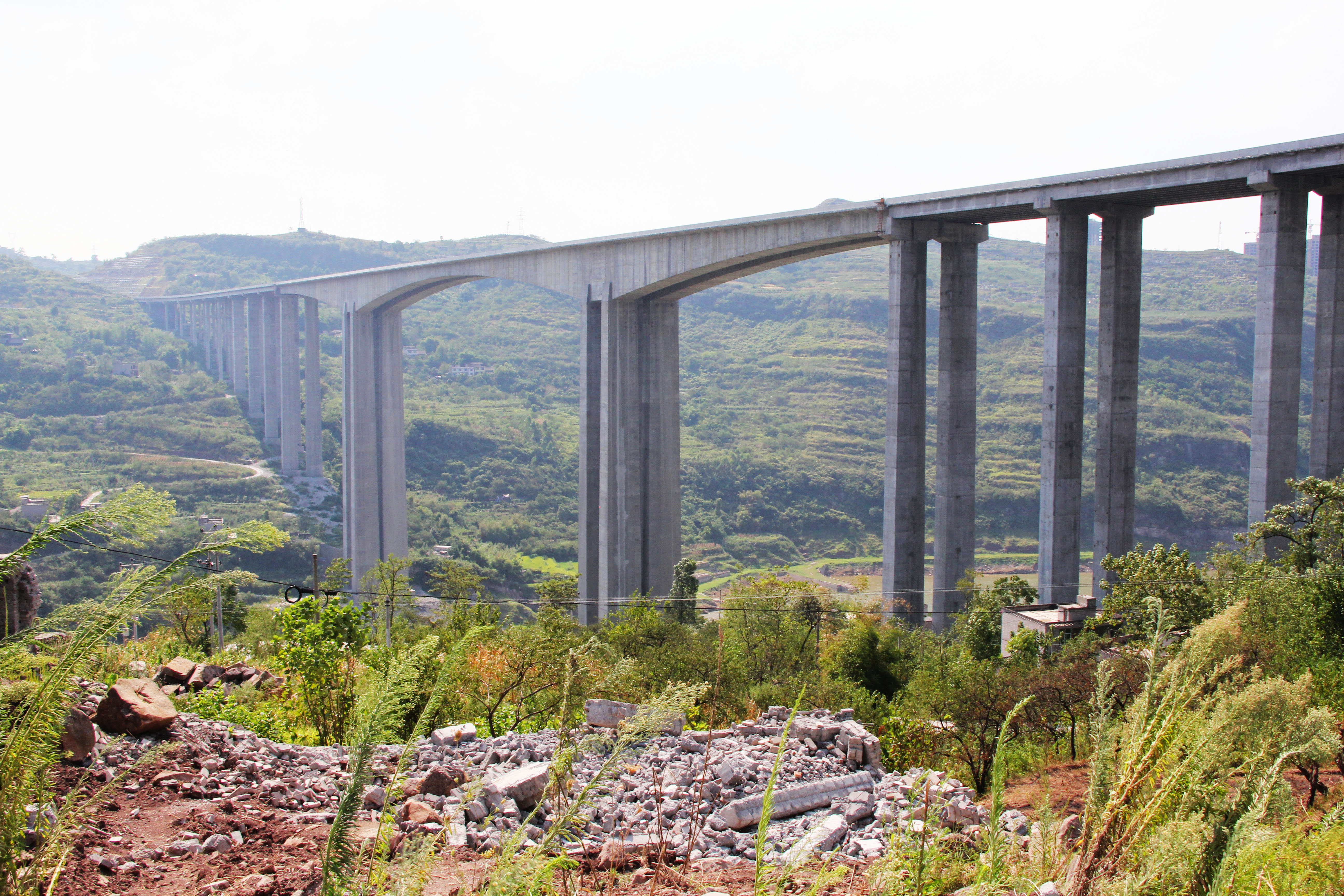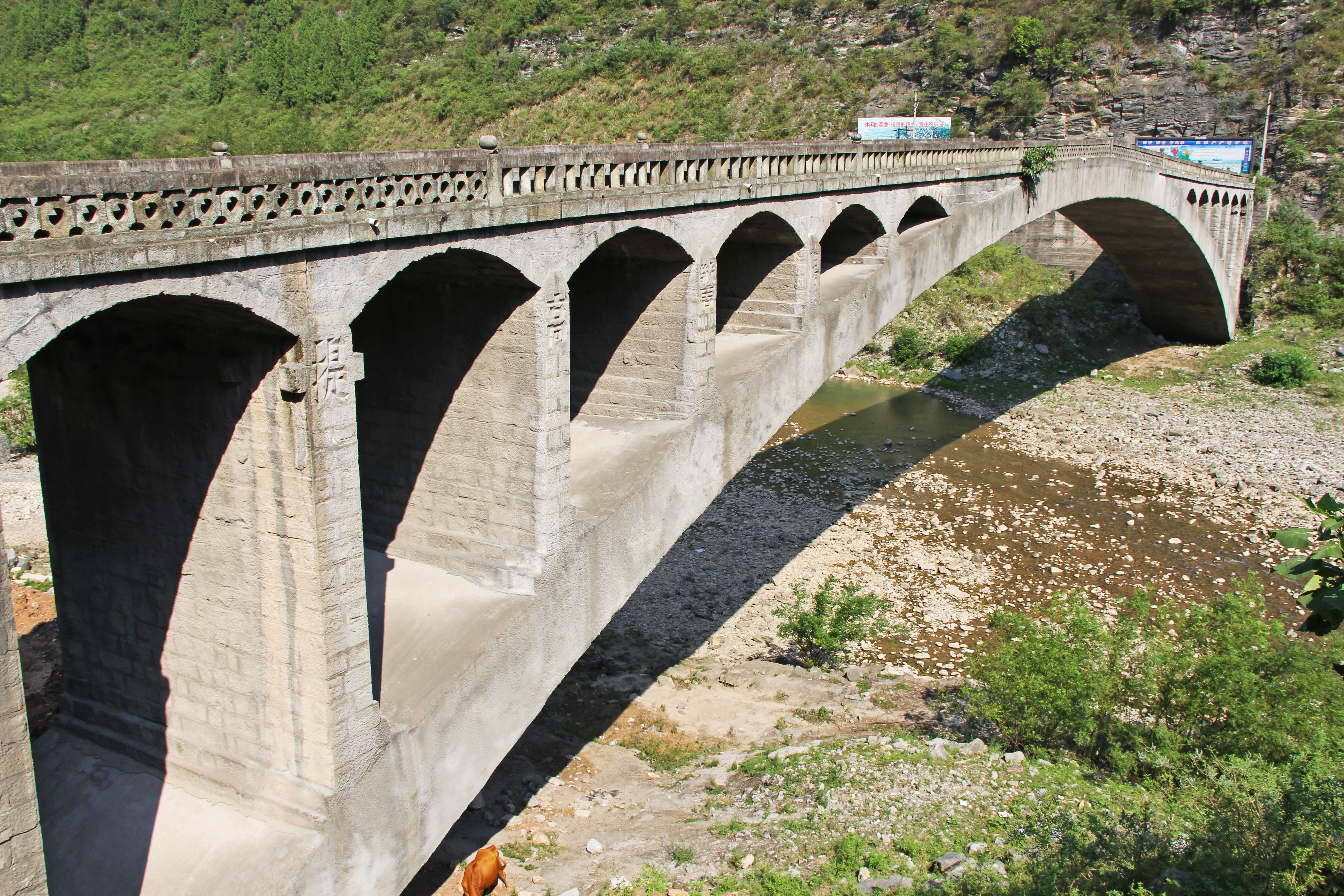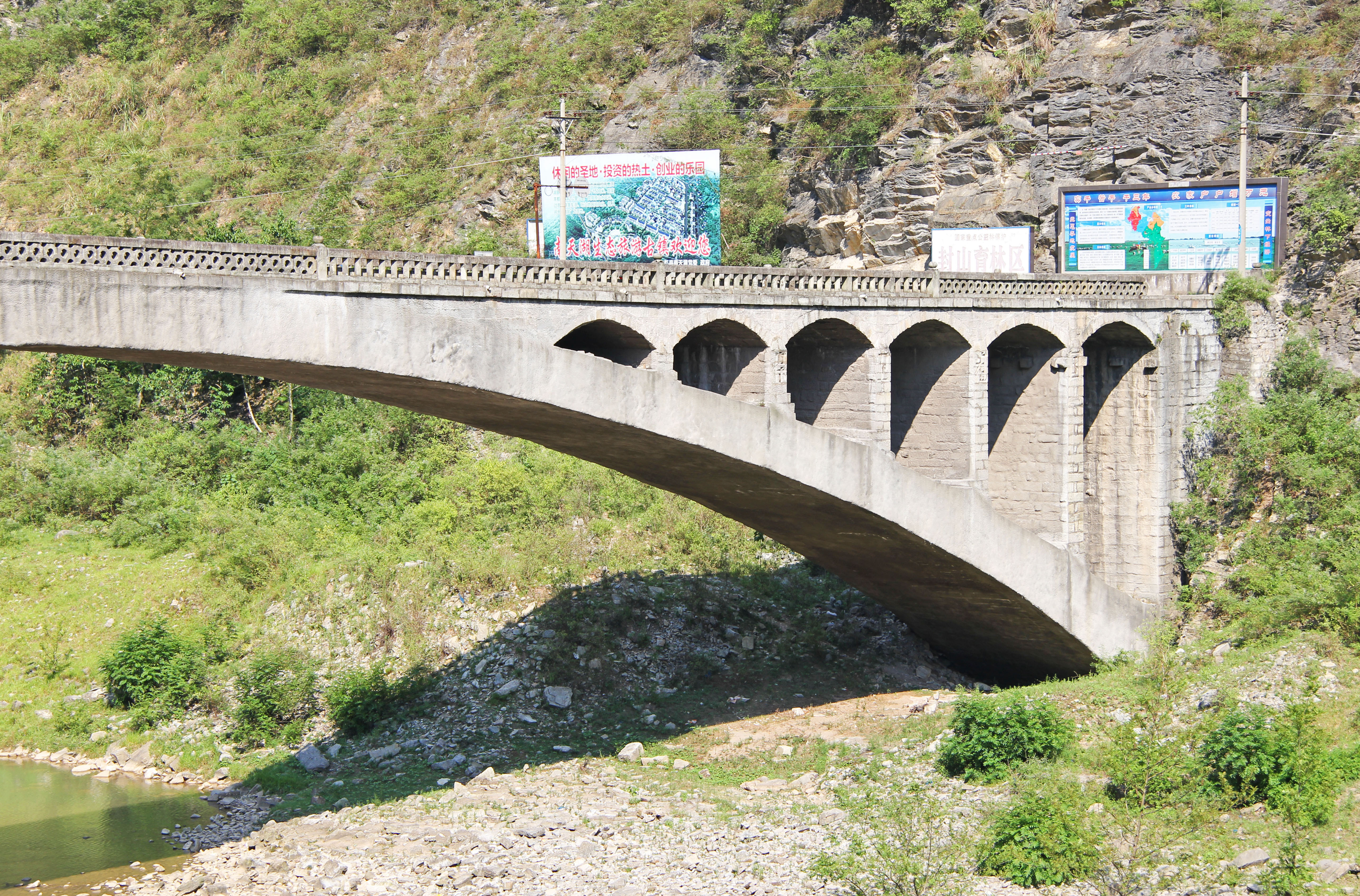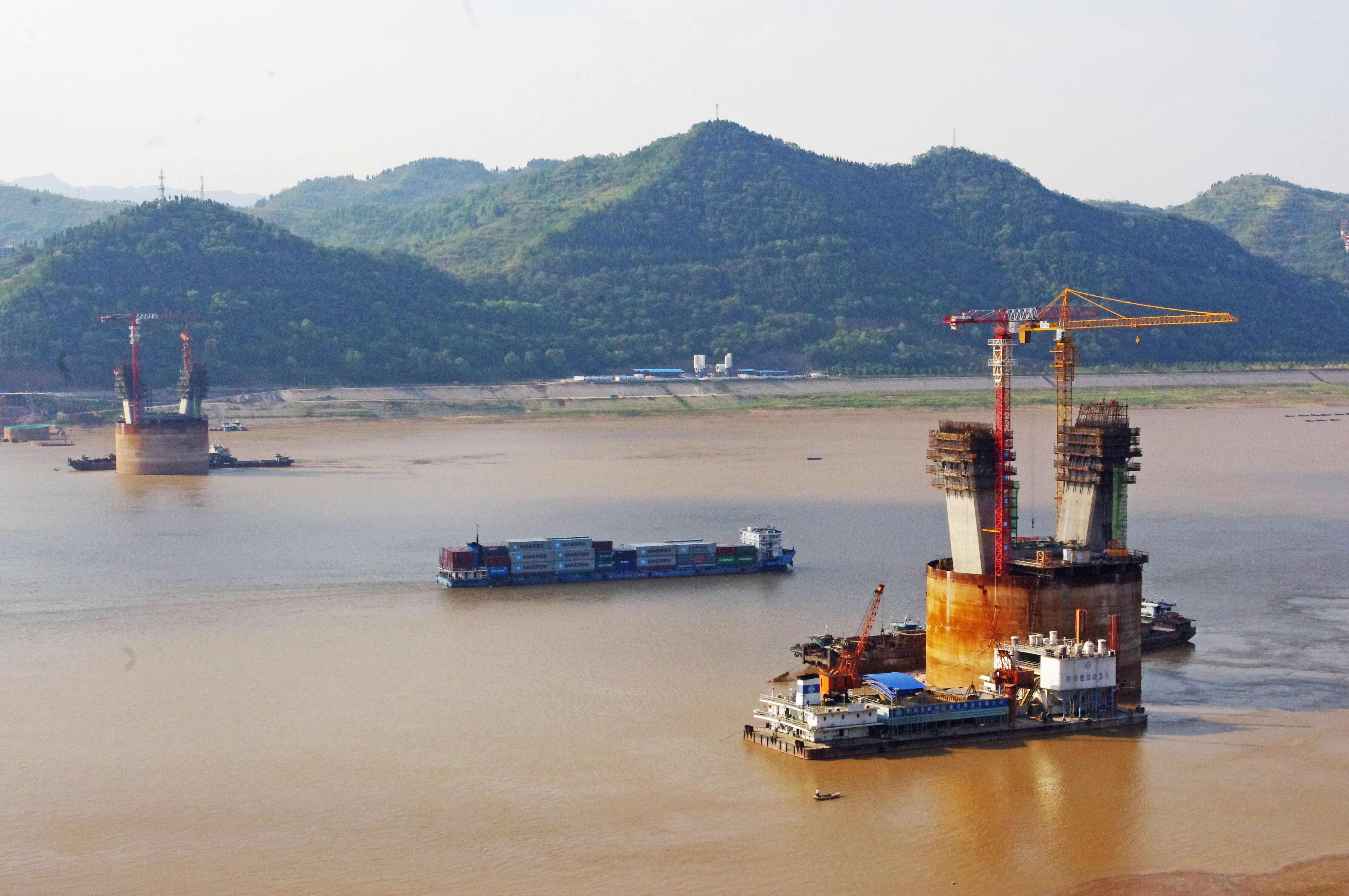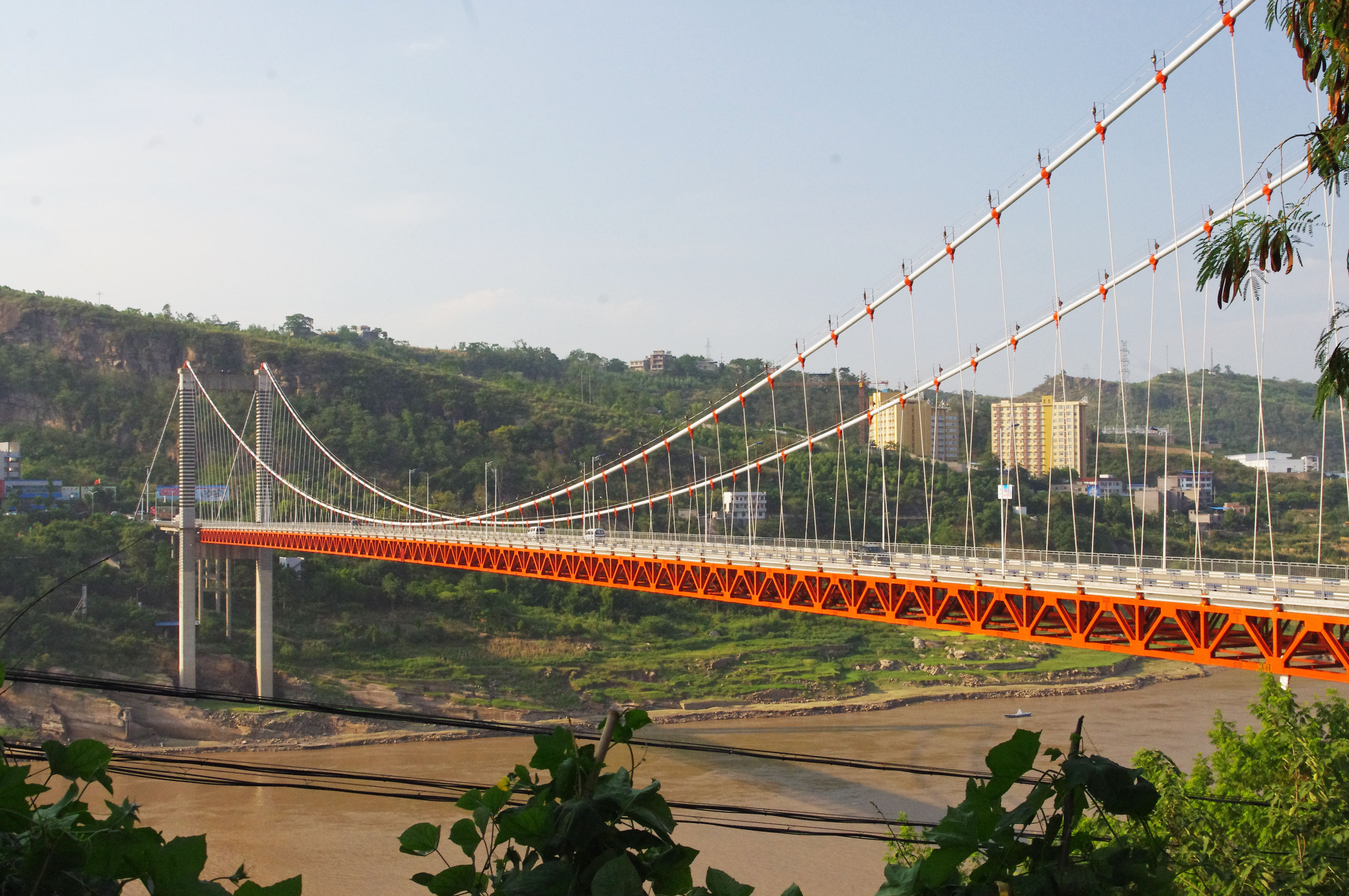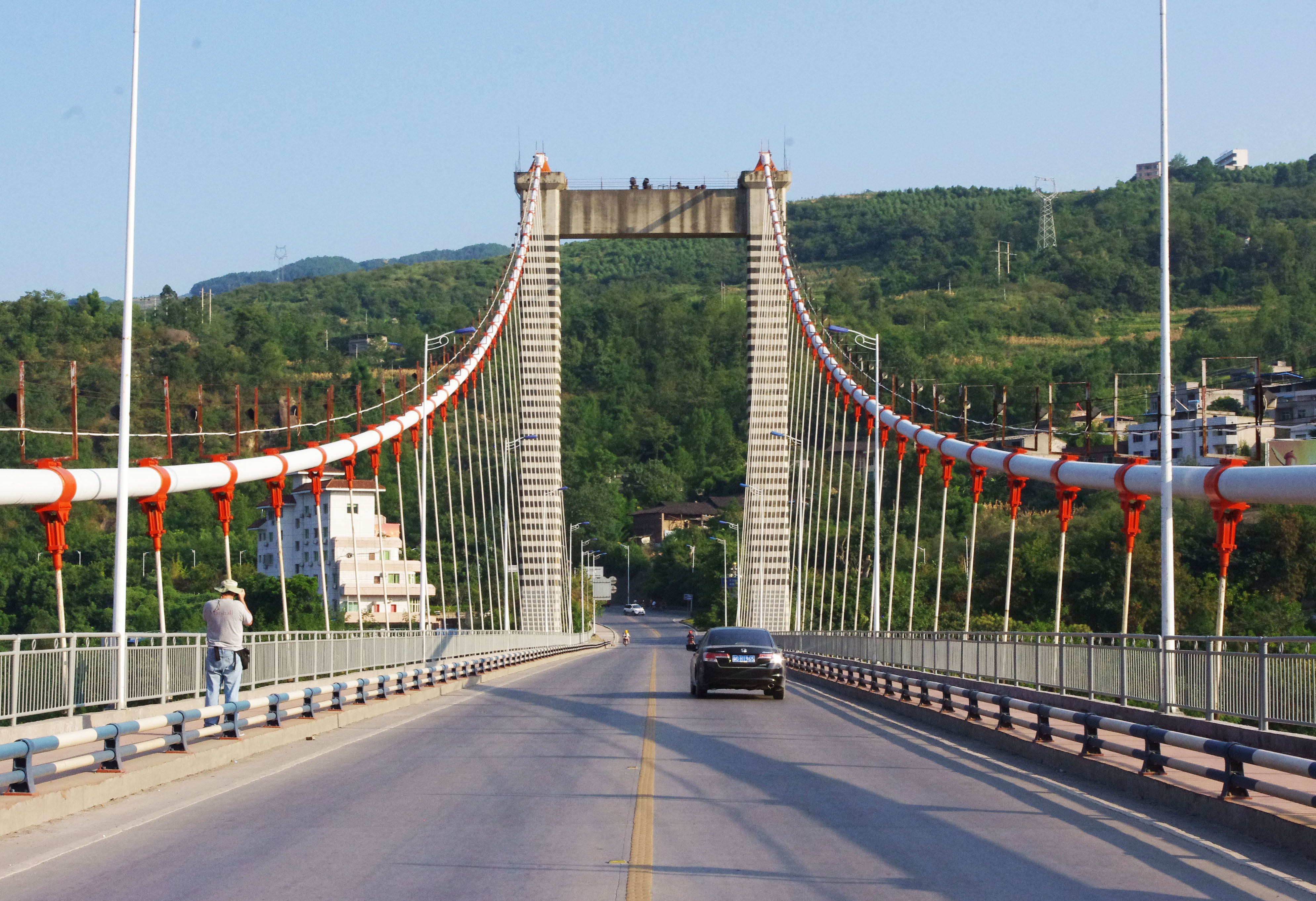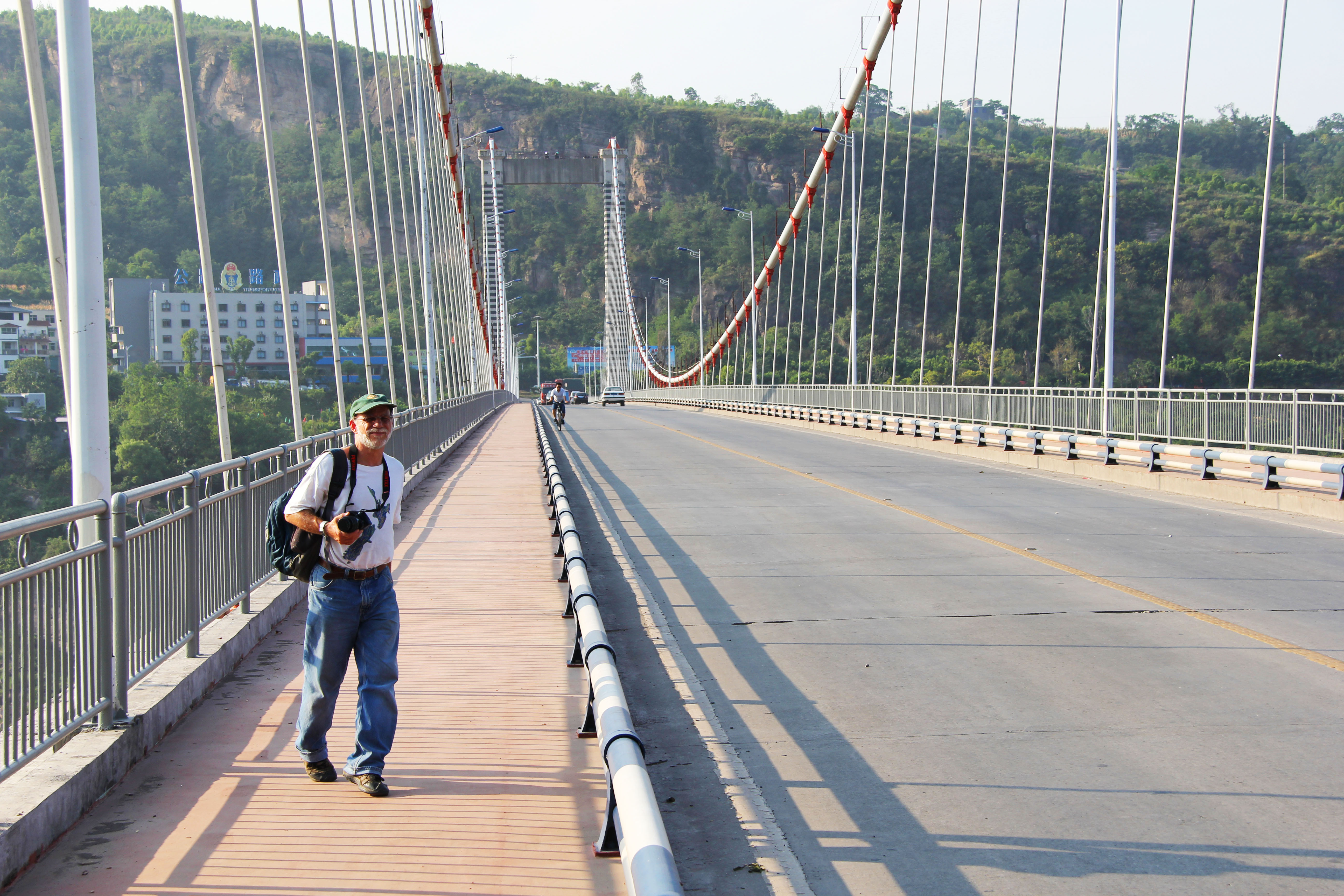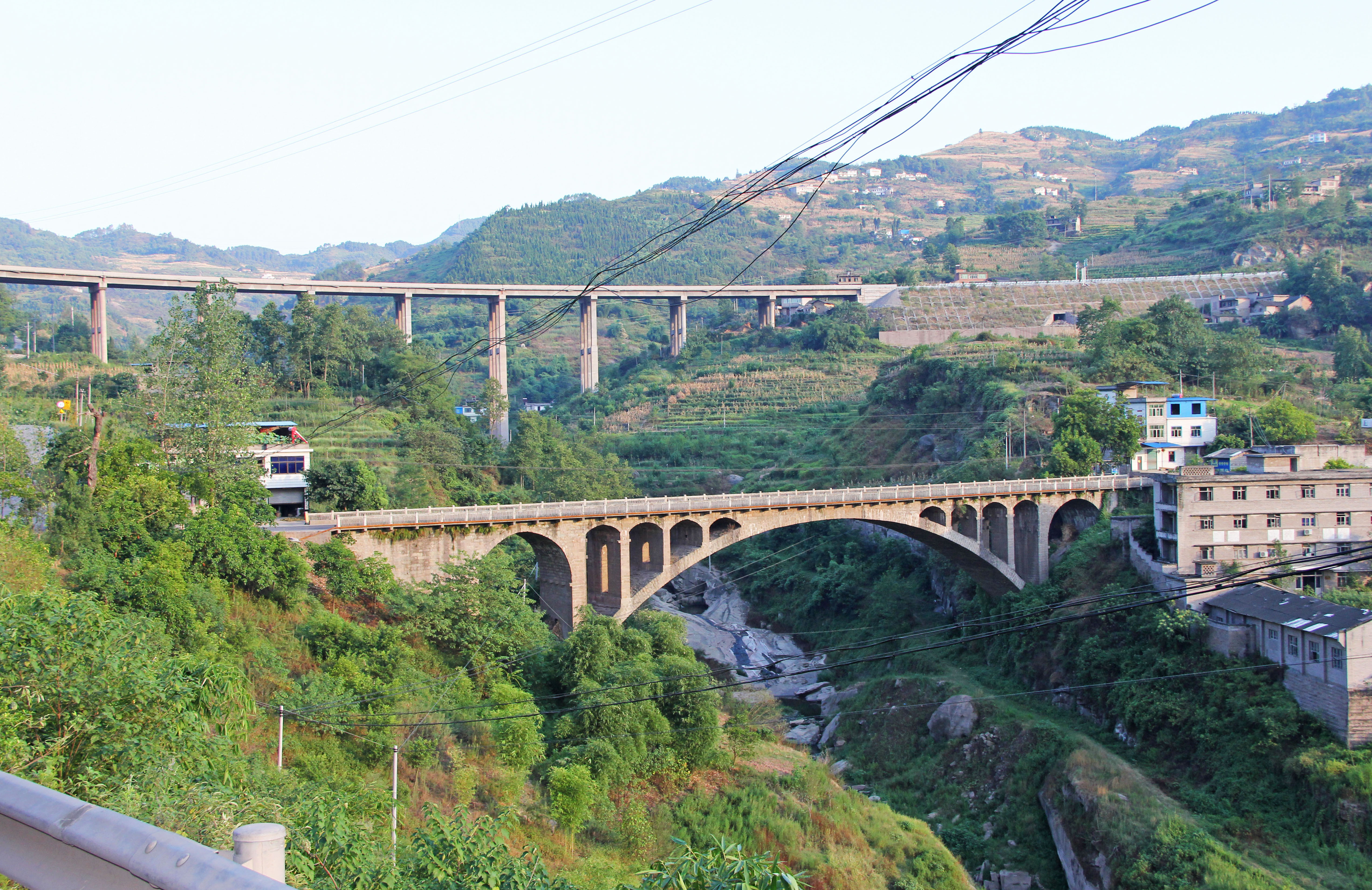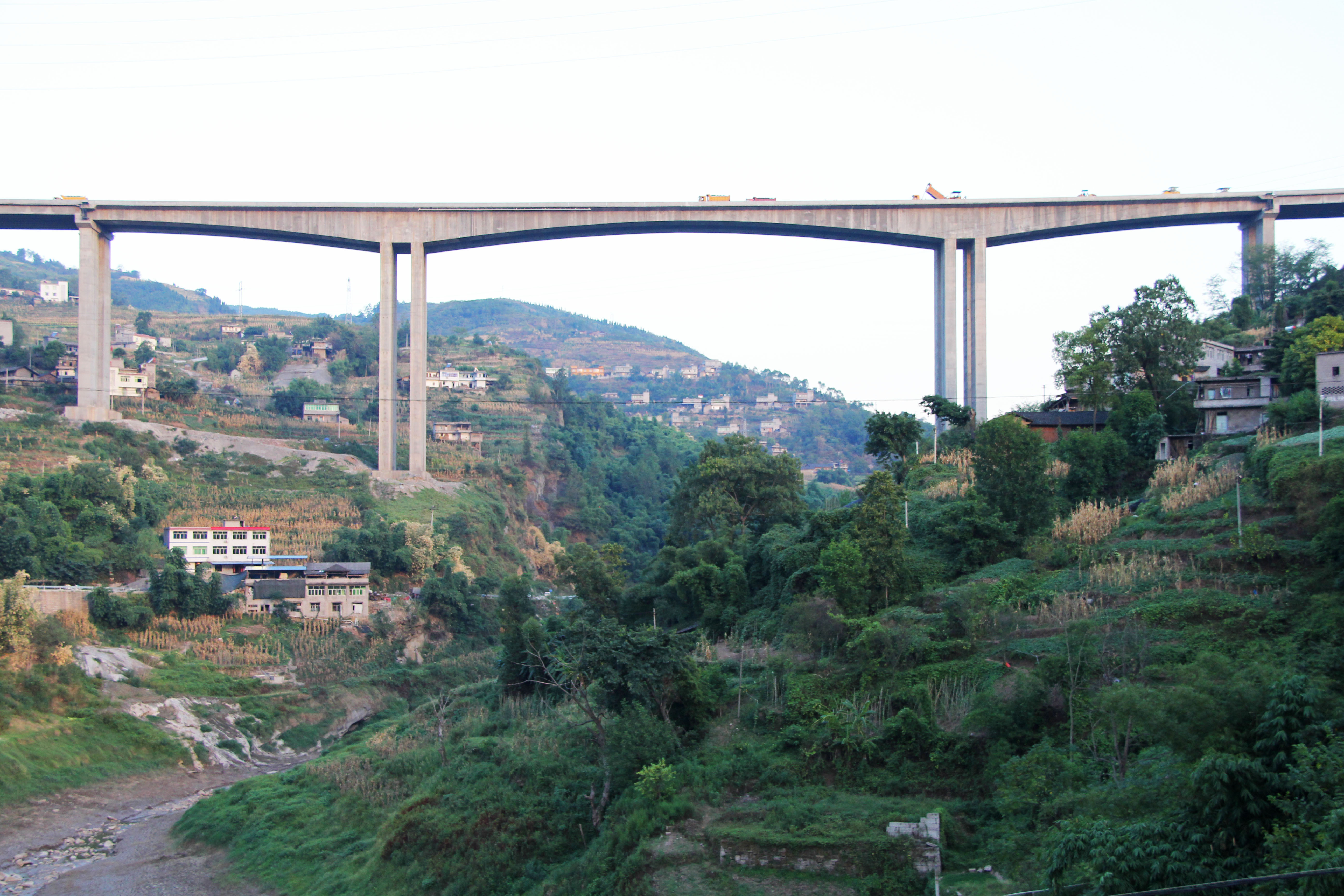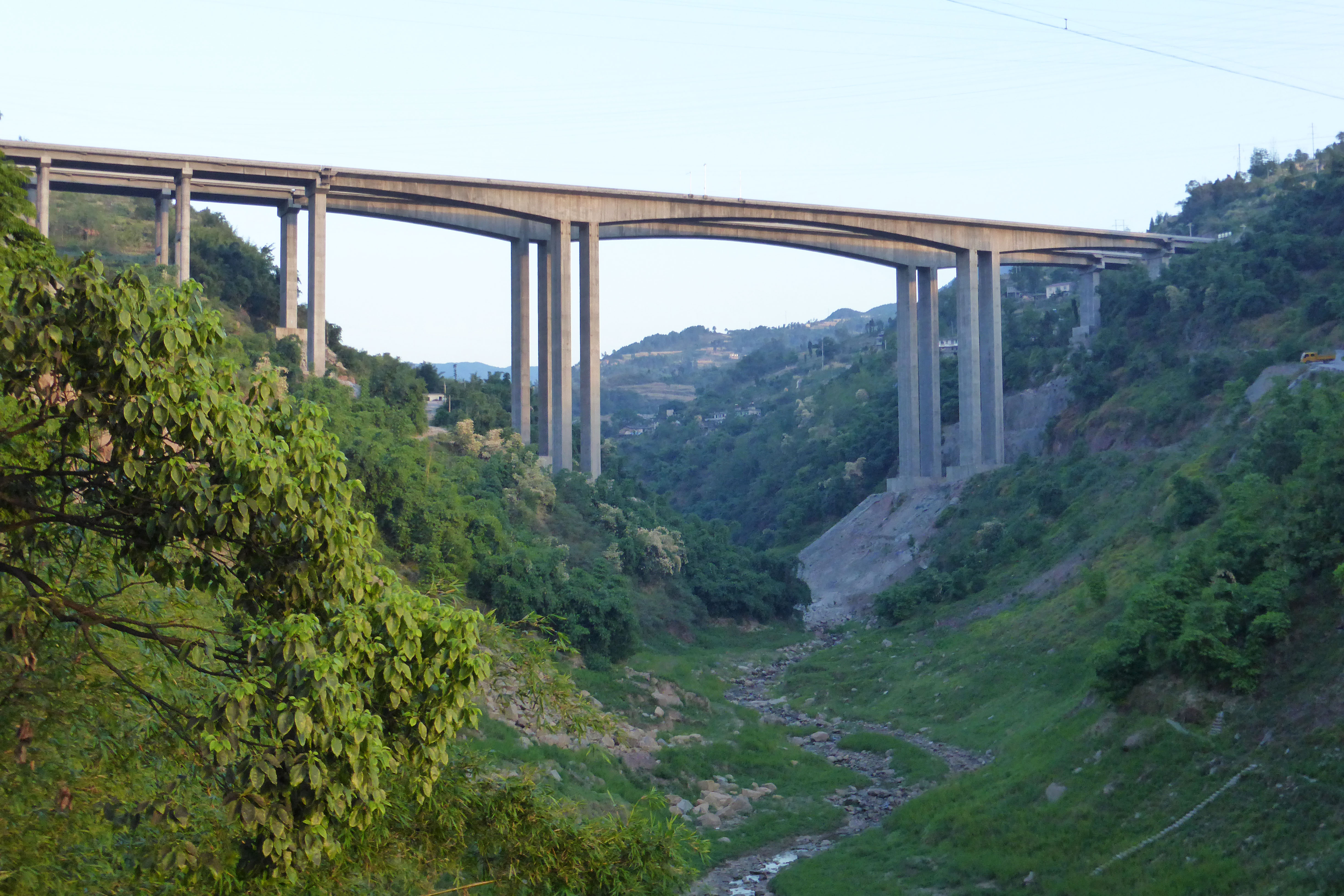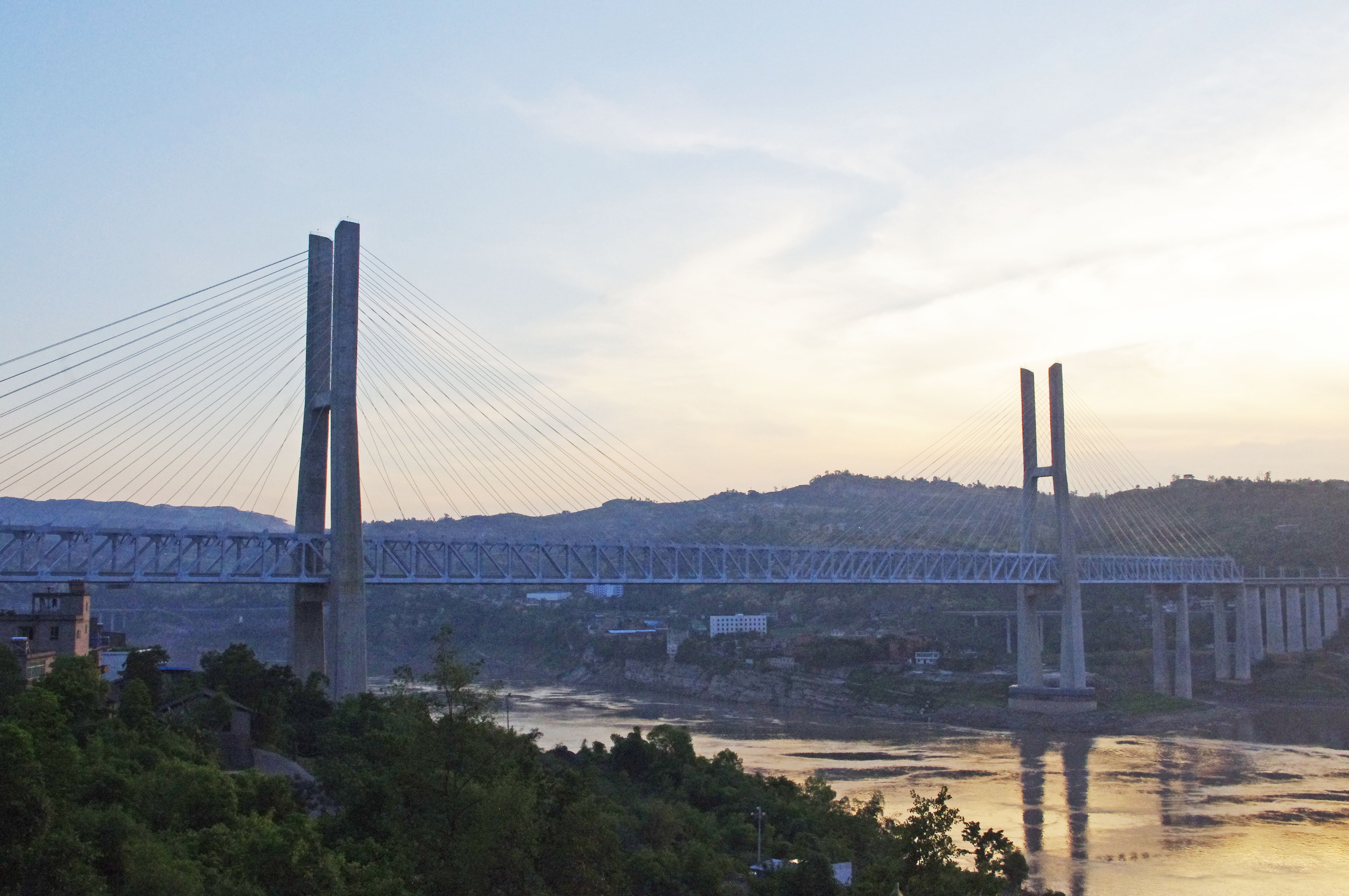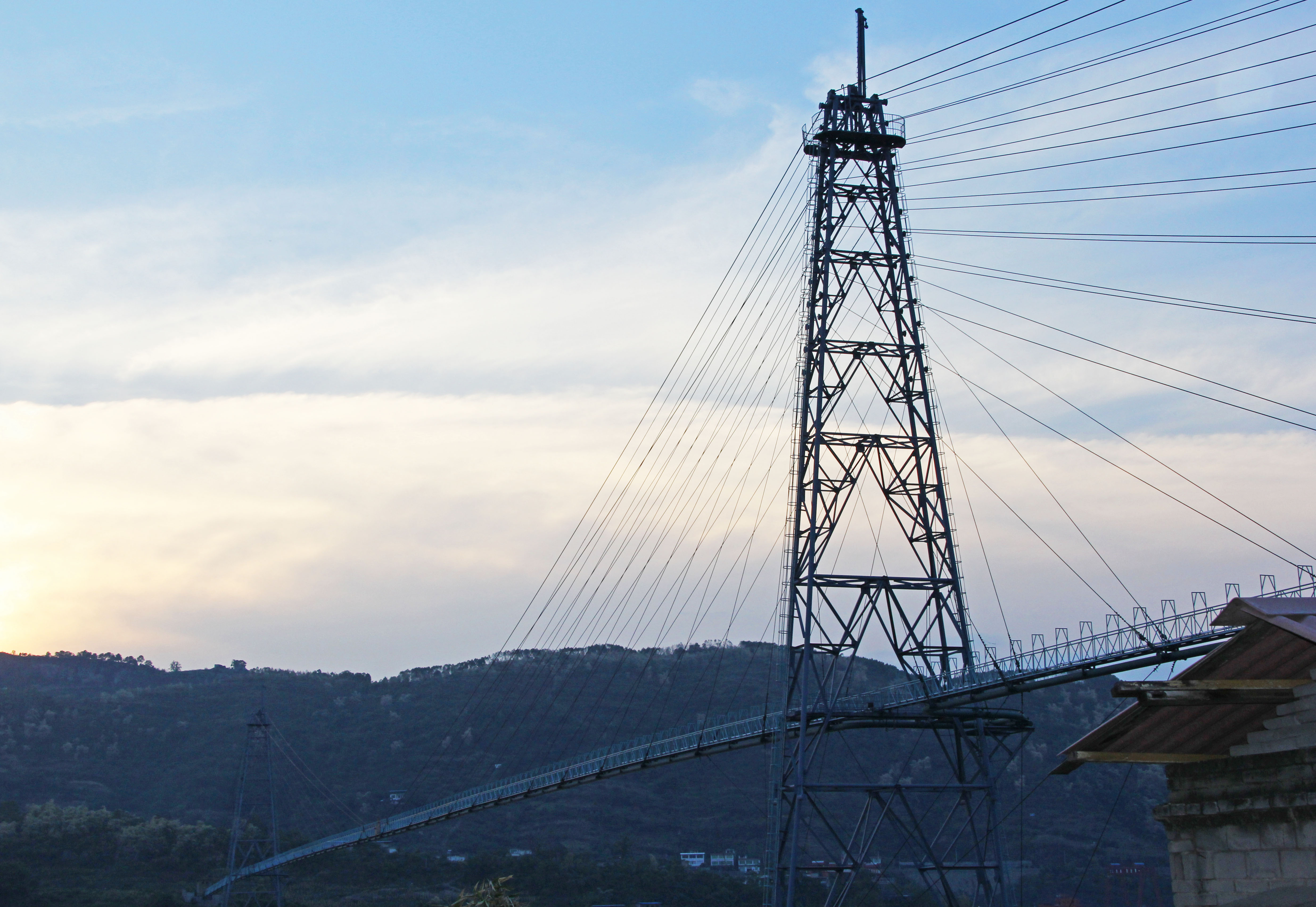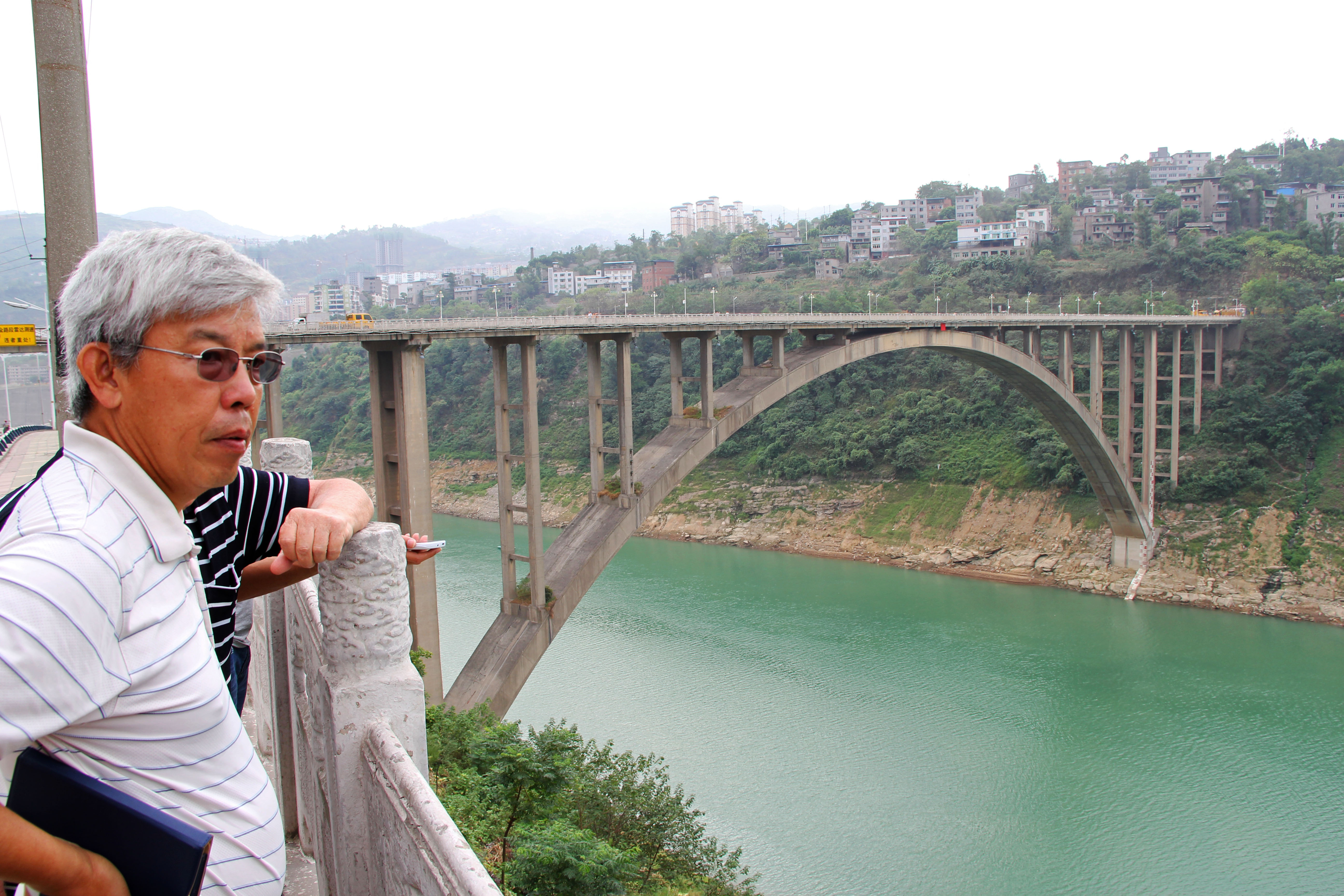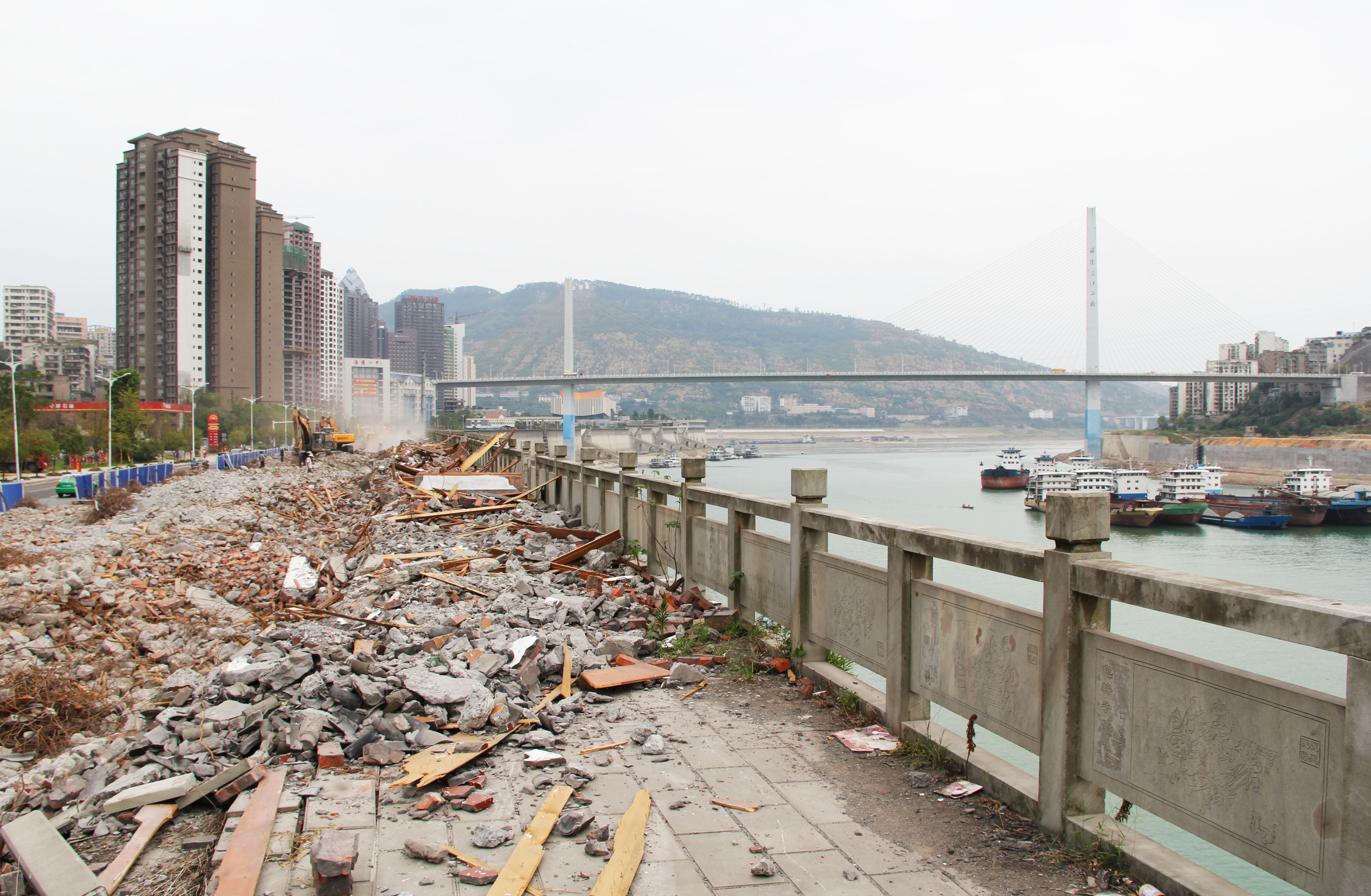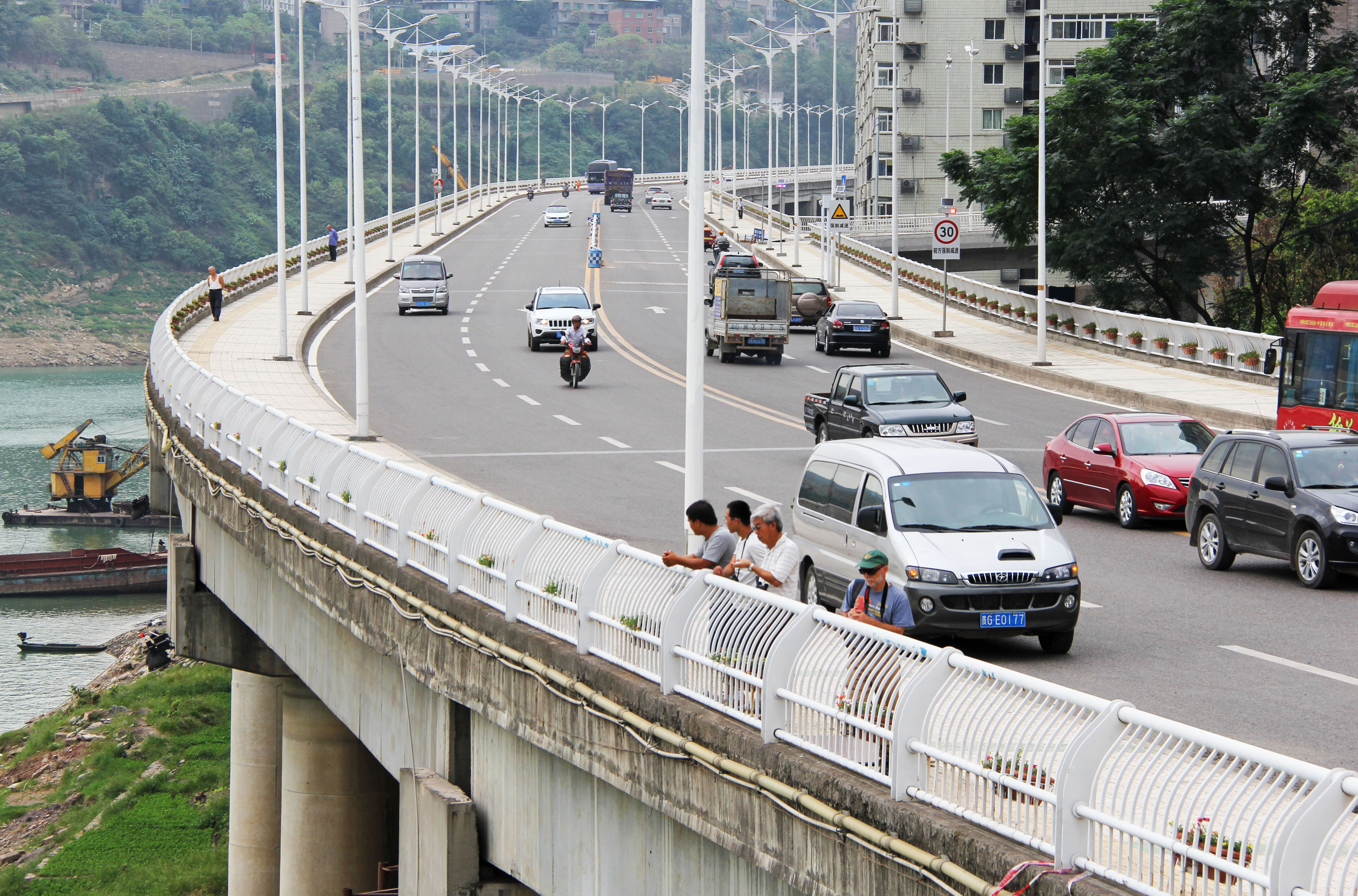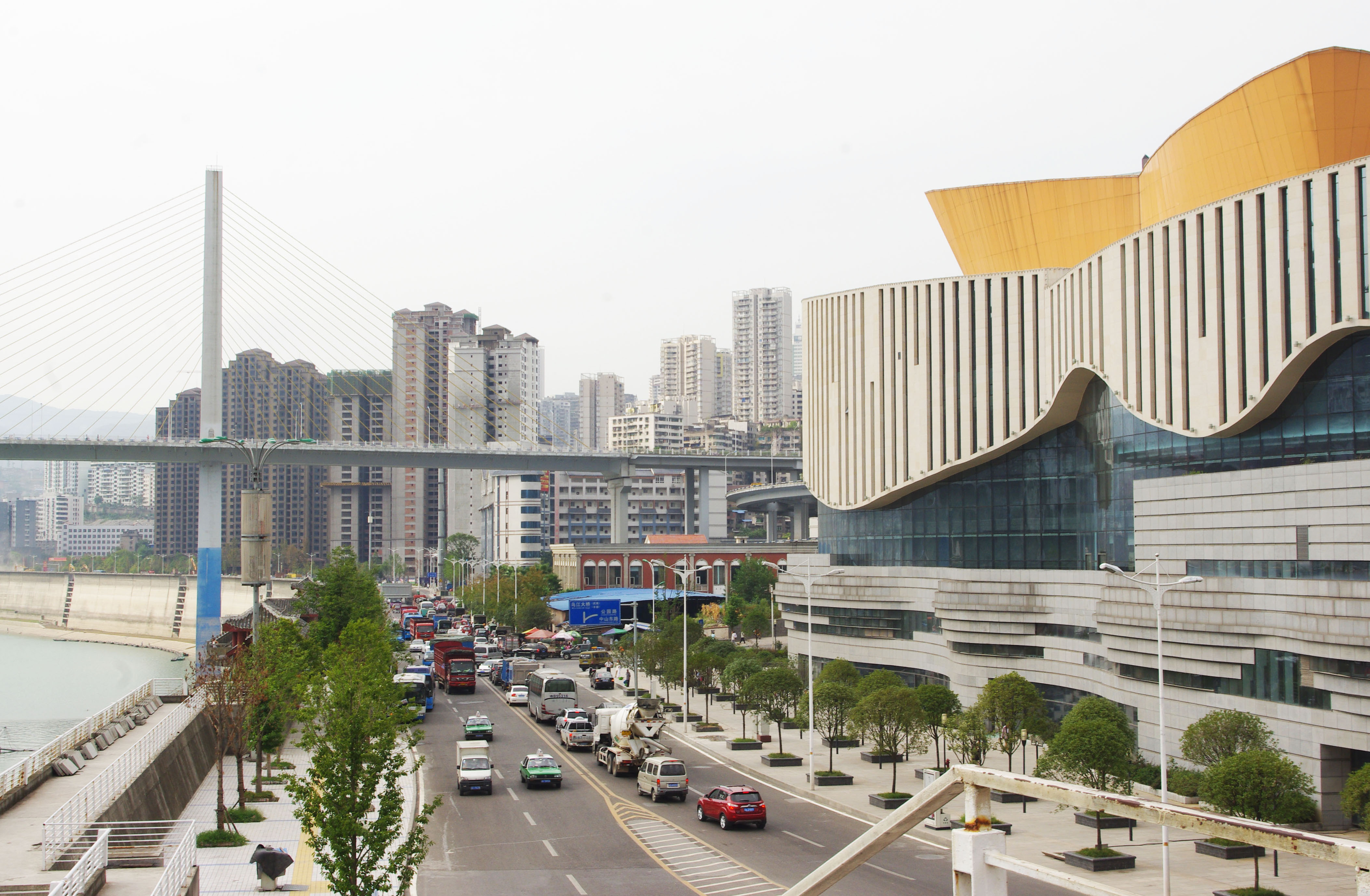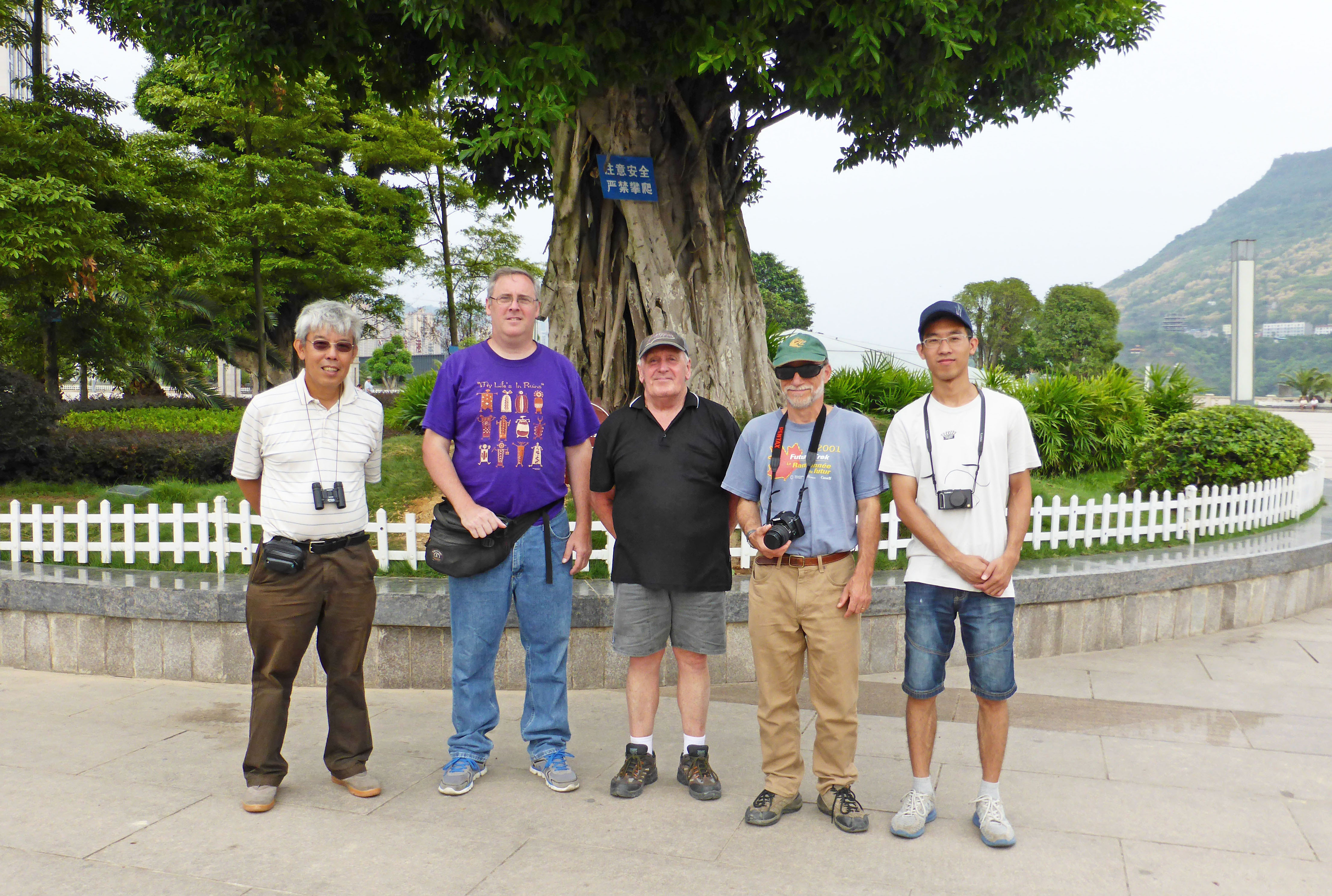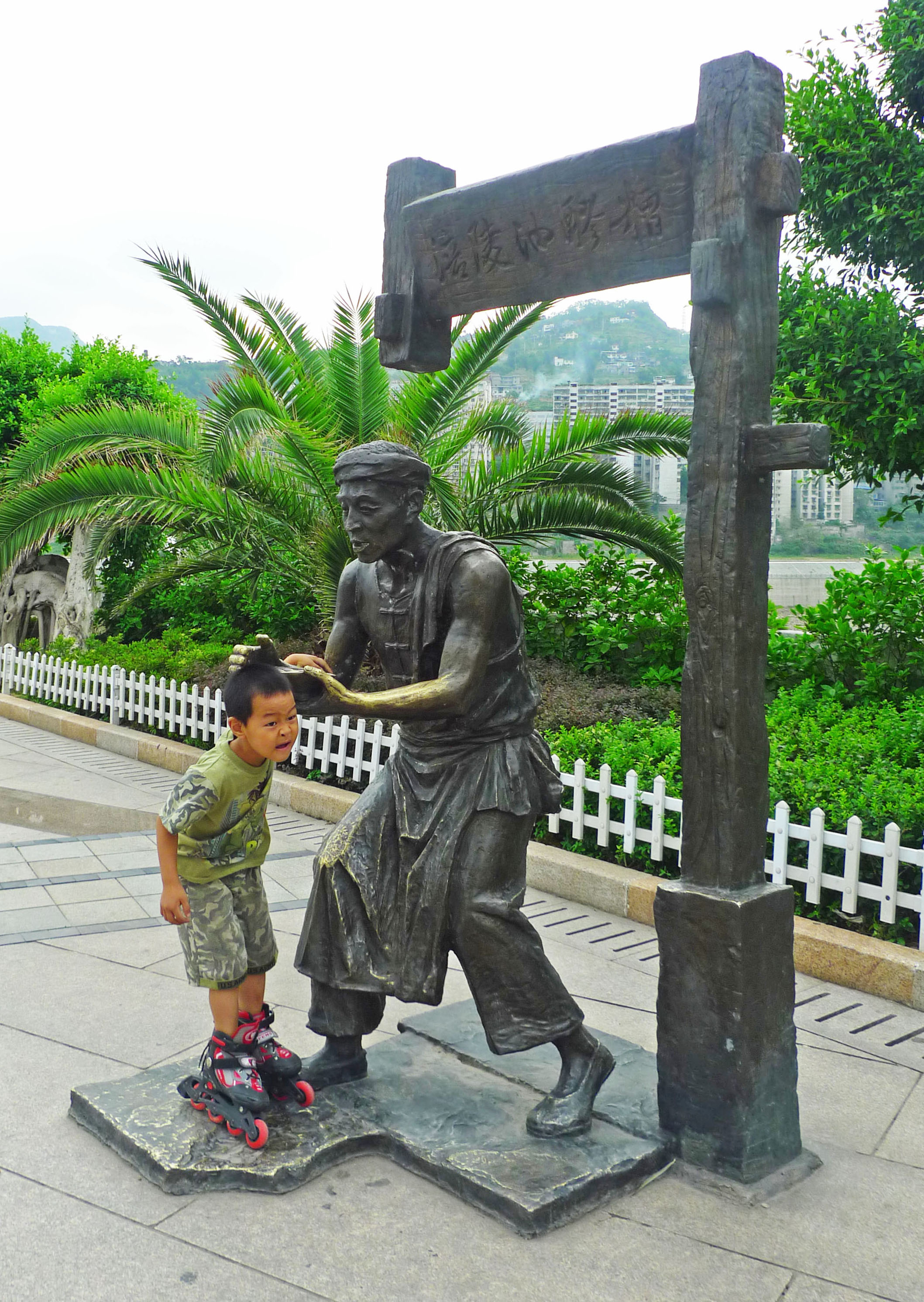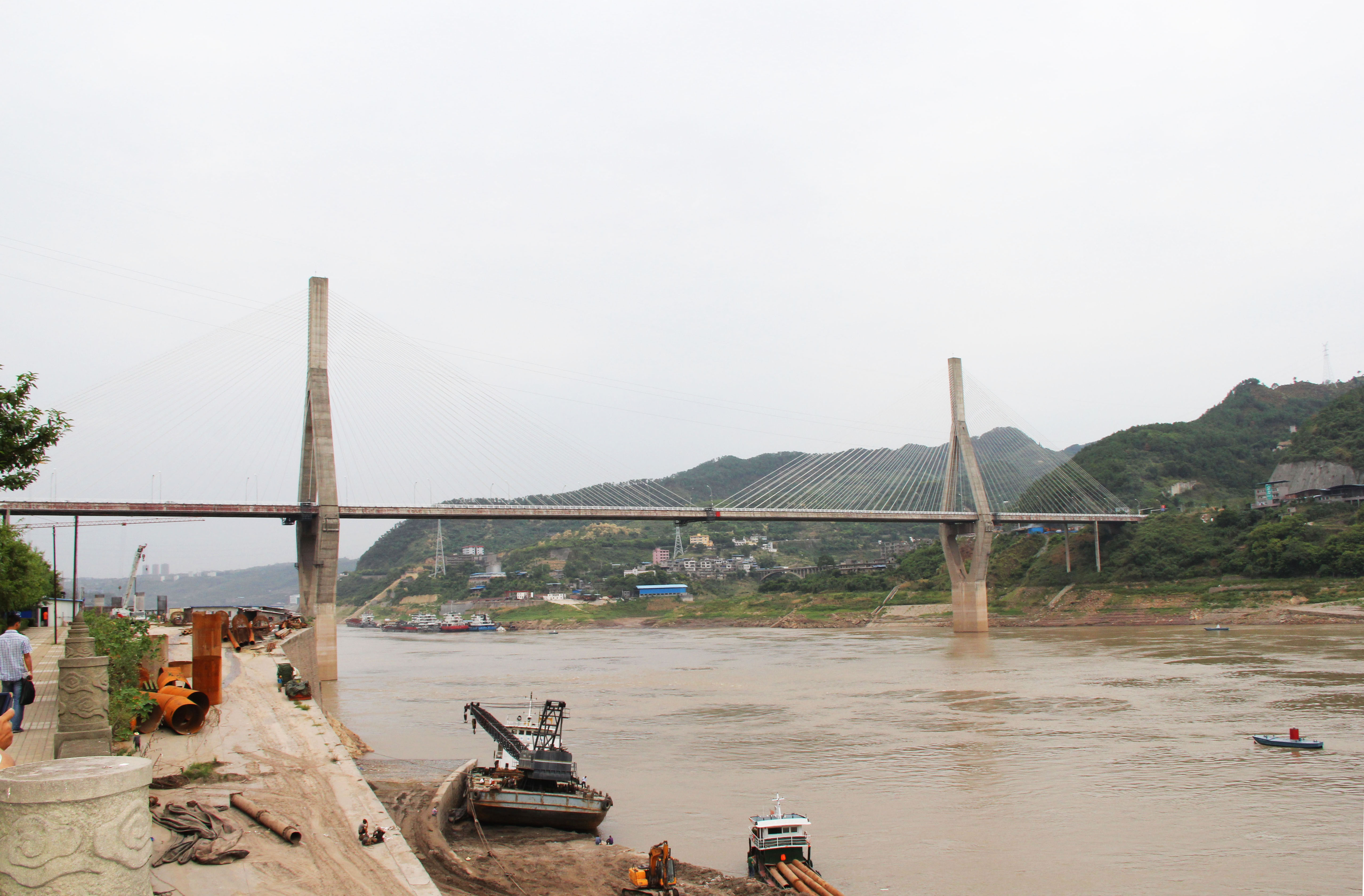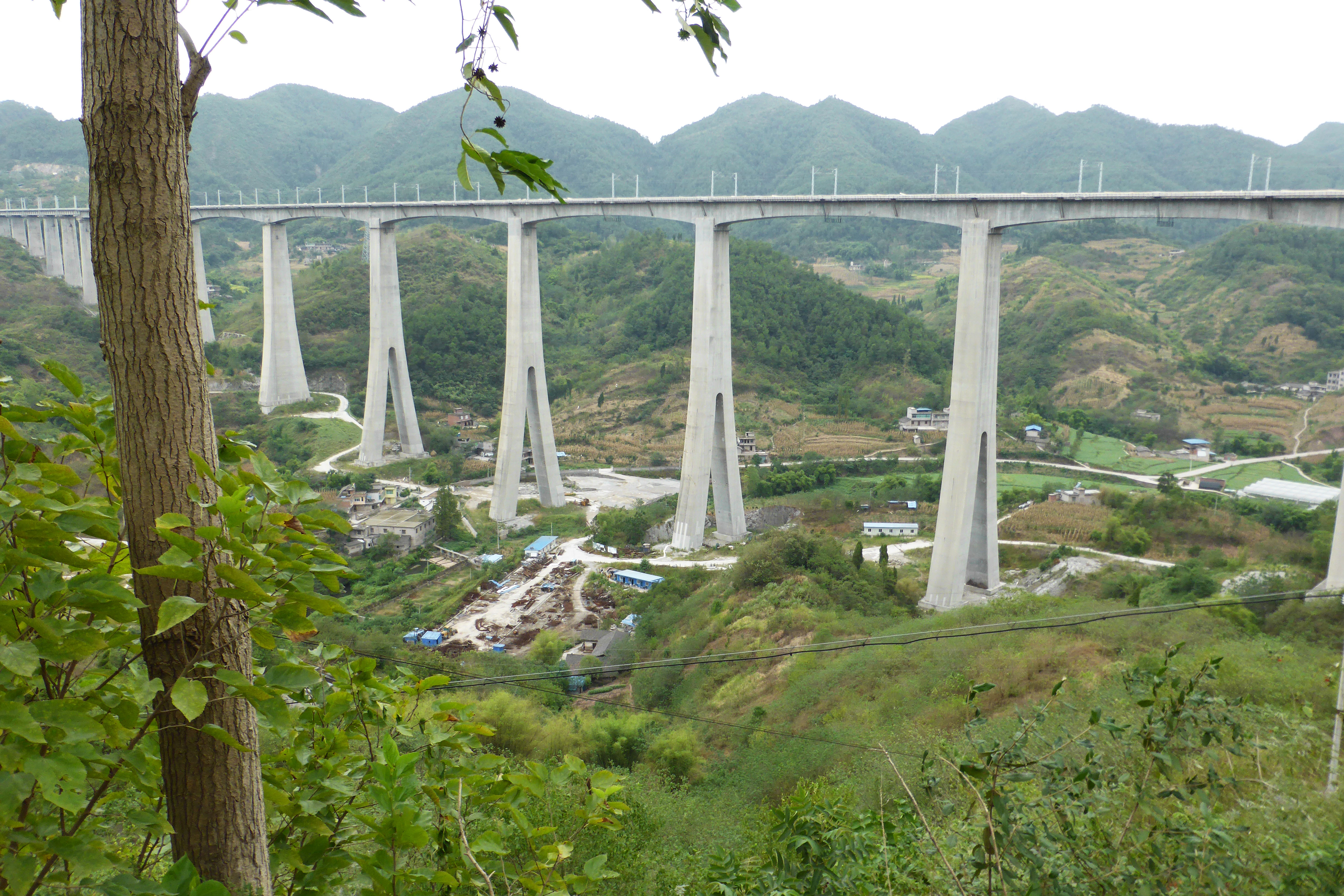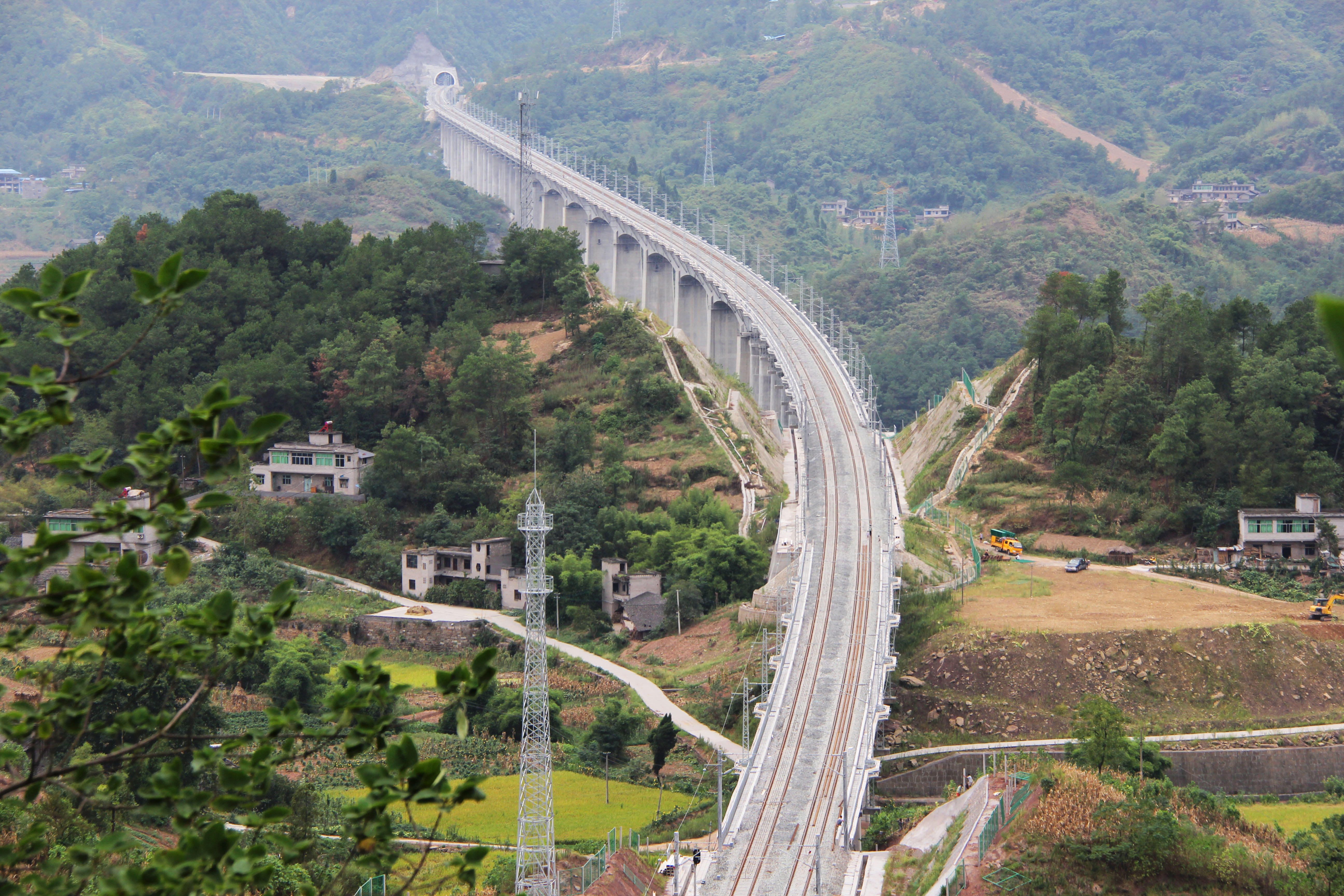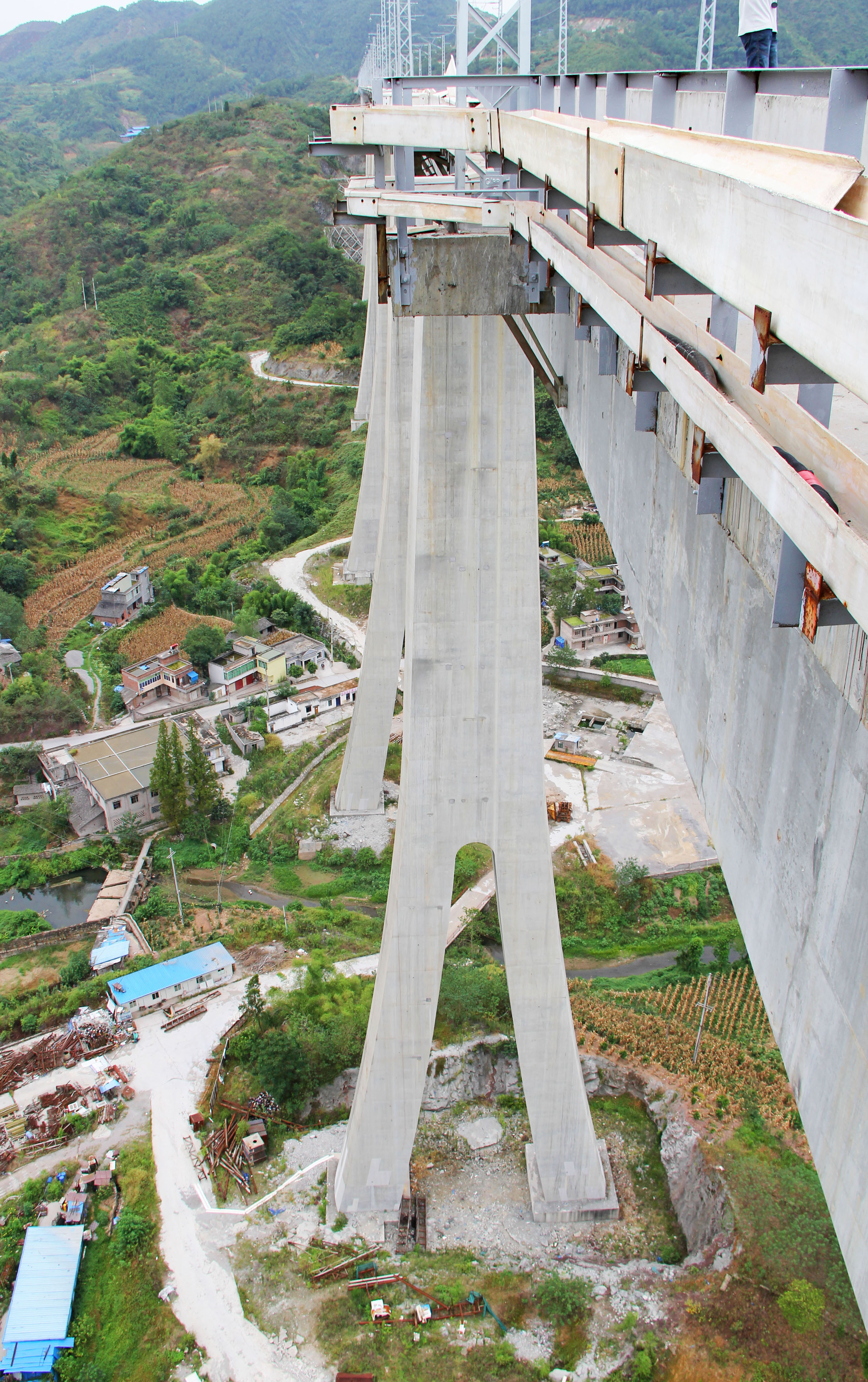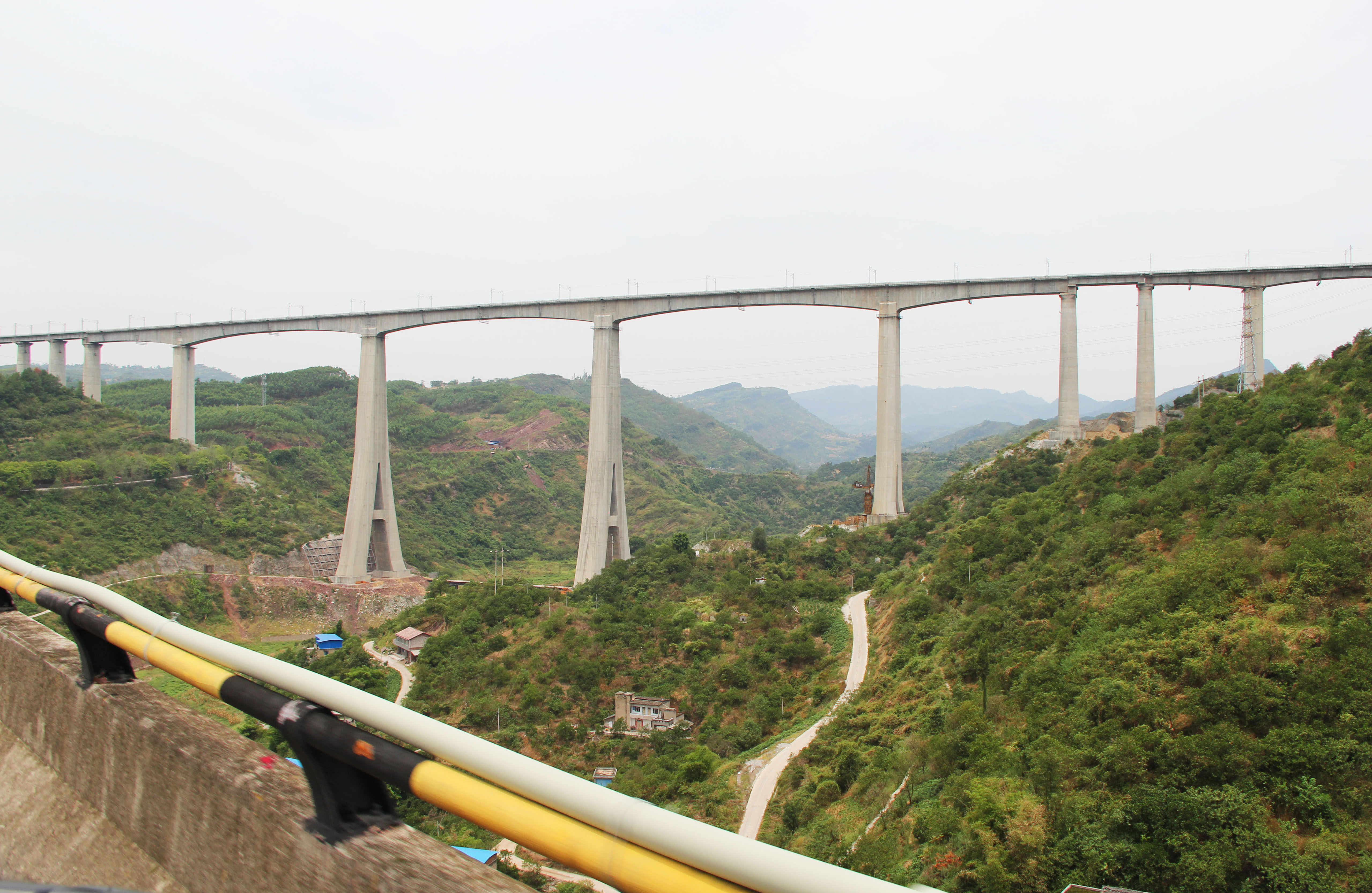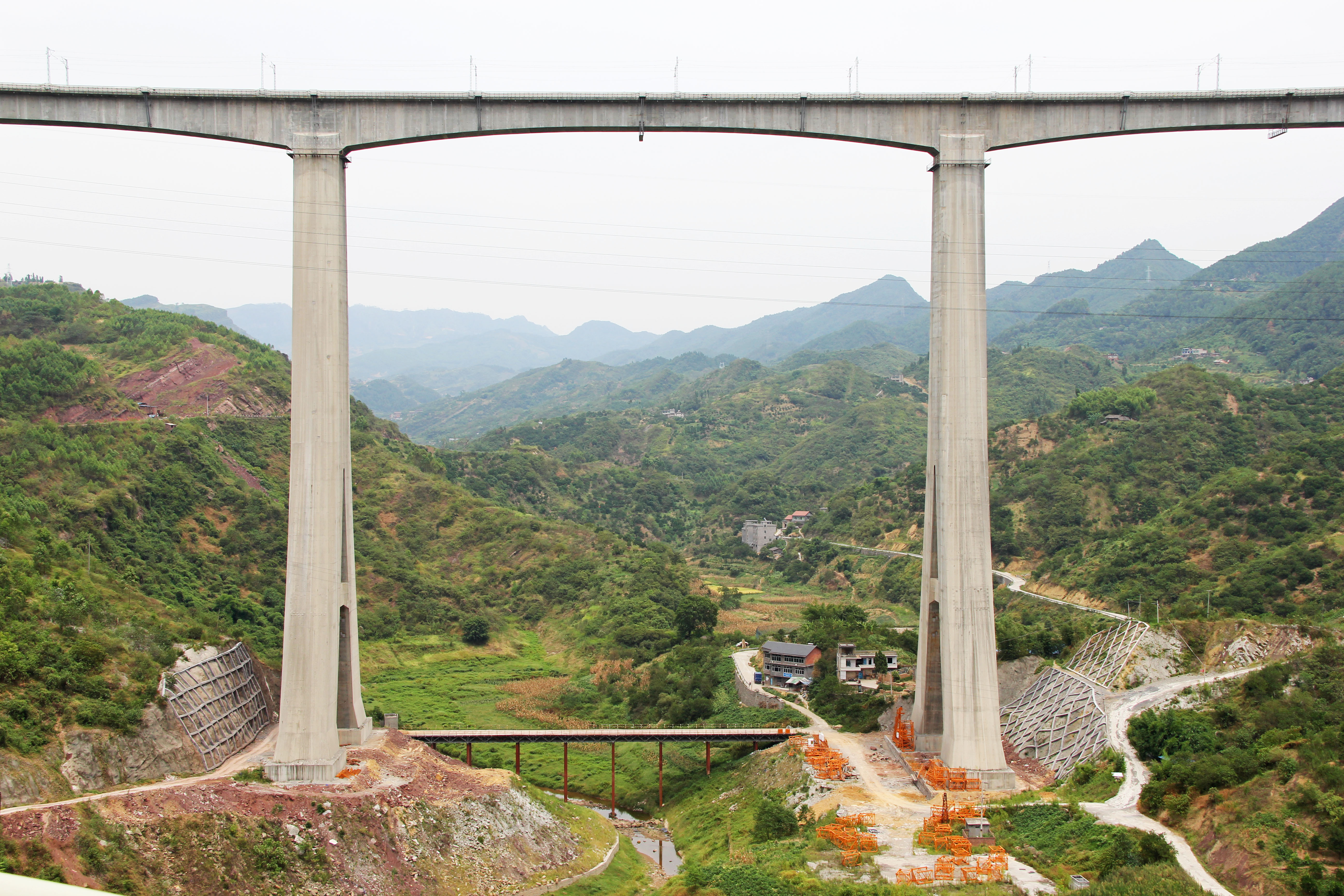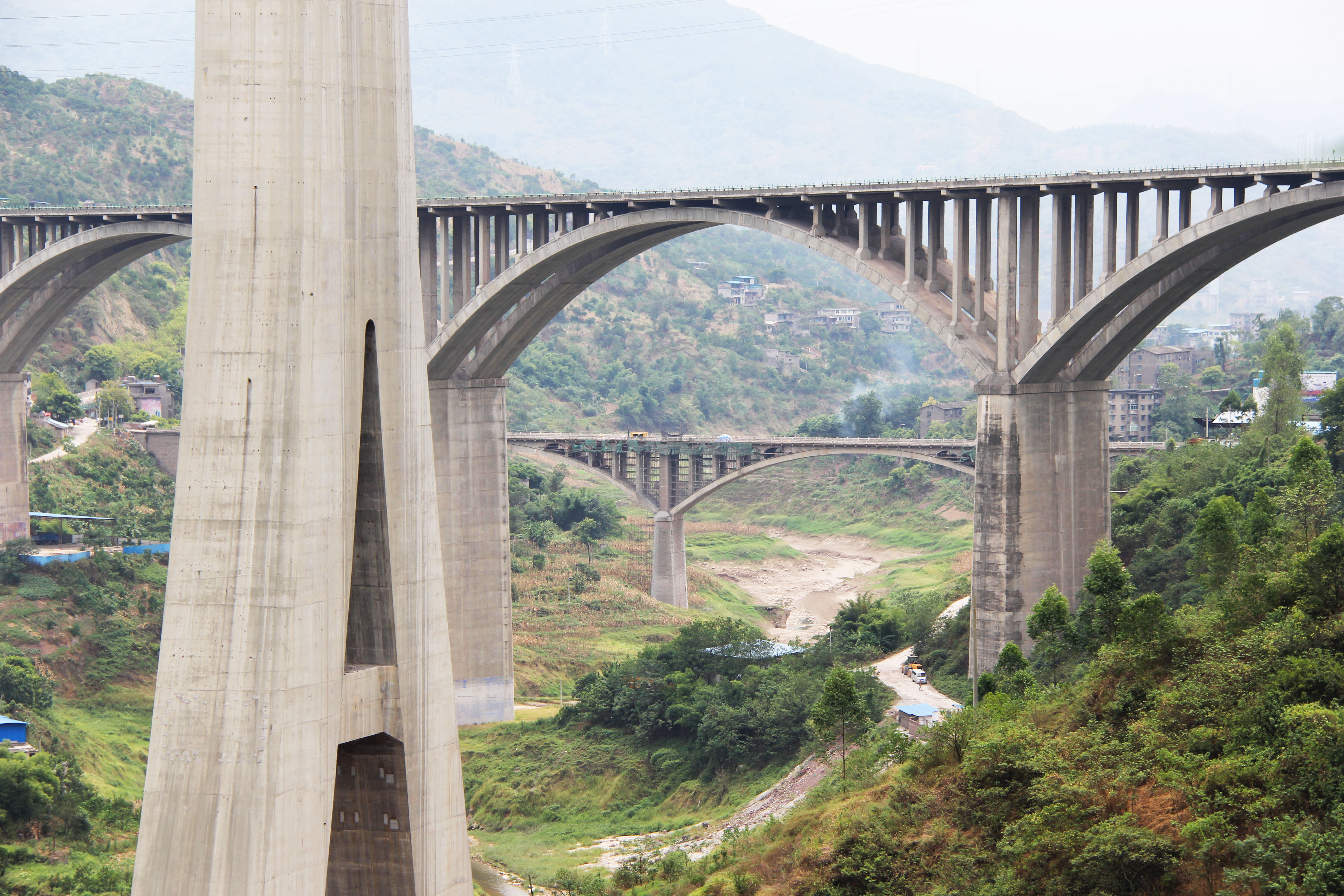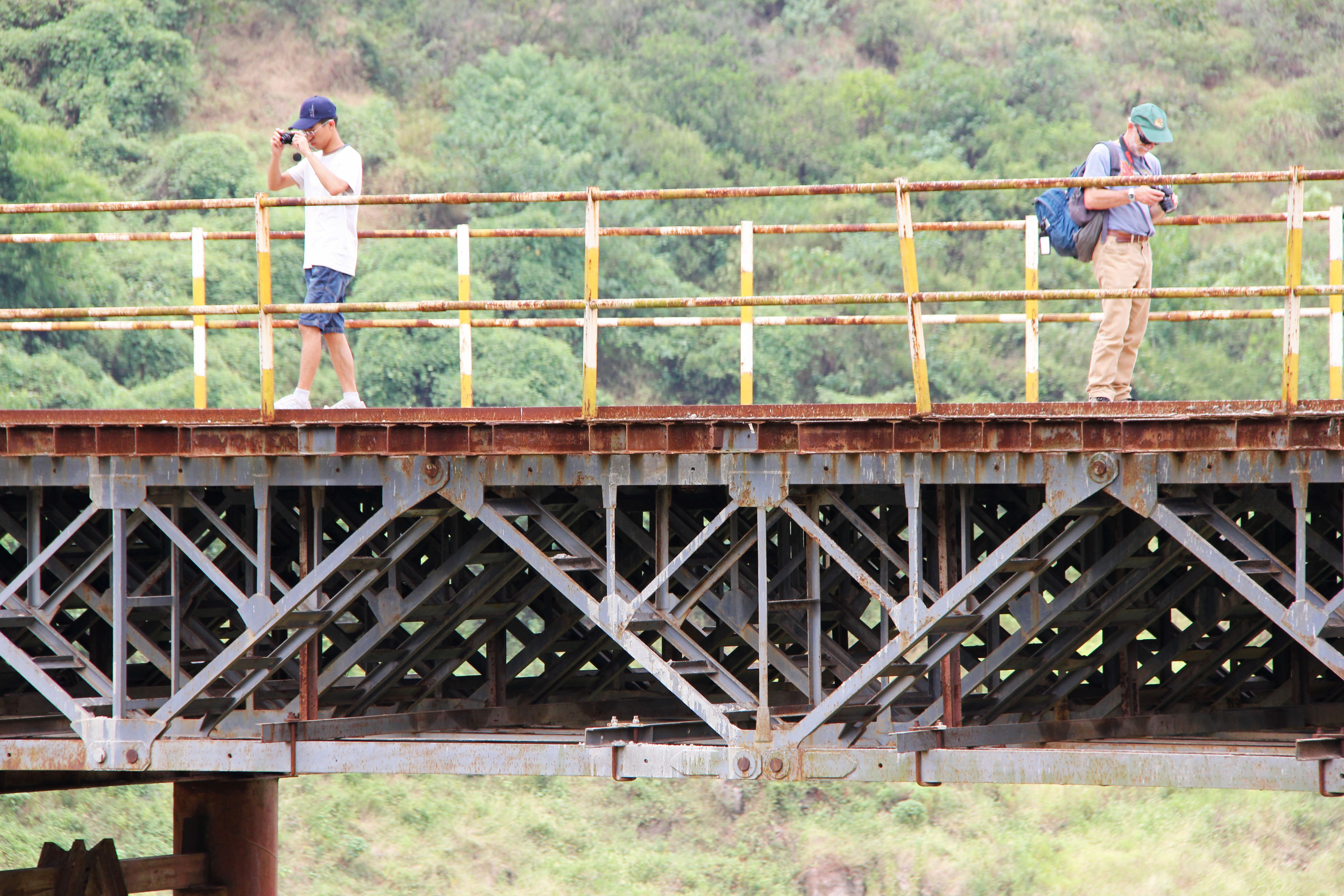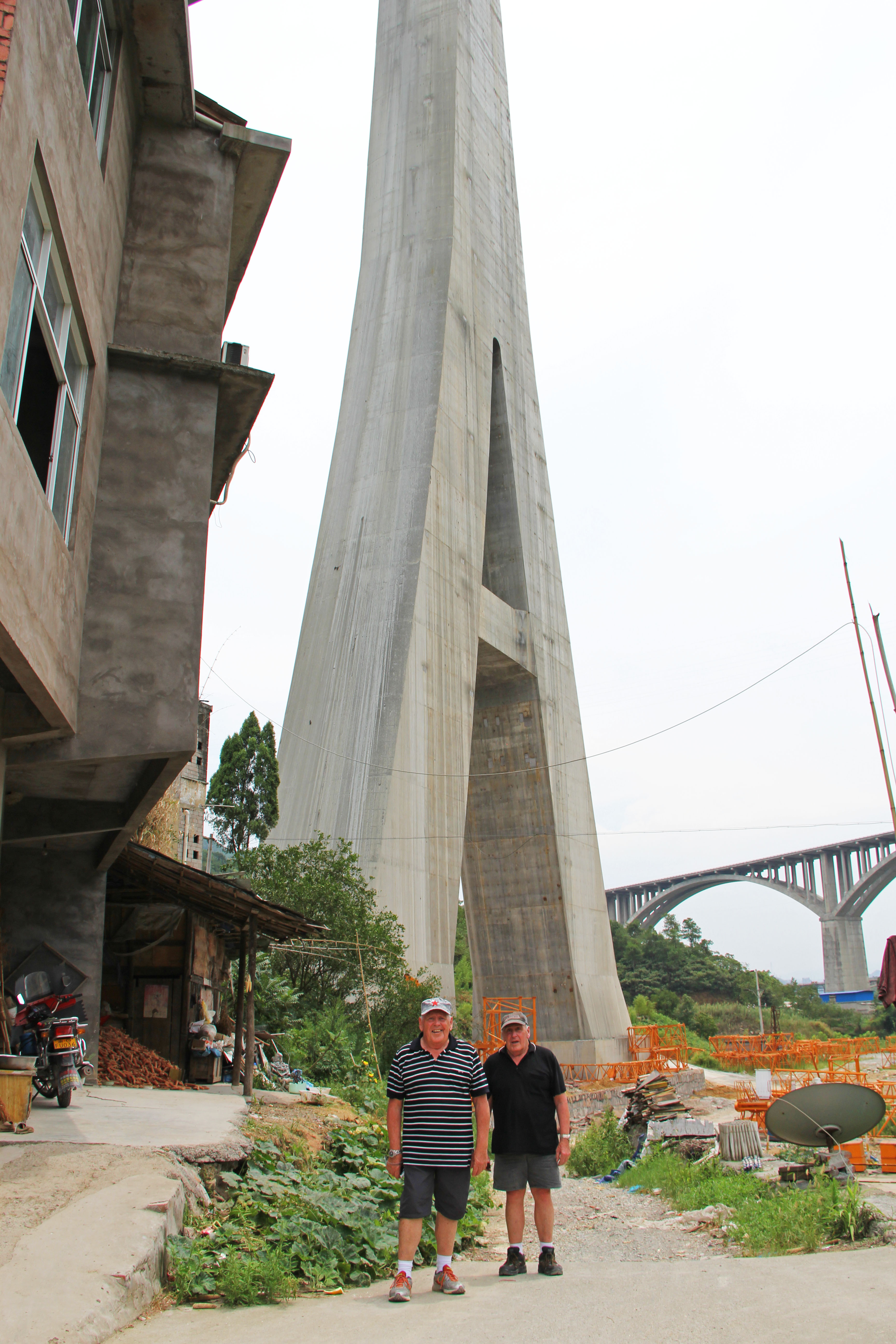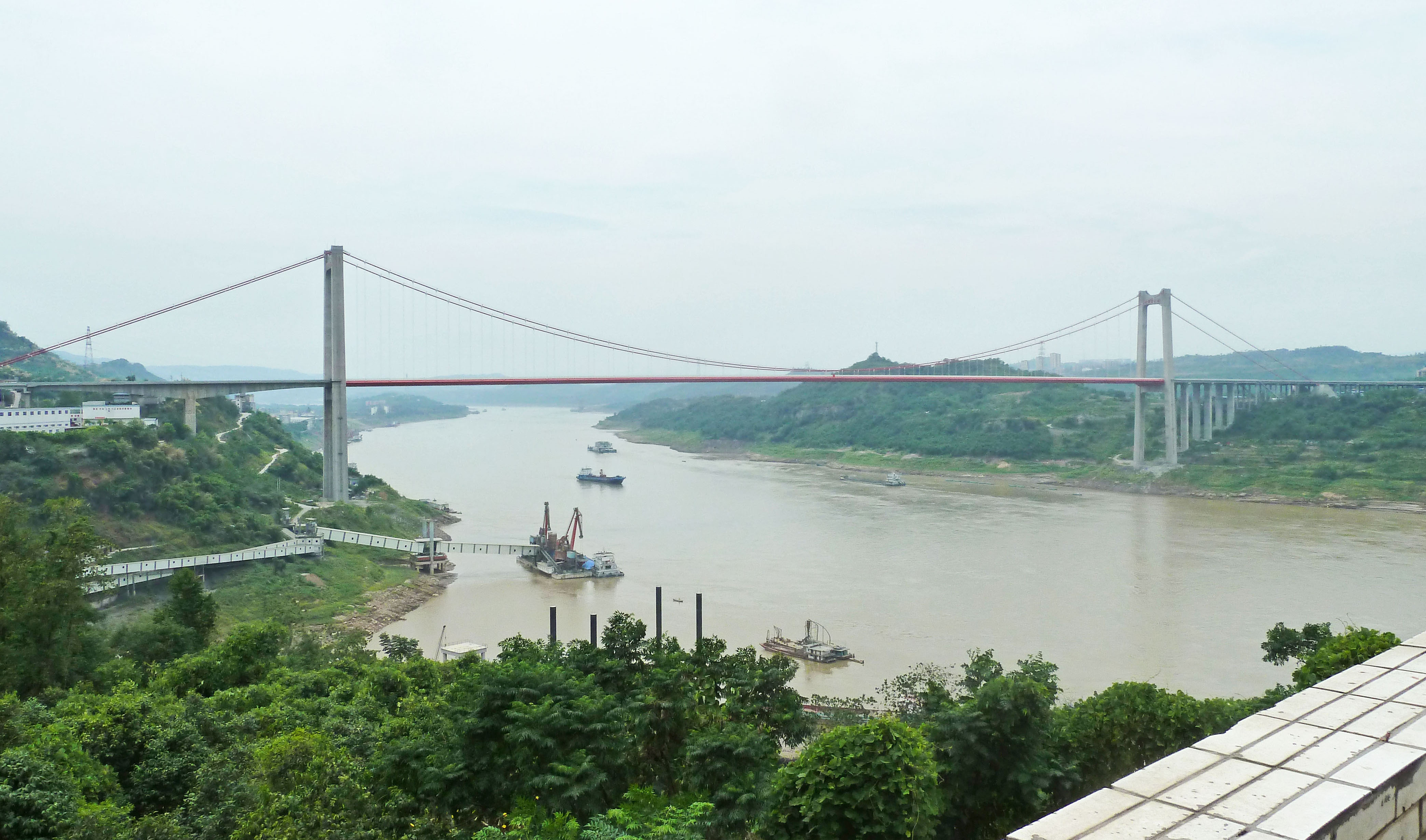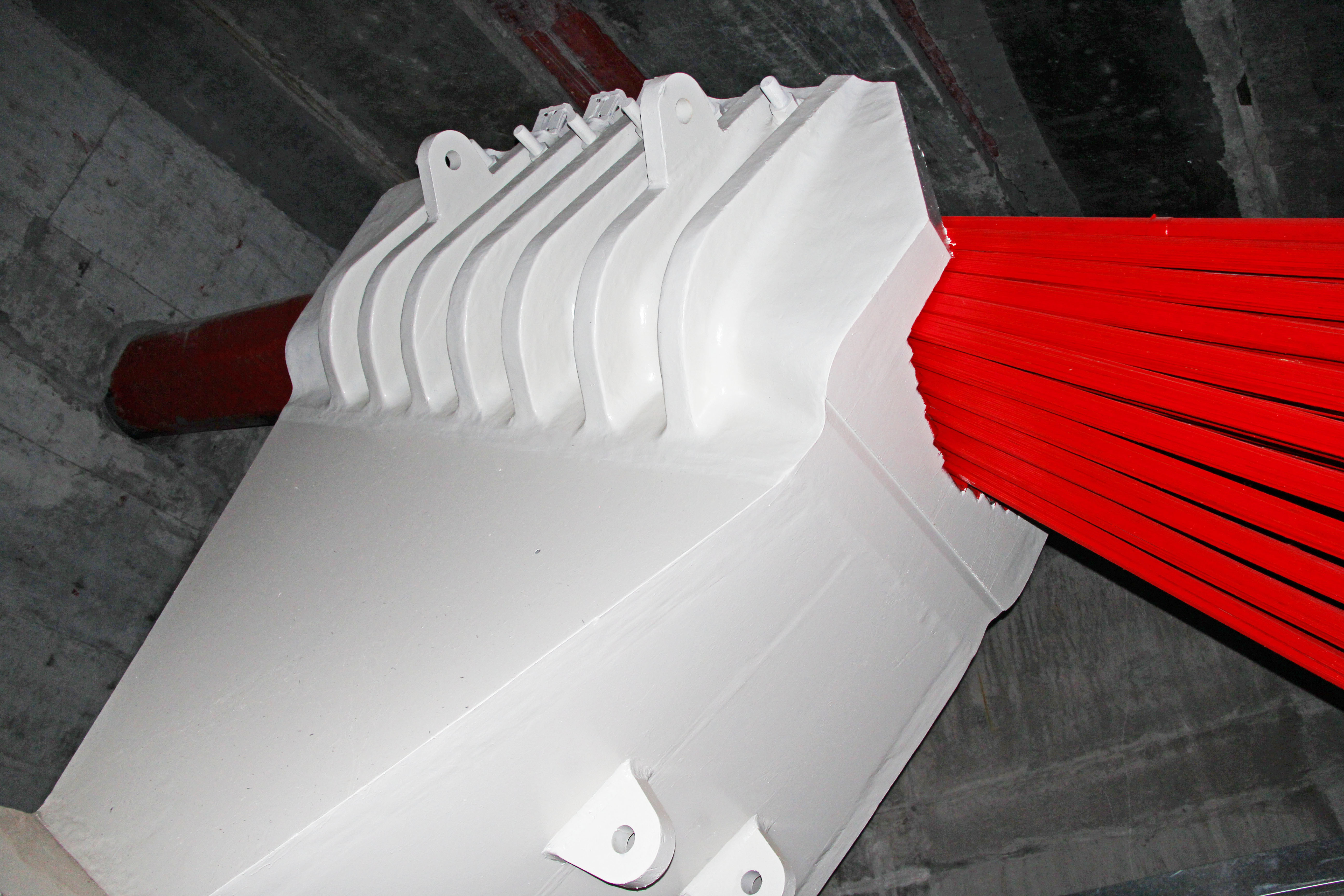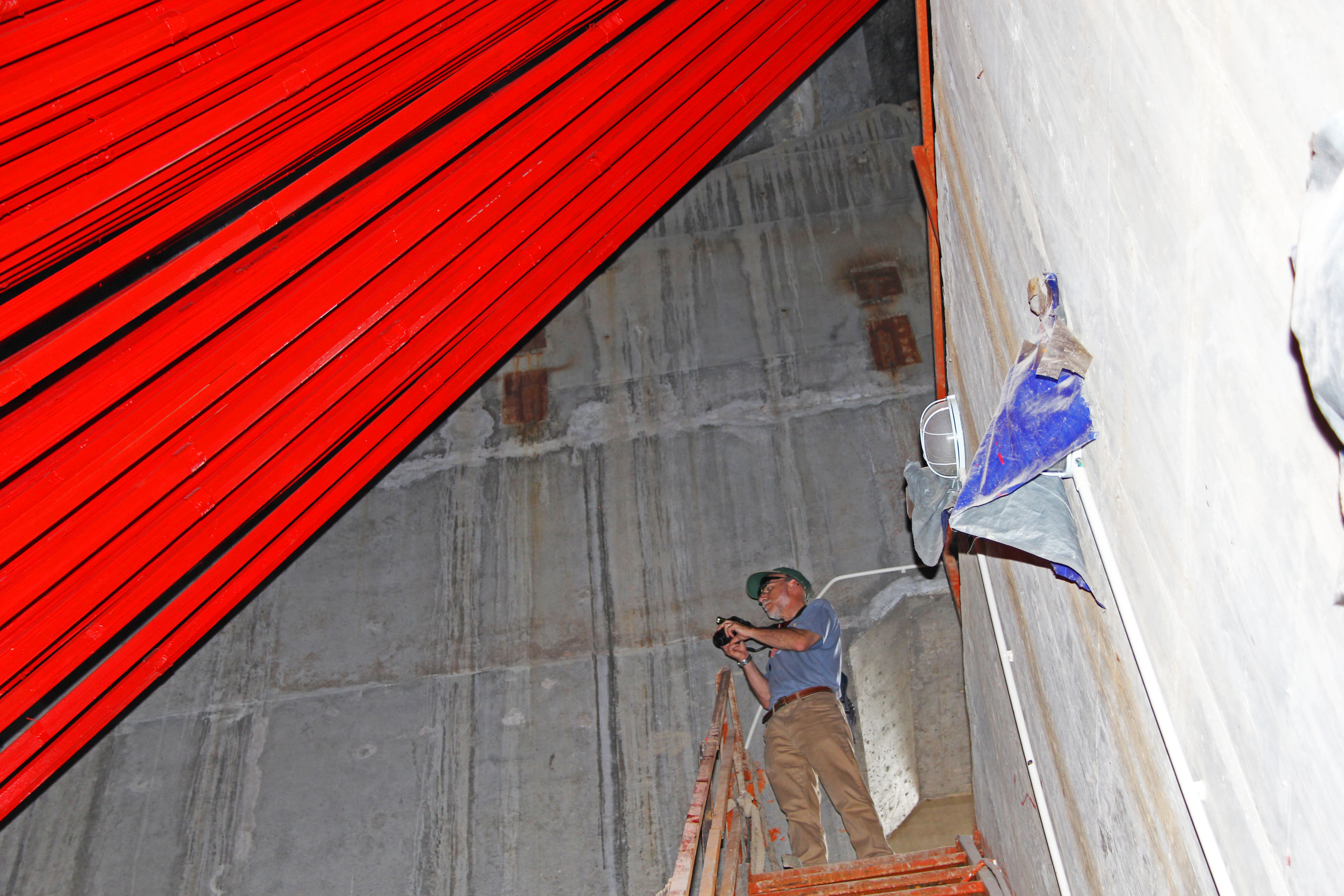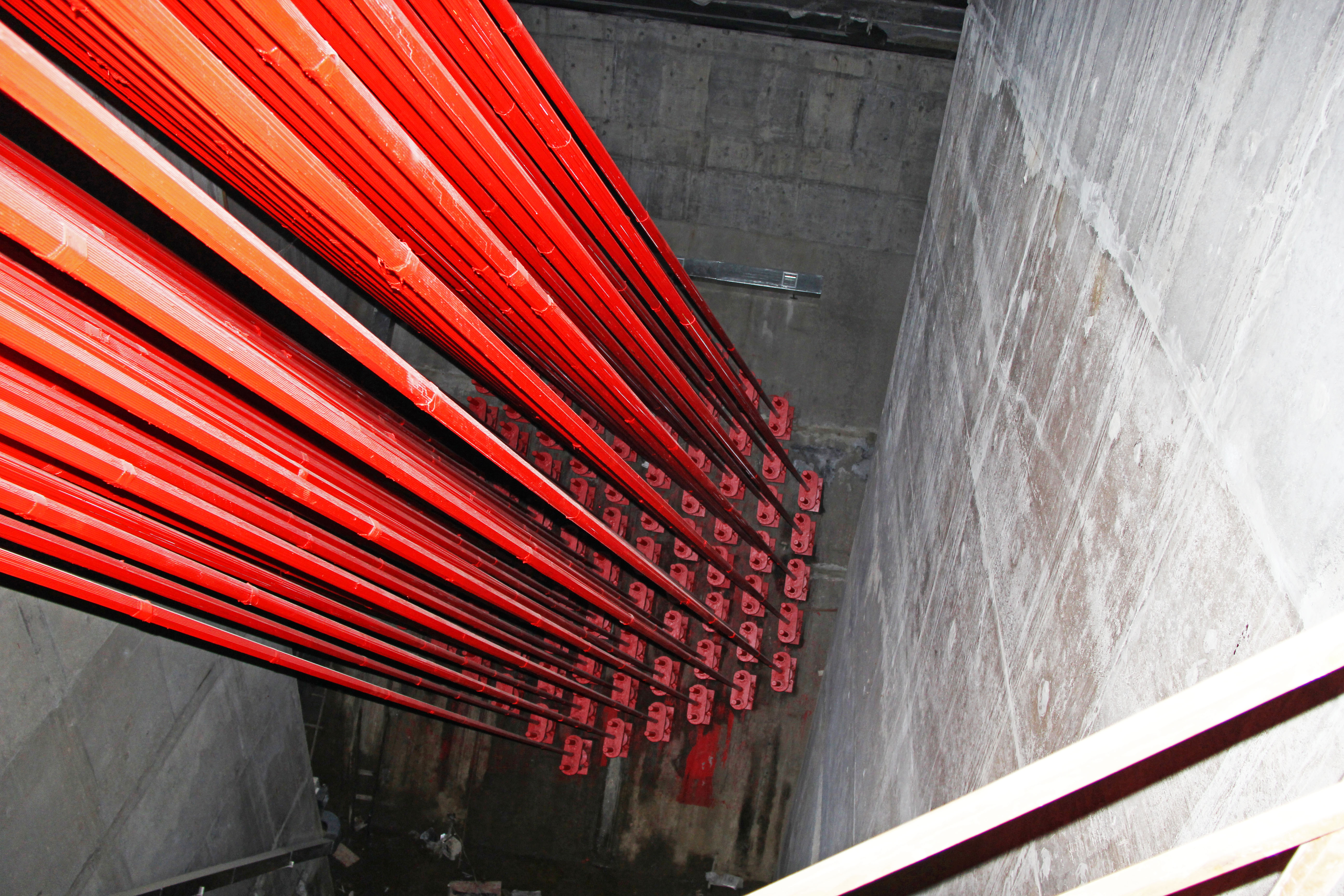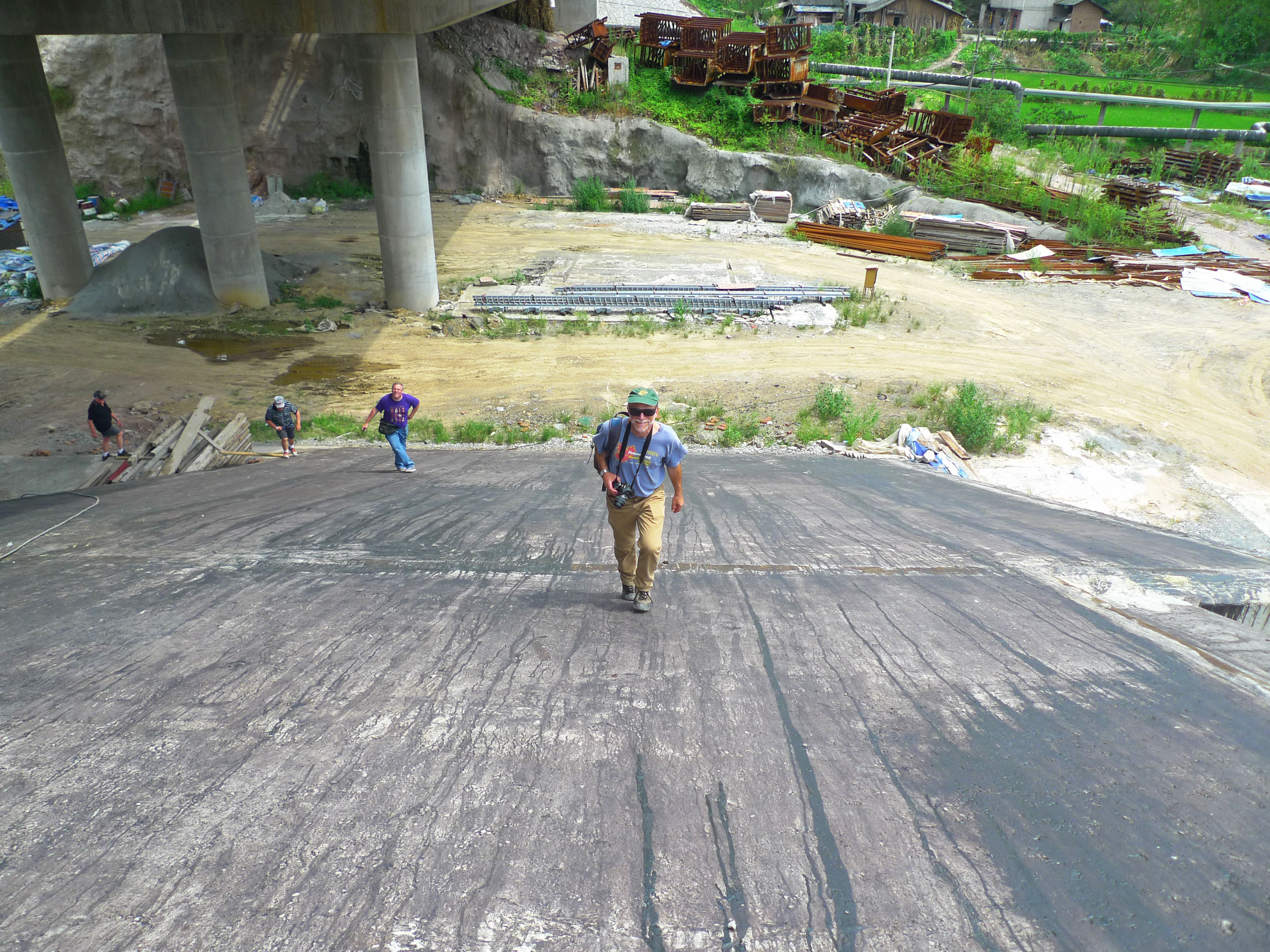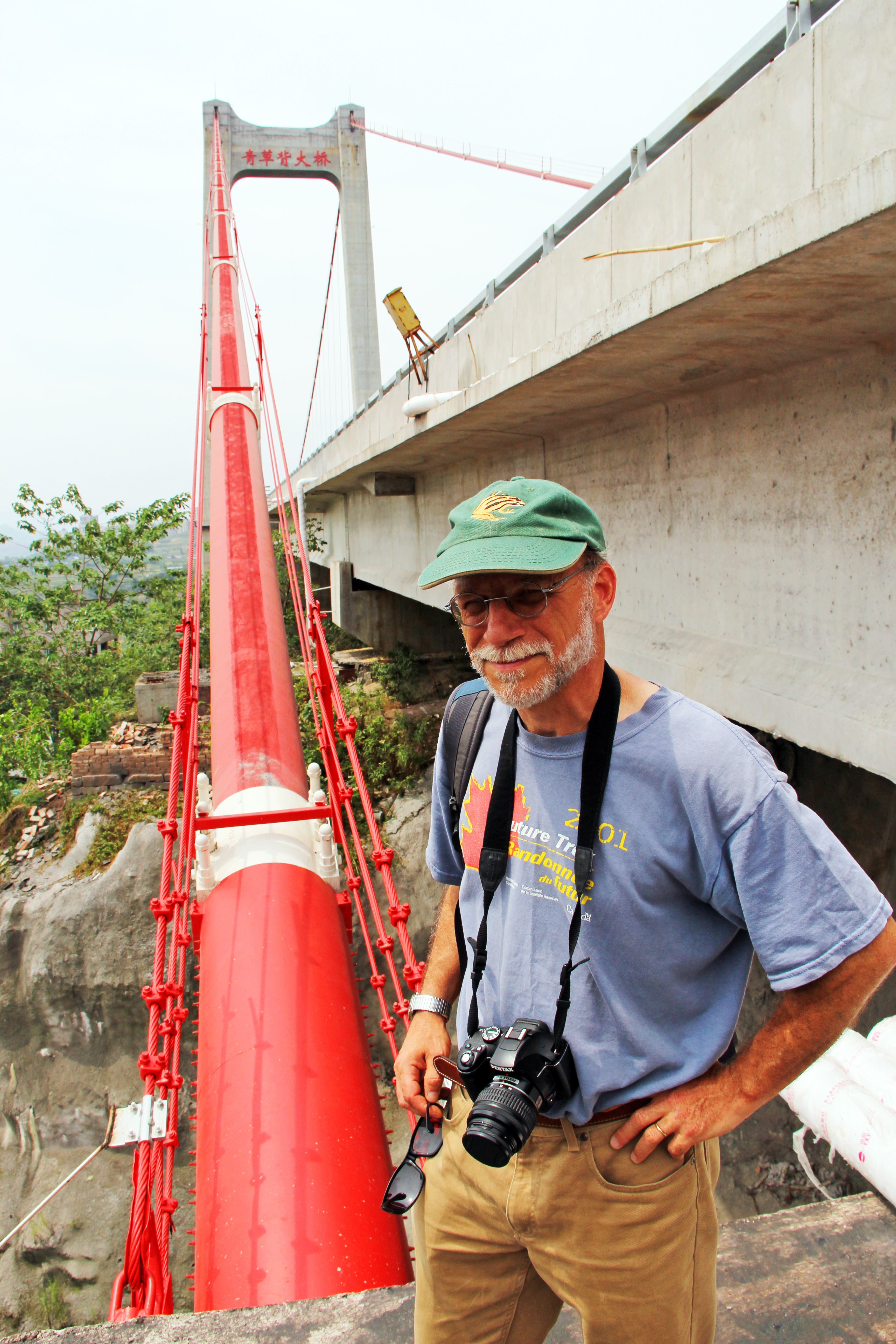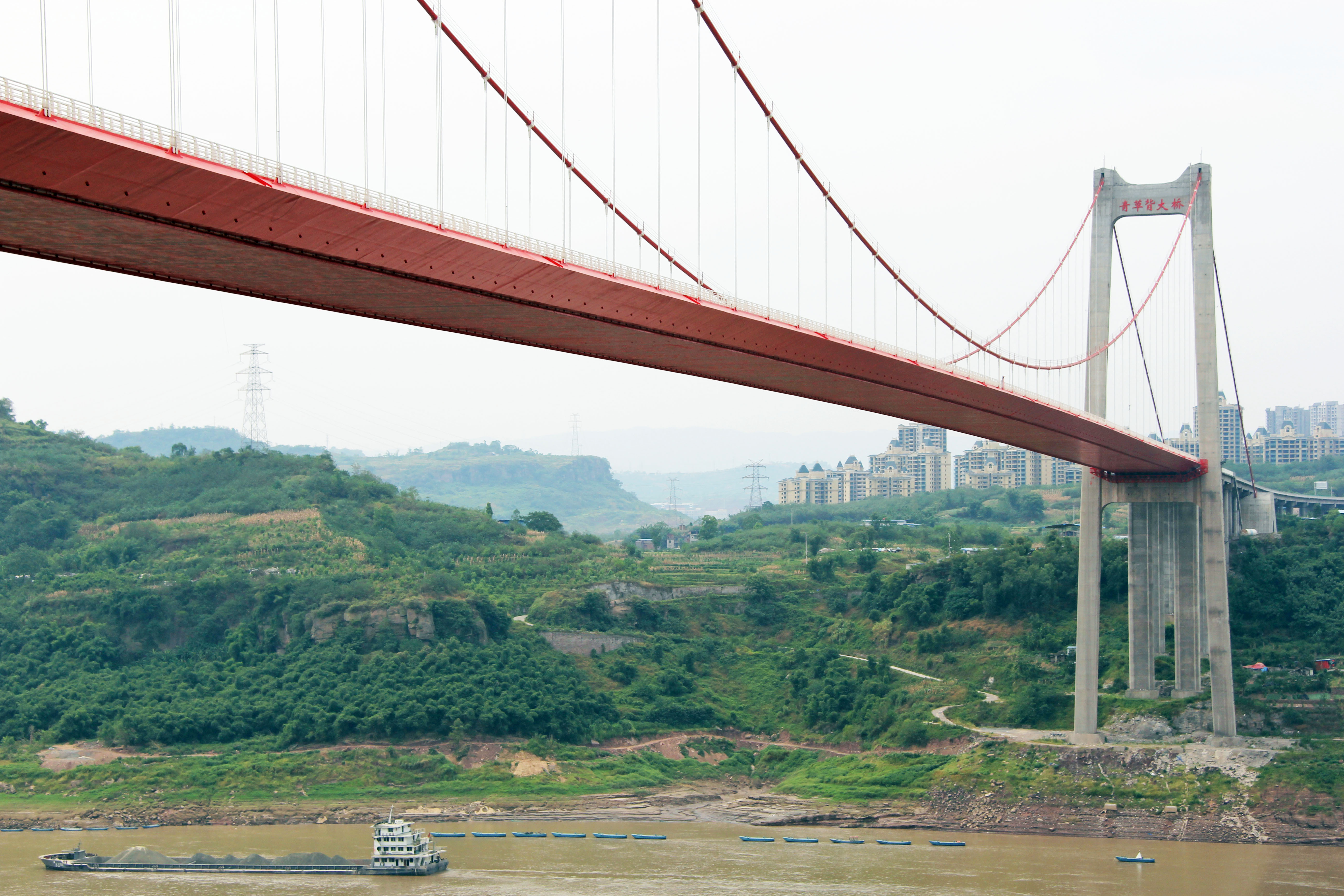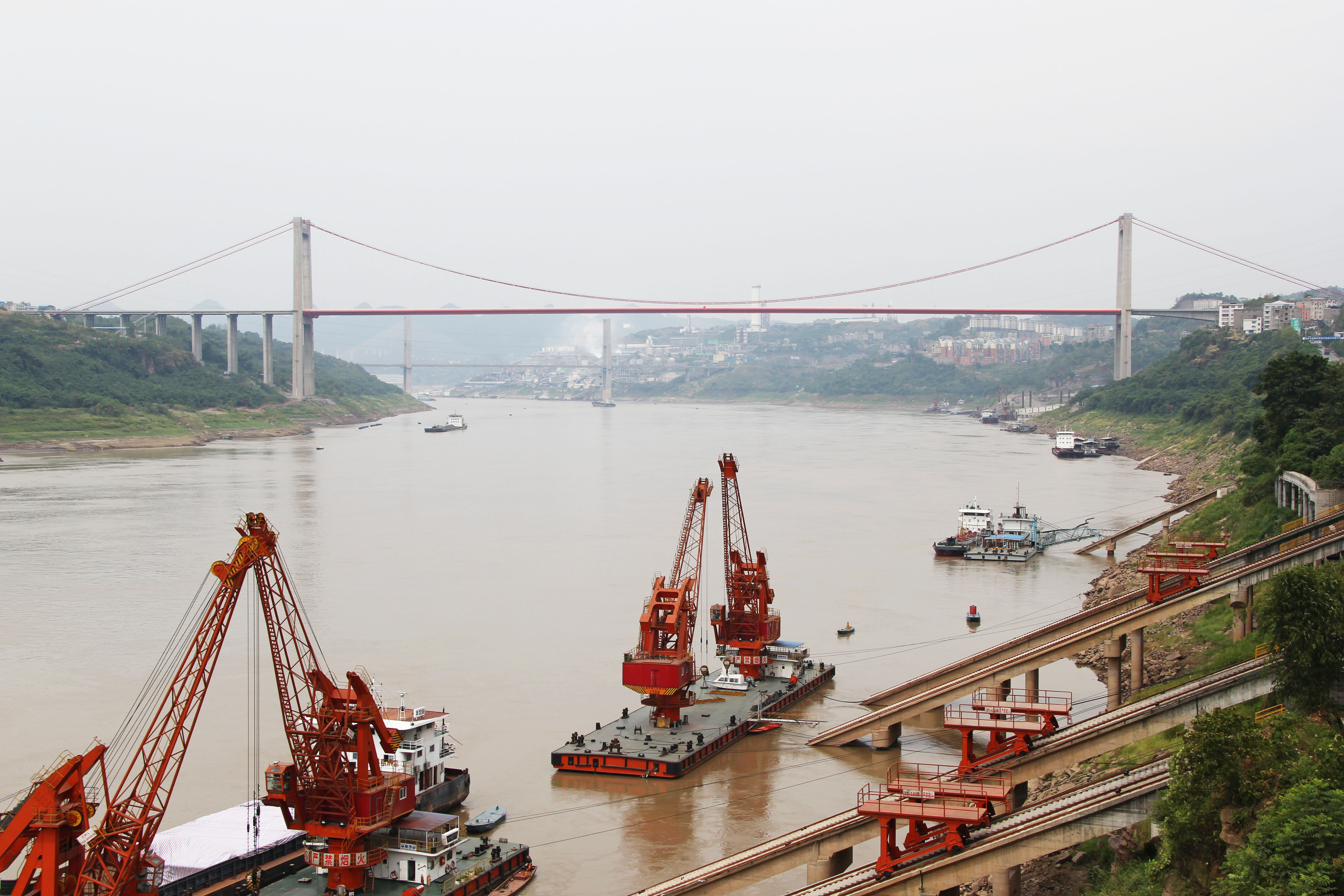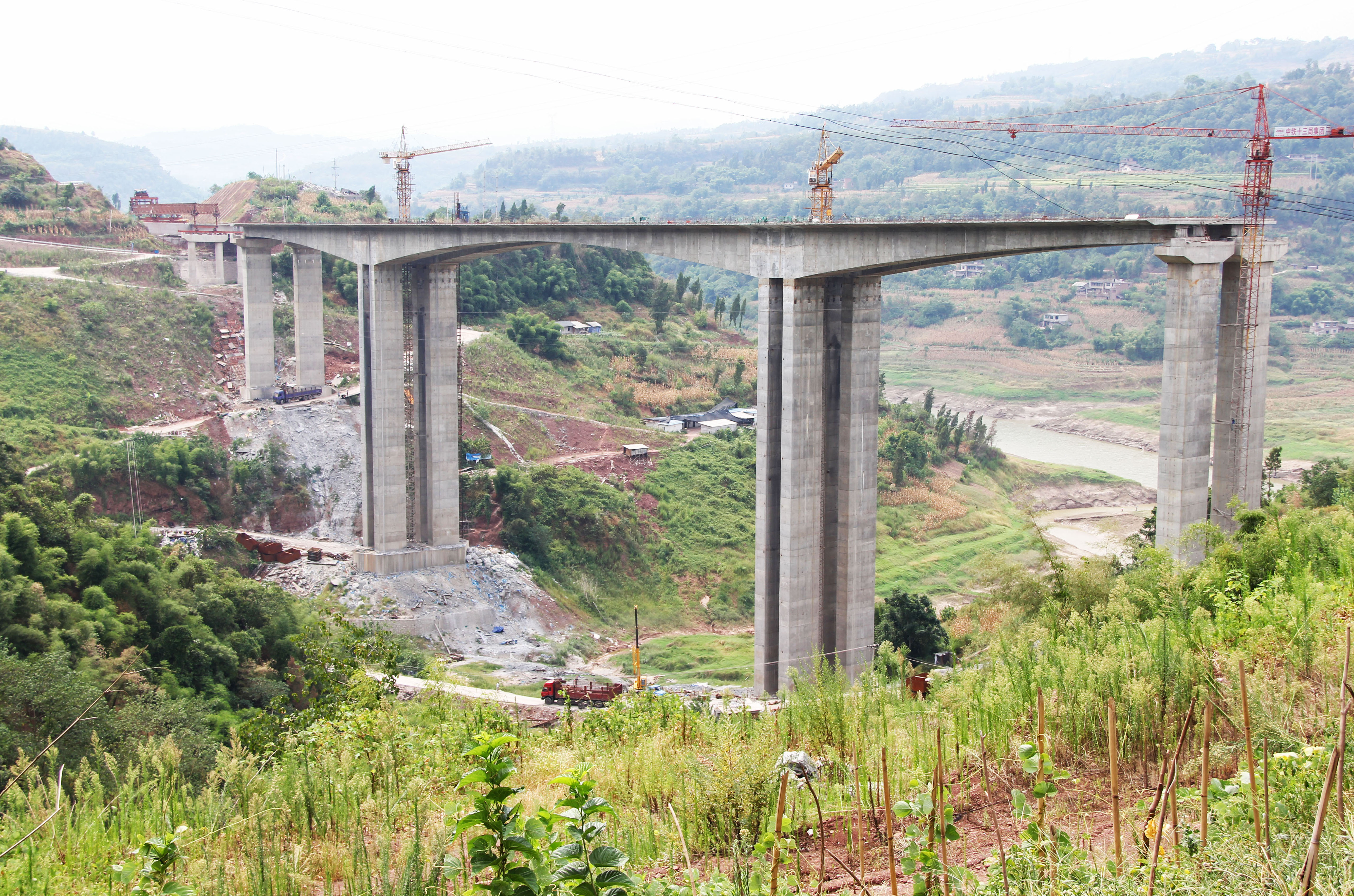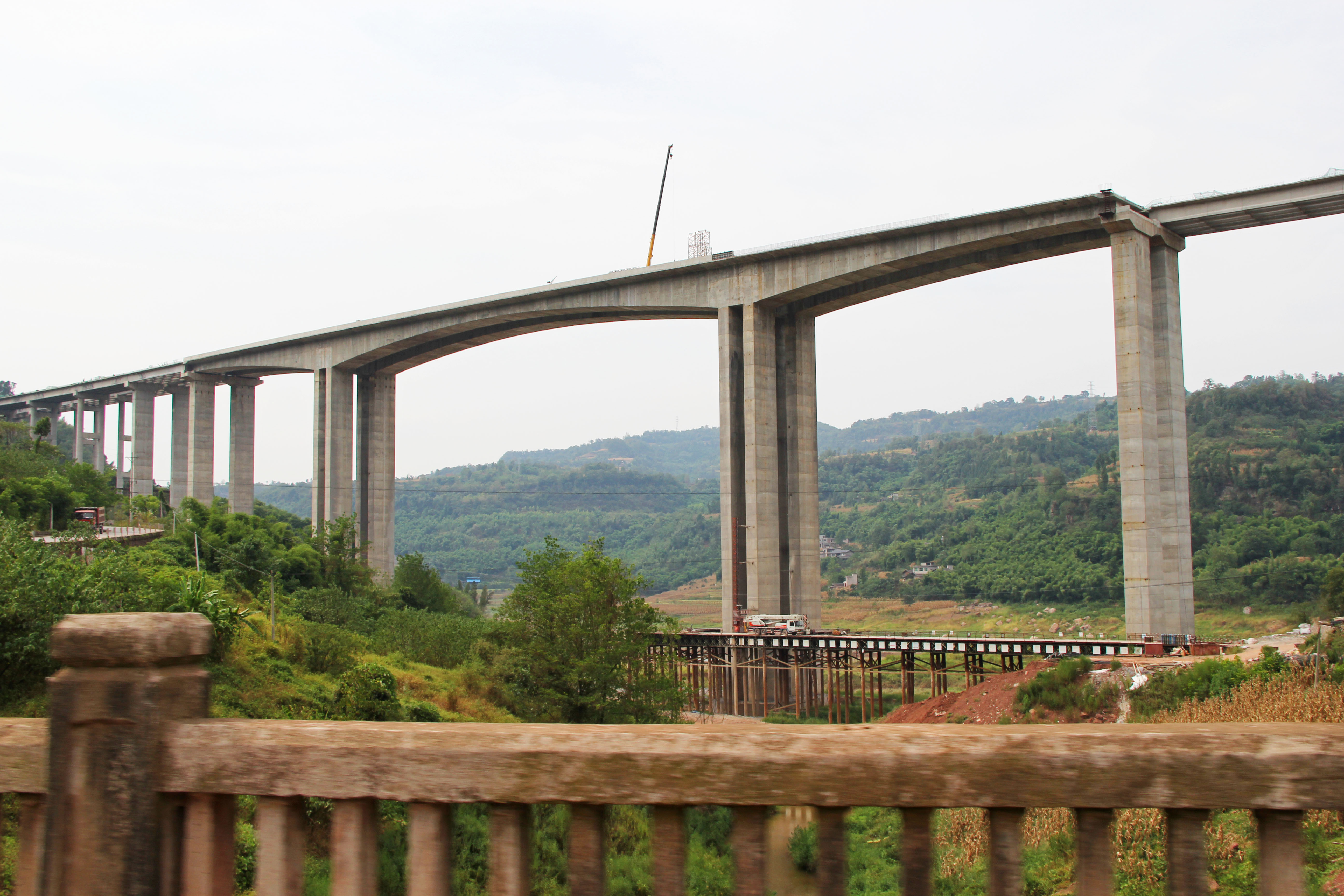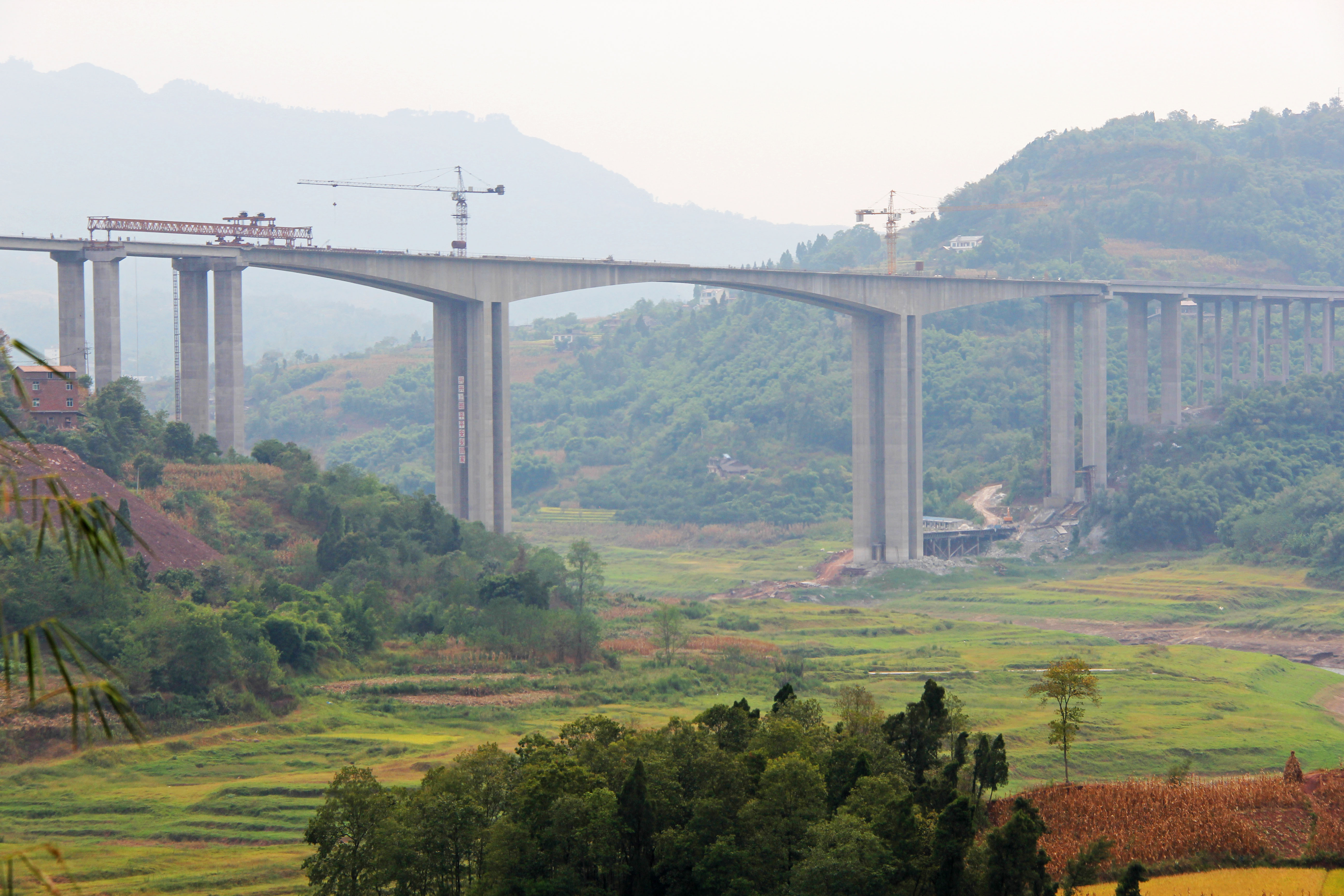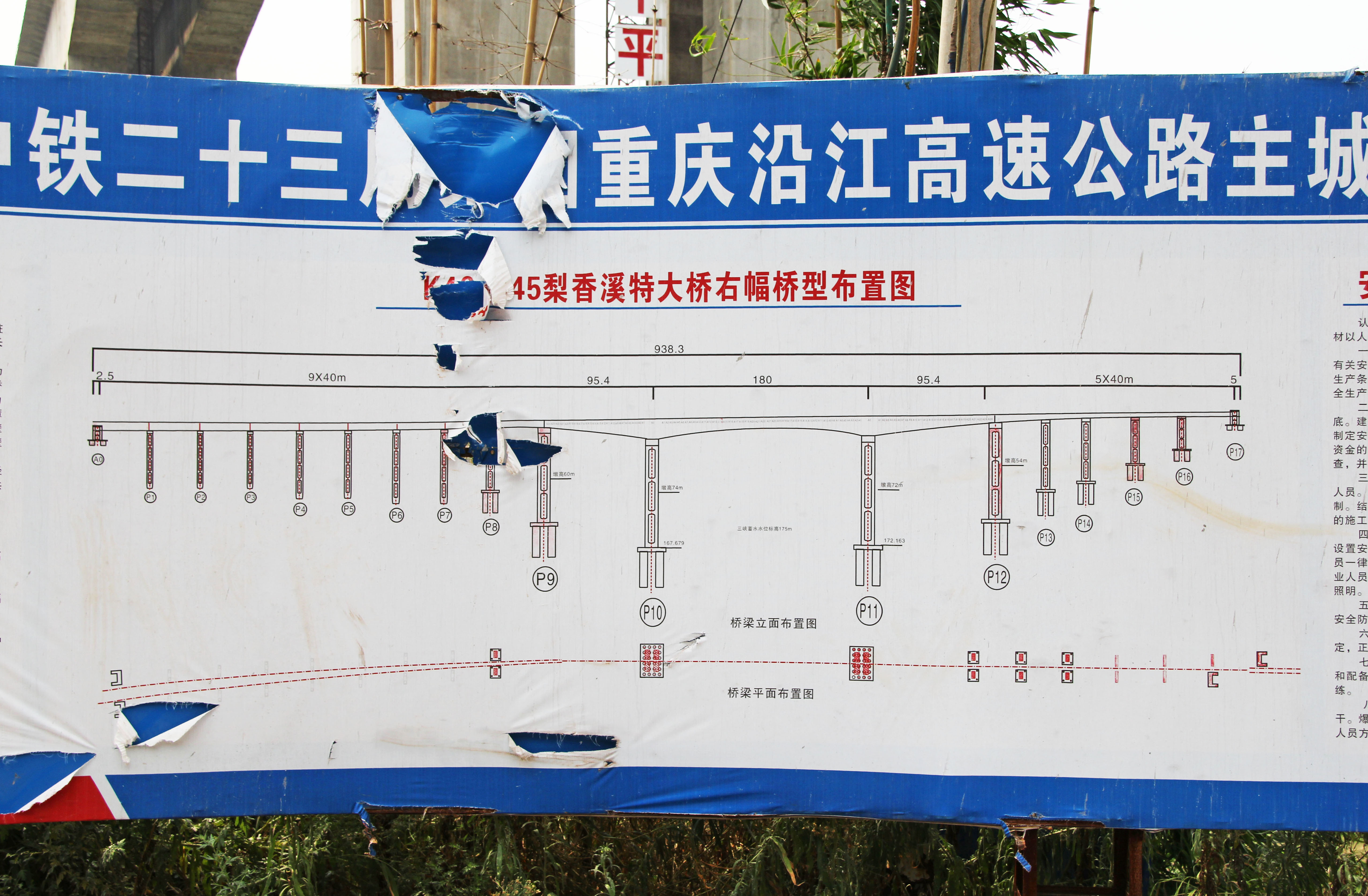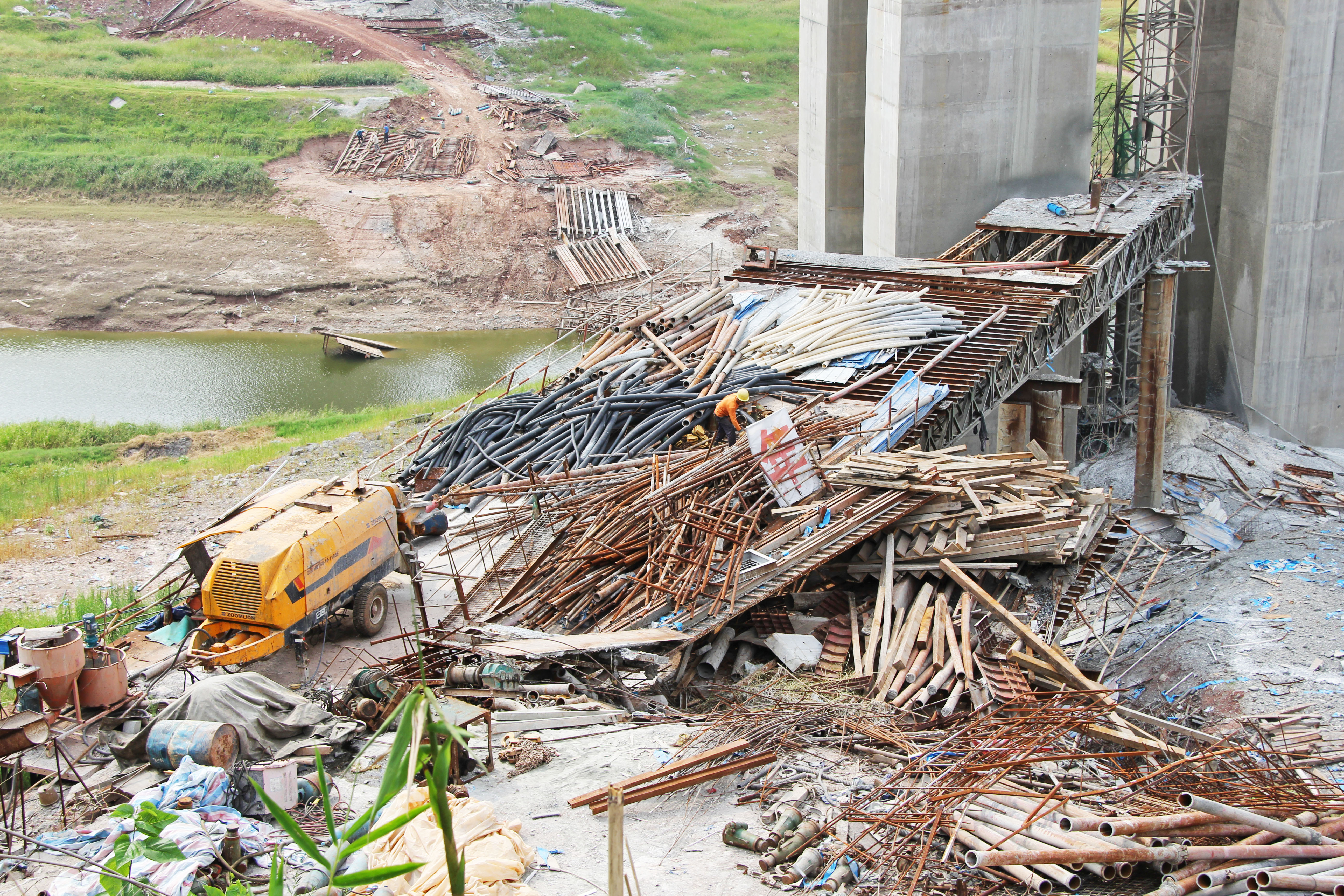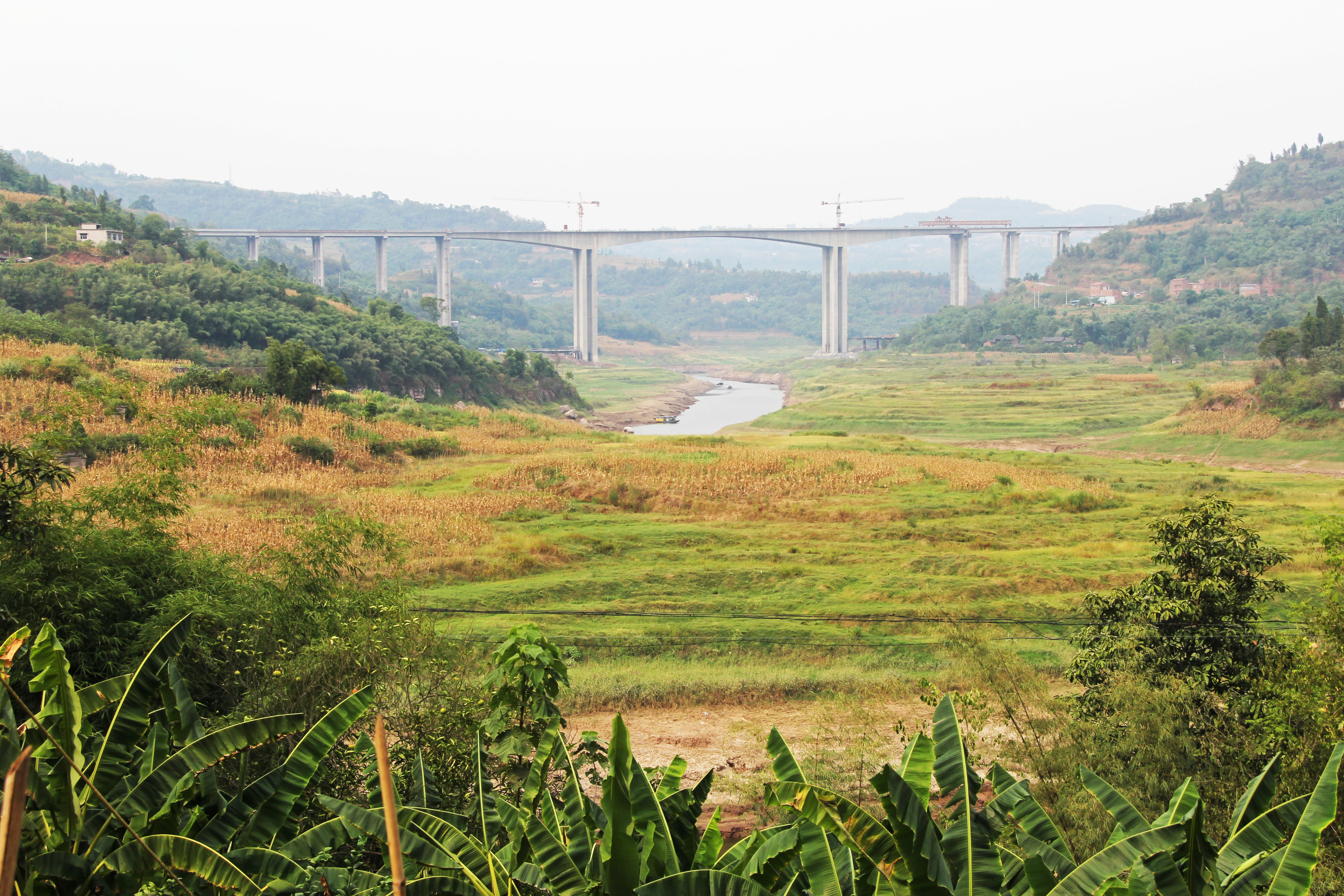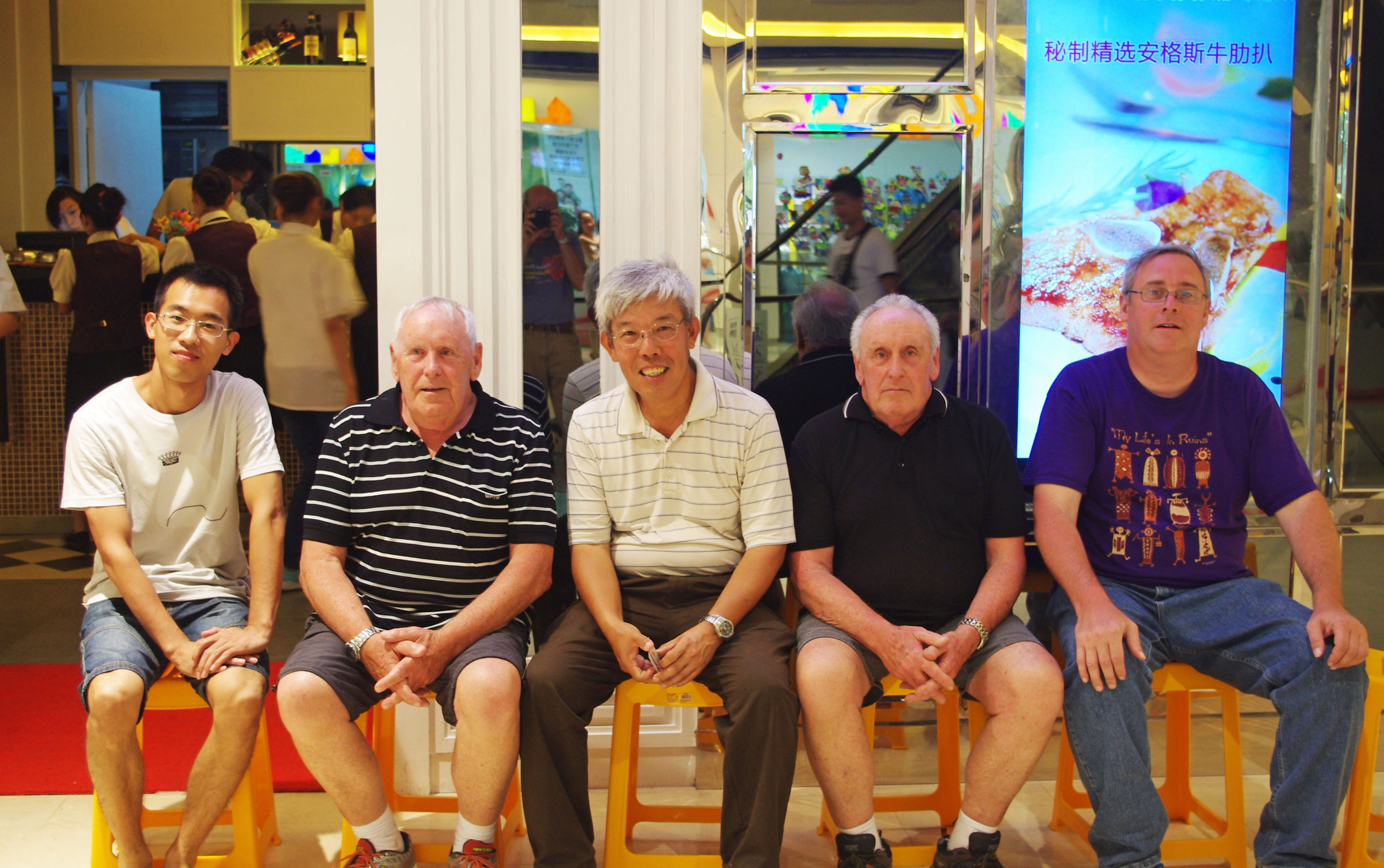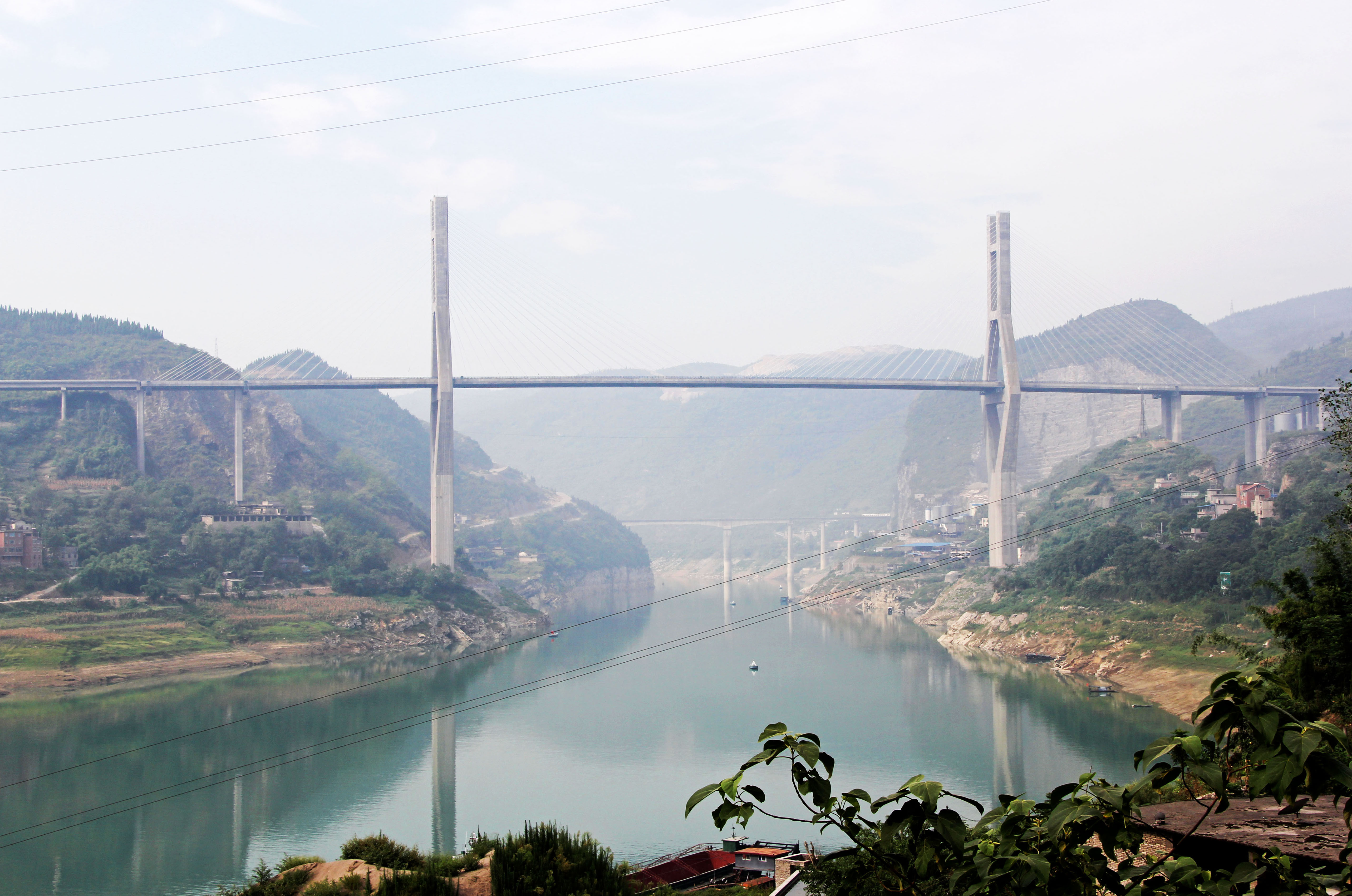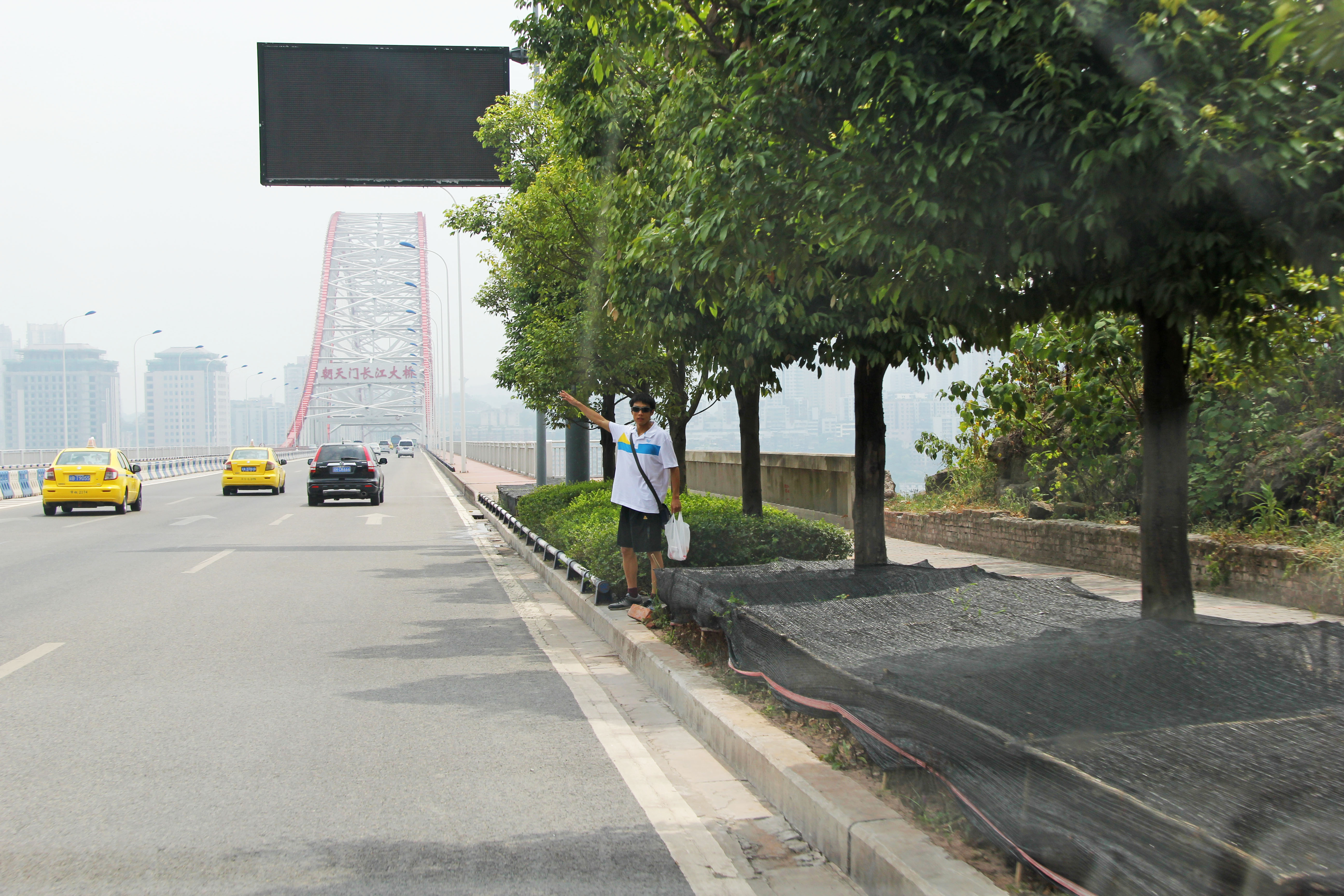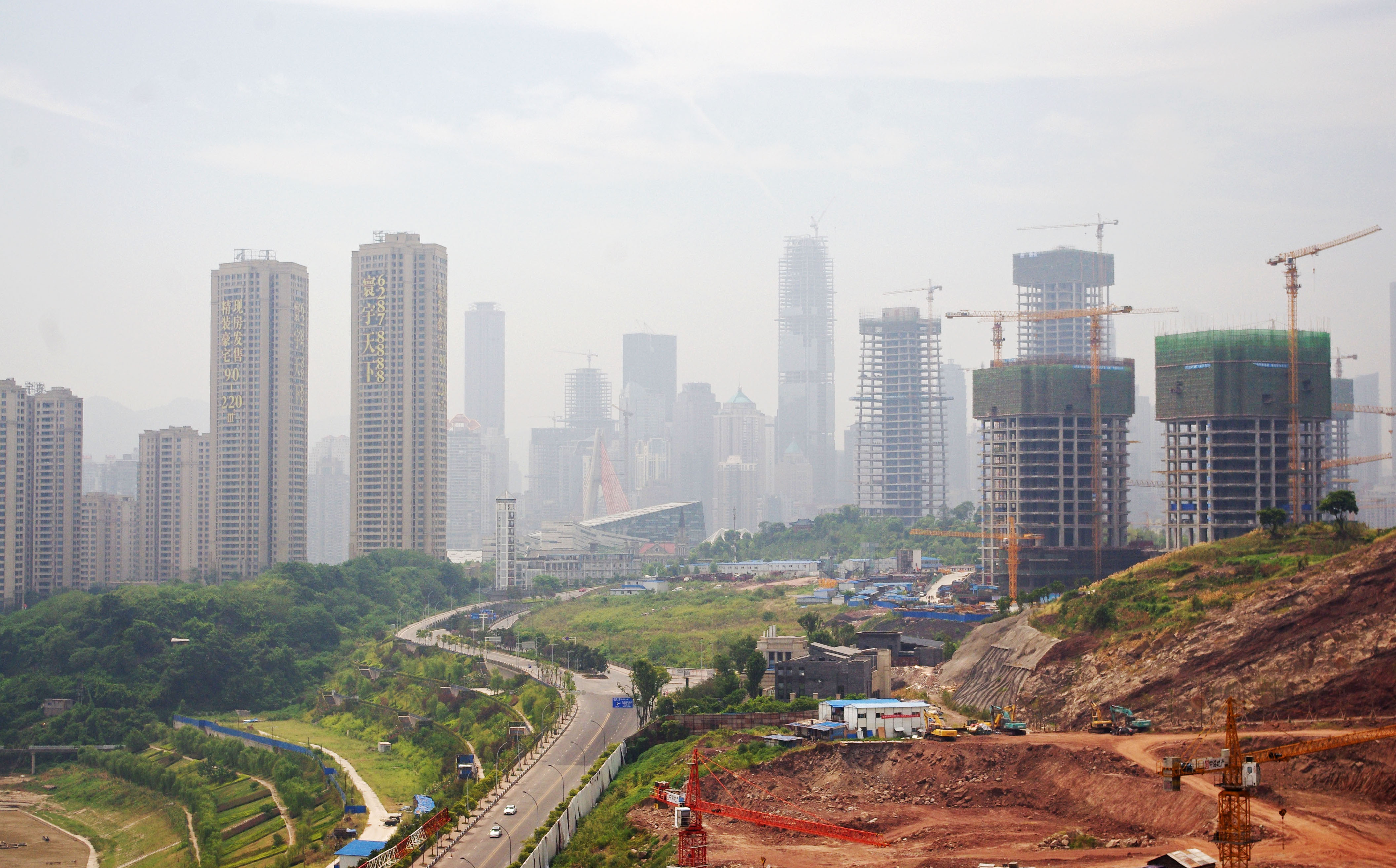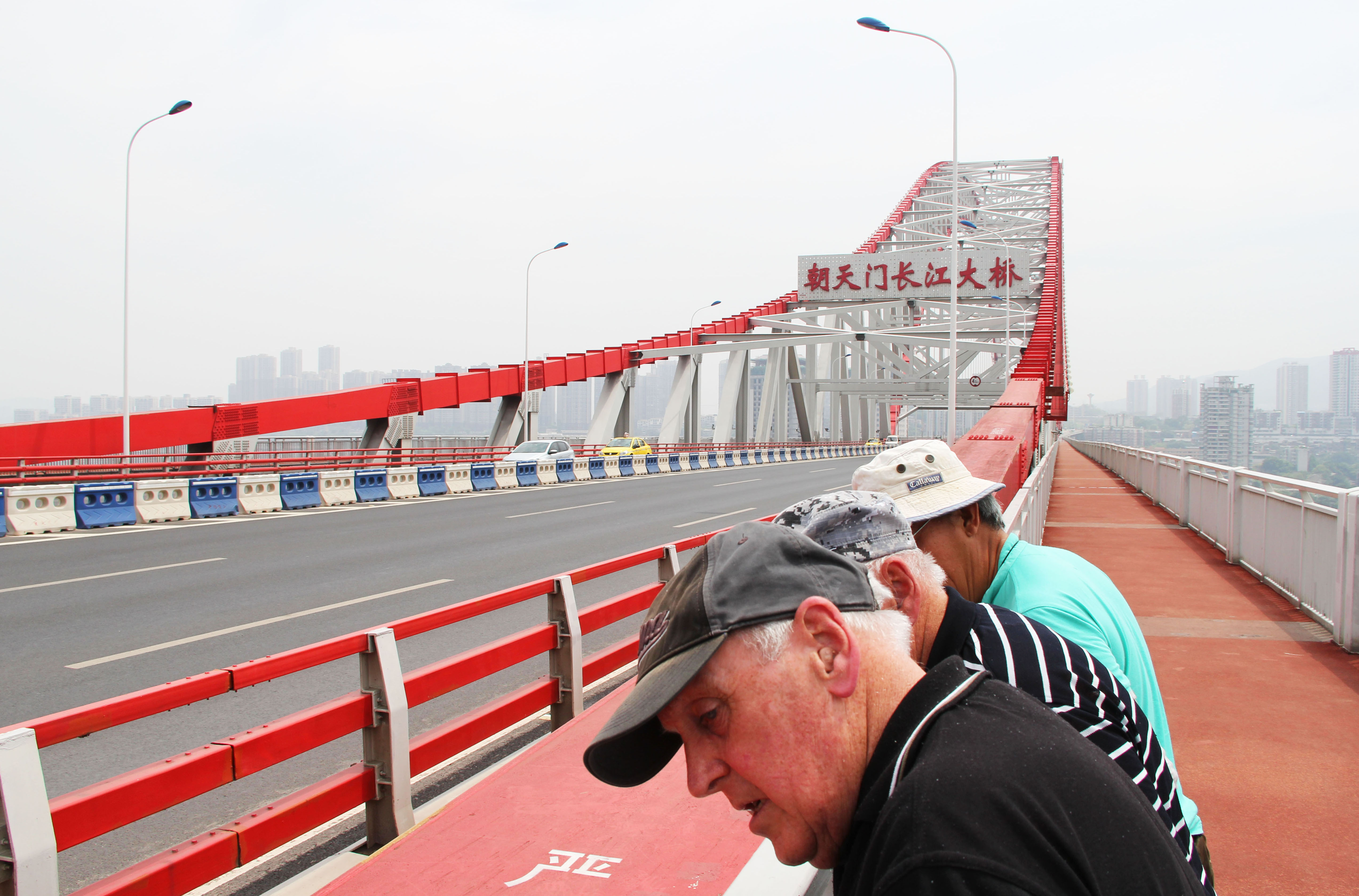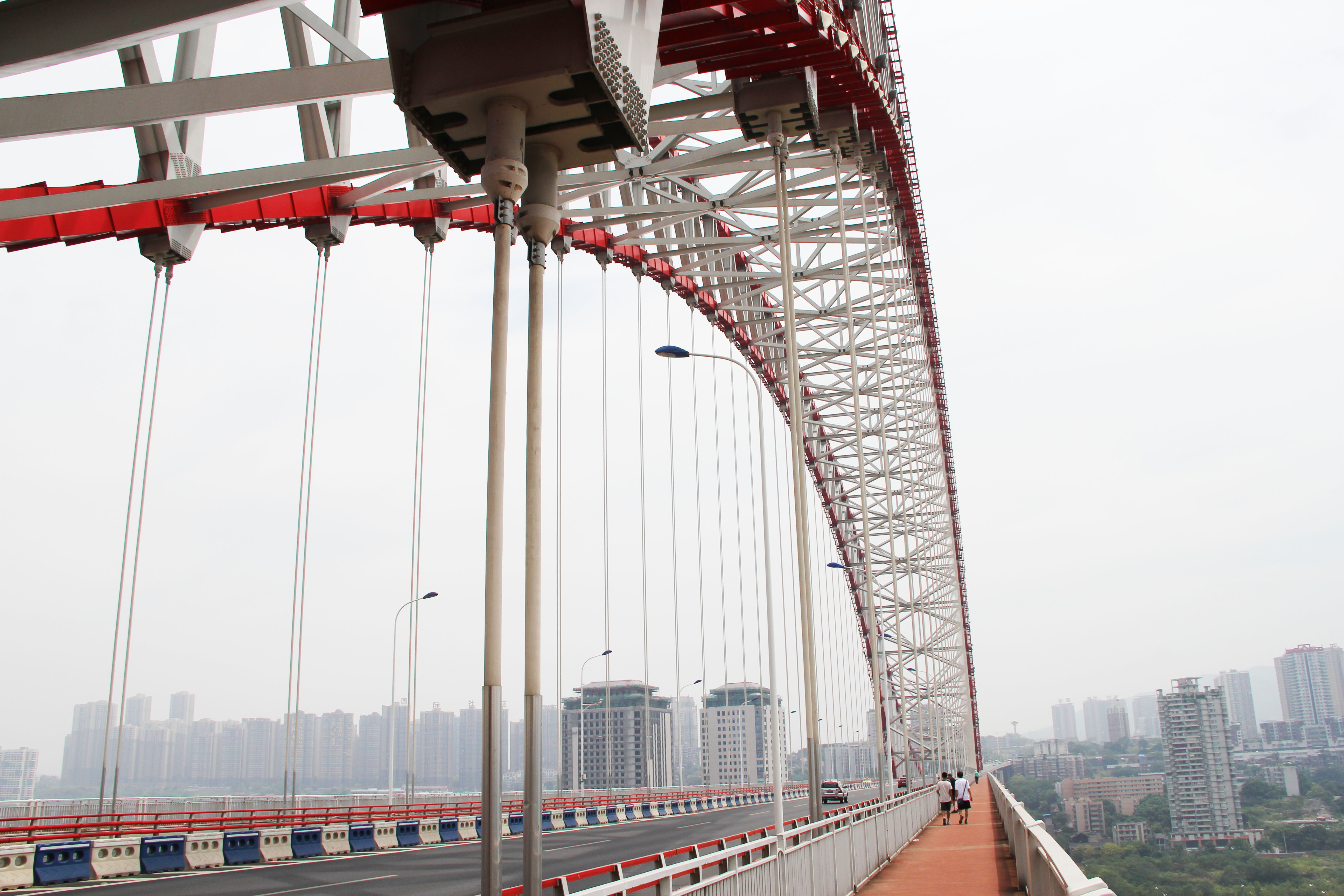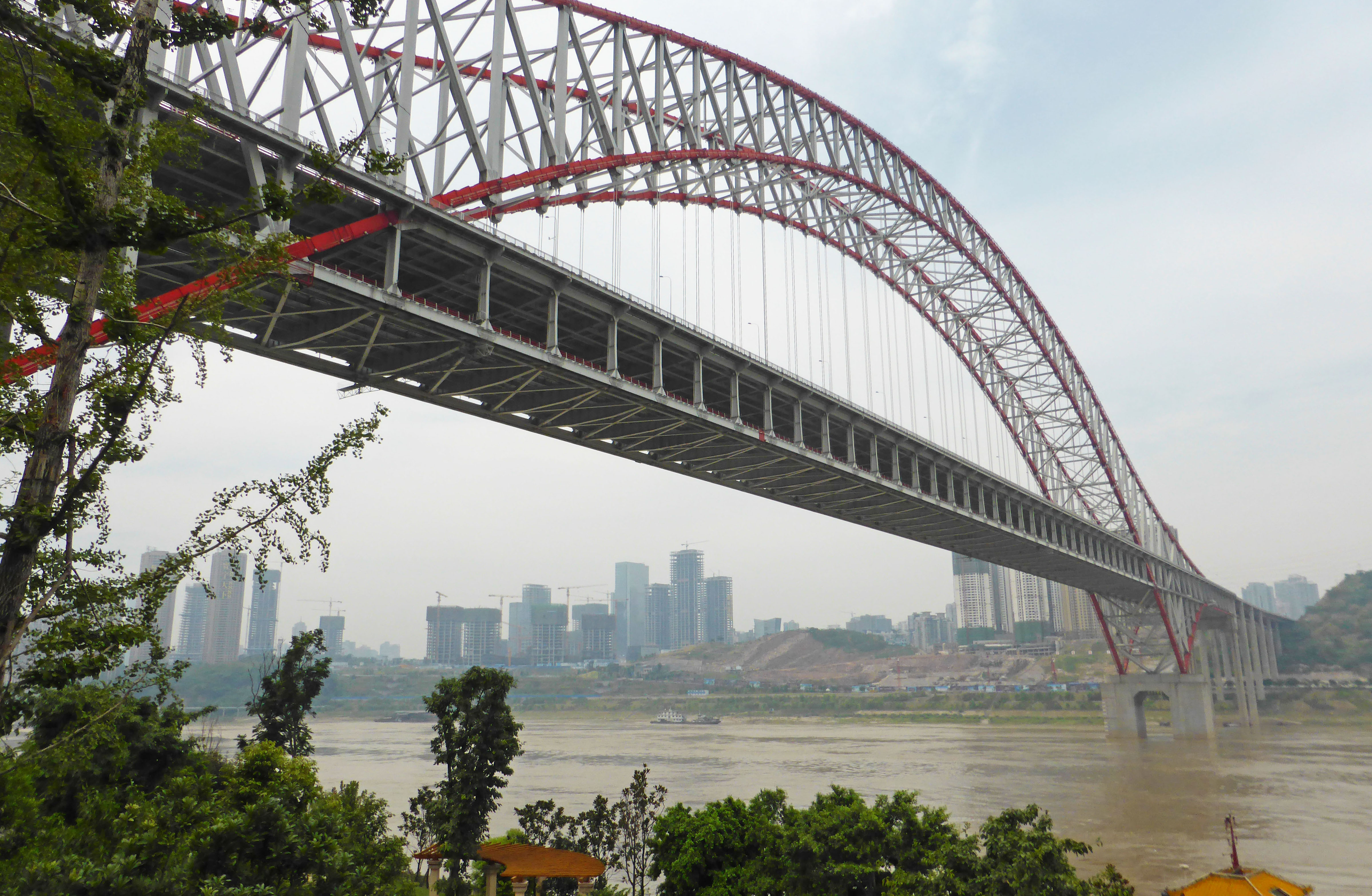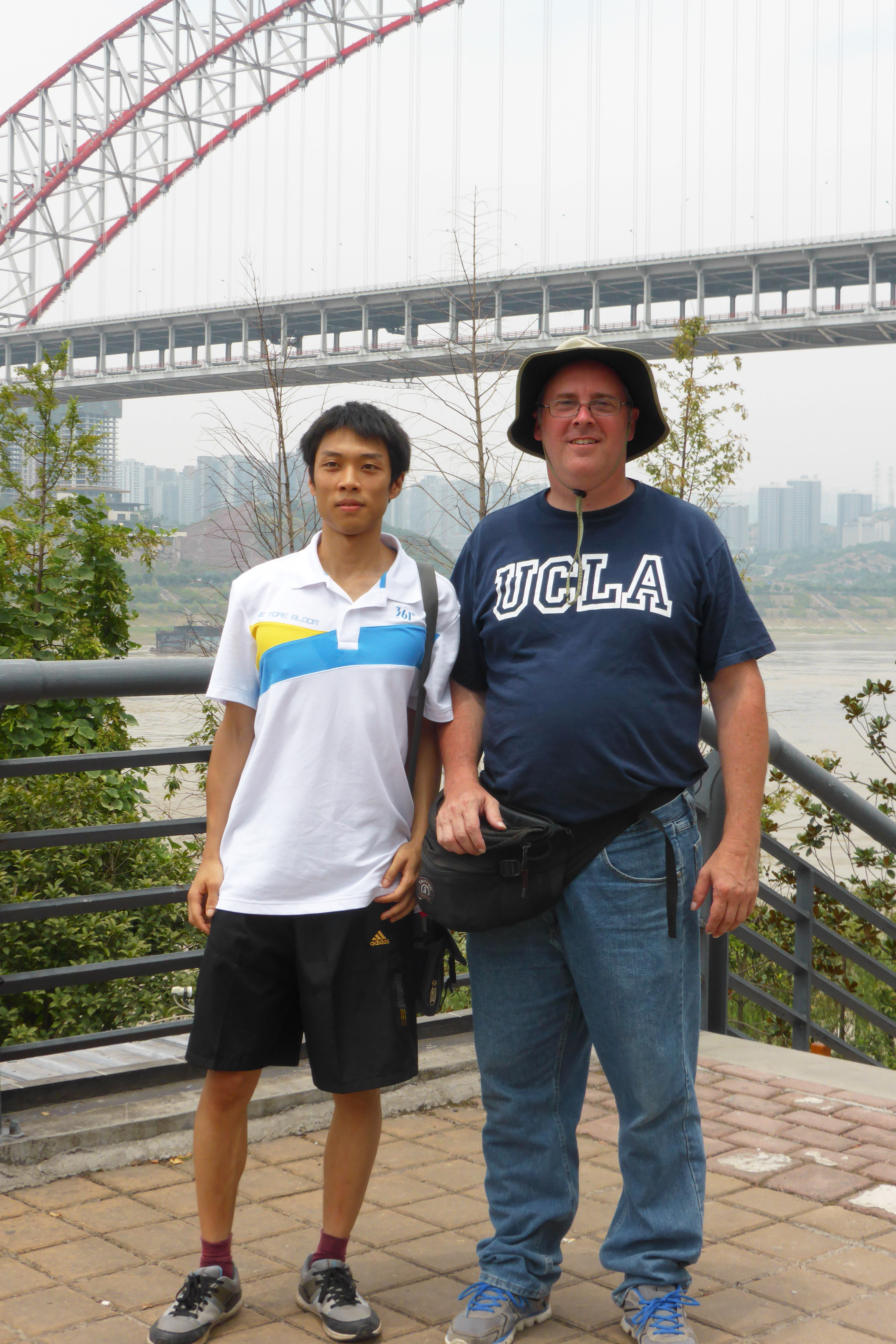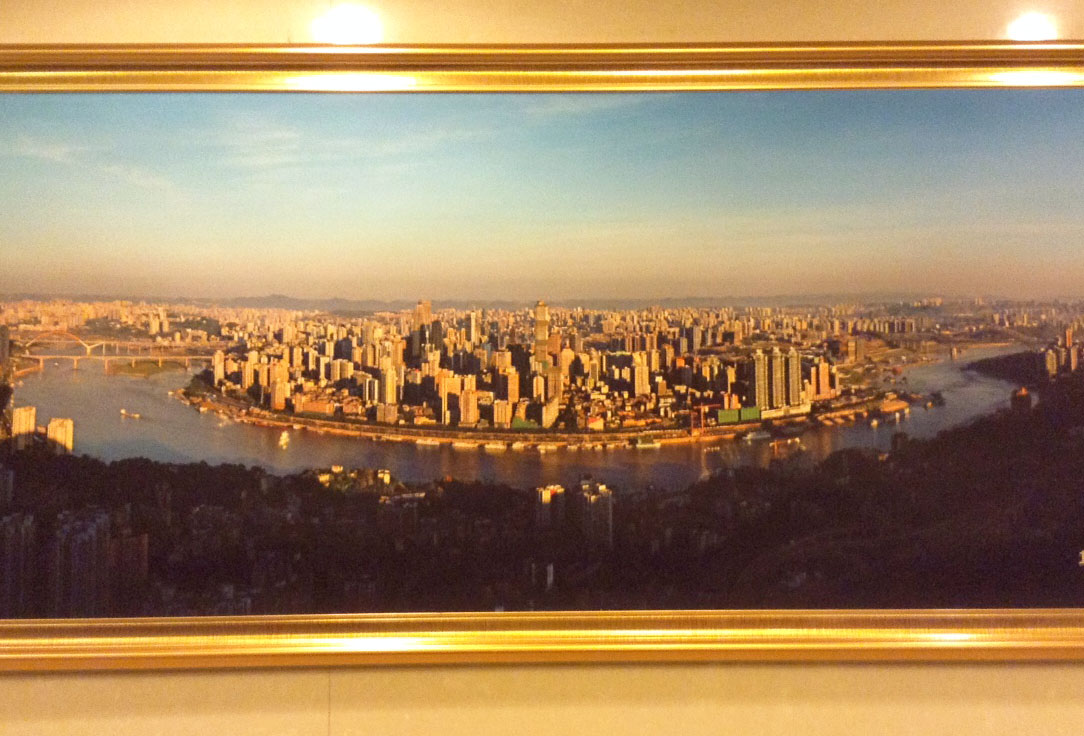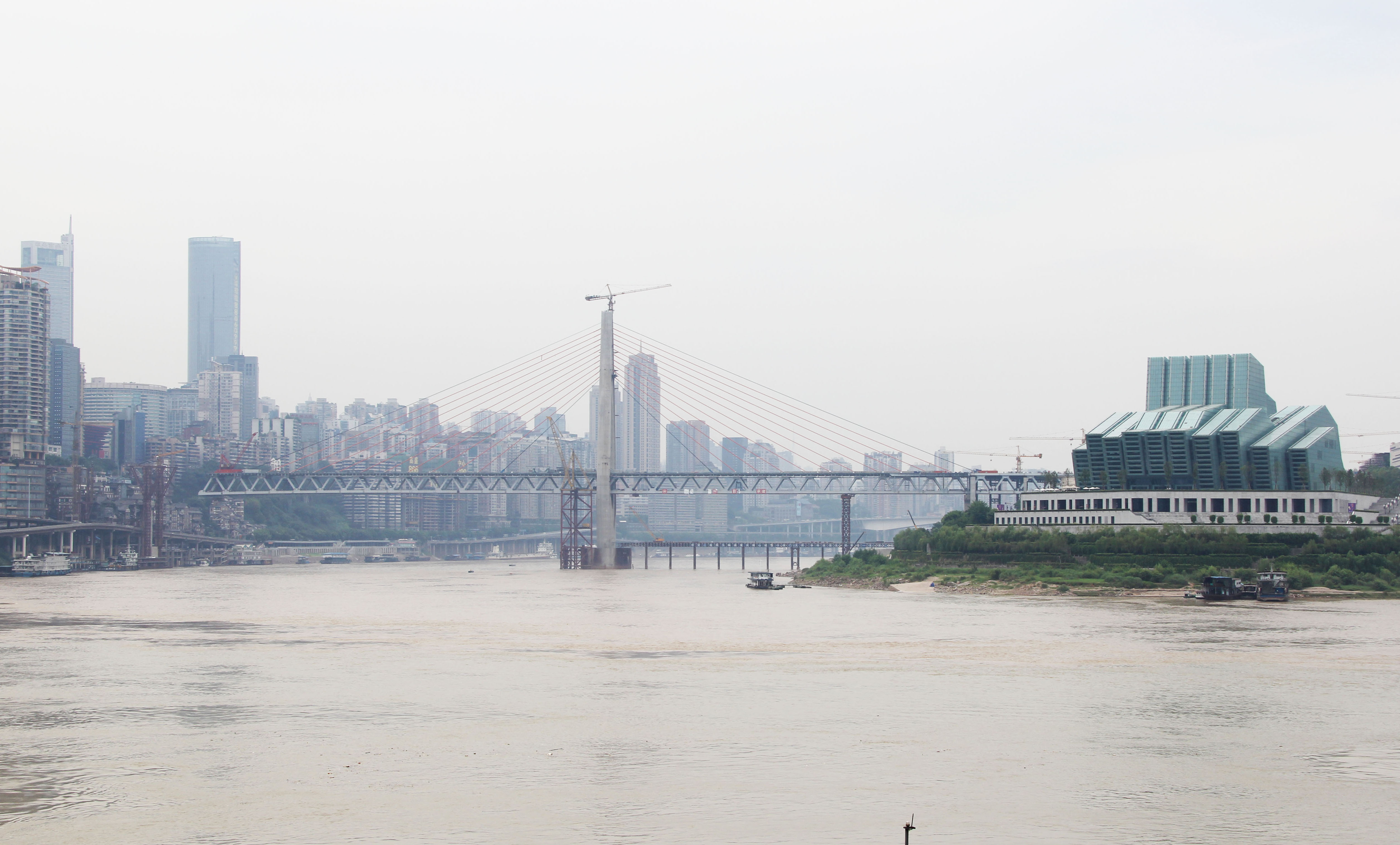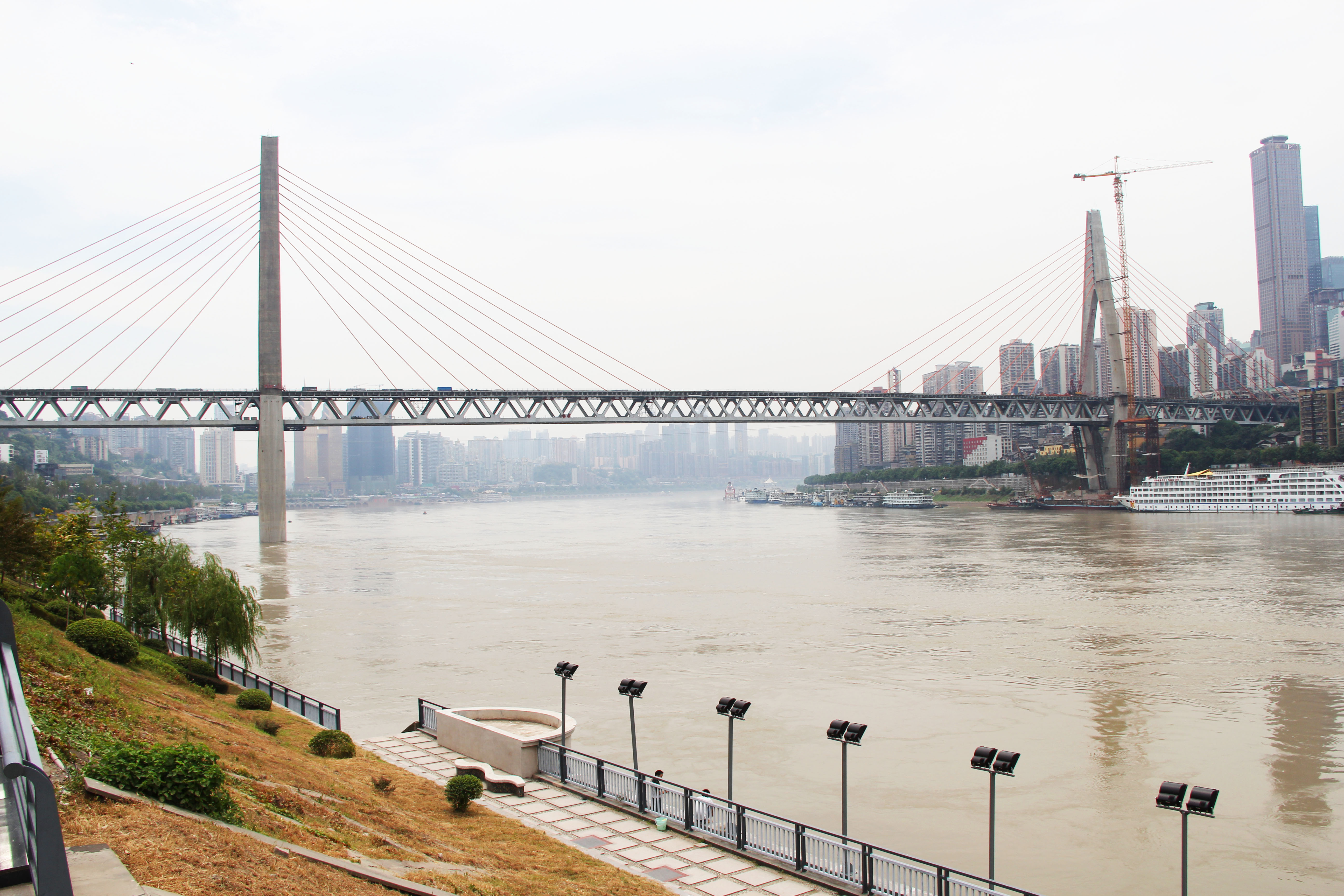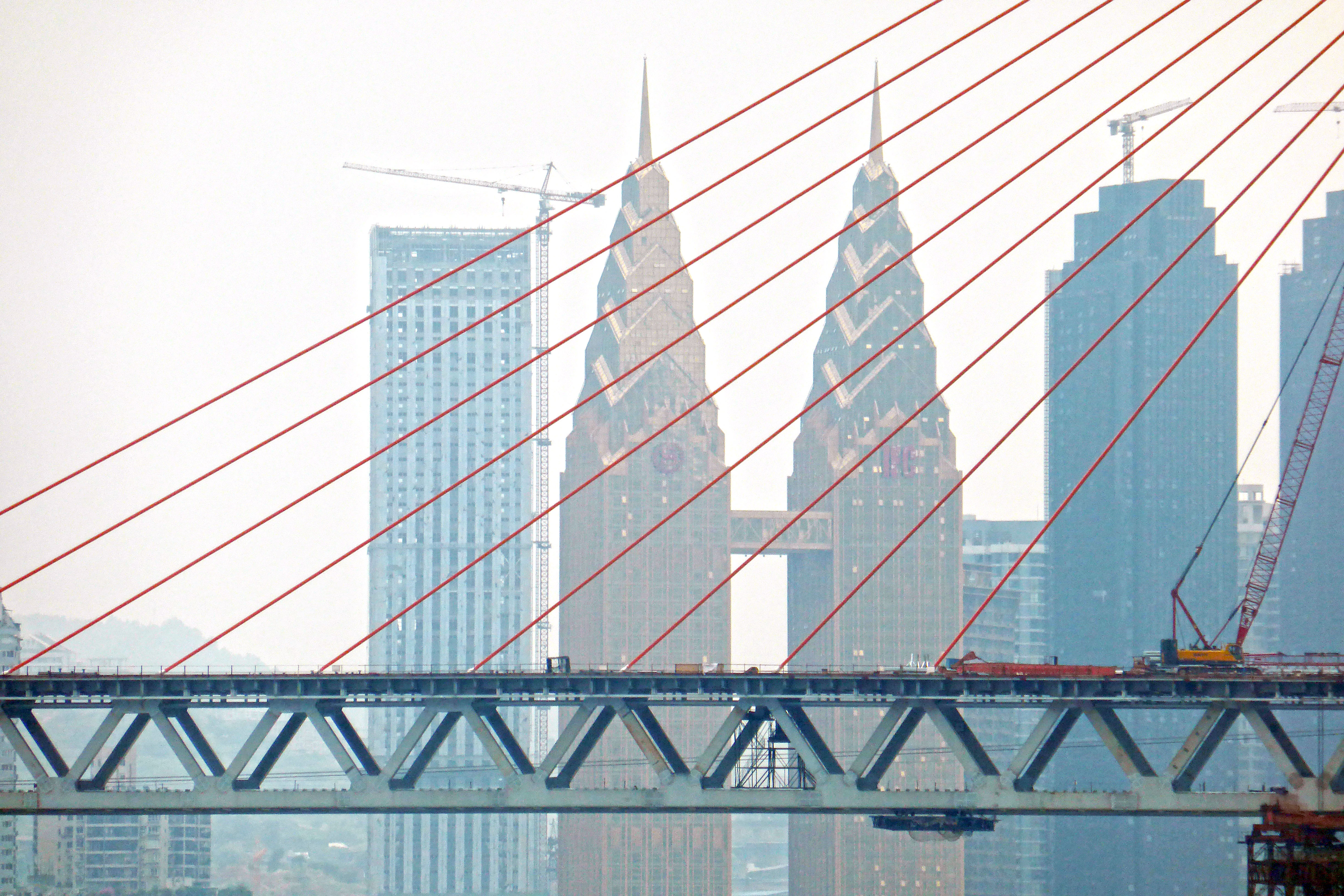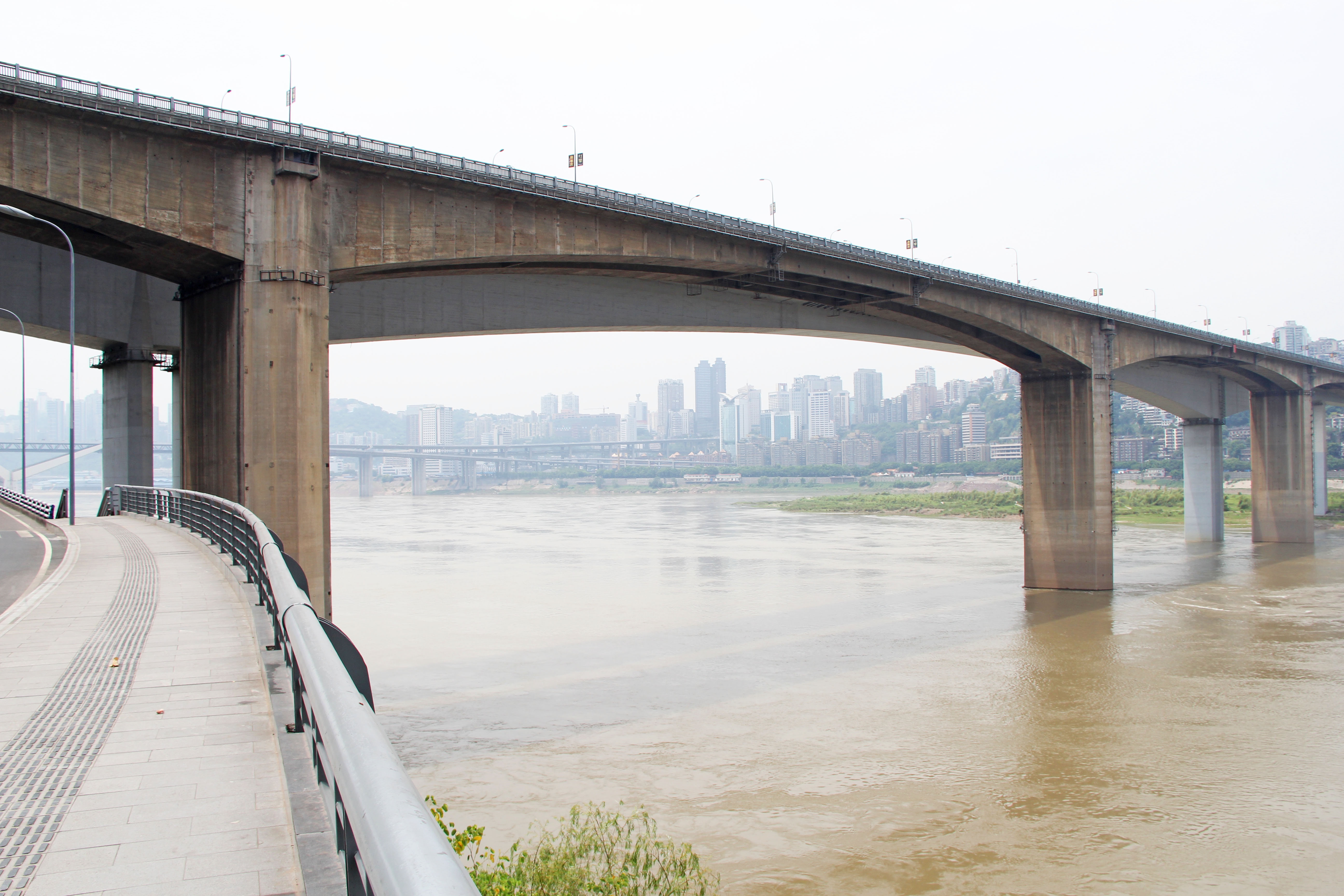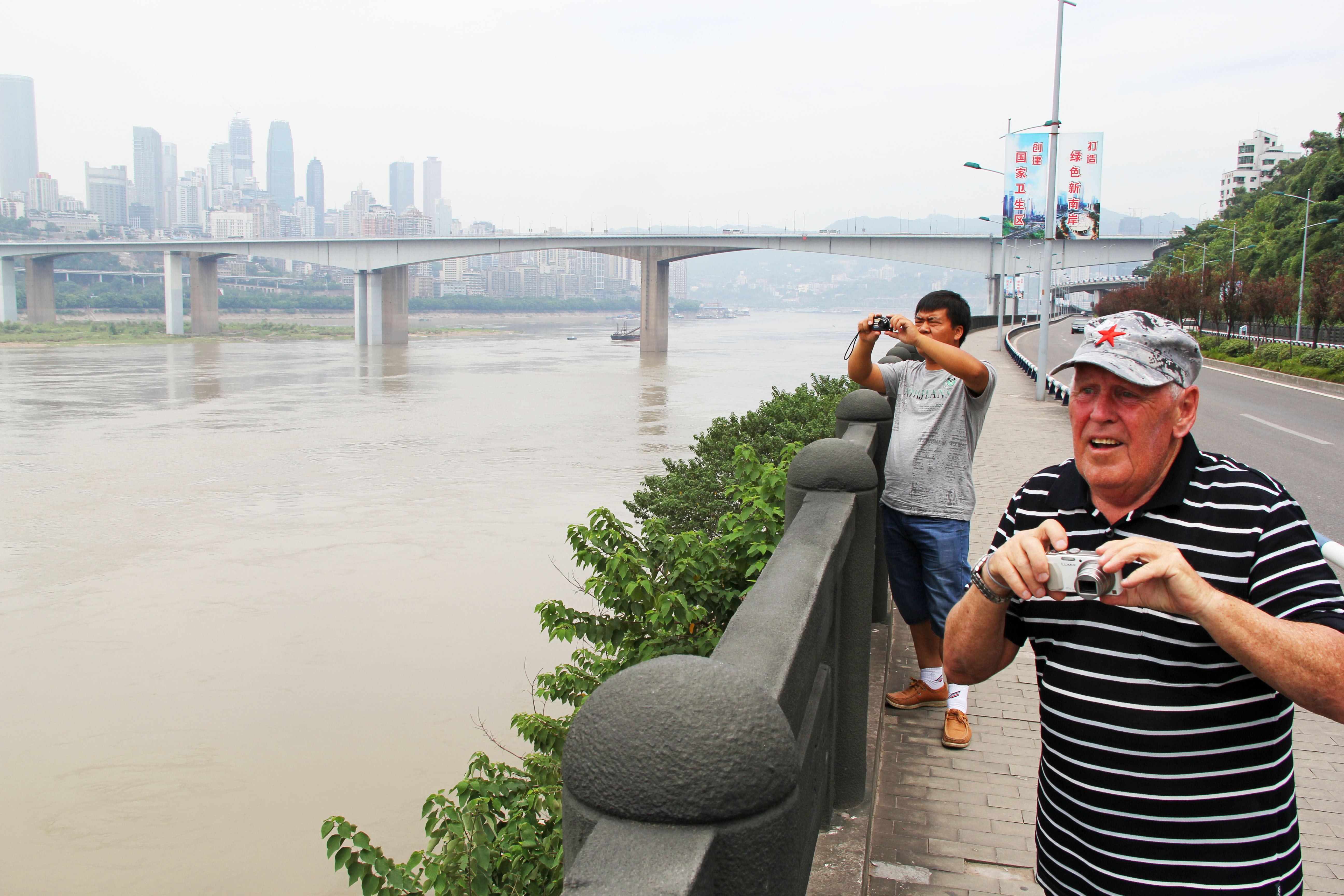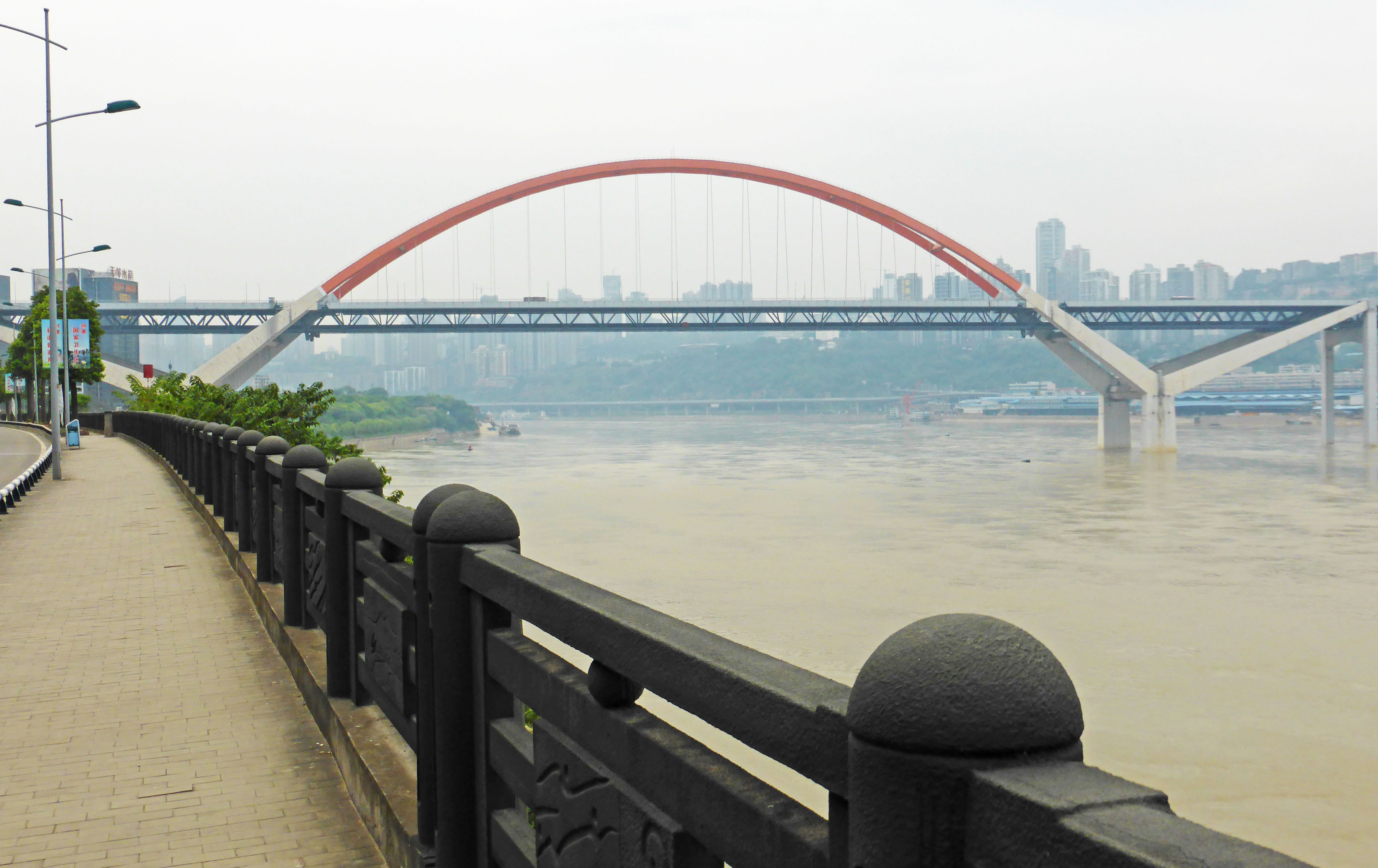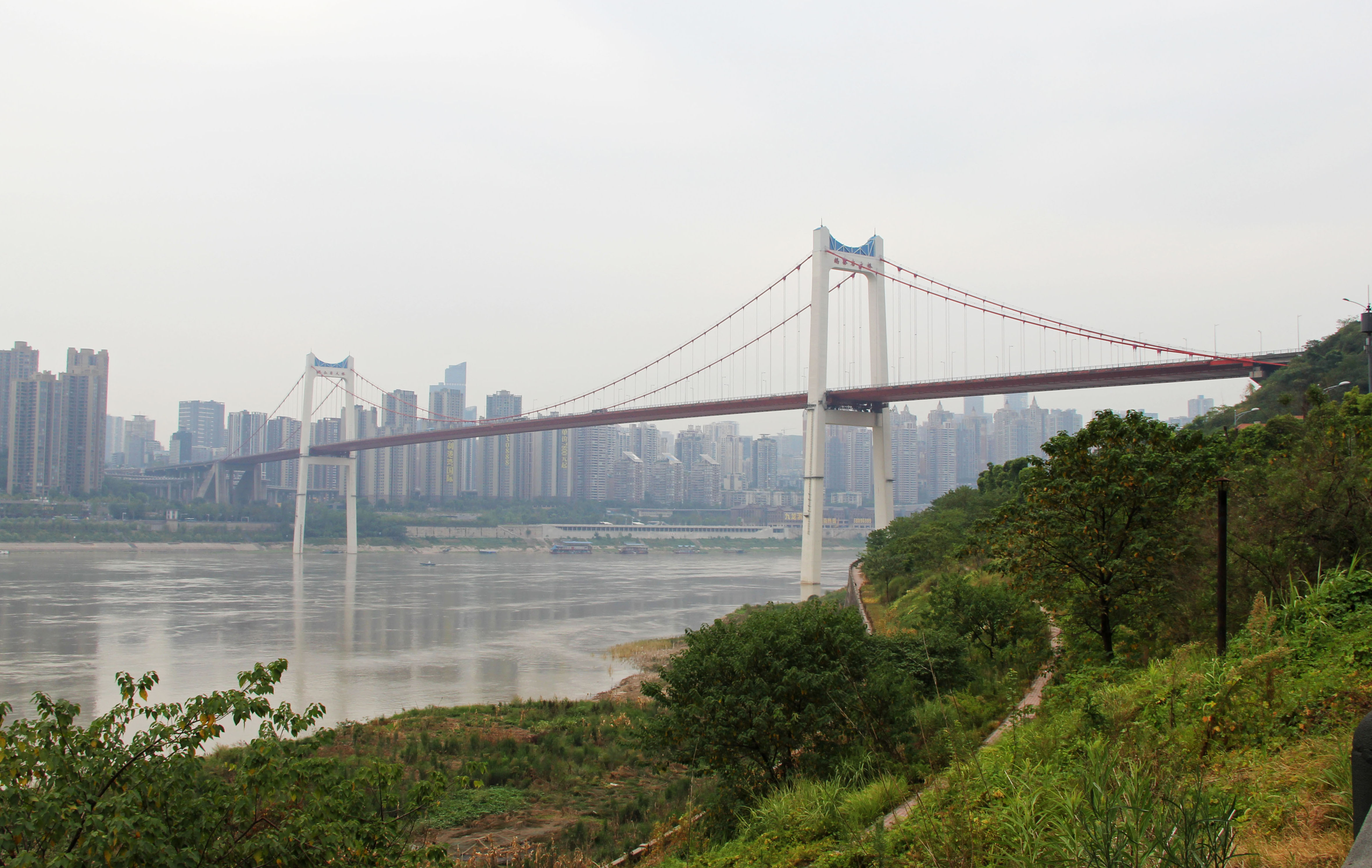2013 High Bridge Trip Photo Album
2013 China High Bridge Trip Photo Album
Hubei and Chongqing Provinces
The 3-week 2013 High Bridge trip was another grand adventure through the mountains of Western China to visit the world's 10 highest bridges as well as many other spans and several spectacular national parks. Our guests included 3 retirees made up of British dentist Lee Choong and engineering twins John and Ray Morrison of Australia. Rounding out the group of bridge fans was Canadian 'In the Wake of Tacoma' bridge book author Richard Scott. Our translator was yet another energetic Tongji University bridge engineering student with the famous name of Bruce Lee. On board for the second year in a row was our trusty driver Mr. Chen who navigated us safely along more then 2,000 miles / 3,500 kilometers of often crazy roads.
If there was one word to describe the 2013 trip it would be HOT! Record temperatures were being broken throughout many parts of China during our 3 week trek and it often made it difficult to want to get out of the comfortable confines of our air conditioned mini-van to snap some photos of a bridge. Luckily our group of gray-haired grandpas were up for anything and never hesitated or showed fear to visit any bridge I wanted to visit whether it required dodging highway traffic, climbing over a wall, hopping on a boat, hiking along a creek or taking a concrete slide down into a canyon.
Our new rental car held up well as it was put through an unusually high amount of abuse along more miles of rough, bumpy and broken roads than all of my previous China trips combined. The weather was only sunny half the time but we did manage to evade any rain for nearly the entire trip. Everyone seemed to enjoy the food even if they did not always know what kind of vegetable they were eating but by the end of the trip we all knew what kinds of meats we liked or wanted to avoid.
We are eternally gratefull to the Chinese engineers and authorities we met who were kind, generous and always willing to let us climb on their bridges like children in a playground. These surprise tours took us above and below some of the most amazing spans in the history of bridge construction including an elevator ride up one of the world's tallest bridge towers, a walk through one of the world's largest suspension bridge trusses and a precarious hike across a chicken-wire footbridge nearly 300 meters high. A special thanks to Liupanshui County engineer Zhou Ping and the wonderful Chen family who treated us like royalty in their own personal kingdom - the Zhangjiajie Grand Canyon Park. Finally a thanks to all the Chinese locals who were always friendly and often curious as to why we would travel halfway around the world to visit their remote town or bridge.
Look for an even more exciting Chinese adventure in 2014 when we visit more than 75 of the world's highest spans including construction site visits to the highest road and railway bridges on earth!
The special spans visited during the first week included Yingwuzhou, Siduhe, Zhijinghe, Tieluoping, Longtanhe, Shuanghekou, Xiaohe, Caijiagou and Qiancaobei Bridges as well as a visit to Western China's most populous city of Chongqing where the world's longest span arch and beam bridges reside in the form of Chaotianmen and Shibanpo.
Our first meal together at a great dumpling restaurant near Tongji University. On the left is Richard Scott with twin brothers Ray and John Morrison. Image by Eric Sakowski / HighestBridges.com
All of my China trips seem to begin at Tongji University in Shangahi which has the best and most extensive bridge engineering courses of any school in China. Image by Richard Scott.
Image by John Morrison.
Tongji also has China's only Bridge Engineering library with hundreds of unique journals and books that can only be found here. Image by John Morrison.
The Shanghai Tower had just had just been topped out in August as the world's 2nd tallest skyscraper. Image by Eric Sakowski / HighestBridges.com
Our pre-trip day in Shanghai included a visit to Tongji University where scaled down versions of China's tallest skyscrapers are tested for earthquake resilience on giant shake tables. Image by Richard Scott.
The Shanghai Tower on the left surpassed the Shanghai World Financial Center on the right to become China's tallest skyscraper. Others will surpass both of them in the years to come. Image by Eric Sakowski / HighestBridges.com
Image by Eric Sakowski / HighestBridges.com
Image by Eric Sakowski / HighestBridges.com
I have known bridge engineer Shijie Du for more then 8 years since our first bridge trip in 2006. He now works across the street from Tongji University at the famous Tongji Architectural Design and Research Institute. He gave us an evening tour of the modern building where many of the firms architectural models are on display including the new 121-story Shanghai Tower. Image by Richard Scott.
There is even a model of the TJARD building headquarters that was once a major bus station before they reconfigured it into a modern office building. Image by Richard Scott.
Shijie Du and Bruce Lee watch the Morrison brothers battle each other with a game of Ping Pong. Image by Richard Scott.
Our first night was spent at Tonji University's Guest House. Image by Richard Scott.
We spent the afternoon along Shanghai's famous tourist street - East Nanjing Road. Image by John Morrison.
Shanghai's Urban Planning Center overlooking the People's Park. Image by Richard Scott.
Looking like the lost city of Oz, a group of skyscrapers greets visitors in the rotunda of the Shanghai Urban Planning Center. Image by John Morrison.
The incredible model of central Shanghai that also includes several bridge crossings of the Huangpu River. Image by John Morrison.
The model transitions into a night mode with colorful lighting on many of the iconic buildings. Image by Eric Sakowski / HighestBridges.com
The giant Lupu Bridge, once the world's longest arch with a span of 550 meters. Image by Eric Sakowski / HighestBridges.com
Image by Eric Sakowski / HighestBridges.com
They even included the Tongji University campus. Image by Eric Sakowski / HighestBridges.com
The top floor of the Shanghai Urban Planning Center has a great view of the Shanghai skyline. Image by Richard Scott.
We spent the later part of the afternoon strolling through several of Shanghai's best bookstores. Image by Eric Sakowski / HighestBridges.com
The famous new Pudong financial skyscraper district as seen from the Bund. Image by Richard Scott.
A view of the cavernous new waiting hall of the Hongqiao High Speed Railway station. Our adventure finally began on the morning of August 3rd with a trip between Hongqiao station in Shanghai and Hankou station in Wuhan. China opened their first high speed line in 2007 and now have the largest high speed rail network in the world! Image by John Morrison.
Image by Richard Scott.
World traveler Lee Choong has been to China many times but this was his first to visit bridges. Image by Eric Sakowski / HighestBridges.com
The huge train yard west of Hongqiao station. Image by Richard Scott.
Image by Eric Sakowski / HighestBridges.com
One of the thousands of new apartment buildings along the route west of Shanghai. Image by Richard Scott.
Interpreter and Tongji bridge engineering student Li Xiaolong. His name translates as 'Little Dragon'. It is also the real name of famous martial arts legend Bruce Lee so Li picked that as his English name. Image by Eric Sakowski / HighestBridges.com
Another high speed train heads east to Shanghai. Image by Richard Scott.
A dam and some beautiful scenery east of Nanjing city. Image by Richard Scott.
Our group disembarks in Wuhan, 821 kilometers west of our start in Shanghai. Image by Richard Scott.
Our driver Mr. Chen met us in Wuhan after driving more then 1,200 kilometers from Guiyang city in Guizhou Province. Image by Richard Scott.
The great Wuhan Yangtze River Bridge looked spectacular from our hotel room at the Holiday Inn. This was the very first large bridge to cross the Yangtze when it was completed in 1957. The giant road and rail bridge was the model by which the more famous First Nanjing Bridge was based on. Russian Bridge engineers assisted in the design of the double decker truss that carries 2 tracks of the Beijing-Guangzhou line on the bottom as well as 4 road lanes and 2 pedestrian walkways on the top. Image by Eric Sakowski / HighestBridges.com
Image by Eric Sakowski / HighestBridges.com
Not everyone's room directly faced the Yangtze River but the Morrisons got a nice view of the Han River arch bridge. This is one of many CFST bridges in China where the arch ribs are steel tubes filled with concrete. Image by John Morrison.
Image by Richard Scott.
The railway lines are in constant use day and night. Image by Eric Sakowski / HighestBridges.com
The soaring cables of the Yingwuzhou double span suspension bridge cross the Yangtze just 2 kilometers upstream from the famous railway bridge. Each span is 850 meters supported by towers as high as 150 meters above the river. Image by Eric Sakowski / HighestBridges.com
The neighborhoold just south of the Yingwuzhou Bridge shows the strong contrast between the old and the new China with entire blocks of buildings being bulldozed over to make room for stylish new apartment buildings and malls. Image by Richard Scott.
The Morrisons stroll through the mostly abandoned buildings whose days are numbered. Image by Eric Sakowski / HighestBridges.com
Room for rent with private walk-up entrance and partial views of the Yangtze River! Image by John Morrison.
The main cables of the Yingwuzhou Bridge had been completed just days before our arrival. Image by Eric Sakowski / HighestBridges.com
Workers had just begun the process of adding the cable clamps that will support hundreds of vertical stringers required to hold the deck up. Image by John Morrison.
Image by Eric Sakowski / HighestBridges.com
The west end of the Yingwuzhou Bridge crosses over a riverfront park. Image by Eric Sakowski / HighestBridges.com
The central tower of the Yingwuzhou Bridge is made of steel while the two shoreline towers are made of concrete. Image by Eric Sakowski / HighestBridges.com
Our first official dinner of the trip in Wuhan. Image by Richard Scott.
The Morrisons take in another view of the Han River arch bridge. Image by Eric Sakowski / HighestBridges.com
A dancer performs along the Han River waterfront. Image by Eric Sakowski / HighestBridges.com
Bruce asks a local swimmer - Which way to Chongqing? Image by Eric Sakowski / HighestBridges.com
Opened in 2001, the Yichang Bridge has one of the longest suspension spans in China at 960 meters and still ranks among the 35 longest spans in the world. Image by Eric Sakowski / HighestBridges.com
Image by John Morrison.
Weijiazhou Bridge was our first high span of the trip carrying the G50 expressway 220 meters above a deep gorge. Image by Richard Scott.
A wide load along the G50 expressway south of Yichang. Image by Richard Scott.
The incredible G50 expressway in Hubei Province with more then 120 kilometers of tunneling including several monsters like this one that is over 8 kilometers long! In less then 3 weeks, everyone on the trip had passed through more miles of tunnels then in all the previous years of their life combined. Image by Richard Scott.
The city of Langpingzhen was unusually quiet during our afternoon lunch visit. Image by Richard Scott.
Our second lunch of the trip in Langping town. Image by John Morrison.
The gargantuan Longtanhe Viaduct with 200 meter spans perched almost 200 meters above the valley floor. This was the world's 2nd largest viaduct for several years behind France's Millau Viaduct. China's own Chishi and Sanshuihe viaducts have recently pushed it further down to 4th place among all the world's viaducts but it is still an impressive site to behold. Image by John Morrison.
Image by Richard Scott.
A pile of discarded bicycles and motorbikes near Langpingzhen. Image by Richard Scott.
The only cable stayed bridge on the G50 east of the Yangtze River is the impressive Tieluoping Bridge with a height of 209 meters and a main span of 322 meters. Image by Richard Scott.
A group photo near the Tieluoping Bridge along the older national road 318. Image by John Morrison.
The Shuanghekou Bridge on the G50 is most impressive for its piers which are 163 meters tall. Image by Richard Scott.
A railway train crosses the Shuanghekou creek. The Yichang-Wanzhou Railway roughly parallels the G50 and is the most difficult stretch of railway line ever undertaken anywhere in the world. No other railway line outside China has more then one bridge over 100 meters high - the Wanzhou line has six. Of the 377 kilometer length, 288 kilometers are on bridges or in tunnels. Image by Richard Scott.
Siduhe in all its glory! With a deck nearly 500 meters high, this is far and away the world's highest suspension bridge. Image by Richard Scott.
The giant yellow towers support a Tacoma-sized span of 900 meters. Image by Richard Scott.
The Morrisons check out the center of the bridge which has a steel truss locking the deck to the main cables. Image by Eric Sakowski / HighestBridges.com
The road deck is approximately 24 meters wide with 26 meters between the center of the cables. Image by Richard Scott.
A new downstream dam approximately 70 meters high will create a huge lake under the Siduhe Bridge in 2014. Image by Richard Scott.
Image by Bruce Lee.
Just east of Siduhe is the giant Shuinan Viaduct carrying the G50 expressway 110 meters above a wide ravine. Image by John Morrison.
A large pipeline bridge frames up a striking view of the Siduhe Bridge. Image by Bruce Lee.
The east Siduhe Bridge anchorage terminates into a deep mountain tunnel. Image by John Morrison.
Image by John Morrison.
The Yesanguan city hotel more then 1,000 meters above sea level. Note the odd building on the right where several new floors seem to be getting constructed on top of an older building. Image by Eric Sakowski / HighestBridges.com
Ray might look a little scared to move with good reason. The Morrisons inadvertently knocked a mirror off their hotel room wall and sent it crashing to the floor! Like many things in China, you have to watch every step you take as items are often poorly situated or attached with shoddy connections. Image by John Morrison.
The many shards of the Morrison mirror mishap. Image by Eric Sakowski / HighestBridges.com
A late dinner next to the main plaza in Yesanguan. Image by Eric Sakowski / HighestBridges.com
This Yesanguan family was happy and surprised to see foreigners in their restaurant. Image by Richard Scott.
Currently the world's highest arch bridge at 292 meters, the concrete filled steel tubes of the Zhijinghe arch were mostly obscured in rain clouds. The central span of 430 meters ranks it among the world's 12 longest arch spans. Image by Eric Sakowski / HighestBridges.com
The 200 meter span of the Yesanhe River G50 expressway bridge. Image by Eric Sakowski / HighestBridges.com
One of several major bridges across the Yesanhe, this pipeline bridge is the latest high wire act with a span of 240 meters. Image by Eric Sakowski / HighestBridges.com
Image by John Morrison.
The Yesanhe Railway Bridge is one of the highest of its type in the world rising 140 meters above the tight river canyon. Image by John Morrison.
The famous Yesanhe national road 318 bridge was the highest in China back when it opened in 1977 with a deck to river drop of 125 meters. Today it would not even rank among China's 100 highest bridges. Image by Eric Sakowski / HighestBridges.com
The herculean central pier of the Mahuihe Railway bridge supports two beam spans of 116 meters along the Yichang-Wanzhou line. Image by Eric Sakowski / HighestBridges.com
The local road crosses the Mashui River on this simple frame bridge. Image by Eric Sakowski / HighestBridges.com
The Longwangmiao Bridge is one of the 6 great beam bridges over 100 meters high on the Wanzhou line. Image by Eric Sakowski / HighestBridges.com
To get a better view of the massive G50 Mashuihe Viaduct, we hailed down a boat going along the reservoir. The locals were kind enough to wait out our 20 minute tour before the boat headed upstream to drop them off near their villages. Image by Richard Scott.
Image by Eric Sakowski / HighestBridges.com
Image by Richard Scott.
Image by Bruce Lee.
Image by Eric Sakowski / HighestBridges.com
After we departed the Mashuihe boat landing, a wall of this makeshift cinder block building collapsed. No one was hurt but it was a reminder of the dangers that lurk within the poor regions of Western China. Image by Eric Sakowski / HighestBridges.com
Also crossing the Mashui River is the beautiful Nanlidu arch which carries the old national road 318 across a concrete filled steel tubular span of 220 meters. Image by Richard Scott.
Image by John Morrison.
These super-sized sofas were common in the lobbies of most Chinese hotels. Image by Richard Scott.
Constructed in 1970, the Enshi city Xiaoduchuan stone arch bridge over the Qingjiang River has a span of 96.8 meters, more then any stone bridge ever built in Europe except for one. China is home to the world's 20 longest stone arch bridges. Image by Richard Scott.
An old piece of WWII ordinance plucked out of the river? No, just a water level gauge. Image by John Morrison.
The Xiaoduchuan Bridge from below. Image by Richard Scott.
A single tower cable stayed bridge was built to bypass the older Xiaoduchuan stone arch bridge. Image by Bruce Lee.
A group of Enshi locals was curious about us but most interested to see what our foreign money looks like. Image by Richard Scott.
I would have given them a 1 dollar bill but I was not willing to depart with my 10 dollar bill. Image by Richard Scott.
Enshi city intersection. Image by Richard Scott.
The main plaza near the Qing Jiang River Bridge was crowded with dancers, a tradition that takes place in nearly every city in China. Image by John Morrison.
The beautiful multi-level bridge across the Qingjiang River. Image by John Morrison.
Qingjiang Bridge image by Lee Choong.
The Qingjiang Bridge as seen from Enshi city park. Image by Richard Scott.
The first of several high bridges under construction along the new highway between Enshi in Hubei and Qianjiang City in Chongqing. Image by Richard Scott.
One of many accidents we would encounter on the trip. Supposedly the driver fell asleep. Image by Richard Scott.
The second huge beam bridge along the Enshi-Qianjiang highway with piers over 100 meters tall. Image by Eric Sakowski / HighestBridges.com
The local road along the new highway was almost completely devoid of any concrete or asphalt making it one of the roughest 50 kilometers on the entire trip. Even worse we had to take it back to Enshi after we visited the Long arch bridge. Image by Richard Scott.
The beautiful 268 meter main span of the Long arch bridge. The main ribs are filled with concrete once the steel arch has been closed at the crown. Image by Eric Sakowski / HighestBridges.com
The box beam vertical spandrel supports were installed before the end of 2013. Image by John Morrison.
A temporary access road was constructed to transport the arch pieces and spandrel beams. Image by John Morrison.
I enjoyed a quick tour up one of the arch ribs. Image by Richard Scott.
Image by Eric Sakowski / HighestBridges.com
Image by Eric Sakowski / HighestBridges.com
Image by Eric Sakowski / HighestBridges.com
The beautiful Zongjianhe Bridge with slender towers 250 meters tall. These rank among the 12 tallest bridge structures on earth exceeding any bridge in North America. Image by Eric Sakowski / HighestBridges.com
The cable stayed truss deck passes through the north tower approximately 140 meters above the ground. The roadway surface will be 260 meters above the normal level of the Zhongjian River. Image by Eric Sakowski / HighestBridges.com
The base of each tower is supported on massive circular piles. Image by Richard Scott.
John Morrison said the quality of the truss beam welds was excellent. Image by Eric Sakowski / HighestBridges.com
Several of us were lucky to get a hard hat tour up to the middle level of the north tower. Image by John Morrison.
Image by John Morrison.
Image by Eric Sakowski / HighestBridges.com
Image by Richard Scott.
A view of the south tower from a point more then 250 meters above the reservoir. Image by Bruce Lee.
Image by Eric Sakowski / HighestBridges.com
Image by Eric Sakowski / HighestBridges.com
Image by Chief Bridge Engineer.
Zhongjianhe Bridge truss staging area. Image by Eric Sakowski / HighestBridges.com
We finally got some clear views of the beautiful Qingjiang G50 expressway bridge from the older national road. Image by John Morrison.
One of many car washes our mini-van would get during the trip. Image by Richard Scott.
The Qingjiang G50 single tower cable stayed bridge. Image by John Morrison.
I often have to get in precarious positions to measure the height of a span such as this one on the Qingjiang G50 expressway bridge. Image by Bruce Lee.
You could get almost anything you wanted in our Enshi hotel with just the push of a button! Image by Richard Scott.
Our second dinner in Enshi was at a buffet-style restaurant. Image by John Morrison.
Image by John Morrison.
During our second night in Enshi we visited the area below the colorful Qingjiang River arch bridge. Image by John Morrison.
Another friendly Enshi family near the Qingjiang waterfront. Image by Richard Scott.
Our breakfast in Enshi. Image by John Morrison.
The Xiaohe arch bridge is another big CFST span with concrete inside the main ribs. Image by Richard Scott.
The Xiaohe Bridge valley more then 200 meters below. Image by John Morrison.
Another giant railway viaduct. This one crosses the Qingjiang River on the new line spur from Enshi to Chonqging. The line opened just before the end of 2013. Image by Eric Sakowski / HighestBridges.com
Wenxi Bridge was the first of 10 bridges over 100 meters high that we encountered along the Fengfu expressway that parallels the Yangtze River from the G50 expressway to the city of Fuling. The highway opened at the end of 2013. Image by Bruce Lee.
The second unknown beam bridge along the Fengfu expressway north of Fengdu city. Image by Eric Sakowski / HighestBridges.com
The third unknown beam bridge along the Fengfu expressway. Image by Eric Sakowski / HighestBridges.com
The fourth unknown Fengfu expressway bridge. The outside temperature at this point was around 40 degrees Celsius! Image by Eric Sakowski / HighestBridges.com
The fifth unknown Fengfu expressway beam bridge. Image by Eric Sakowski / HighestBridges.com
The sixth unknown Fengfu expressway bridge. Image by Eric Sakowski / HighestBridges.com
Bruce poses in front of the giant Long bridge, the 7th and largest crossing of the beam bridges along the Fengfu highway. The main span is 240 meters and rises 180 meters above the old Long River level. Image by Eric Sakowski / HighestBridges.com
Image by Eric Sakowski / HighestBridges.com
Image by Eric Sakowski / HighestBridges.com
We took an hour long detour to see the famous Jiuxigou stone arch bridge which had the longest stone arch span in the world upon its completion in 1972 with a length of 116 meters. Today it ranks 3rd behind two other Chinese stone spans built in 1991 and 2001 over the Wuchaohe and Danhe rivers. Image by Eric Sakowski / HighestBridges.com
A protective layer of concrete was put over the stone in recent years, taking away the classic look of the natural masonry bricks. Image by Eric Sakowski / HighestBridges.com
The deep river piers of the Fengdu Second Yangtze River Bridge. The main span of 680 meters will rank it among the world's 20 longest cable stayed spans. Image by Richard Scott.
The original Fengdu suspension bridge with a span of 450 meters. Image by Richard Scott.
The Fengdu Bridge cable hangers are inclined. Image by Richard Scott.
Image by Eric Sakowski / HighestBridges.com
An older national road arch bridge parallels the new Fengfu highway unknown beam bridge #8. Image by Eric Sakowski / HighestBridges.com
The ninth unknown Fengfu highway beam bridge. Image by Eric Sakowski / HighestBridges.com
The tenth Fengfu expressway beam bridge. Image by John Morrison.
The new Hanjiatuo high speed railway bridge that opened at the end of 2013. The main span is 432 meters. Image by Richard Scott.
The unusual cable stayed Fuling Yangtze River pipeline bridge. Image by Eric Sakowski / HighestBridges.com
The Fuling City arch bridge across the Wujiang River. This 200 meter arch span was China's second major use of the rotation method where the two halves of the arch were built on either slope and then carefully swung out over the river where they were then closed at the crown. The bridge was completed in 1989. Image by Eric Sakowski / HighestBridges.com
Fuling City Wujiang River waterfront reconstruction. In the background is the 2009 Fuling Wujiang cable stayed bridge with a span of 340 meters supported by uneven towers. Image by Eric Sakowski / HighestBridges.com
The group takes in a view of the Wujiang River near its confluence with the Yangtze River. Image by Eric Sakowski / HighestBridges.com
Fuling City waterfront park and music theater. Image by Richard Scott.
Group photo at Fuling City park where the Wu River meets the Yangtze River. Image by John Morrison.
Fuling park sculpture and roller skate boy. Image by Bruce Lee.
The first crossing of the Yangtze at Fuling was in 1997 in the form of this 330 meter span cable stayed bridge. Image by Eric Sakowski / HighestBridges.com
Xinqiao Viaduct on the new high speed line that now makes it possible to go from Chonqging city to Shanghai. The massive piers rise 114 meters and support a double line deck over 2 kilometers in length making it the world's second largest railway viaduct after the nearby Caijiagou Viaduct. Image by John Morrison.
Train testing began on the line just a few weeks after our visit with scheduled service available at the end of 2013. Image by Eric Sakowski / HighestBridges.com
The distinctive 人-shaped piers that support thousands of tons of steel and concrete more then 100 meters above the valley floor. Image by Eric Sakowski / HighestBridges.com
The even larger Caijiagou Railway viaduct with its record breaking piers 139 meters tall. Image by Eric Sakowski / HighestBridges.com
The central span of 144 meters perched atop the 2 super-sized piers. Image by Eric Sakowski / HighestBridges.com
Three generations of Caijiagou bridges!
Image by Eric Sakowski / HighestBridges.com
Image by Eric Sakowski / HighestBridges.com
The new Qiancaobei suspension bridge slated to open at the end of 2013. The main span is 788 meters. Image by Ray Morrison.
The huge Qingcaobei Bridge saddle. Image by Eric Sakowski / HighestBridges.com
Image by Eric Sakowski / HighestBridges.com
Image by Eric Sakowski / HighestBridges.com
Image by Bruce Lee.
Image by Eric Sakowski / HighestBridges.com
The sleek box beam deck of the Qingcaobei Bridge is more then 100 meters above the Yangtze River. Image by Eric Sakowski / HighestBridges.com
Image by Eric Sakowski / HighestBridges.com
The first of 3 high beam bridges known as Chayuanxi Bridge along a new highway between Fuling and Chongqing on the south side of the Yangtze River. The beam span of 130 meters is approximately 83 meters high. Image by Eric Sakowski / HighestBridges.com
Also 83 meters high with a 130 meter main span is the Liangshuijing Bridge, the second beam bridge between Fuling and Chongqing. Image by Eric Sakowski / HighestBridges.com
Lixiangxi is the 3rd big beam bridge between Fuling and Chongqing. Image by Eric Sakowski / HighestBridges.com
Lixiangxi has the largest span of all at 180 meters resting approximately 105 meters above the Youjiang River. Image by Eric Sakowski / HighestBridges.com
Construction area below the Lixiangxi Bridge. Image by Eric Sakowski / HighestBridges.com
The Lixiangxi Bridge crosses over a tributary of the Yangtze. Image by Eric Sakowski / HighestBridges.com
Our second dinner in Fuling city was at a nice steak restaurant. Image by Richard Scott.
The greatest of the new Fengfu expressway bridges is this cable stayed crossing of the Wujiang River with a main span of 320 meters and towers over 200 and 205 meters tall. Image by Eric Sakowski / HighestBridges.com
Our bridge day in Chongqing City was made with bridge fan and Chongqing resident Wang who met us at the west end of the Chaotianmen arch bridge. Image by Eric Sakowski / HighestBridges.com
The Chongqing city skyline as seen from the Chaotianmen arch bridge. Image by Richard Scott.
The massive arch of Chaotianmen is the largest in the world at 552 meters. Image by Eric Sakowski / HighestBridges.com
Image by Eric Sakowski / HighestBridges.com
Image by John Morrison.
Bridge fan Wang and Eric. Image by John Morrison.
A view of the Chongqing skyline in our hotel. Chaotianmen Bridge can just barely be seen on the right and Caiyuanba arch bridge can just barely be seen on the left. Image by Lee Choong.
The new Jialing River single tower cable stayed Qianximen Bridge was almost complete and supports a new metro line. To the right is the new Chongqing opera house overlooking the confluence of the Jialing and Yangtze Rivers. Image by Eric Sakowski / HighestBridges.com
The double tower Dongshuimen metro line bridge leaps across the Yangtze with a central main span of 445 meters. Image by Eric Sakowski / HighestBridges.com
Dongshuimen has just 9 cable stays on either tower. Image by John Morrison.
A view of the side by side Shibanpo Bridges. The newer bridge has the world's largest beam span of 330 meters with the middle third comprised of steel that was raised into place from a boat on the Yangtze River. Image by Eric Sakowski / HighestBridges.com
The Shibanpo Bridge in the background with our driver Mr. Chen and John Morrison snapping photos of the Caiyuanba arch bridge. Image by Eric Sakowski / HighestBridges.com
The through-arch Caiyuanba bridge with a main span of 420 meters. The basket handle arch carries a double track monorail metro line on the bottom and 6 lanes of highway on the top. Image by John Morrison.
The E'gongyan Bridge was the first long span crossing in Chongqing City, opening in 2000 with a main span of 600 meters. Image by Eric Sakowski / HighestBridges.com
Click on Page 2 for Week Two with views of the Zhangjiajie Area Bridges and More!
